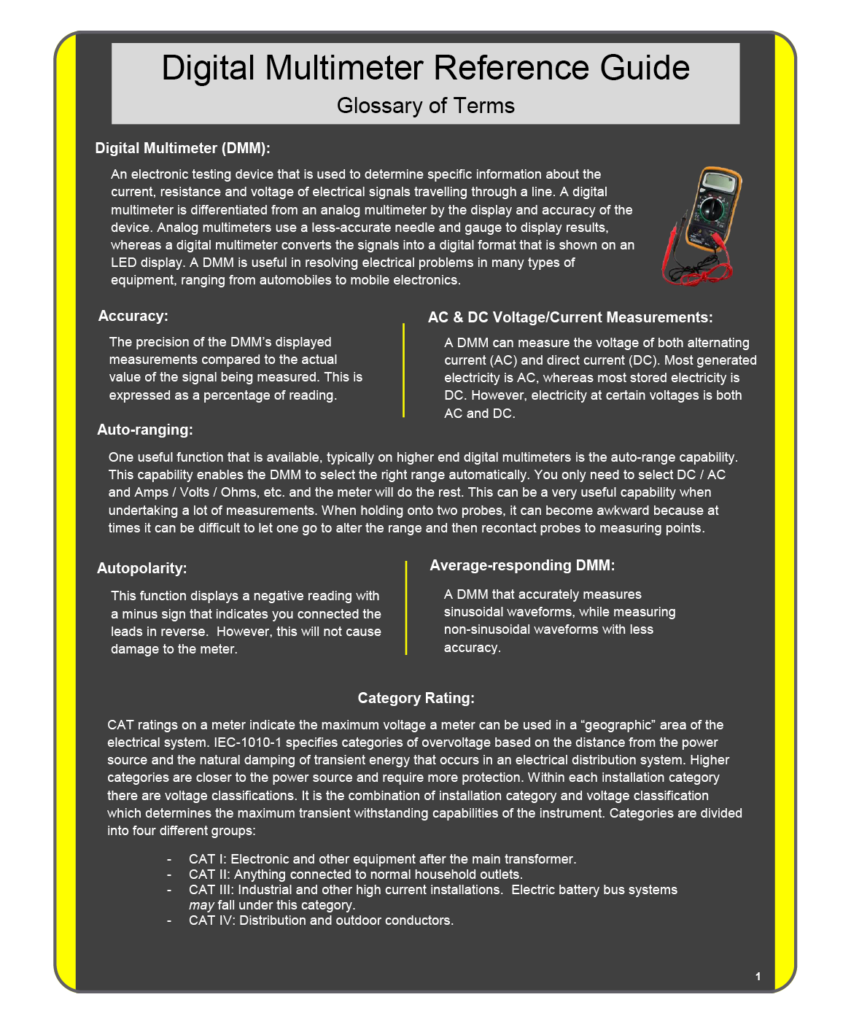Topics
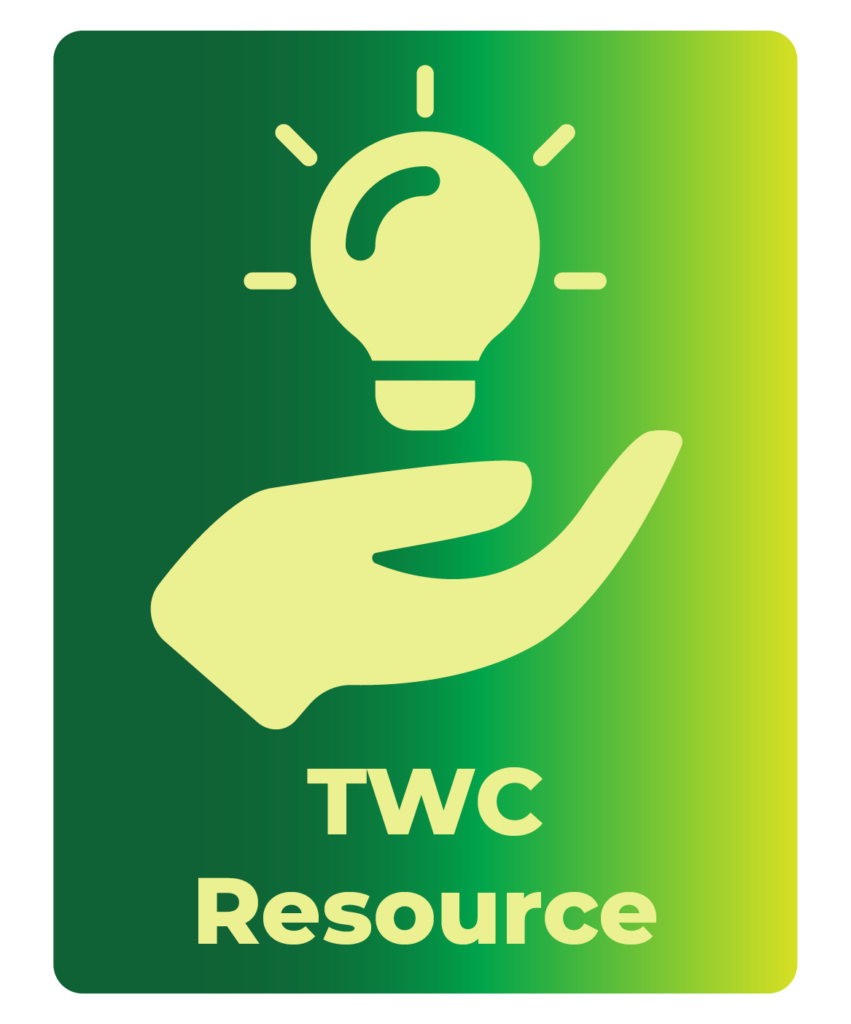
Consolidated Rail Infrastructure and Safety Improvements
The Consolidated Rail Infrastructure and Safety Improvements (CRISI) program is an initiative of the Federal Railroad Administration (FRA) that provides grant funding for projects aimed at improving the safety, efficiency, and reliability of intercity passenger and freight rail. The goal of the program is to meet both current and future rail workforce demands by addressing key challenges such as an aging workforce and critical skill gaps. It also aims to prepare the workforce for advanced technology deployments and operational innovations, ultimately contributing to the stabilization and growth of the rail industry workforce. The program includes the Mineta Summer Transportation Academy.
Federal Railroad Administration
TOPICS: Funding Opportunities , Policy and Planning , Safety and Health , Training
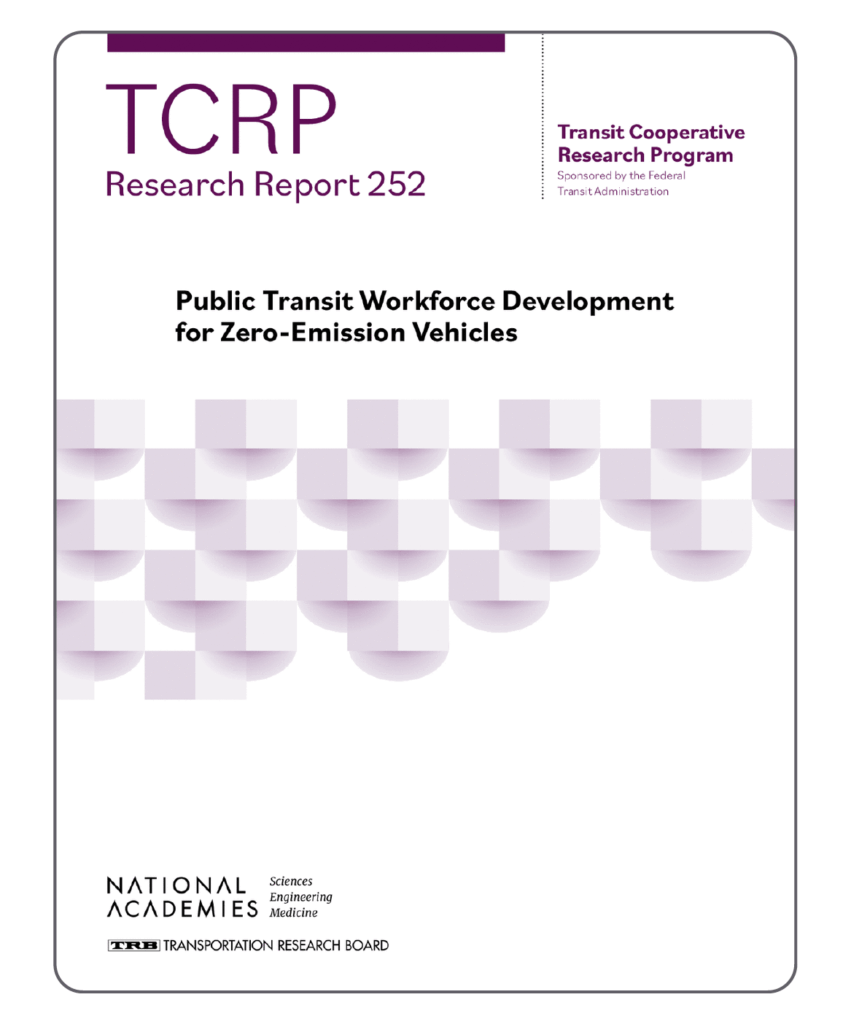
Public Transit Workforce Development for Zero-Emission Vehicles
This TCRP report focuses on vehicle maintenance of battery-electric and fuel-cell transit buses, including case studies from transit as well as lessons from the automotive and school transportation industries. Recommendations include assessing workforce skills through skills-gap analysis, building a systematic process for building skills (including through frontline worker engagement and the creation of formalized training programs, e.g., registered apprenticeship), and working proactively on recruitment and retention.
Transit Cooperative Research Program
December 2025
TOPICS: Low-No , Policy and Planning , Procurement , Safety and Health , Training
Contributor(s): National Academies of Sciences, Engineering, and Medicine; Transportation Research Board; Transit Cooperative Research Program; International Transportation Learning Center, John Schiavone, Karitsa Holdzkom, Douglas Nevins, Michaela Boneva; Planning Communities, Ann Steedly, Brandy Hutson, James Farrell
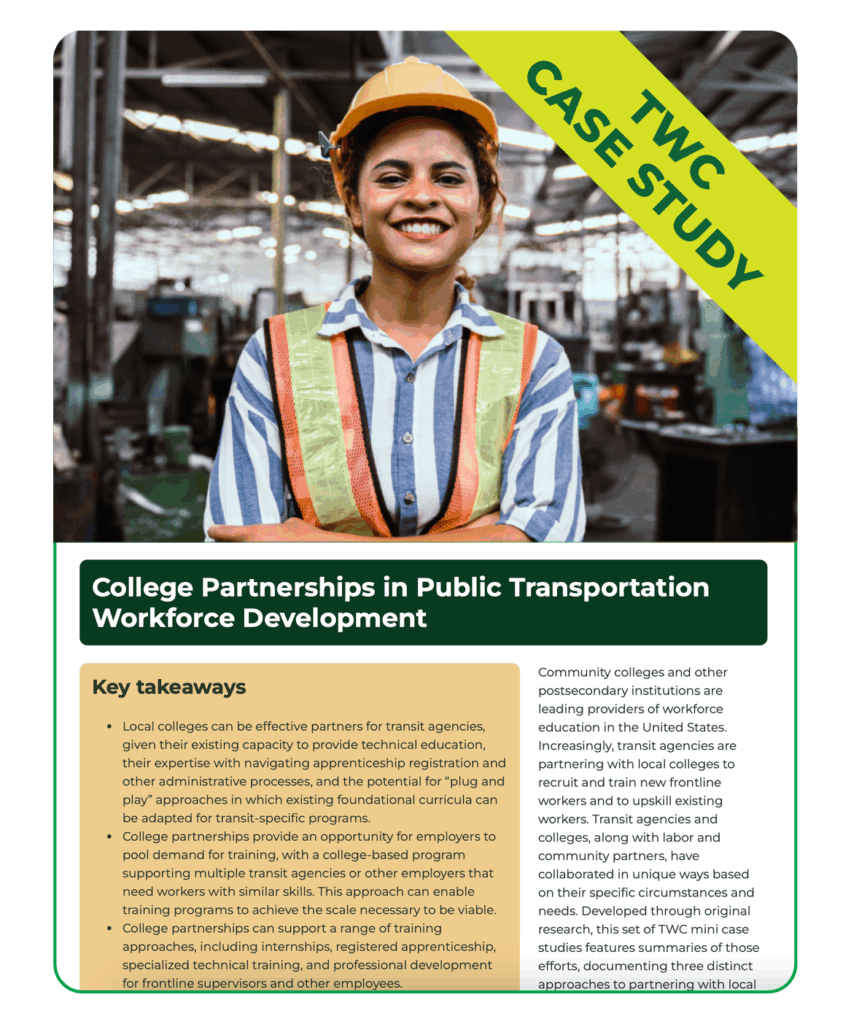
College Partnerships in Public Transportation Workforce Development
Community colleges and other postsecondary institutions are leading providers of workforce education in the United States. Increasingly, transit agencies are partnering with local colleges to recruit and train new frontline workers and to upskill existing workers. Transit agencies and colleges, along with labor and community partners, have collaborated in unique ways based on their specific circumstances and needs. Developed through original research, this set of TWC mini case studies features summaries of those efforts, documenting three distinct approaches to partnering with local colleges.
Transit Workforce Center
September 2025
TOPICS: Apprenticeship , Career Pathways , Community Engagement , Hiring and Recruitment , Training
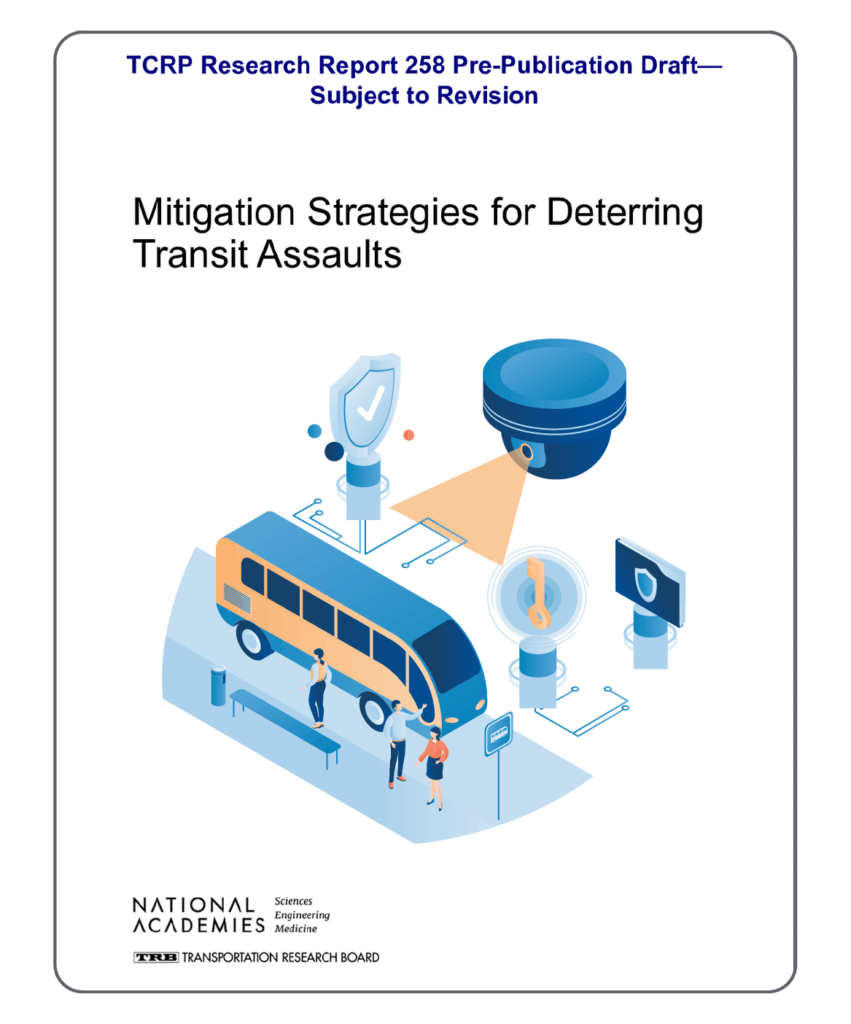
Mitigation Strategies for Deterring Transit Assaults
TCRP Research Report 258: Mitigation Strategies for Deterring Transit Assaults, from TRB’s Transit Cooperative Research Program, equips agencies with practical strategies and evidence-based recommendations to enhance safety and security in the transit environment.
Transit Cooperative Research Program
August 2025
TOPICS: Policy and Planning , Safety and Health , Training
Contributor(s): National Academies of Sciences, Engineering, and Medicine; Transportation Research Board; Transit Cooperative Research Program; Joan G. Hudson; Olivia (Jueyu) Wang; Neal Johnson; Ipek N. Sener; Jiani Guo; Crystal O’Rear; Hanfei Zhang; Mahya Mahdavi; Anastasia Loukaitou-Sideris
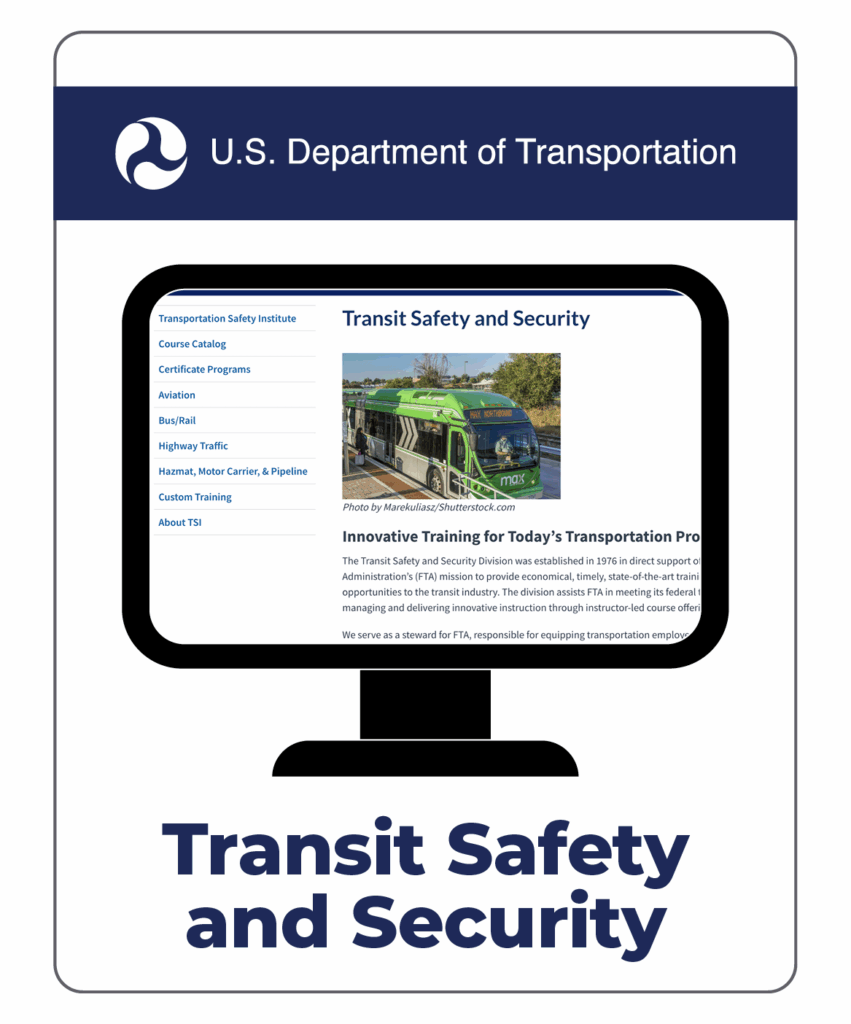
Transit Safety and Security
TSI’s training programs are designed and delivered to provide critical safety and security information, best practices, and regulatory guidance. Upon successful completion of TSI training courses, attendees receive tools and resources which enable participants to enhance the safety and security programs within their respective agency. Course materials are routinely updated to ensure all pertinent regulatory requirements are addressed in each training course.
Transportation Safety Institute
TOPICS: Policy and Planning , Safety and Health , Training
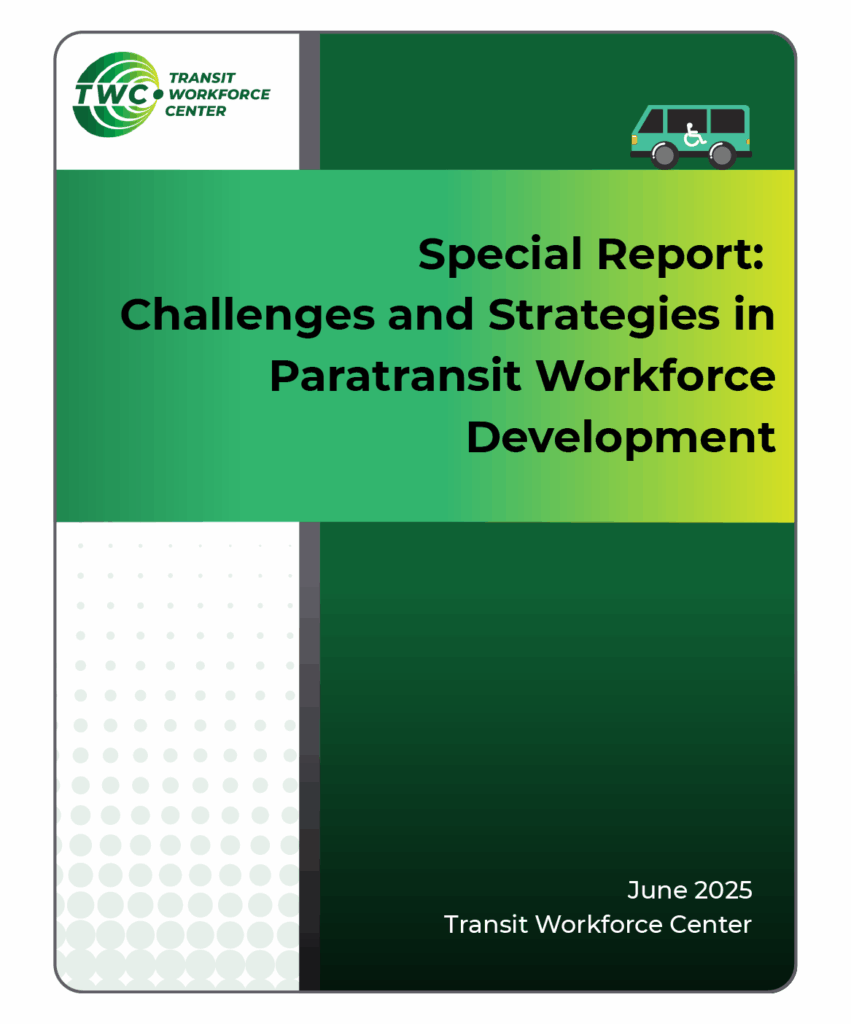
Special Report: Challenges and Strategies in Paratransit Workforce Development
Transit Workforce Center
June 2025
TOPICS: Hiring and Recruitment , Policy and Planning , Retention , Training , Workforce Shortage
Since the passage of the Americans with Disabilities Act (ADA) in 1990, paratransit has been a staple component of public transportation systems across the United States. ADA complementary paratransit provides transportation to people who, because of a disability, cannot use fixed-route service independently. Despite the importance of this mode in the overall health of urban transportation infrastructure, very little research has focused on the development of the paratransit workforce since a seminal 2010 study on paratransit operator recruitment and retention. This report aims to provide a brief update to the 2010 study, focusing not just on operators but on the entire paratransit workforce, including a range of frontline roles. To learn more about the unique workforce challenges of this modal context, as well as what successful strategies paratransit providers have used to combat those challenges, the Transit Workforce Center (TWC) research team conducted interviews involving 22 individuals across 13 paratransit systems in nine states. This report documents our learning from those interviews.
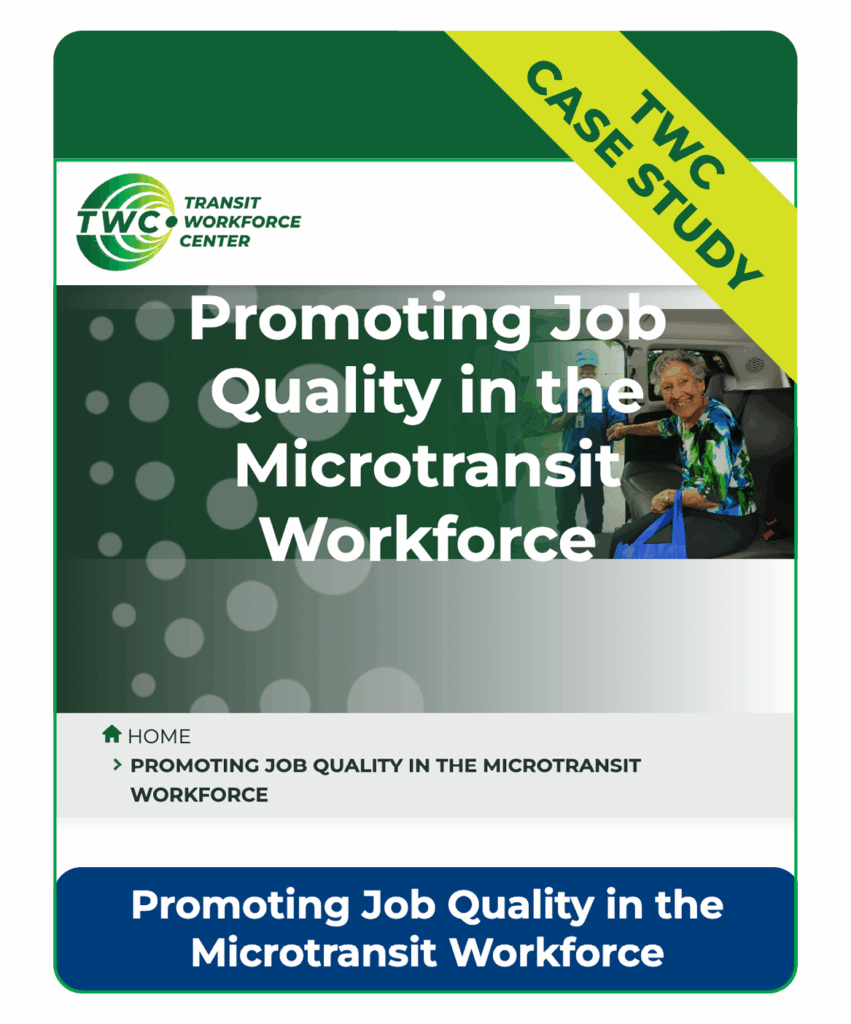
Case Study: Promoting Job Quality in the Microtransit Workforce
Microtransit, a relatively new form of demand response public transportation, is on the rise. TWC’s new set of microtransit case studies provides various perspectives on microtransit that include examples of how it has successfully been provided in-house and with a union-represented workforce. The case studies share experiences from four transit locations that are implementing microtransit service in ways that promote job quality for operators, technicians, and others, while also providing greater control over the quality of the service.
Transit Workforce Center
May 2025
TOPICS: Career Pathways , Hiring and Recruitment , Policy and Planning , Retention , Training
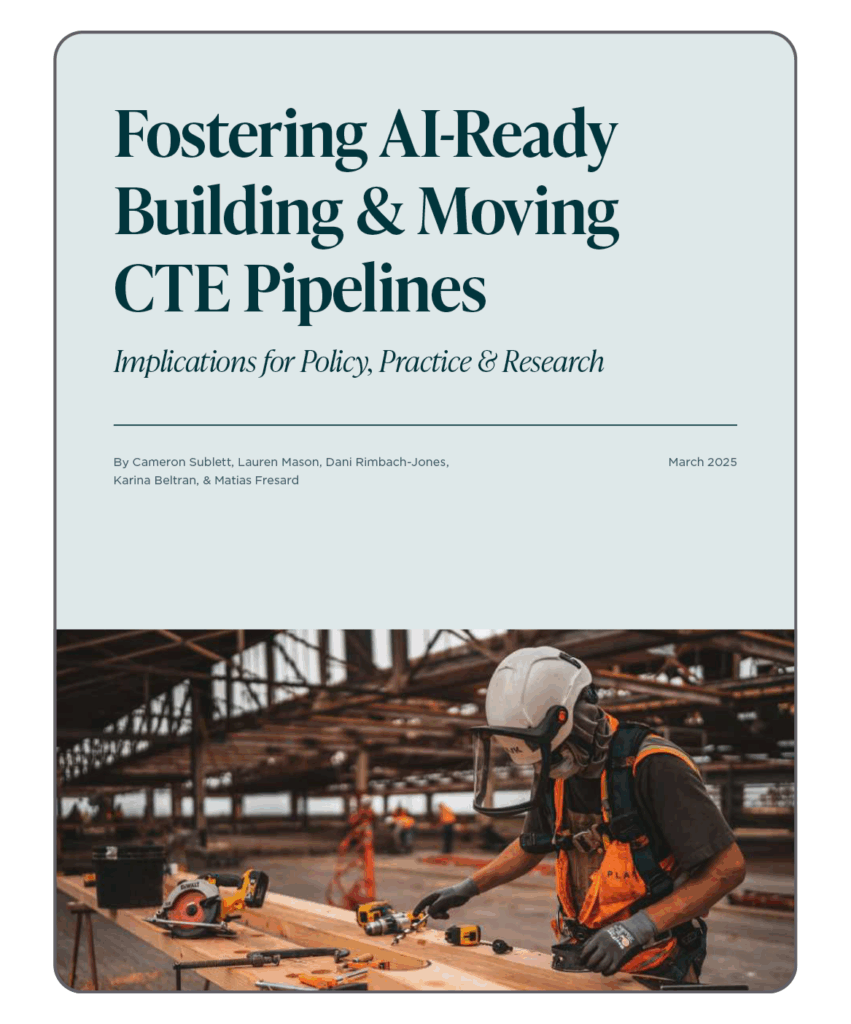
Fostering AI-Ready Building & Moving CTE Pipelines
This report explores how current and projected developments in AI are revolutionizing building and moving occupations, the potential exposure of building and moving occupations to AI-driven workforce automation, and how building and moving career and technical education providers can prepare their learners for a workplace increasingly shaped by AI technologies.
Advance CTE
March 2025
TOPICS: Career Pathways , Policy and Planning , Retention , Training
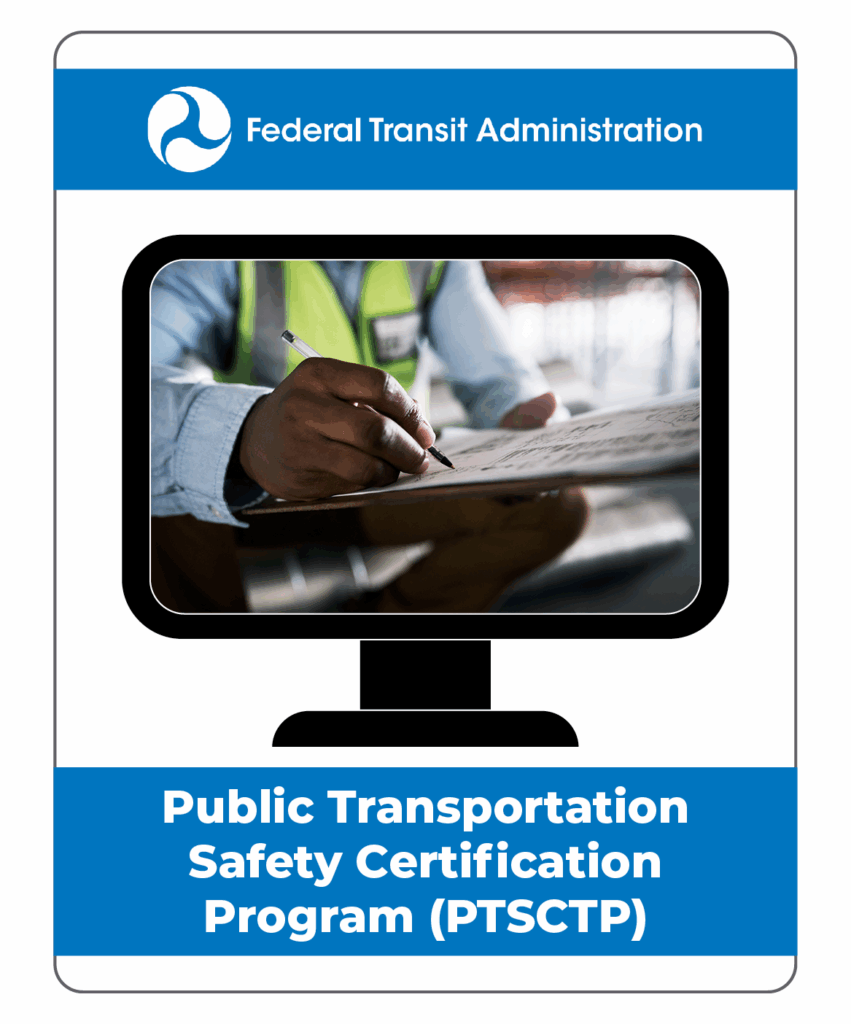
Public Transportation Safety Certification Program (PTSCTP)
U.S. Department of Transportation
February 2025
TOPICS: Safety and Health , Training
The Public Transportation Safety Certification Program, provided by the Transportation Safety Institute (TSI) and supported by the Federal Transit Administration (FTA), covers the minimum requirements to enhance the technical proficiency of safety personnel who work in the rail transit industry. Two groups are required to complete the PTSCTP training:
- State Safety Oversight Agency personnel and contractors who conduct safety audits and examinations of rail transit systems
- Rail transit agency personnel and contractors who are directly responsible for safety oversight
Bus transit agency personnel and contractors who are directly responsible for safety oversight are not required but encouraged to participate in PTSCTP.
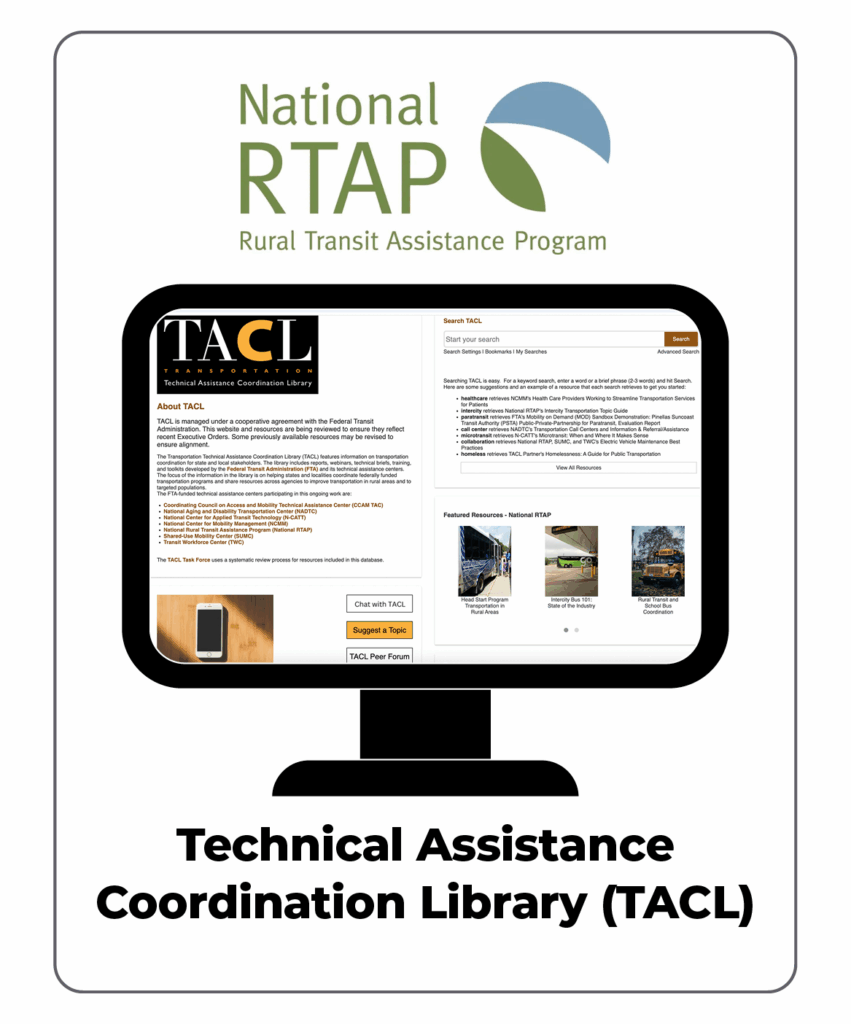
Technical Assistance Coordination Library (TACL)
National Rural Transit Assistance Program
TOPICS: Apprenticeship , Career Pathways , Community Engagement , Hiring and Recruitment , Labor-Management Partnerships , Low-No , Mentorship , Policy and Planning , Procurement , Program Evaluation and ROI , Retention , Safety and Health , Trainer and Mentor Development , Training , Workforce Shortage
Transportation Technical Assistance Coordination Library (TACL)
The Transportation Technical Assistance Coordination Library (TACL) provides a viable methodology and platform for access and findability of rural and tribal transit coordination resources across a broad range of transportation technical assistance centers and the Federal Transit Administration (FTA).
The FTA-funded Technical Assistance (TA) Centers participating in this ongoing work are:
- National Aging and Disability Transportation Center (NADTC)
- National Center for Applied Transit Technology (N-CATT)
- National Center for Mobility Management (NCMM)
- National Rural Transit Assistance Program (National RTAP)
- Shared Use Mobility Center (SUMC)
- Transit Workforce Center (TWC)
The TACL Task Force uses a systematic review process for resources included in the database. New resources will be added on a quarterly basis. Let us know if you would like to serve as a peer reviewer for our resources.
Why was TACL created?
The United States Government Accountability Office (GAO) published Public Transportation: Enhanced Federal Information Sharing on Coordination Could Improve Rural Transit Services in January 2020. GAO recommended that FTA “develop a communication plan that will effectively share information with state and local stakeholders on coordination opportunities in an accessible and informative way.” This effort was created to improve interagency resource coordination between FTA and its five TA Centers.
How can TACL be used?
TACL resources can be used to identify high quality technical assistance on transportation coordination. The resources can be used for research, training, practice, operations, planning, and other purposes. We encourage authors to cite TACL resources.
Ready to get started?
Visit http://transportation-tacl.org. Click on the Training tab at the top for instructions.
If you have a question about TACL, or if you would like to be considered to become a TACL peer reviewer, please contact info@nationalrtap.org
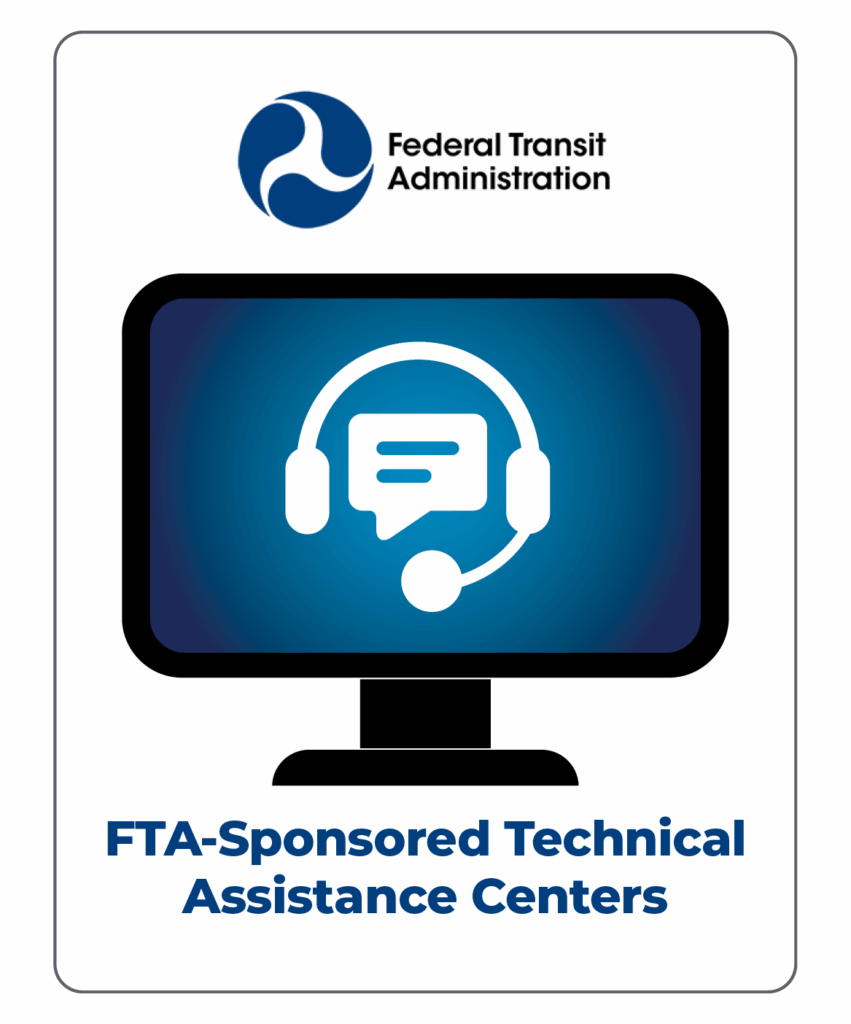
FTA-Sponsored Technical Assistance Centers
Federal Transit Administration
TOPICS: Apprenticeship , Career Pathways , Community Engagement , Hiring and Recruitment , Labor-Management Partnerships , Low-No , Mentorship , Policy and Planning , Procurement , Program Evaluation and ROI , Retention , Safety and Health , Trainer and Mentor Development , Training , Workforce Shortage
FTA’s Technical Assistance and Workforce Development Program (49 U.S.C. § 5314) and the Public Transportation Innovation Program (49 U.S.C. § 5312) fund technical assistance centers through national nonprofit organizations across a number of areas to improve public transportation. These nonprofit partners and the work they do play a critical role in supporting public transit agencies. Their services help to:
- Improve transportation for older adults and people with disabilities
- Drive the adoption of mobility management and related promising practices
- Accelerate innovative mobility practices and strategies
- Support rural communities
- Leverage new transit technologies
- Train the public transit workforce
- Provide workforce development technical assistance
- Support research projects chosen by the transit industry that address day to day issues
- Support the transit industry meet safety regulations
National Center for Applied Transit Technology (N-CATT)
The National Center for Applied Transit Technology (N-CATT) delivers expert, focused technical assistance to transit agencies and organizations in rural areas and small cities to use or develop transit technologies and innovations that make services more cost-effective and efficient. N-CATT’s work supports FTA’s mission and focus on innovation by developing and supporting transit programs and services in rural and small-city America.
National Aging and Disability Transportation Center (NADTC)
The National Aging and Disability Transportation Center (NADTC) is a national technical assistance center funded by FTA with guidance from the U.S. Department of Health and Human Services’ Administration for Community Living to promote the availability of transportation options that serve the needs of people with disabilities, seniors and caregivers with a focus on the Section 5310 program and other transit investments. NADTC supports the delivery of more effective, efficient, high-quality and coordinated specialized transportation services that maximize federal investments. NADTC provides technical assistance, information and referral; develops field training; implements interactive communication and outreach strategies; and supports communities in assessing their needs and developing innovative transportation solutions.
National Rural Transit Assistance Program (National RTAP)
The National Rural Transportation Assistance Program (RTAP) was established by FTA in 1987 to provide a wide range of professional services and products. National RTAP addresses the training and technical assistance needs of rural and tribal transit programs across the nation and supports state RTAP programs. National RTAP provides comprehensive free technical assistance programs and resources including training materials, webinars, newsletters and technical briefs, peer resources, research, and innovative technology initiatives. The National RTAP also manages the Transportation Technical Assistance Coordination Library (TACL), which provides a sustainable methodology and platform to access resources across a diverse range of transportation technical assistance centers and FTA.
Shared-Use Mobility Center (SUMC)
The Shared-Use Mobility Center is a public-interest organization dedicated to achieving equitable, affordable, and environmentally sound mobility across the US through the efficient sharing of transportation assets. By connecting the public and private sectors, piloting programs, conducting new research, and providing policy and technical expertise to cities and regions, SUMC seeks to extend the benefits of shared mobility for all. The Shared Mobility 2030 Action agenda includes improving access to public transit, on-demand shuttles or buses, ride-on-demand services, carpooling and vanpooling, and carsharing, bikesharing and scooter-sharing.
Coordinating Council on Access and Mobility (CCAM)
The strategic goal of CCAM, operated but the Community Transportation Association of America, is to support federal agencies, their grantees, partners, and stakeholders in improving transportation access for people with disabilities, older adults, and individuals of low income. CCAM promotes and facilitates human services transportation, public transit, and non-emergency medical transportation (NEMT) coordination that advances people’s access to everyday destinations.
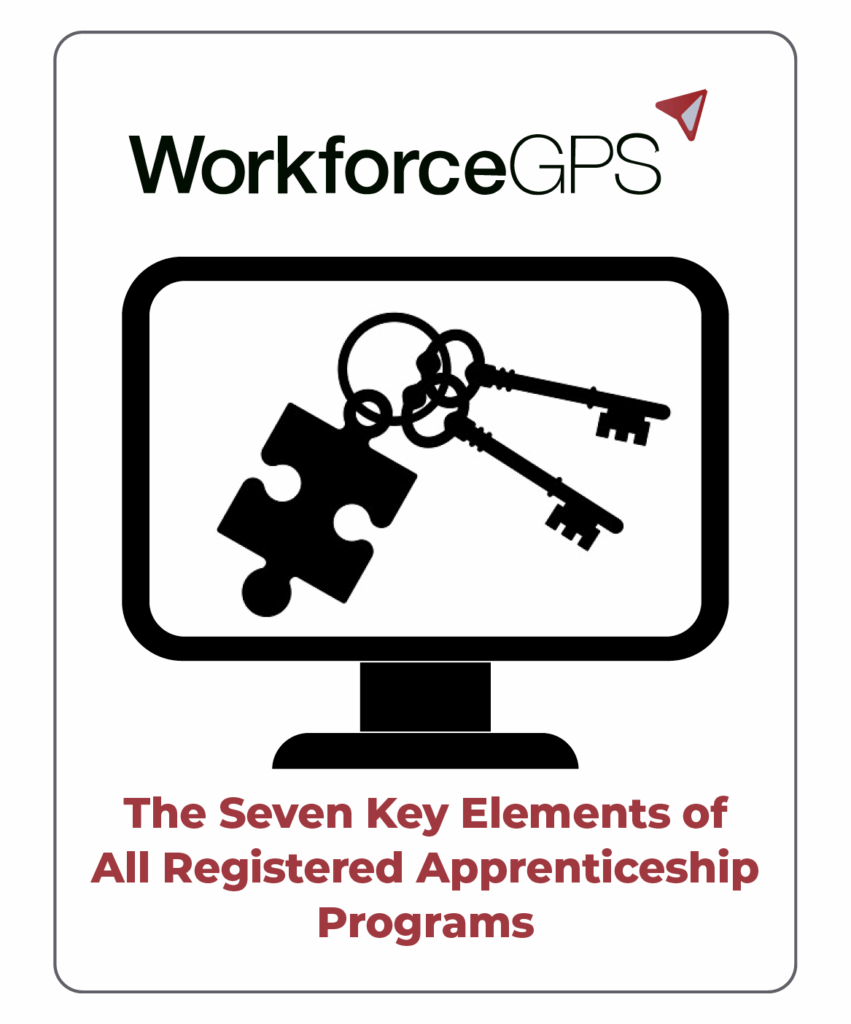
The Seven Key Elements of All Registered Apprenticeship Programs
Workforce GPS
January 2025
TOPICS: Apprenticeship , Career Pathways , Trainer and Mentor Development , Training
Registered Apprenticeship is an industry-driven pathway to high-quality careers where employers can develop and prepare their future workforce, and individuals can obtain paid work experience; progressive wage increases; classroom instruction; and a portable, nationally recognized credential. The U.S. Department of Labor recently updated the way we describe Registered Apprenticeship Programs to reflect the worker safety elements embedded in those programs.
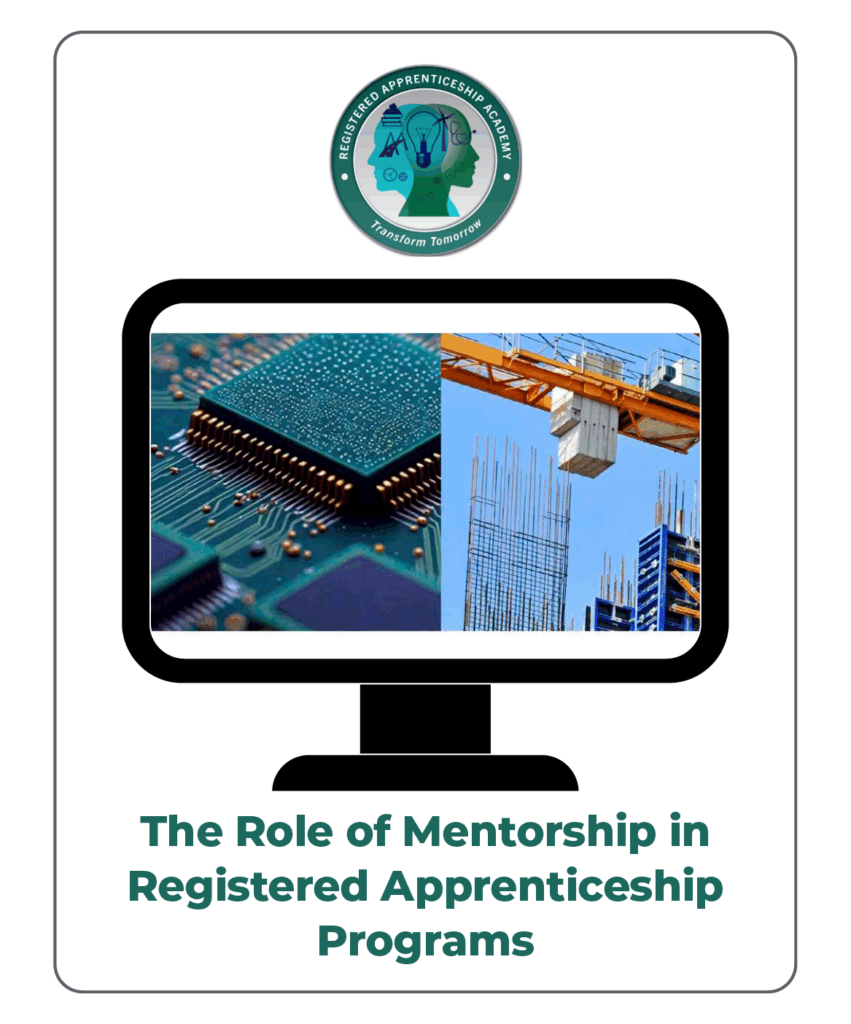
The Role of Mentorship in Registered Apprenticeship Programs
Registered Apprenticeship Academy
January 2025
TOPICS: Apprenticeship , Mentorship , Trainer and Mentor Development , Training
This E-learning module introduces how mentorship is essential to registered apprenticeship programs. Best practices for selecting, training, and supporting mentors are included to support registered apprenticeship program sponsors and participating employers. The objectives for this course are:
- Identify the responsibilities of sponsors to provide mentorship.
- Describe the role of mentors.
- Recognize why mentorship is important to a successful registered apprenticeship program.
- Employ strategies for mentorship to create a culture of support and guidance for workers throughout their registered apprenticeship.
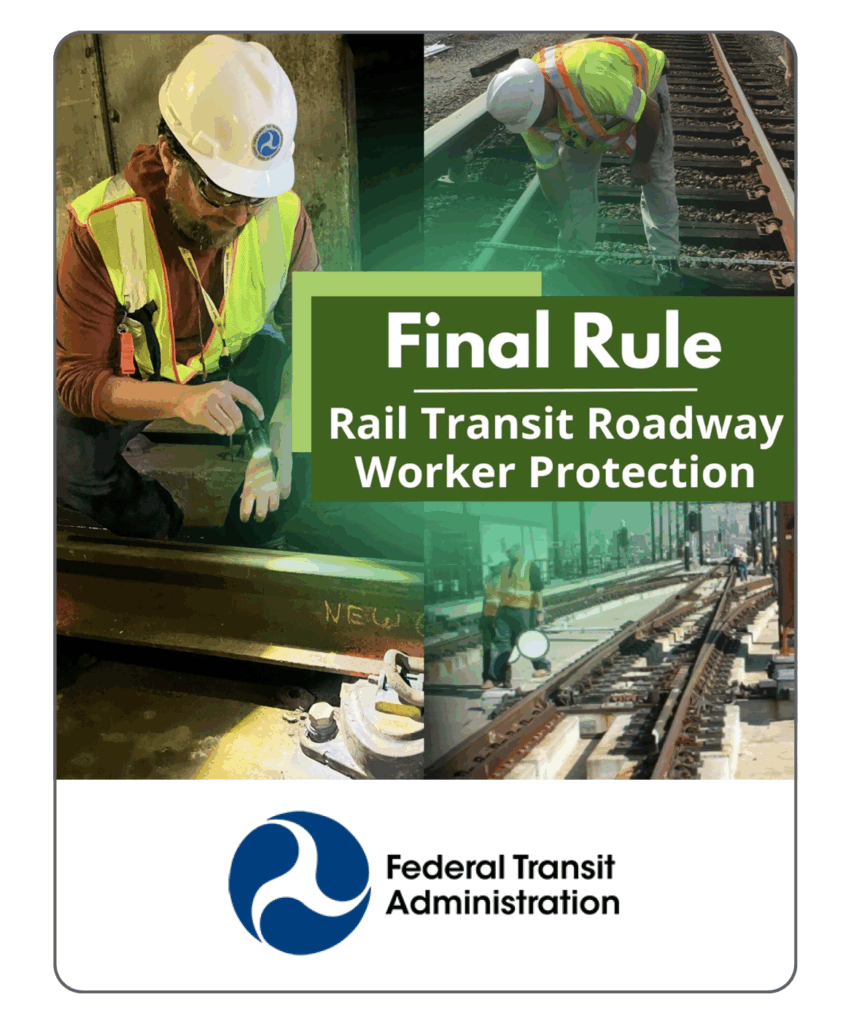
Rail Transit Roadway Worker Protection
The Rail Transit Roadway Worker Protection (RWP) regulation establishes minimum standards to ensure the safe operation of public transportation systems and prevent injuries and fatalities for transit workers. Rail transit agencies nationwide are required to create programs and processes that focus on safety for workers who work on or near the rails in an area known as the track roadway. This page explains the regulation, answers frequently answered questions, and provides additional resources.
Federal Transit Administration
January 2025
TOPICS: Policy and Planning , Safety and Health , Training
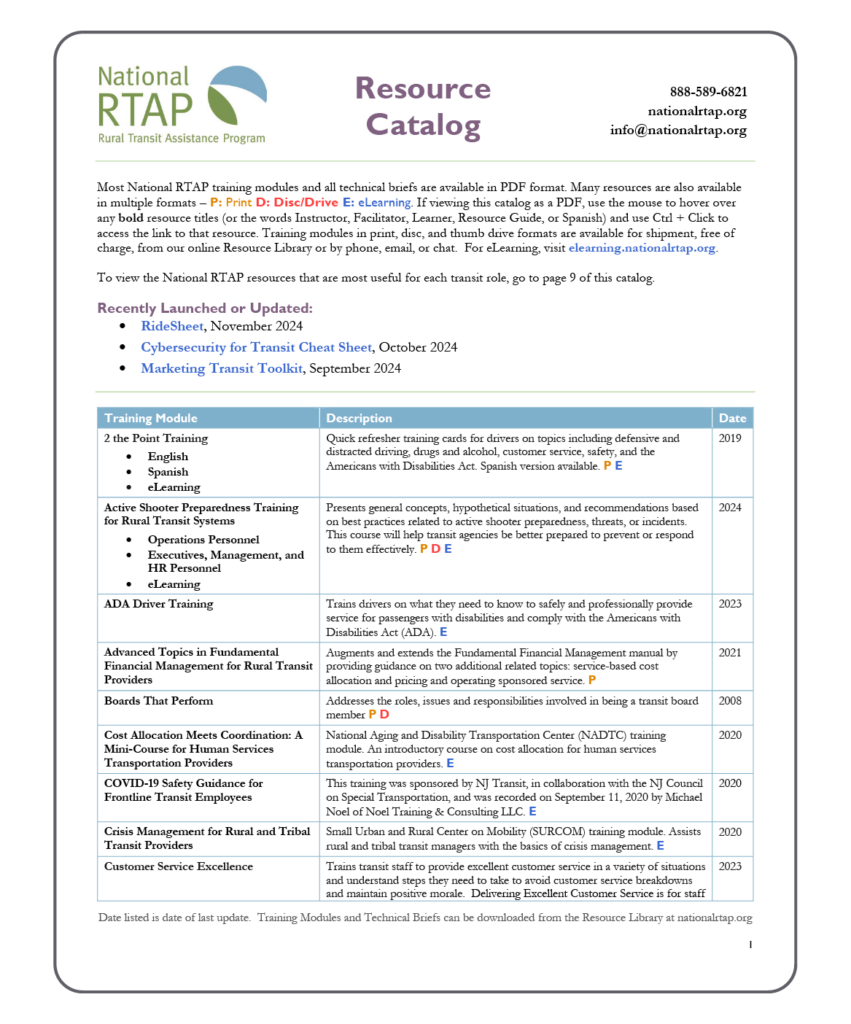
National RTAP Resource Catalogue
The National Rural Transit Assistance Program (National RTAP) aims to address the training and technical assistance needs of rural and tribal transit operators across the nation. They provide free technical assistance programs and resources including training materials, webinars, newsletters and technical briefs, peer resources, research, and innovative technology initiatives. This Resource Catalogue details all products available for ordering or online use.
National RTAP
TOPICS: Policy and Planning , Safety and Health , Training
Check out some trainings that may be most useful for transit frontline workers:
- Safety
- Active Shooter Preparedness Training for Rural Transit Systems
- COVID-19 Safety Guidelines for Frontline Transit Employees
- Emergency Procedures for Rural Transit Drivers
- Problem Passengers: Managing Difficult Passengers & Situations
- START (Safety Training & Rural Transit) Training
- Substance Abuse Awareness Training for Employees
- Transit and Human Trafficking
- Drivers/Dispatchers
- 2 the Point Training (available in Spanish)
- ADA Driver Training
- Customer Service Excellence
- Customer Service for Rural and Tribal Transit Providers
- Dispatching and Scheduling Training for Rural Transit Systems
- Essential Skills for Trainers
- Essential Spanish for Rural Transit
- HR
- HR Training Shorts on Employee Recognition, Interview Questions, Onboarding, and Performance Appraisals
Check out some technical briefs and toolkits relevant to the frontline transit workforce:
- Safety
- Coronavirus Disease 2019 (COVID-19): Information and Resources for Transit
- Healthy Habits: Reducing Stress and Fatigue and Increasing your Energy
- Incident and Injury Report Form
- Responding to Transit Incidents
- Seasonal Flu: Information and Resources
- Substance Abuse Awareness Training, Testing, and Compliance
- Threat and Vulnerability Toolkit
- Trainers
- Bus Roadeo Toolkit
- Training Adult Learners: How to Reach and Engage Your Audience
- Drivers/Dispatchers
- Customer Service in Rural Transit: How to Identify and Meet Customer Needs
- Emergency Response Checklist: After Normal Operating Hours & Emergency Response Checklist: During Normal Operating Hours
- Entry-Level Driver Training Requirements
- Essential Spanish for Rural Transit
- Mobile Driver Training Simulators
- HR
- Applying Good Business Practices: Hiring, Training and Evaluating Employees
Offerings as of January 2025
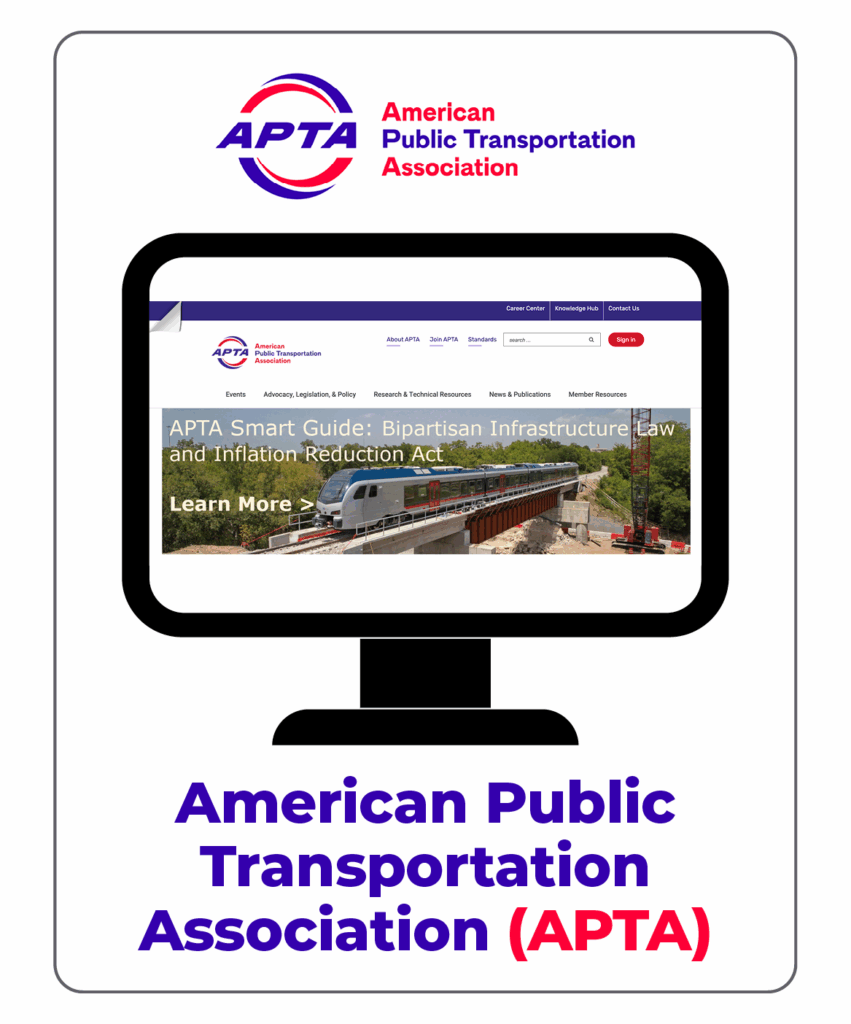
American Public Transportation Association (APTA)
APTA is a nonprofit international association of more than 1,500 public and private sector member organizations. Organizations must pay for membership; benefits include advocacy for federal funding and policies, research, technical expertise and consulting services, workforce development programs, educational conferences and seminars, and 135 subject-matter working committees, including a workforce development committee
American Public Transportation Association
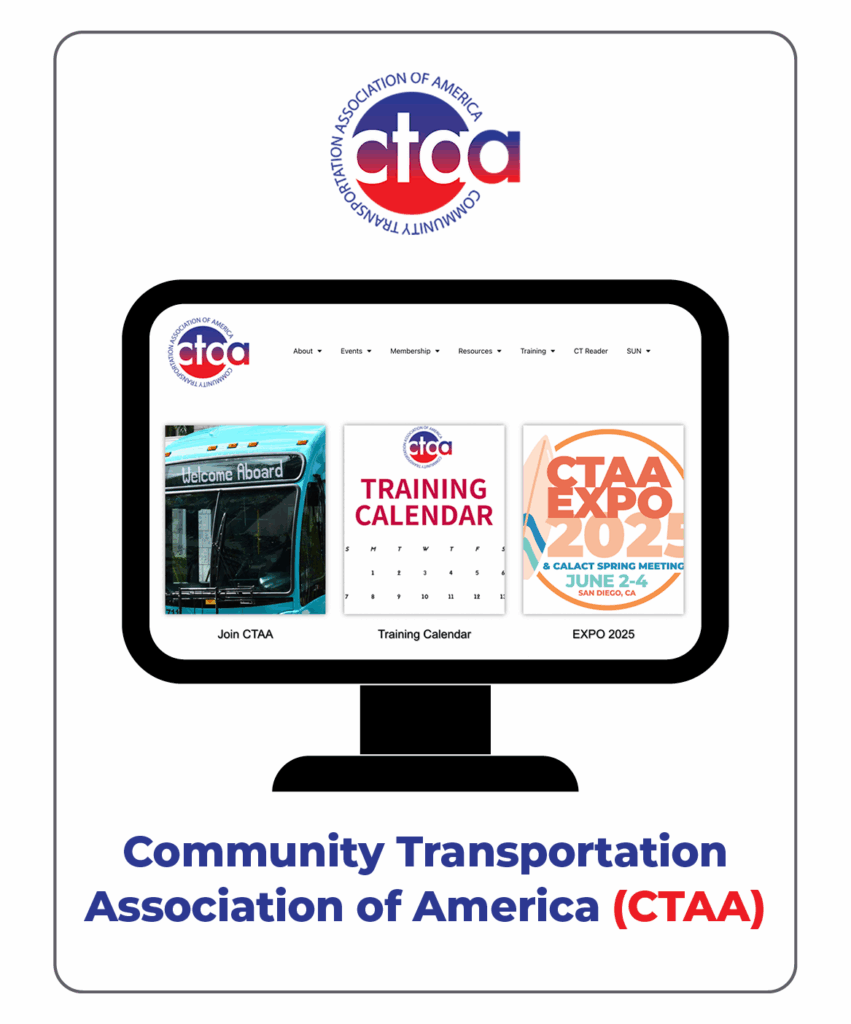
Community Transportation Association of America (CTAA)
CTAA is a nationally recognized expert in rural, small urban, tribal and specialized transportation services. Founded by a small group of community transportation professionals in 1989, organizations and individuals have joined CTAA as members to share strategies, receive training and certification specific to their needs, advance policy and legislative priorities, and improve mobility options in their communities.
Community Transportation Association of America
CTAA members get discounted access to all CTAA training and certification programs – including the annual Community Transportation EXPO and other CTAA Events – and help set the training and certification class agenda with opportunities to suggest and develop new courses and sessions.
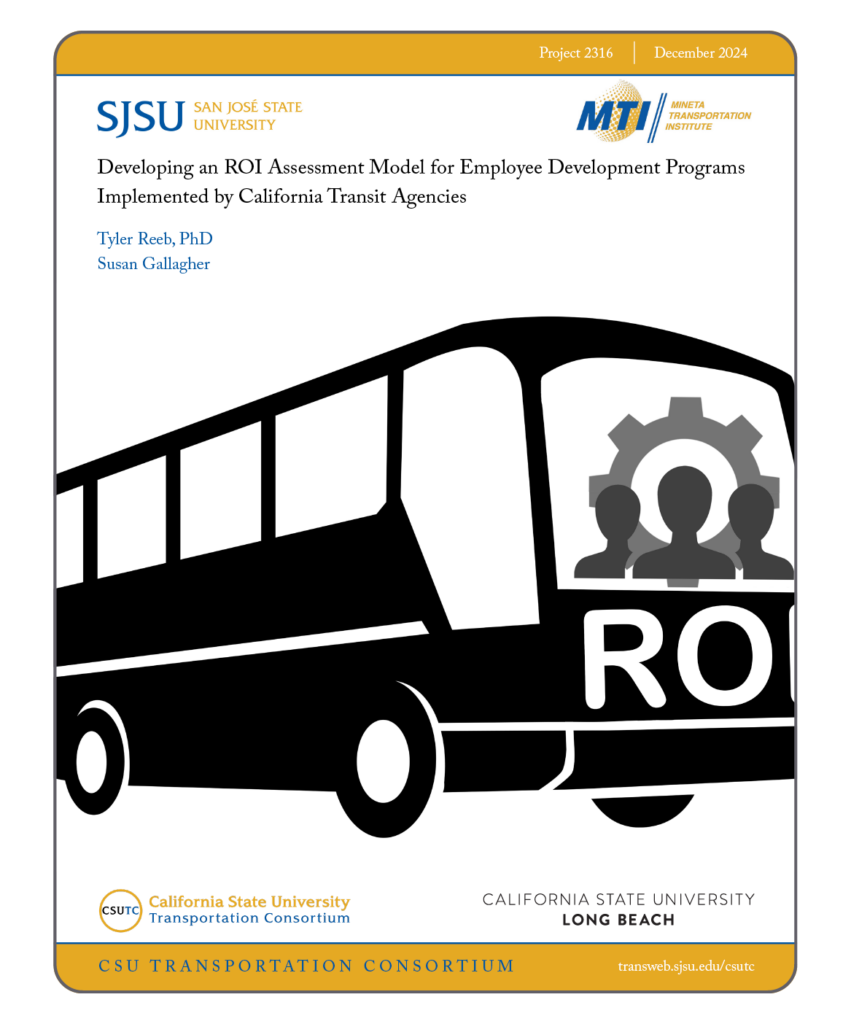
Developing an ROI Assessment Model for Employee Development Programs Implemented by California Transit Agencies
Mineta Transportation Institute (MTI)
December 2024
Transit agencies will necessarily incur expenses in efforts to improve the recruitment, retention, and morale of employees, but will struggle to solicit adequate funding unless they are able to demonstrate the value of such efforts to a broader audience. Thus, developing and implementing ROI assessments is critical. The literature review, survey, and follow-up interviews conducted by the MTI research team found that program outcome measures and programmatic expense data required for ROI is similar across employee development programs but is not currently being uniformly collected across agencies. The research findings demonstrate the need for technical assistance to combat data collection challenges such as staff capacity and know-how.
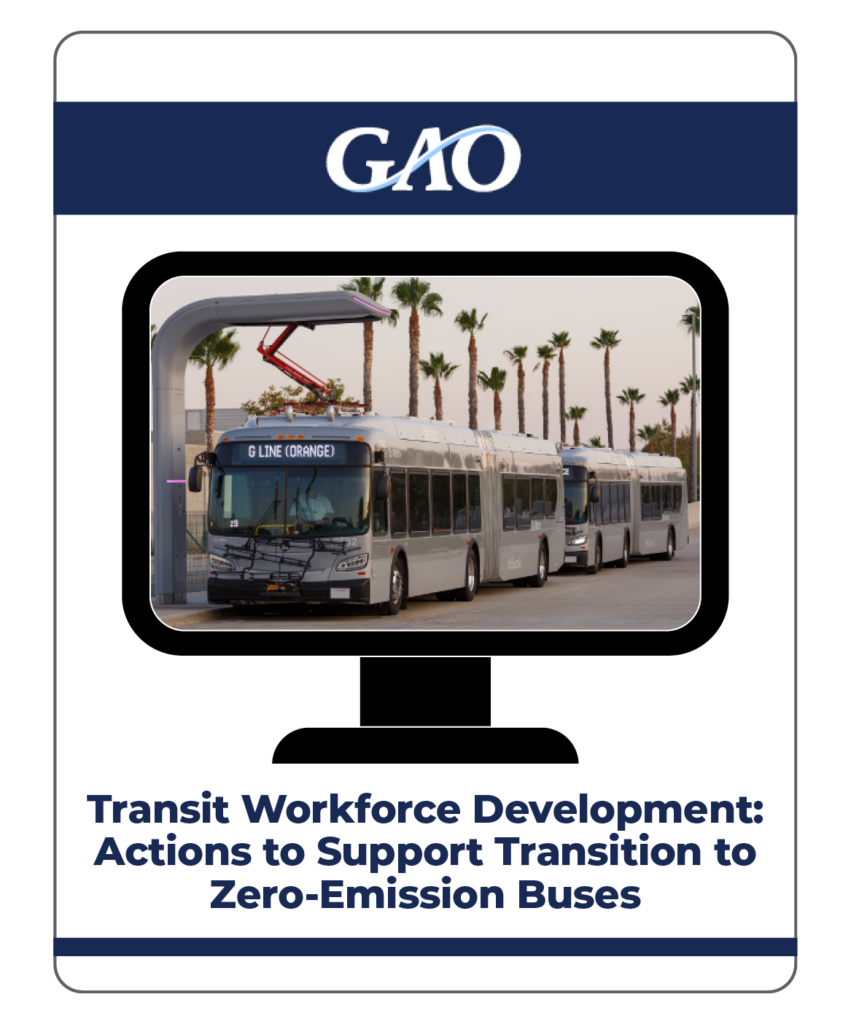
GAO Low-No Transition Report
U.S. Government Accountability Office
December 2024
After data analysis and expert interviews, GAO published this report which describes: (1) the status of transit agencies’ transition to low-no bus fleets and any challenges they may face meeting transition goals; (2) skill- and workforce-development needs of transit agencies and actions selected agencies are taking to address any workforce gaps; and (3) recommended FTA actions to assist transit agencies in preparing their workforces new fuel technologies.
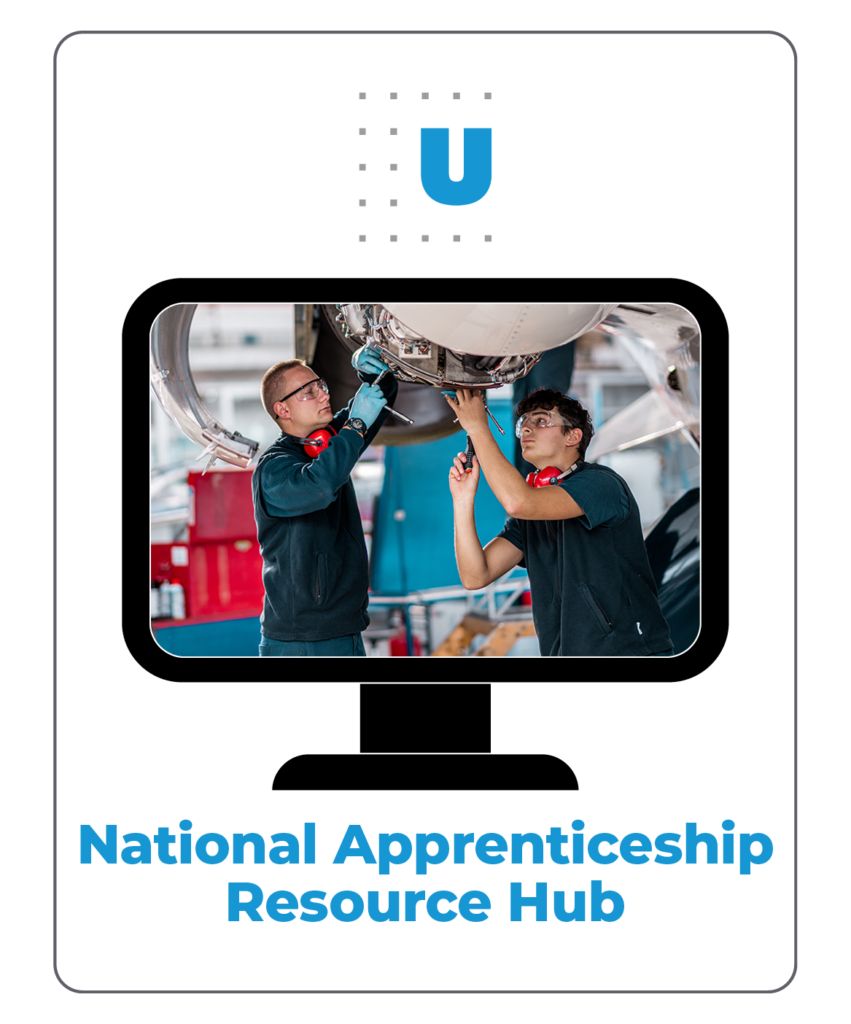
National Apprenticeship Resource Hub
The Urban Institute
December 2024
TOPICS: Apprenticeship , Career Pathways , Trainer and Mentor Development , Training
The National Apprenticeship Resource Hub includes Occupational Frameworks which can help develop a new apprenticeship program or refine an existing program. Each framework outlines the basic information sponsors need to register an apprenticeship program in their occupation including an occupational overview that describes the occupation, alternative job titles, and any prerequisites; a work process schedule that outlines what organizations can expect apprentices to learn on the job and the required hours; and a related technical instruction outline that presents considerations for courses and training apprentices can pursue during the apprenticeship. The National Occupational Frameworks also include detailed instructions on how to use them when creating your registration application.
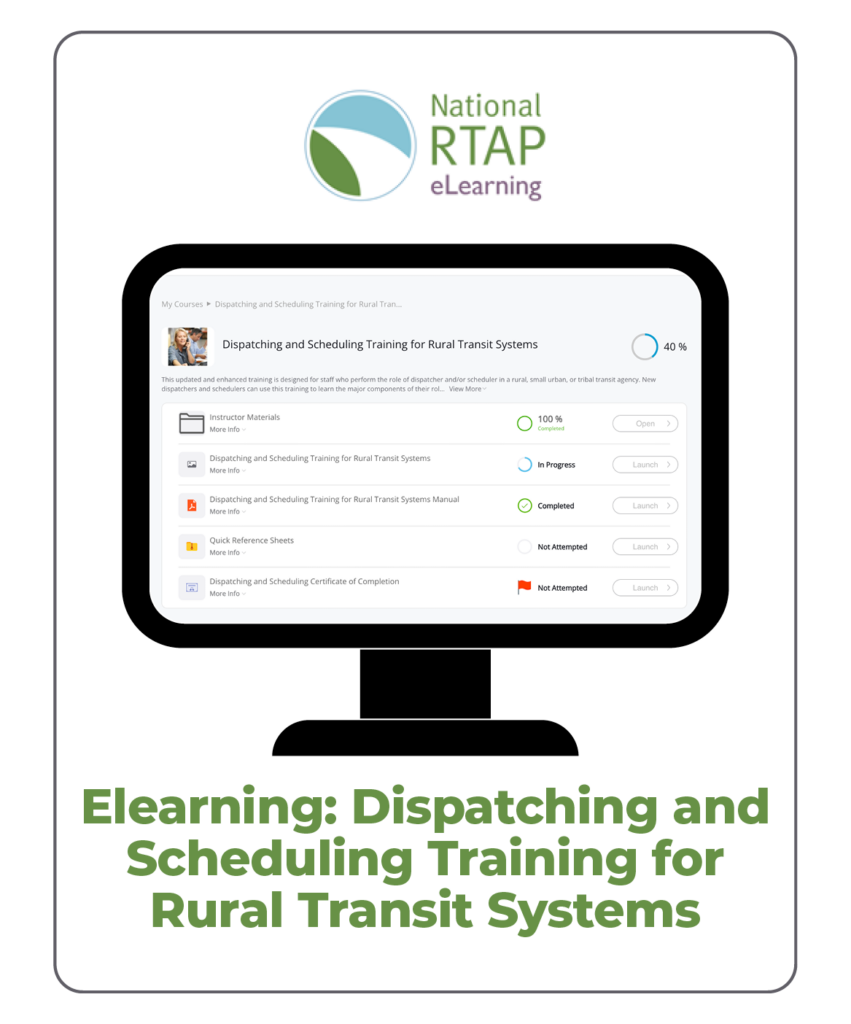
Elearning: Dispatching and Scheduling Training for Rural Transit Systems
National RTAP
December 2024
TOPICS: Training
This online training is designed for staff who perform the role of dispatcher and/or scheduler in a rural, small urban, or tribal transit agency. New dispatchers and schedulers can use this training to learn the major components of their roles. Seasoned dispatchers and schedulers can also use the training for refreshing their skills.
The entire eLearning course takes approximately 4 hours and covers the topics listed below:
- Working in a Transit Environment
- Transit Service Types
- Americans with Disabilities Act
- Essential Communication Skills
- Customer Service
- Role of the Dispatcher
- Role of the Scheduler
- Use of Technology
- Working as a Transit Team
- Responding to Transit Incidents
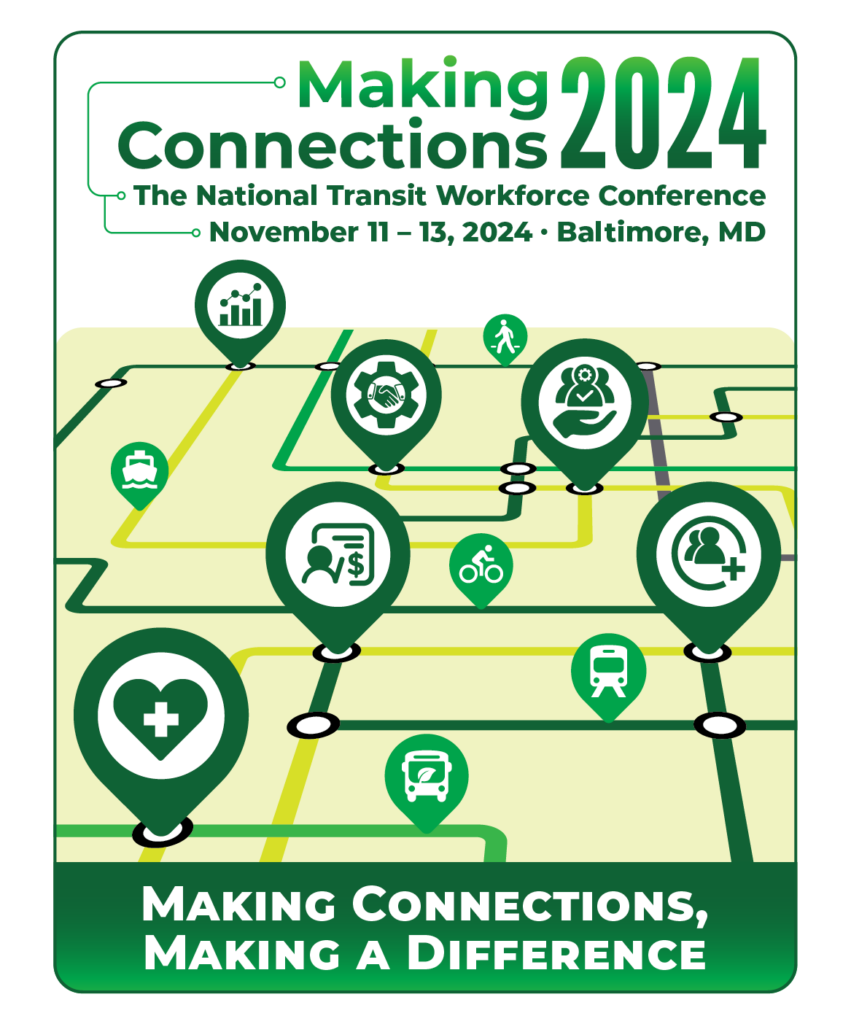
Making Connections 2024 – Conflict Resolution and De-escalation – Models for Operator Training
This session about conflict resolution and de-escalation was presented as part of TWC’s Making Connections 2024 transit workforce conference in November, 2024.
Transit Workforce Center
November 2024
TOPICS: Making Connections Conference , Safety and Health , Training
Session Description: De-escalation, conflict avoidance, and conflict resolution are integral to an operator’s job. Operators primarily work alone, and the driver’s seat is an extremely vulnerable position. In this session, we honestly and productively explored the ways in which operators can deal with all manner of attacks, physical and verbal, and analyzed approaches to address the range of challenges that come with this profession. Presenters discussed different training models used to support operators with their challenges and engaged with the audience in considering options that can make a positive impact.
Moderator:
- Maurice Beard: Senior Workforce Development Advisor – International Transportation Learning Center / Transit Workforce Center
Speakers:
- Jamaine “G” Gibson: Director of Apprenticeships and Workforce Development – Amalgamated Transit Union
- Tricia Prince: Safety and Training Manager – Chattanooga Area Regional Transportation Authority
- Lakecha Strickland: President – Amalgamated Transit Union Local 1212 (TN)
- Melissa Thomas: Transportation Training Manager – Central Ohio Transit Authority (COTA)
- Lisa Rae Vickery: Deputy Director of Operations Development – Santa Clara Valley Transportation Authority

Making Connections 2024 – The College Connection: Strategies for Effective Partnerships
This session about partnerships between transit and local colleges was presented as part of TWC’s Making Connections 2024 transit workforce conference in November, 2024.
Transit Workforce Center
November 2024
Session Description: Strong partnerships between transit and local colleges across the country currently support recruitment, retention, apprenticeships and other career advancement initiatives developed by agencies and their workforce partners. Presenters in this session reviewed and discussed several different models of industry-education partnerships, focusing on how to establish productive working relationships with local colleges to advance workforce development goals.
Moderator:
- Patricia Greenfield: Senior Director, Workforce Education – International Transportation Learning Center / Transit Workforce Center
Speakers:
- Jamaine “G” Gibson: Director of Apprenticeships and Workforce Development – Amalgamated Transit Union
- Jason Abbott: Executive Director, Workforce Operations – Cuyahoga Community College
- Celeste Chavis: Interim Chair and Professor, Transportation & Urban Infrastructure Studies – Morgan State University (Baltimore)
- Rich Diaz: Workforce Development Coordinator – Amalgamated Transit Union Local 1575
- Rob Gamble: Sr Workforce and Academic Strategist – California Transit Works!

Making Connections 2024 – Foundational Skills for Successful Career Pathways in a Changing Industry
This session about career pathways was presented as part of TWC’s Making Connections 2024 transit workforce conference in November, 2024.
Transit Workforce Center
November 2024
Session Description: In this engaging session attendees explored strategies for bridging the skills gaps of new hires and heard from presenters as they shared how they identified critical needs and implemented solutions. Participants took part in a working group to provide feedback on national resources being developed in key areas such as mechanical, electrical, computer skills, shop math, and technical writing.
Moderator:
- Kristen Ribaudo: Senior Instructional Designer – International Transportation Learning Center / Transit Workforce Center
Speakers:
- Michael Hanssen: Supervisor of Technical Skills Training Washington – Metropolitan Area Transit Authority
- Ona Veda: Manager, Rail Training and Development – Metro Transit (MN)

Making Connections 2024 – How Do Technicians Learn? Exploring Successful Approaches for Developing Skills
This session about training transit technicians was presented as part of TWC’s Making Connections 2024 transit workforce conference in November, 2024.
Transit Workforce Center
November 2024
TOPICS: Apprenticeship , Low-No , Making Connections Conference , Mentorship , Training
Session Description: This session delved into the most effective methods for training technicians to maintain today’s fleets of complex technology. We focused on proven strategies, such as starting with the fundamentals and progressing to hands-on training. Additionally, we discussed the value of mentorship and apprenticeship to facilitate the retention of the trained frontline workforce.
Moderator:
- Jason Macumber: Senior Advisor of Workforce Development and Technology – International Transportation Learning Center / Transit Workforce Center
Speakers:
- Russell Anderson: Director Bus Maintenance Training – California Transit Works!
- Staci Hanna: Maintenance Training Manager – TriMet
- Brian Markey: Chief Executive Officer – Custom Training Aids Inc.

Making Connections 2024 – Integrating AI into Training Design and Development
This session about applications of artificial intelligence in training and development efforts was presented as part of TWC’s Making Connections 2024 transit workforce conference in November, 2024.
Transit Workforce Center
November 2024
TOPICS: Making Connections Conference , Policy and Planning , Training
Session Description: In this workshop, participants explored how Artificial Intelligence (AI) can revolutionize training and development efforts. We explored practical applications of AI throughout the ADDIE model and advanced usages of AI for helping trainers synthesize information from large datasets. Attendees also learned about the ethical considerations surrounding AI in training and how to effectively use AI tools by improving prompt engineering to craft content.
Moderator:
- Arnett Powell: Adjunct Instructional Designer – International Transportation Learning Center / Transit Workforce Center
Speakers:
- Addie Khanu: Instructional Designer – International Transportation Learning Center / Transit Workforce Center
- Jeff Pratt: Manager of Training – Bi-State Development/Metro Transit (St. Louis)
- Michael Tomlinson: Solution Architect – Xpan
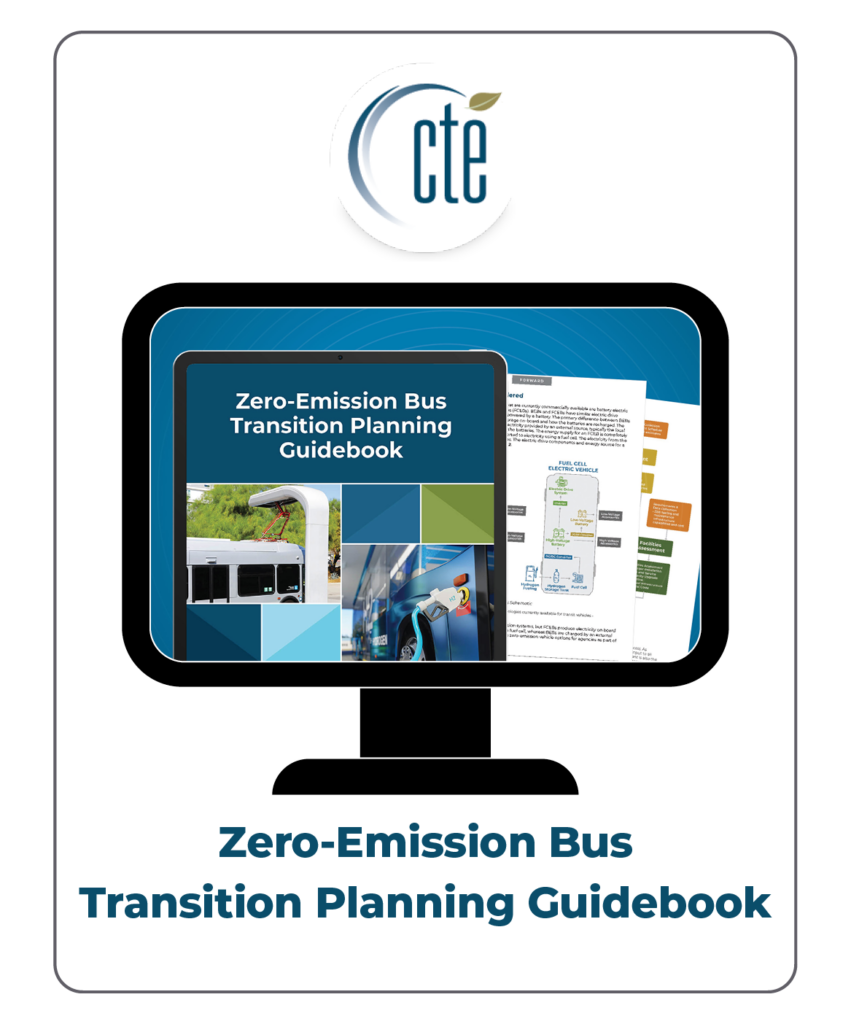
Low-No Bus Transition Planning Guidebook
The Center for Transportation and the Environment
November 2024
TOPICS: Low-No , Policy and Planning , Procurement , Training
Transitioning to a ZEB fleet requires thorough planning and consideration of the elements that are unique to ZEBs, such as range limitations, higher vehicle costs, charging and/or hydrogen infrastructure, and operator and maintenance workforce development. Failing to plan around these issues may result in added costs for bus and infrastructure purchases, project delays, service concerns, and operational challenges as low-no become a larger and larger portion of the fleet.
A properly developed Low-No Transition Plan can help overcome these challenges. This Guidebook is intended to give public transit fleet operators the knowledge necessary to plan for a full fleet transition to low-no technologies.

Making Connections 2024 – Plan, Train, Succeed: Building Your Low-No Workforce Transition Strategy
This session about transitioning the transit workforce to low-no vehicles was presented as part of TWC’s Making Connections 2024 transit workforce conference in November, 2024.
Transit Workforce Center
November 2024
TOPICS: Low-No , Making Connections Conference , Policy and Planning , Training
Session Description: As the transit industry accelerates toward new fuel technologies, a comprehensive workforce strategy is essential for a successful transition. This session focused on creating effective plans for workforce development, implementing targeted training programs with an emphasis on safety, and ensuring long-term success in transitioning to new fuels. Attendees learned about applied research, innovative training solutions, and technical assistance designed to help transit agencies develop a skilled workforce equipped to support new technologies.
Moderator:
- Jason Macumber: Senior Advisor of Workforce Development and Technology – International Transportation Learning Center / Transit Workforce Center
Speakers:
- Eliseo Acosta Jr: Workforce Development Coordinator – Amalgamated Transit Union
- Mark Finnicum: Chief Operation Officer – Stark Area Regional Transit Authority
- Molly King: Deputy Associate Administrator for Research, Demonstration, and Innovation – Federal Transit Administration
- Jennifer Sweten: Director of Operations – Missoula Urban Transportation District
- Billy Terry: Director – National Transit Institute (NTI)

Making Connections 2024 – Engaging and Interactive Training Strategies
This session about innovative and engaging training methods was presented as part of TWC’s Making Connections 2024 transit workforce conference in November, 2024.
Transit Workforce Center
November 2024
Session Description: This session was designed to enhance learner engagement by utilizing interactive learning techniques. Through a discussion led by a panel of seasoned instructional designers from varied backgrounds, the workshop demonstrated how to translate material into engaging activities through the use of storytelling, gamification, and real-world problem-solving exercises. Additionally, the workshop showcased a blend of traditional methods and innovative technology tools to create learner-centered instructional experiences that promote critical thinking, problem-solving, and collaboration through group work and discussions.
Speakers:
- Julie Deibel-Pundt: Program Director, Instructional Design – International Transportation Learning Center / Transit Workforce Center
- Frank Burnett: Training Specialist – International Transportation Learning Center / Transit Workforce Center
- Allie Franklyn: Instructional Designer – International Transportation Learning Center / Transit Workforce Center
- Kristen Ribaudo: Senior Instructional Designer – International Transportation Learning Center / Transit Workforce Center

Making Connections 2024 – Identifying Training Needs, Assessing Workforce Skills Gaps, and Creating Strong Training Programs
This session about assessing training needs and workforce skills gaps was presented as part of TWC’s Making Connections 2024 transit workforce conference in November, 2024.
Transit Workforce Center
November 2024
Session Description: Participants explored effective methods for identifying training needs and assessing workforce skills gaps to develop robust training programs, all in the context of ensuring worker voice and involvement. The session covered tools and techniques for evaluating current training needs for frontline workers, identified areas for improvement, and aligned training strategies with organizational goals. Attendees learned how to use data-driven approaches to map out training priorities that address immediate operational needs and long-term workforce development.
Moderators:
- Kristen Ribaudo: Senior Instructional Designer – International Transportation Learning Center / Transit Workforce Center
- Stu Bass: Principal – Progress Worx; Founding Director – Keystone Development Partnership
Speakers:
- Jeffrey Di Perna: Financial Secretary/Treasurer – Amalgamated Transit Union Local 85 (PA)
- Jason Macumber: Senior Advisor of Workforce Development and Technology – International Transportation Learning Center / Transit Workforce Center

Making Connections 2024 – Navigating the Future: Empowering Transit Workers in the Age of AI and Automation
This session about AI and automation in transit was presented as part of TWC’s Making Connections 2024 transit workforce conference in November, 2024.
Transit Workforce Center
November 2024
Session Description: This dynamic workshop focused on the empowerment and upskilling of frontline transit workers in the face of rapidly evolving technologies of AI and automated vehicles (AV). The session explored innovative projects with industry and academic experts on co-designing and co-implementing AV technologies with deep involvement of transit frontline workers and discussed the importance of equipping workers with essential digital skills and knowledge in AI and AV. We examined strategies for the government, employers, and labor collaboration to ensure these emerging technologies serve as tool for worker empowerment and for improving worker safety and health, rather than causing displacement.
Moderator:
- Brooke DeRenzis: Chief Strategy Officer – National Skills Coalition
Speakers:
- Kimberly Cosby: Strategic Policy Advisor – Technology Institute, AFL-CIO
- Sarah Fox: Assistant Professor – Carnegie Mellon University
- John Lyons: Director of Collective Bargaining – Amalgamated Transit Union
- Arjan Van Andel: Strategy and Innovation Director – GIRO
- Michael Walk: Research Scientist and Program Manager – Transit Mobility Program, Texas A&M Transportation Institute

Making Connections 2024 – Successful Models for Career Awareness, Outreach, and Recruitment in Our Varied Communities
This session about national and agency-level workforce datasets was presented as part of TWC’s Making Connections 2024 transit workforce conference in November, 2024.
Transit Workforce Center
November 2024
Session Description: Consistent with FTA’s strategic goal of driving workforce recruitment, this session explored successful models and strategies for increasing awareness of transit careers among potential workers. Presenters also focused on approaches to recruiting and retaining individuals from varied backgrounds, emphasizing engagement with the communities transit serves. Through discussions of hands-on initiatives, mentoring and training programs, and partnerships between transit agencies and community organizations, this session explored various ways transit systems can create sustainable pipelines to attract and retain talent from communities of different sizes and demographics.
Moderator:
- David Stephen: Senior Communications Specialist – International Transportation Learning Center / Transit Workforce Center
Speakers:
- Scott Joiner: Senior Manager, Talent Acquisition – Bi-State Development/Metro Transit (St. Louis)
- Adam Parast: Enterprise and Strategic Initiatives Lead – King County Metro (WA)
- Antonio Pollard: Organizer – Amalgamated Transit Union Local 689 (DC)
- Dan Stoffer: Manager, Bus Instruction – Metro Transit (MN)
- Jaymi Swarbrick: Director of Human Resources – Merrimack Valley Transit (MeVa – MA)
- Trenise Winters: Assistant Executive Director – Bi-State Development/Metro Transit (St. Louis)

Making Connections 2024 – Zero In and Power Up: Resources for a Smooth Workforce Transition to New Fuel Technologies
This full-day intensive session about transitions the transit workforce to low-no vehicles was presented as part of TWC’s Making Connections 2024 transit workforce conference in November, 2024.
Transit Workforce Center
November 2024
TOPICS: Low-No , Making Connections Conference , Safety and Health , Training
Session Description: Currently managing or expecting to begin the process of transitioning part of your fleet towards electrification? Transitioning from work with the 12- and 24-volts electrical systems in traditional diesel and CNG buses to Low-No buses, with upwards of 800 volts, requires a significant commitment to additional skills training and development for new and incumbent transit technicians. As a central component of a nationally-coordinated effort to help prepare frontline technicians with the training needed to meet the challenges and demands of this new technology, TWC has developed a Low-No familiarization course, currently delivered in partnership with National Transit Institute. This full-day session combined an in-depth introduction to key elements of the course resources, freely available to all, followed by an afternoon technical tour of a nearby low-no maintenance facility.
Moderator:
- Jason Macumber: Senior Advisor of Workforce Development and Technology – International Transportation Learning Center / Transit Workforce Center
Speakers:
- Brandon Liu: Instructional Designer – International Transportation Learning Center / Transit Workforce Center
- Brian Markey: Chief Executive Officer – Custom Training Aids Inc.

Making Connections 2024 – Train-the-Trainer Bootcamp: Strategies for Successful Instruction
This full-day intensive session about tools for new and experienced trainers to increase retention and engagement was presented as part of TWC’s Making Connections 2024 transit workforce conference in November, 2024.
Transit Workforce Center
November 2024
Session Description: This intensive full-day session, an abbreviated version of TWC’s popular 5-day Train-the-Trainer Level 1 course, provided both new and experienced trainers with new tools to increase engagement, application, and retention. Participants added to their knowledge, skills, and confidence to fully engage learners and effectively facilitate a variety of instructor-led training programs. Topics included adult learning theory, teaching techniques, and instructional elements that really work! Participants also had the opportunity to observe and critique a teaching demonstration — learning what does and what does not contribute to impactful learning.
Check out experienced instructors and your trainer-peers from across the industry to explore the following topics:
- How do adults learn, and what does adult learning theory tell us that we can use in our training?
- What are the key instructional elements of successful classroom and hands-on training?
- What are lesson plans, and how are they developed?
- Which teaching techniques help strengthen classes and instructional presentations?
Speakers:
- Frank Burnett: Training Specialist – International Transportation Learning Center / Transit Workforce Center
- Julie Deibel-Pundt: Program Director, Instructional Design – International Transportation Learning Center / Transit Workforce Center
- Marina Budeyeva: Instructional Designer – International Transportation Learning Center / Transit Workforce Center
- Jessica Supervielle: Instructional Designer – International Transportation Learning Center / Transit Workforce Center

FTA Safety Training Resources
This landing page features FTA safety training resources, including the 2024–2025 Virtual Safety Risk Management and Safety Assurance Workshop and De-Escalation Training Resource Directory, as well as FTA sponsored resources, such as the USDOT Transportation Safety Institute (TSI).
Federal Transit Administration
September 2024
TOPICS: Safety and Health , Training
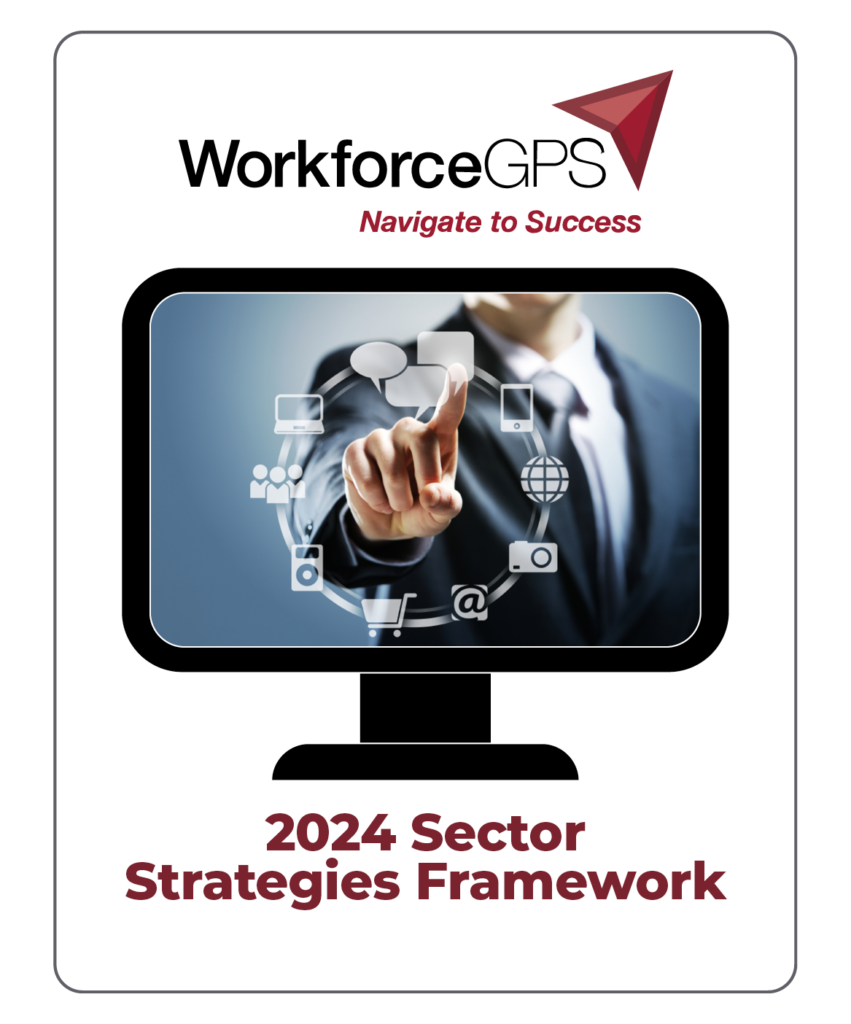
2024 Sector Strategies Framework
WorkforceGPS
September 2024
In September 2024, ETA released an updated Sector Strategies Framework to guide national, state, and local practitioners in their efforts to launch and implement effective sector strategies. The Framework is intended to advance knowledge and support the development, scaling, and durability of sector strategies. It provides workforce system practitioners with a clear picture of the concepts and elements essential to the successful implementation of sector partnerships and sector strategies. The Sector Strategies Framework was developed by ETA to harness lessons learned from the field, provide support to overcome common barriers, and help practitioners build knowledge in new areas.
Along with the Framework, the ETA released additional resources including:
- Implementation Guide and Self-Assessment and Action Planning Tool: Resources to help practitioners implement the Framework and assess and strengthen existing sector strategies efforts.
- ETA Blog Post: “Demand-driven training: Reimagining sector partnerships to build career pathways”
- Training and Employment Notice No. 08-24: Release and Availability of Updated 2024 U.S. Department of Labor’s Sector Strategies Framework
- Virtual Training Series: Learn more about the Framework and strategies to implement and scale sector strategies by viewing each session in this three-part series.
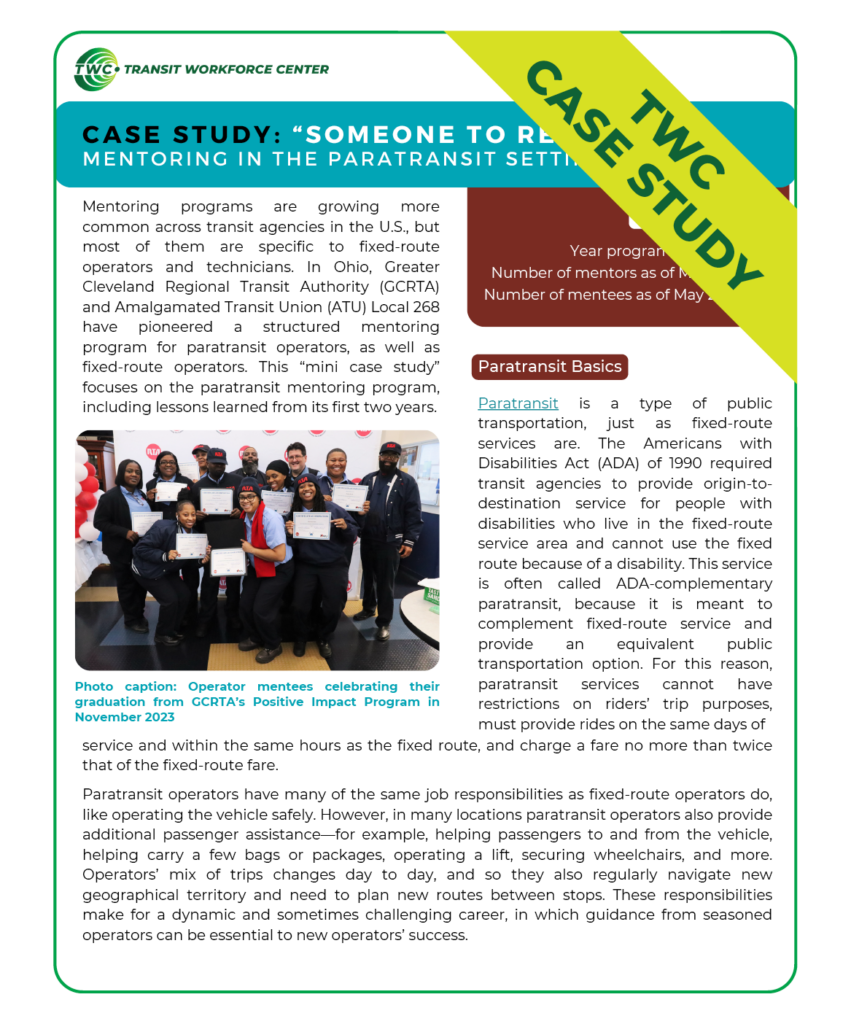
Case Study: Mentoring in the Paratransit Setting
Transit Workforce Center
September 2024
TOPICS: Community Engagement , Mentorship , Trainer and Mentor Development , Training
“Someone to Rely On”
Mentoring programs are growing more common across transit agencies in the U.S., but most of them are specific to fixed-route operators and technicians. In Ohio, Greater Cleveland Regional Transit Authority (GCRTA) and Amalgamated Transit Union (ATU) Local 268 have pioneered a structured mentoring program for paratransit operators, as well as fixed-route operators. This “mini case study” focuses on the paratransit mentoring program, including lessons learned from its first two years.
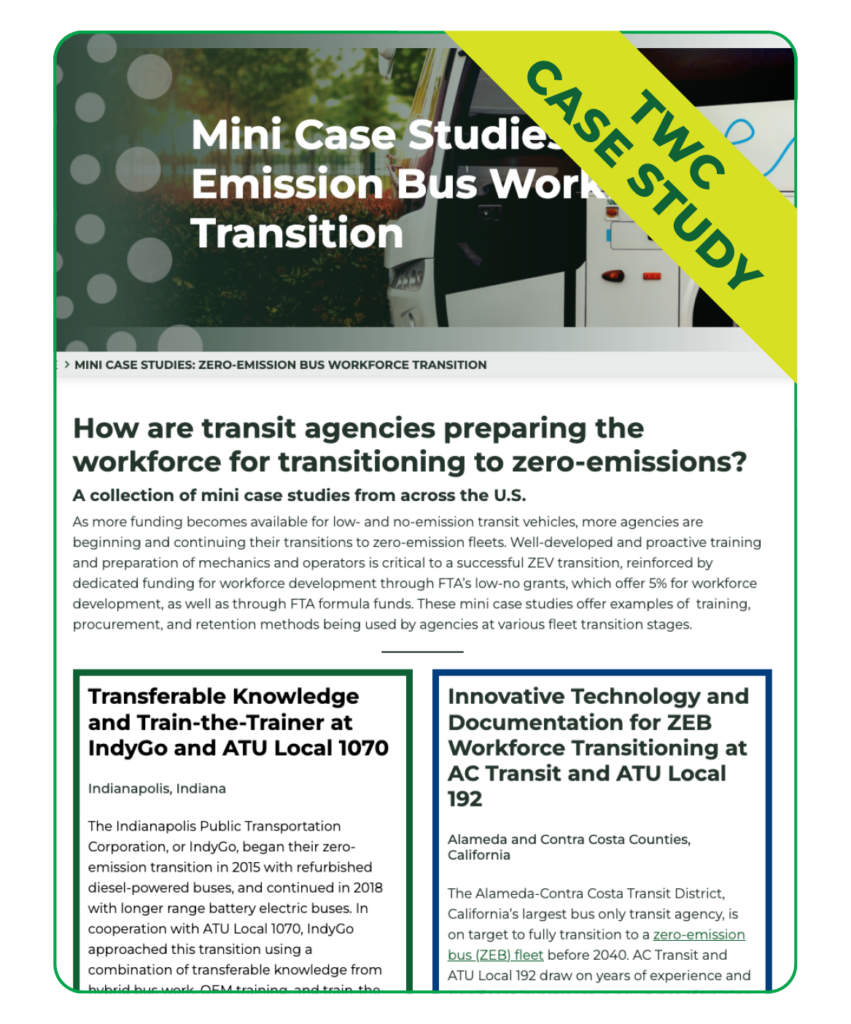
Mini Case Studies: Low-No Workforce Transition
Transit Workforce Center
August 2024
TOPICS: Apprenticeship , Low-No , Trainer and Mentor Development , Training
In the past decade, the number of hybrid, battery-electric, and hydrogen fuel cell buses has increased substantially across the U.S., particularly as transit locations have made use of FTA’s Low-No grant program. Well-developed and proactive training and preparation of technicians and operators is critical for a successful transition to new vehicle technologies; maintaining and operating newly procured vehicles effectively is necessary for fleet reliability and efficiency. Transit locations have supported training and other initiatives through FTA’s Low-No grants, which offer 5% for workforce development, as well as through formula funds. These mini case studies offer examples of training, retention, and procurement methods being used by transit agencies to support new fleet technologies.
- Foundational Skills and Technician Engagement at Champaign-Urbana Mass Transit District
- Bringing Training In-House at Mountain Line and Teamsters Local 2
- Transferable Knowledge and Train-the-Trainer at IndyGo and ATU Local 1070
- Innovative Technology and Documentation for Workforce Transitioning at AC Transit and ATU Local 192
- Training Operators Through Pre-Apprenticeship, Apprenticeship, and Mentorship at Golden Gate Transit and ATU Local 1575
- Frontline Worker Involvement in Vehicle Procurement at SporTran and ATU Local 588
- Midwest Hydrogen Center of Excellence at SARTA and AFSCME Local 1880
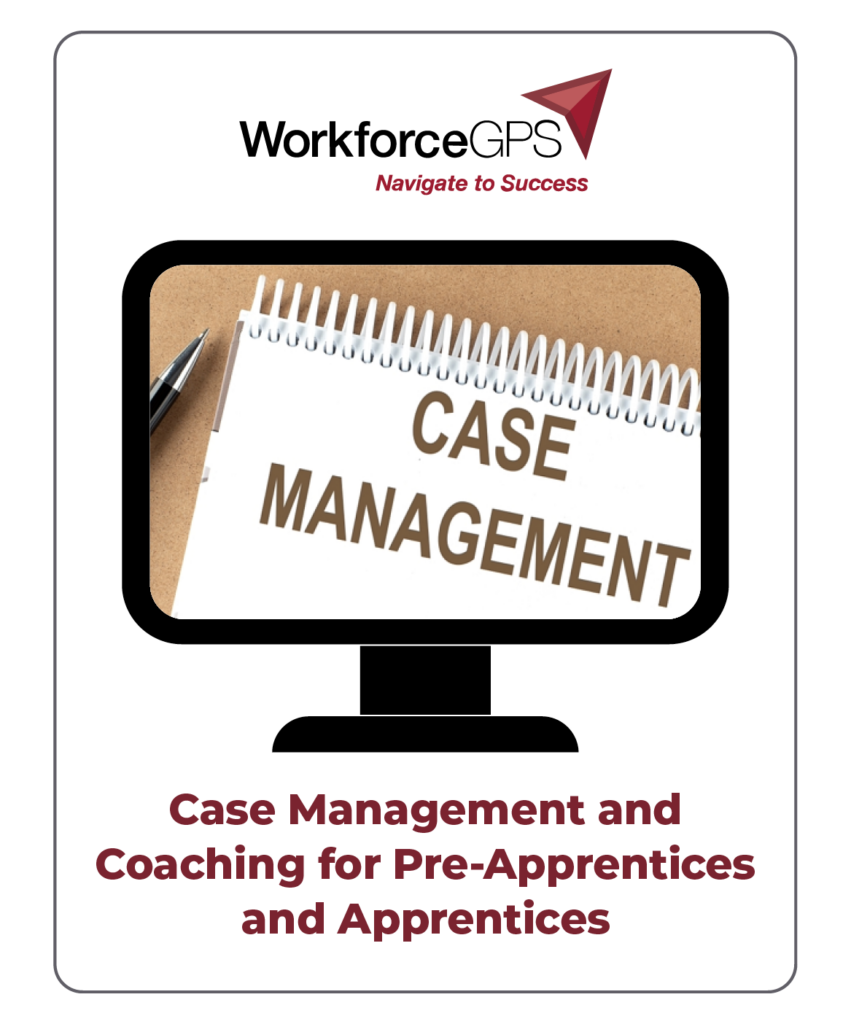
Case Management and Coaching for Pre-Apprentices and Apprentices
Workforce GPS
August 2024
TOPICS: Apprenticeship , Career Pathways , Mentorship , Trainer and Mentor Development , Training
Working with pre-apprentices and apprentices requires a combination of case management and coaching. This webinar provides the fundamentals of case management and coaching and teaches a framework for effective service delivery. This session also focuses on the use of assessments for productive service planning, quality program documentation and team communication for successful handoffs.
MODERATOR(S)
- Luis Roig, Contracting Officer’s Representative, Office of Apprenticeship, U.S. Department of Labor Employment and Training Administration
PRESENTER(S)
- Amy Landesman, Grantee Coach, ICF
- Valerie Taylor, Grantee Coach, ICF
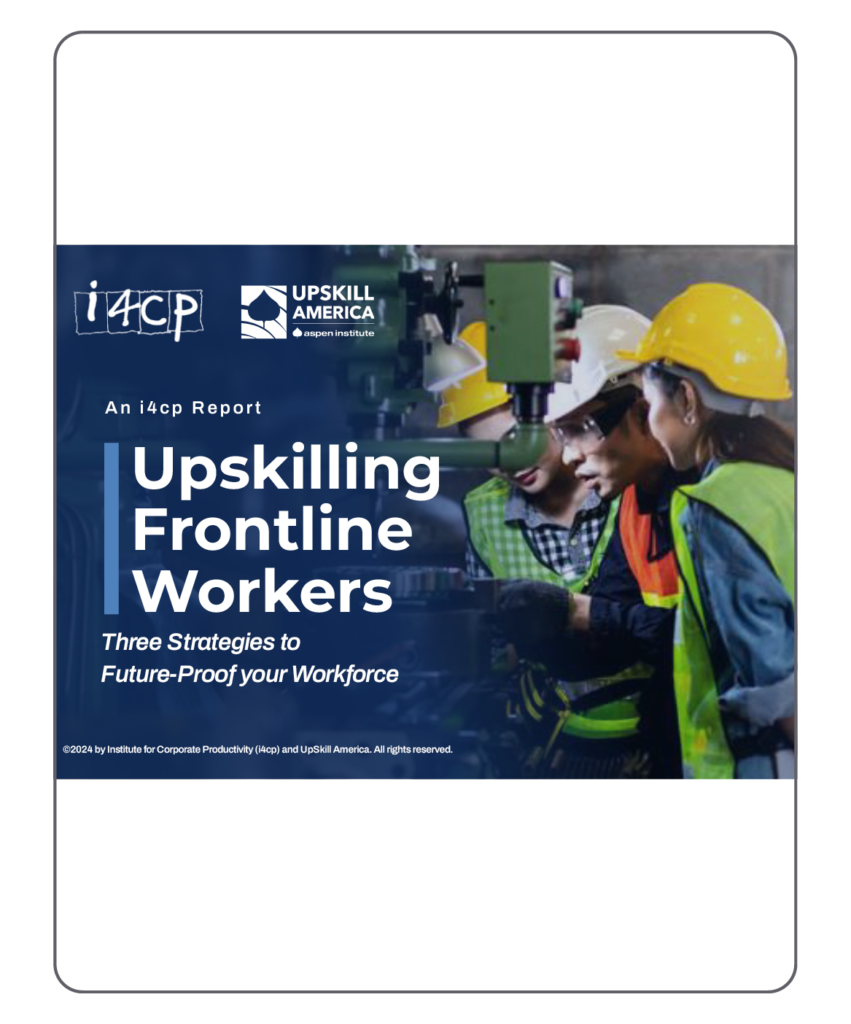
Upskilling Frontline Workers: Three Strategies to Future-Proof your Workforce
UpSkill America & Institute for Corporate Productivity (i4cp)
TOPICS: Apprenticeship , Career Pathways , Trainer and Mentor Development , Training
The rapid advancement and proliferation of technology increases the need for accelerated and continuous workforce development. Prioritizing the upskilling of frontline workers requires a variety of educational programs, and there is no single answer to the upskilling challenge. Still, UpSkill America and the Institute for Corporate Productivity (i4cp) created this report of best practices that can help any organization become more productive and resilient via a skilled workforce.
Read the brief to learn more about next practices in upskilling, including internal training, apprenticeship, and tuition assistance that will help any organization to be more productive and resilient for the future.
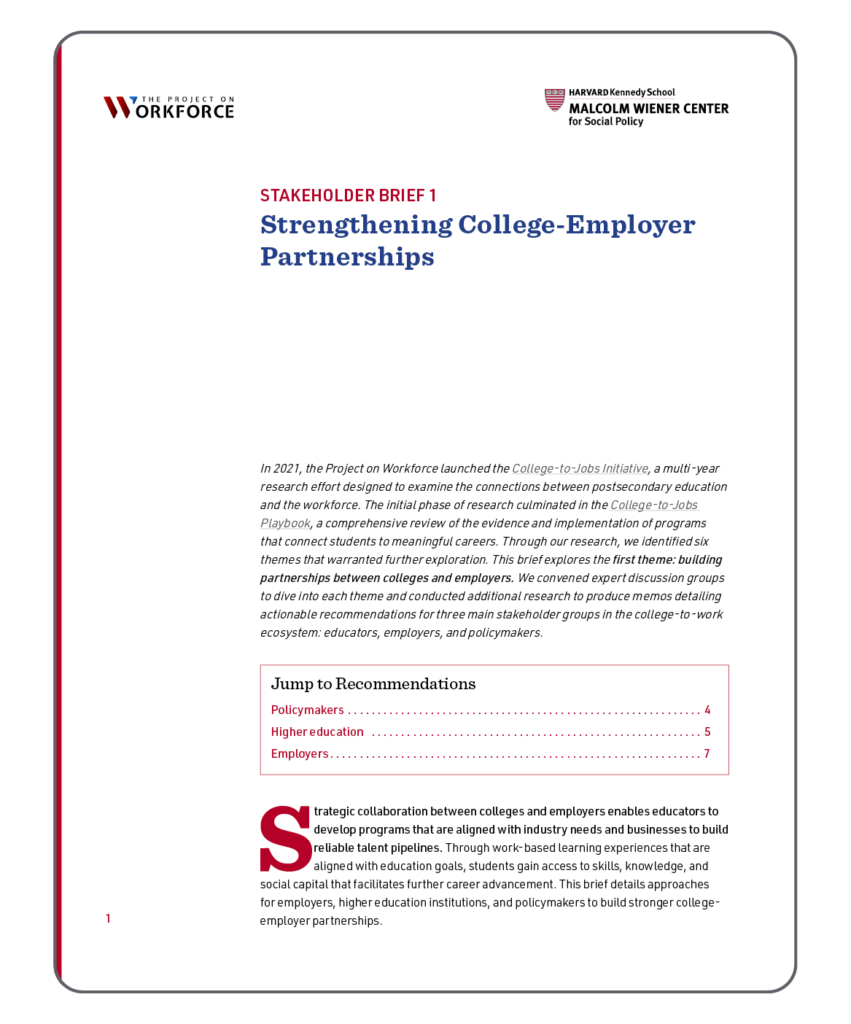
College-to-Jobs Initiative: Policy and Practice Series
The Project on Workforce
The Project on Workforce released new recommendations for educators, employers, and policymakers on how to improve college-to-jobs connections. With these webinars and stakeholder briefs, they aim to increase attention and investment in college-to-career transitions and show how colleges can better deliver on economic prosperity.
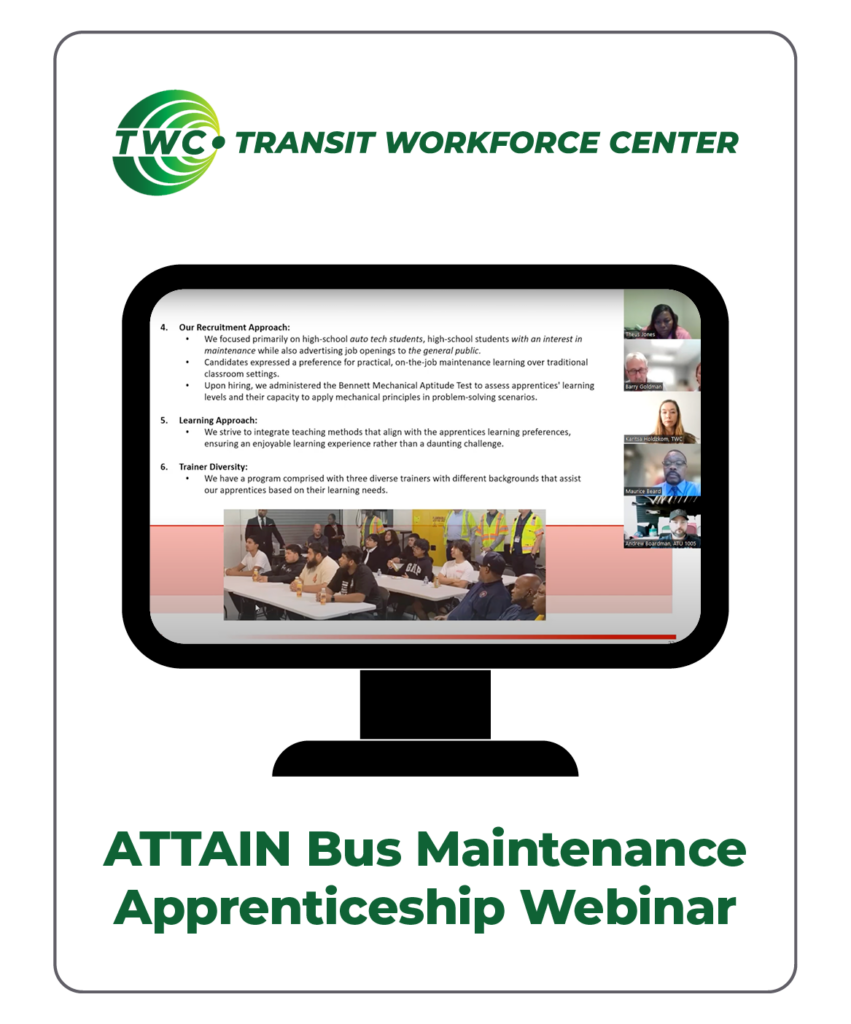
ATTAIN Bus Maintenance Apprenticeship Webinar
Transit Workforce Center
June 2024
TOPICS: Apprenticeship , Mentorship , Trainer and Mentor Development , Training
Enjoy this recorded convening of TWC’s American Transit Training and Apprenticeship Innovators Network (ATTAIN) comprised of several engaging presentations that highlight apprenticeship programs across the nation, followed by interactive discussions with Fairfax County Connector/Amalgamated Transit Union (ATU) Local 689 and Metro Transit/ATU Local 1005 on the development of mentorship and apprenticeship programs, how they work, and the benefits they can offer agencies and their workforce.
Below, you can find the link to the full slideshow used in the meeting.
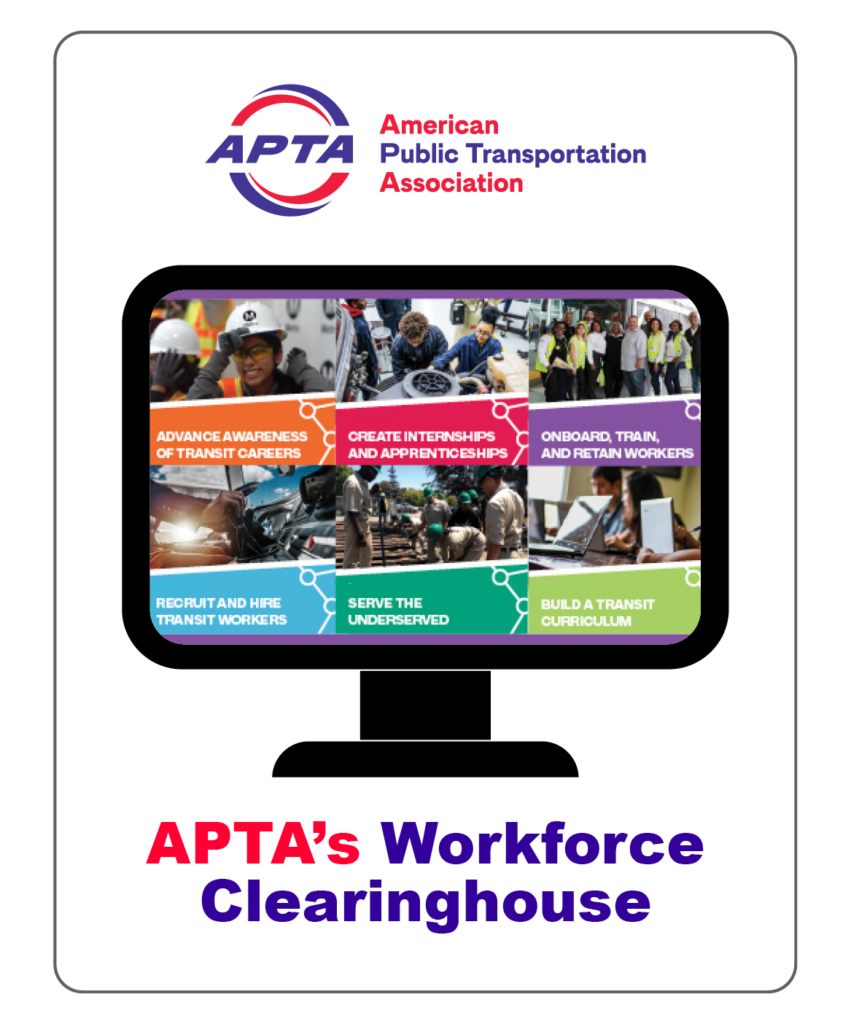
APTA’s Workforce Clearinghouse
APTA’s Workforce Clearinghouse connects users with convenient access to industry materials, stories, and recommended practices. Use the search bar or choose a categorical grouping to find resources from APTA’s six ‘Workforce Mini Guides’ as well as selected examples from the initial workforce volume – APTA’s Transit Workforce Readiness Guide.
American Public Transportation Association (APTA)
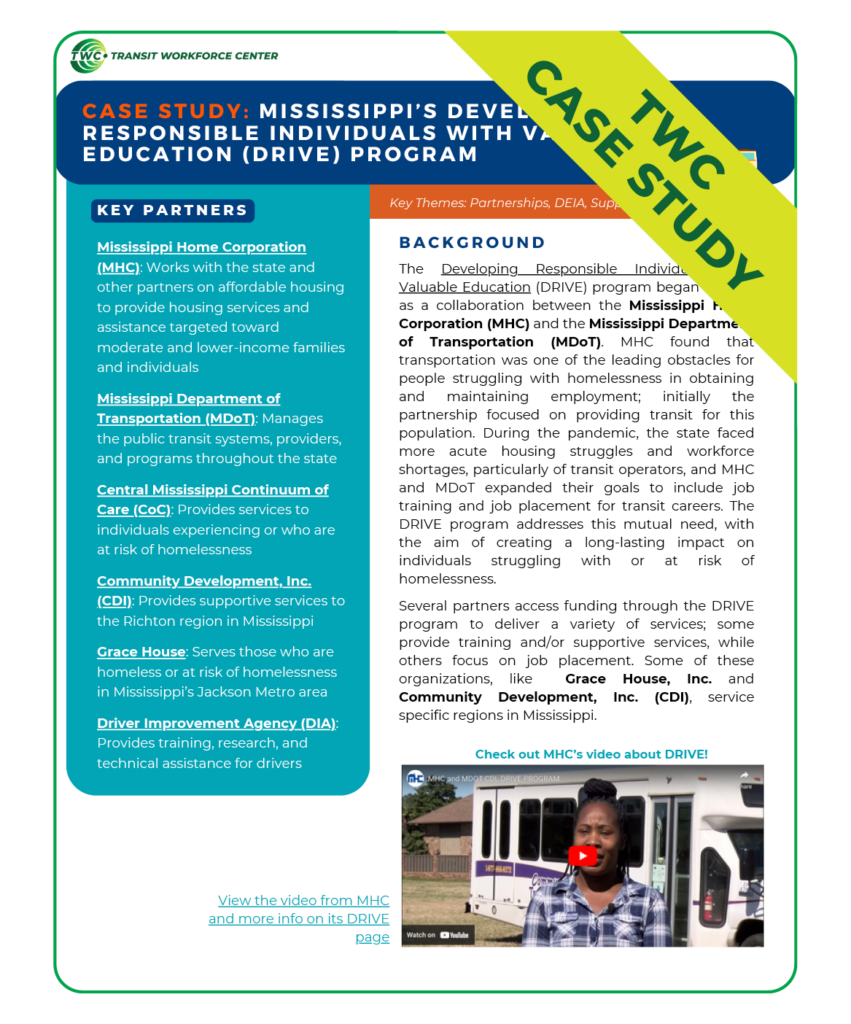
Mississippi’s Developing Responsible Individuals with Valuable Education (DRIVE) Program
This TWC case study is about the Mississippi Developing Responsible Individuals with Valuable Education (DRIVE) Program, which uses Emergency Solutions Grants (ESG) from the U.S. Department of Housing and Urban Development, distributed by the Mississippi Home Corporation (MHC), to partners such as Grace House, Inc. and Community Development, Inc. (CDI). These partners use the funding in a variety of creative ways to provide housing and other supportive services to DRIVE participants while they complete training and certification for a commercial driver’s license (CDL). Partners also provide job assistance to participants, placing them and helping them succeed in local transit jobs. Learn more about the program, services offered, and how stakeholders leverage funding in the full case study.
Transit Workforce Center
May 2024
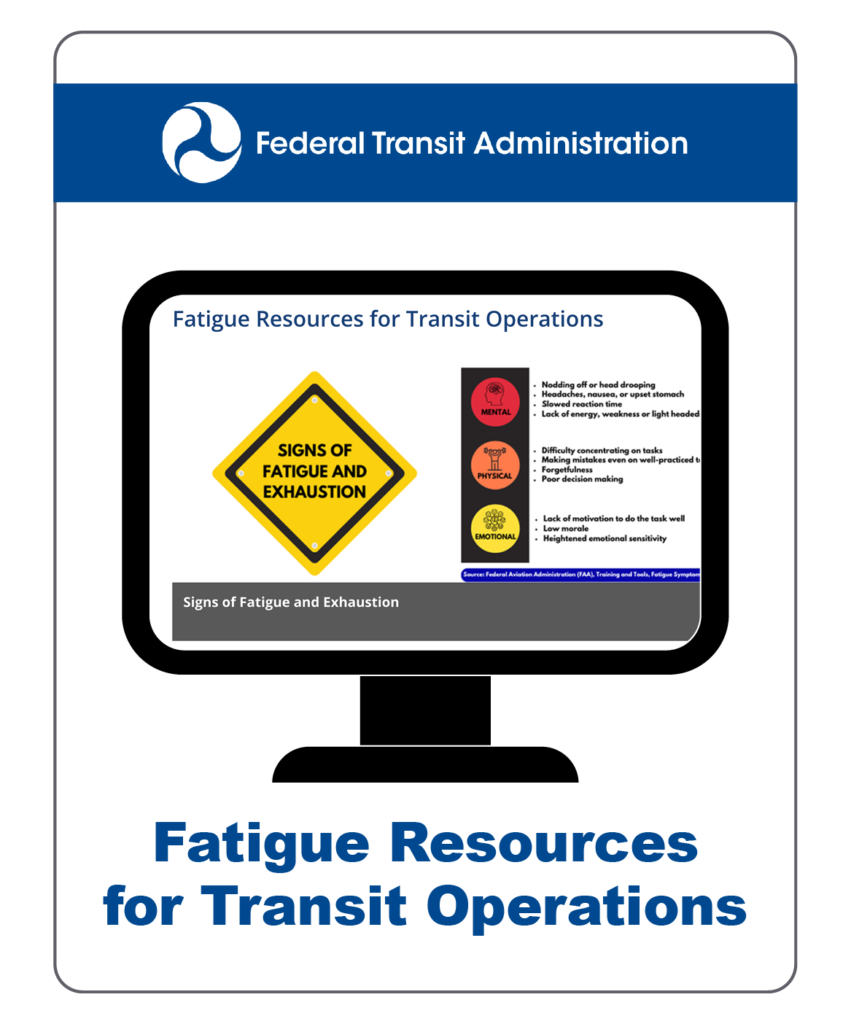
Fatigue Resources for Transit Operations
To support the transit industry, FTA has compiled resources that can be used to better understand fatigue and fatigue-related issues in the workplace. The site includes resources about understanding sleep, causes of fatigue, symptoms and warning signs, effects, relevance to transit workers and agencies, and fatigue risk management systems.
Federal Transit Administration
TOPICS: Policy and Planning , Safety and Health , Training
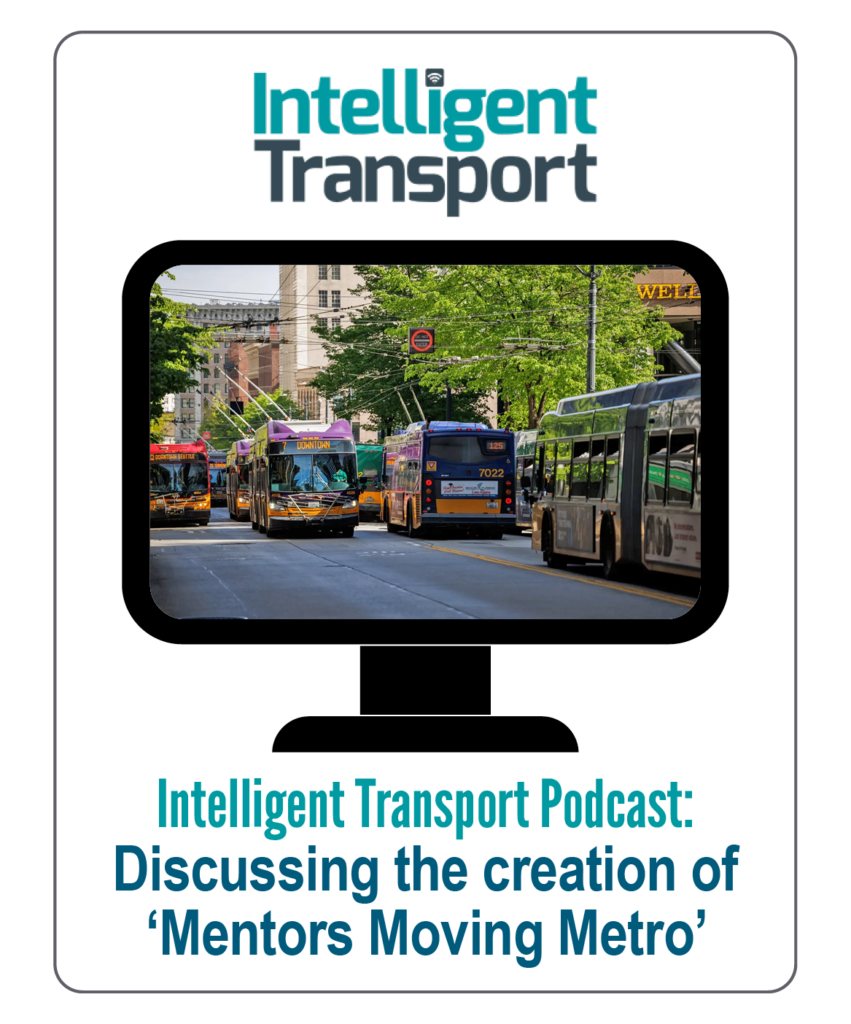
Intelligent Transport Podcast: Discussing the creation of ‘Mentors Moving Metro’
“Mentors Moving Metro” is a partnership between Metro and the Amalgamated Transit Union (ATU) Local 587 that will match experienced operators with new, part-time operators for six to 12 months. In this podcast discussion, Metro’s Director of Bus Operations, Phil DeVault, and transit operator and ATU member, Patrick Brady, talk about how “Mentors Moving Metro” is helping foster relationships and provide knowledge that can only come those who have been “in the seat.” They discussed the origins of the program, how mentors can be a morale boost for operators, and how it can foster greater interaction between operators and management. They finished the podcast by discussing their vision on developing it from a mentorship program to an apprenticeship program for drivers joining Metro in the future.
Intelligent Transport
March 2024
TOPICS: Apprenticeship , Career Pathways , Labor-Management Partnerships , Mentorship , Training
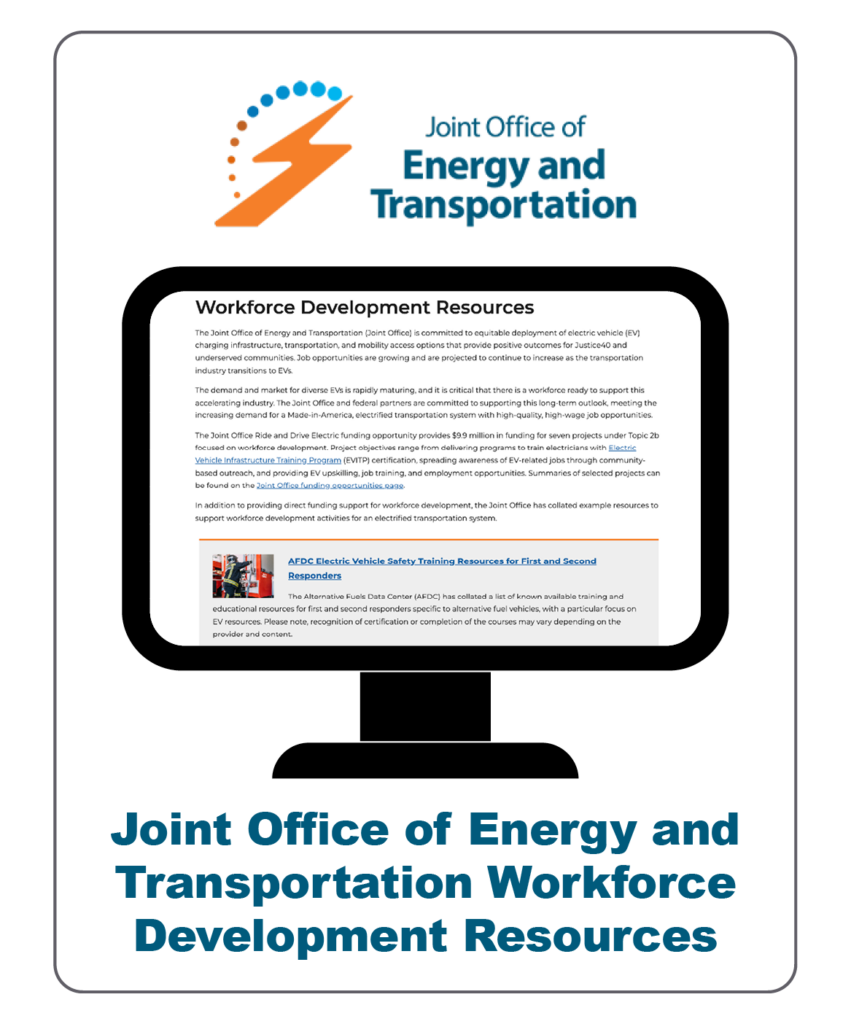
Joint Office of Energy and Transportation Workforce Development Resources
The Joint Office of Energy and Transportation (Joint Office) supports the deployment of low-no, convenient, and accessible transportation infrastructure. In addition to providing direct funding support for workforce development, the Joint Office has collated example resources to support workforce development activities for an electrified transportation system.
Joint Office of Energy and Transportation
TOPICS: Apprenticeship , Funding Opportunities , Low-No , Policy and Planning , Training , Workforce Shortage
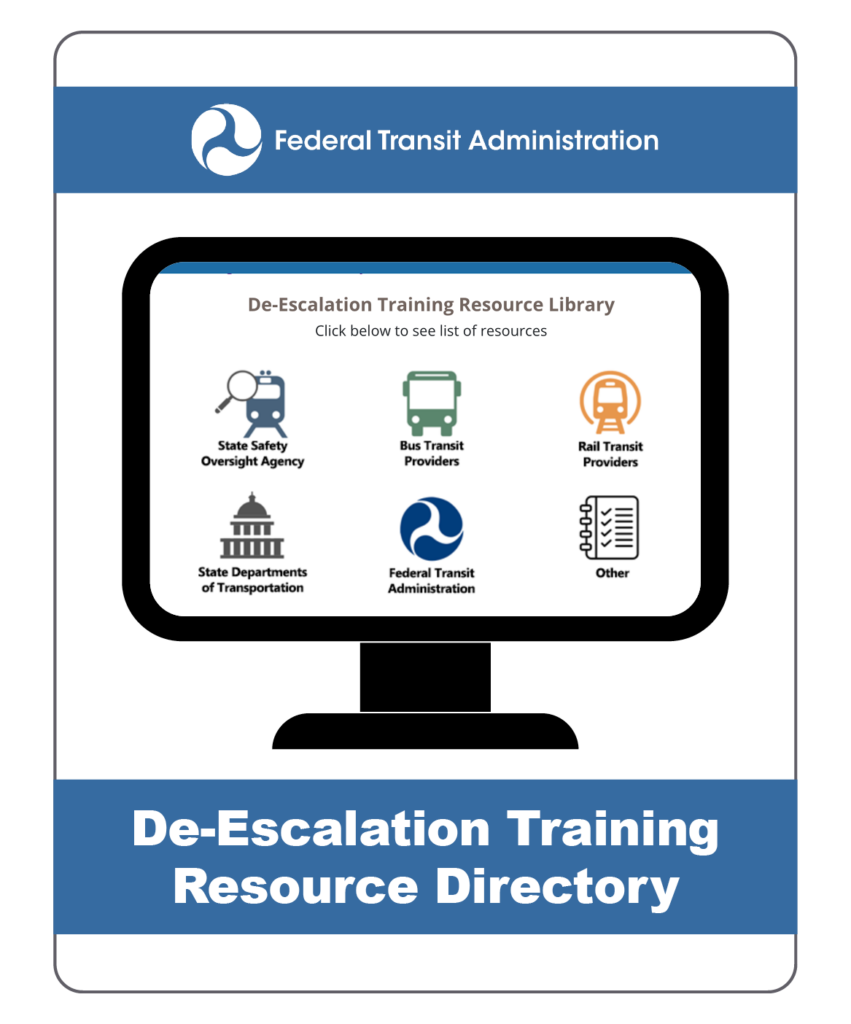
De-Escalation Training Resource Directory
The Federal Transit Administration (FTA) has gathered these resources to support the transit industry in developing, implementing, and updating their training programs. The resources illustrate ways agencies throughout the transit industry are implementing de-escalation training.
Federal Transit Administration
February 2024
TOPICS: Policy and Planning , Safety and Health , Training
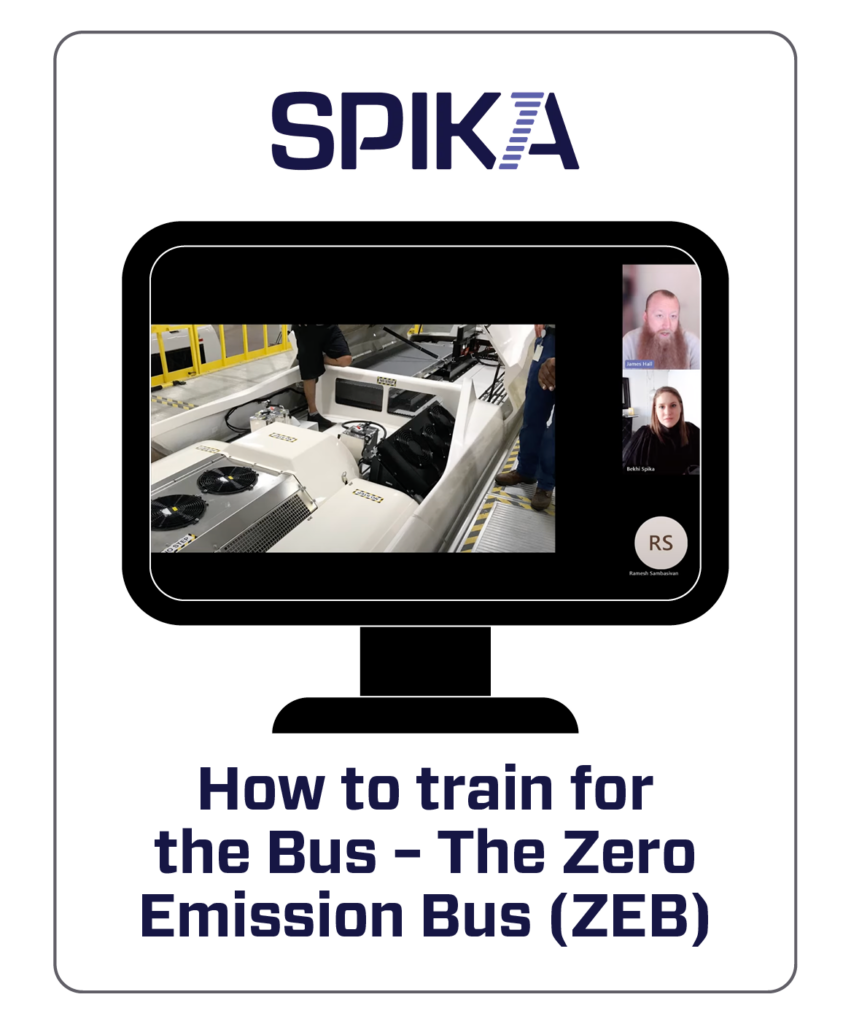
Video on Low-No Bus Training
In this video, James Hall, Principal & Founder of ZEB Tech, and Bekhi Spika, Vice President & Chief Revenue Officer of Spika Design & Manufacturing, have a conversation about transitioning and training the transit workforce for low-no buses.
Spika Design & Manufacturing
February 2024
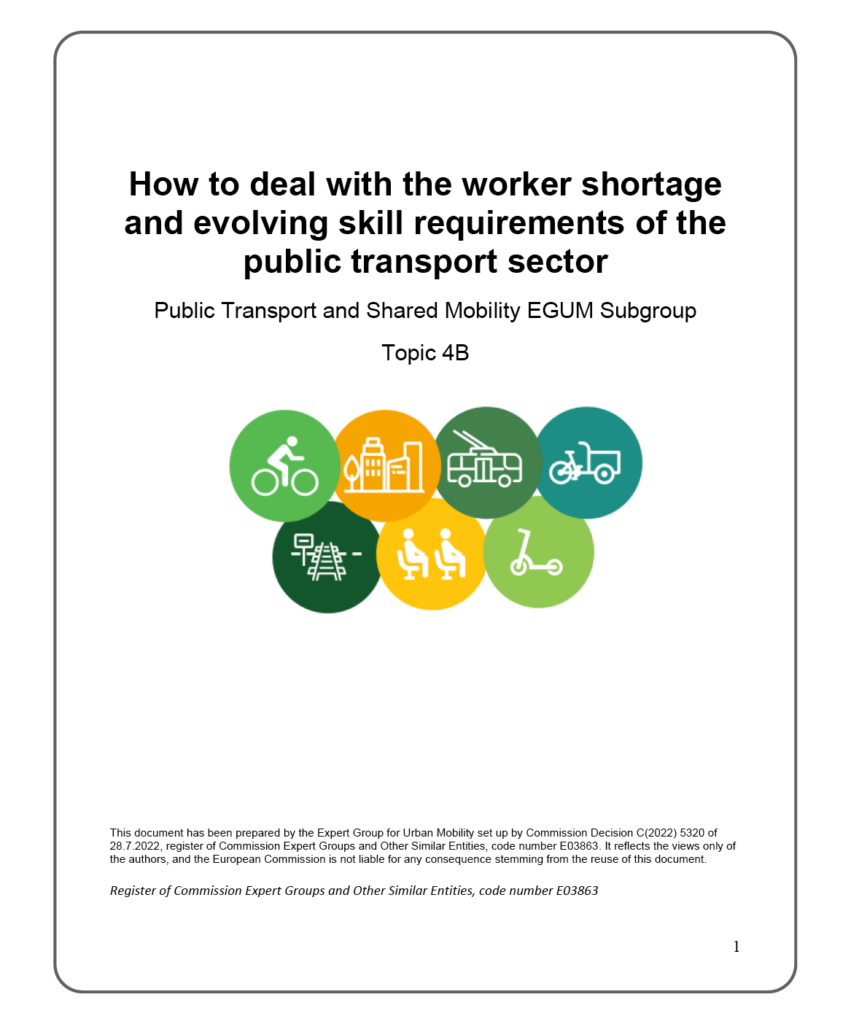
How to Deal with the Worker Shortage and Evolving Skill Requirements of the Public Transport Sector
This report provides a European counterpart to those produced within the United States on the transit workforce shortage. It gives an overview of the workforce shortage’s causes, as well as recommendations for addressing evolving skill requirements and more.
Expert Group on Urban Mobility, European Commission
February 2024
TOPICS: Community Engagement , Hiring and Recruitment , Training , Workforce Shortage
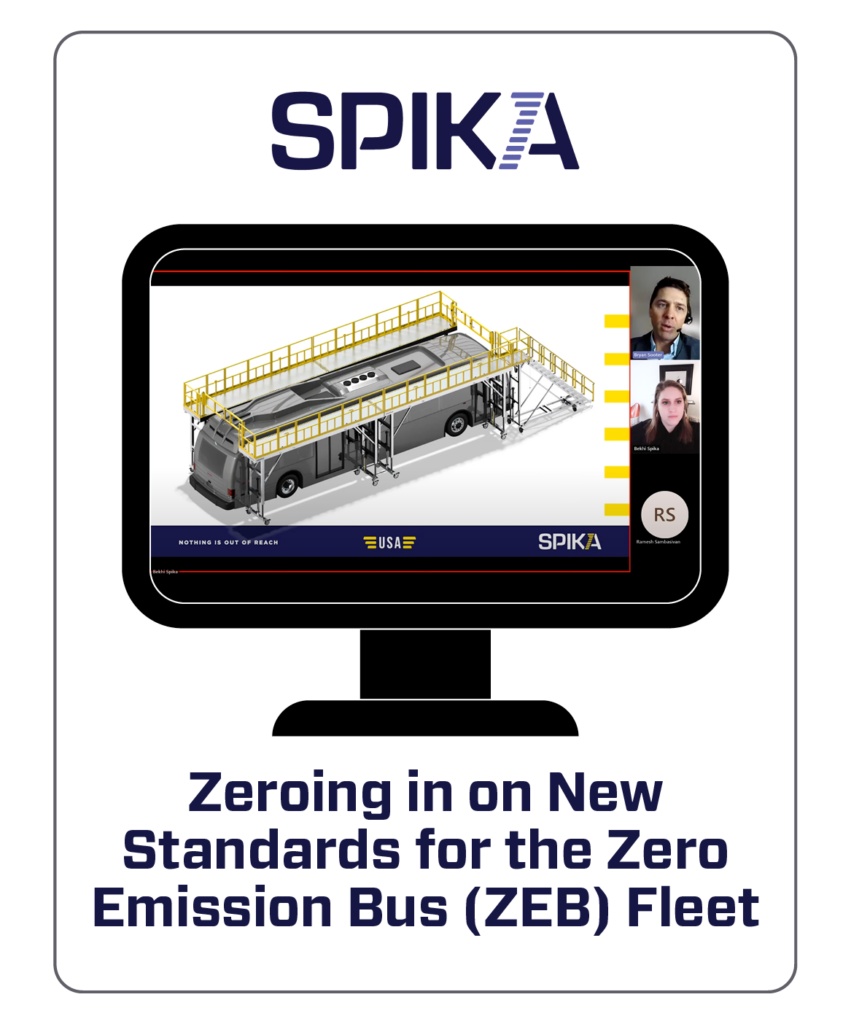
Video on New Standards for the Low-No Bus Fleet
In this video, Bryan Sooter, P.E., Director of Standards at the American Public Transportation Association (APTA), and Bekhi Spika, VP and CRO of Spika Design & Manufacturing, have a conversation about low-no standards, including how standards are created in public transportation; the challenges faced by transit agencies in getting prepared for an entirely new way of operating with entirely new technology in existing, new or modified infrastructure; the kinds of areas that new standards on low-no can be expected to encompass; and the guidance on resources available from APTA for transit agencies shifting to low-no fleets.
Spika Design & Manufacturing
February 2024
TOPICS: Low-No , Policy and Planning , Training
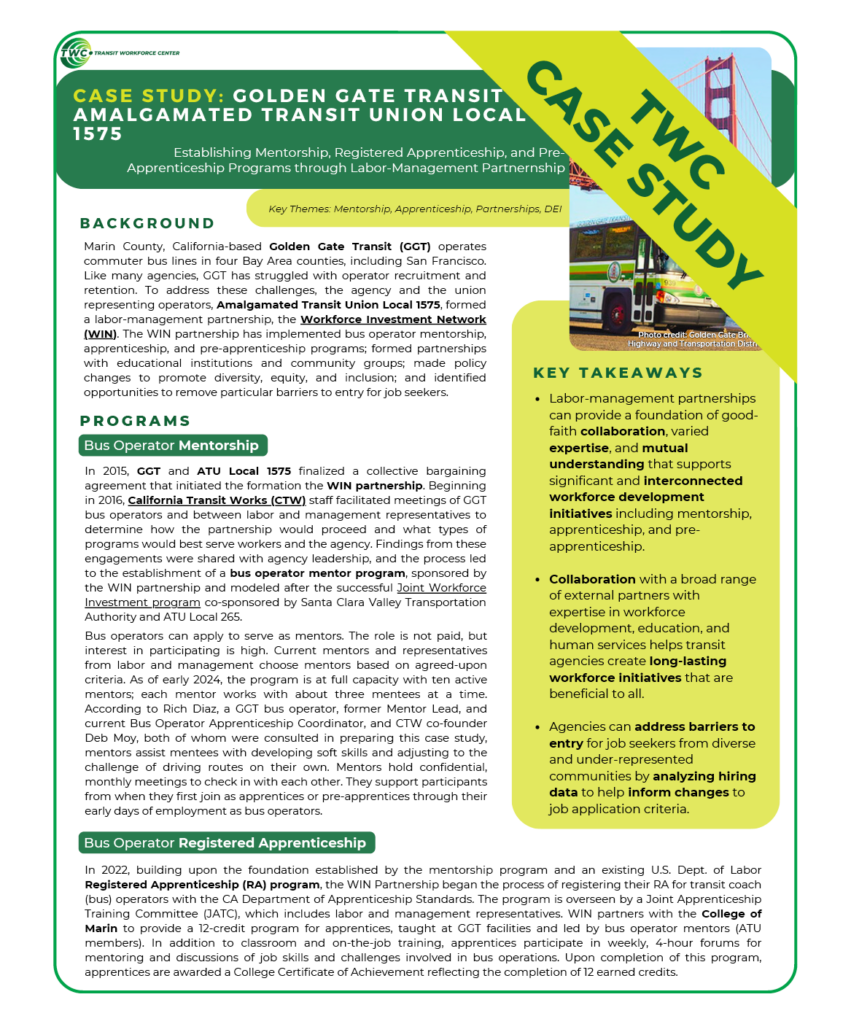
Case Study: Golden Gate Transit & Amalgamated Transit Union Local 1575
Marin County, California-based Golden Gate Transit (GGT) operates commuter bus lines in four Bay Area counties, including San Francisco. Like many agencies, GGT has struggled with operator recruitment and retention. To address these challenges, the agency and the union representing operators, Amalgamated Transit Union Local 1575, formed a labor-management partnership, the Workforce Investment Network (WIN). The WIN partnership has implemented bus operator mentorship, apprenticeship, and pre-apprenticeship programs; formed partnerships with educational institutions and community groups; and identified opportunities to remove particular barriers to entry for job seekers.
Transit Workforce Center
February 2024
Read Rich Diaz’s Transit Career Story on the TWC Blog to learn more.
View the full case study below:
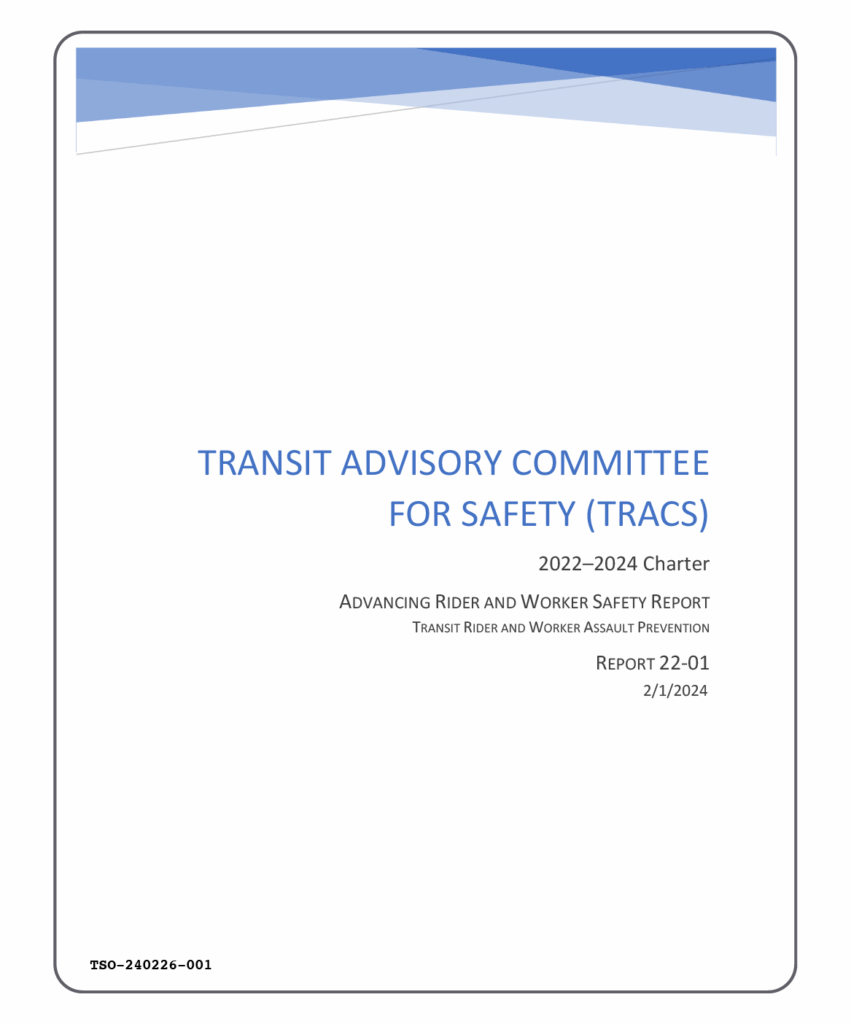
Advancing Rider and Worker Safety
The 2022-2024 Charter tasked the Transit Advisory Committee for Safety (TRACS) with developing recommendations that the Federal Transit Administration could implement to improve public safety. This report includes recommendations related to one of the Charter’s safety focus areas: Advancing Rider and Worker Safety.
Transit Advisory Committee for Safety
February 2024
TOPICS: Policy and Planning , Safety and Health , Training
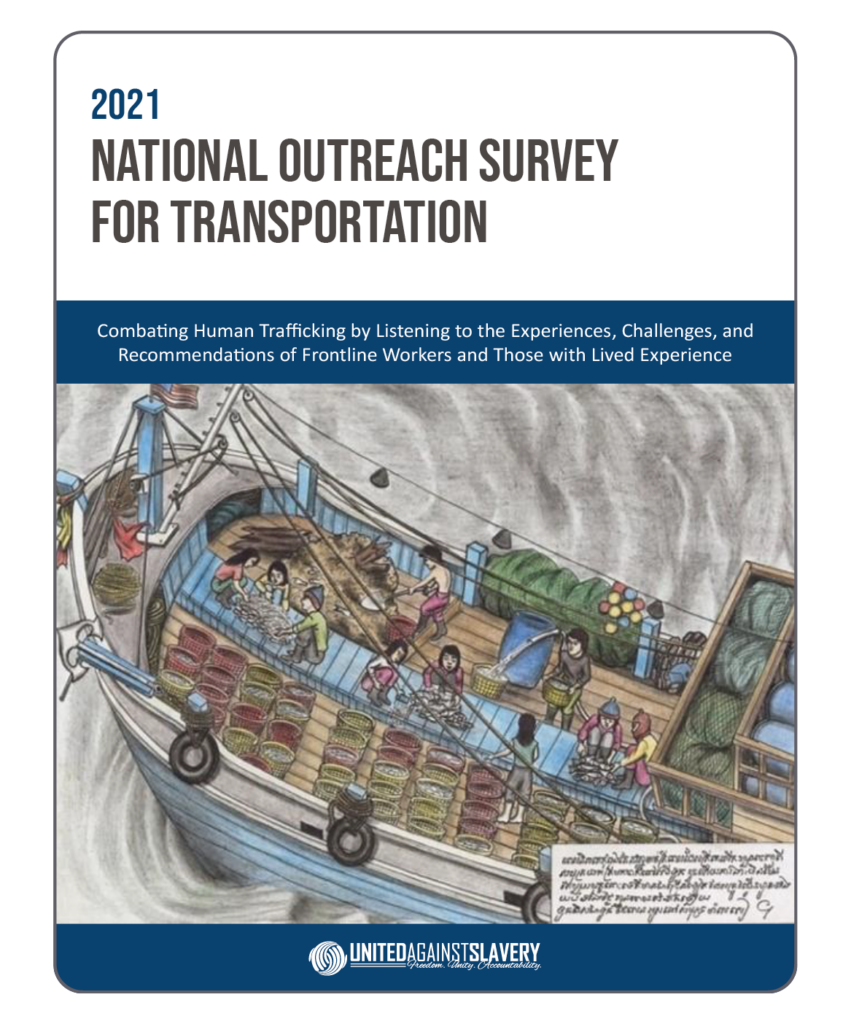
National Outreach Survey for Transportation (NOST)
This report explores the status of sex and labor trafficking in the transportation industry. It explains and highlights a survey of frontline data collected from across the transportation industry, as well as from sex and labor trafficking survivors and direct victim service providers. Data analysis includes information about the current knowledge base on sex trafficking among frontline transportation workers and suggestions for training.
United Against Slavery
January 2024
TOPICS: Policy and Planning , Safety and Health , Training
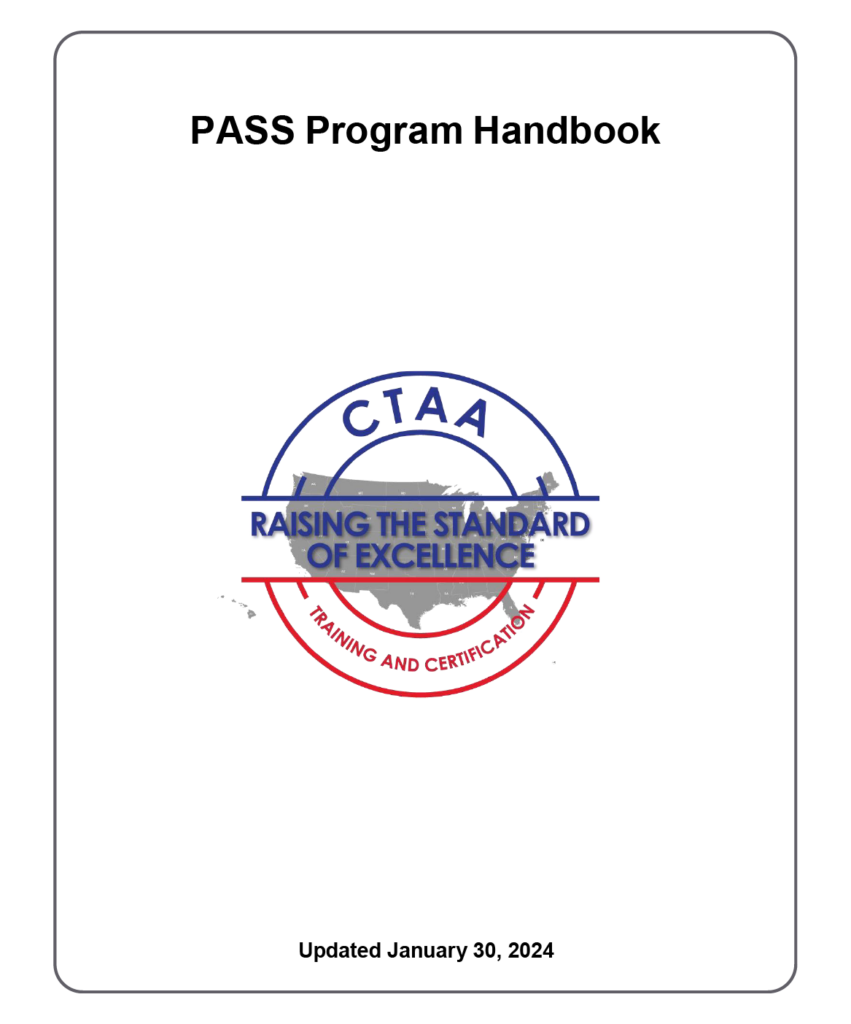
Passenger Assistance, Safety And Sensitivity (PASS) Program Handbook
CTAA’s Passenger Assistance, Safety and Sensitivity (PASS) driver training program provides resources and standards for operators to transport passengers in the most safe, sensitive and careful manner possible. PASS is ideal for non-emergency medical transportation (NEMT) trips, for ADA paratransit services, for specialized transit for older passengers, for human and social service riders — really any transportation operation where the passengers require extra care.
Community Transportation Association of America
January 2024
TOPICS: Community Engagement , Safety and Health , Training
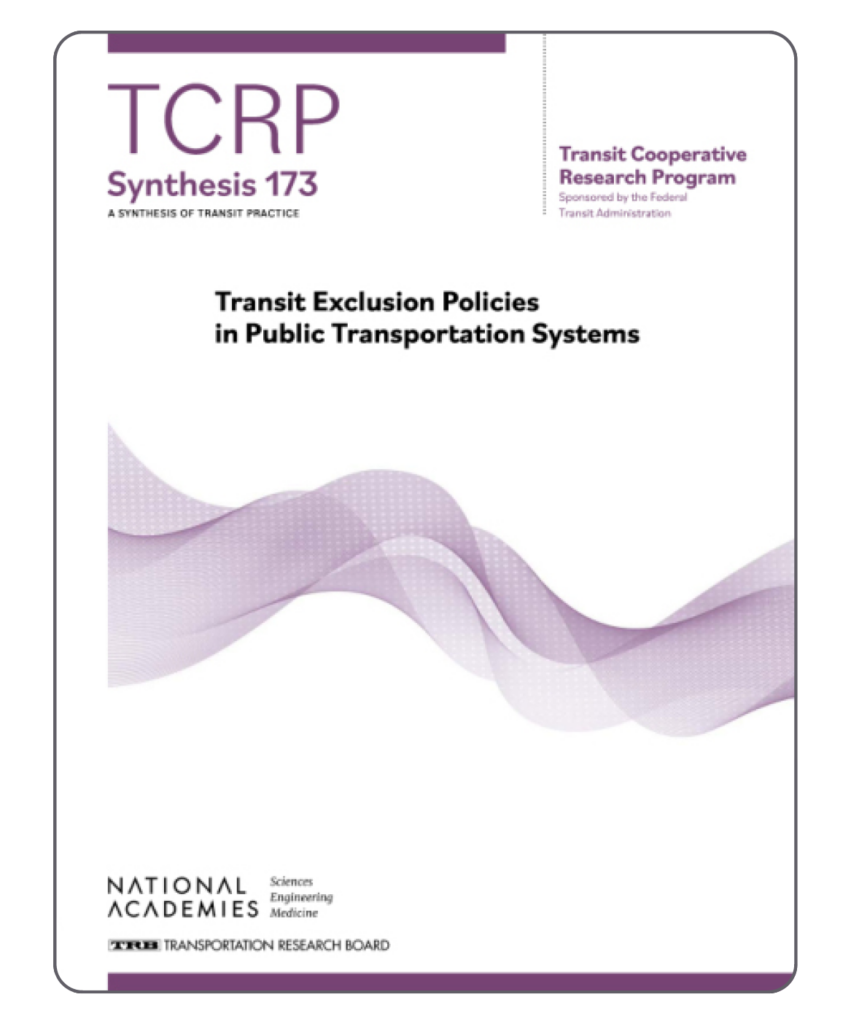
Transit Exclusion Policies in Public Transportation Systems
This report documents the practice of the use of transportation exclusion policies in North American transit systems. It is designed to help transit agencies in understanding the usefulness of such policies, as well as understanding the methods for creating, amending, or supplementing exclusion policies to maximize their effectiveness in reducing crime and disorder within their respective transit systems.
Transit Cooperative Research Program
January 2024
TOPICS: Policy and Planning , Safety and Health , Training
Contributor(s): National Academies of Sciences, Engineering, and Medicine; Transportation Research Board; Transit Cooperative Research Program; Patricia Bye; Deborah Matherly
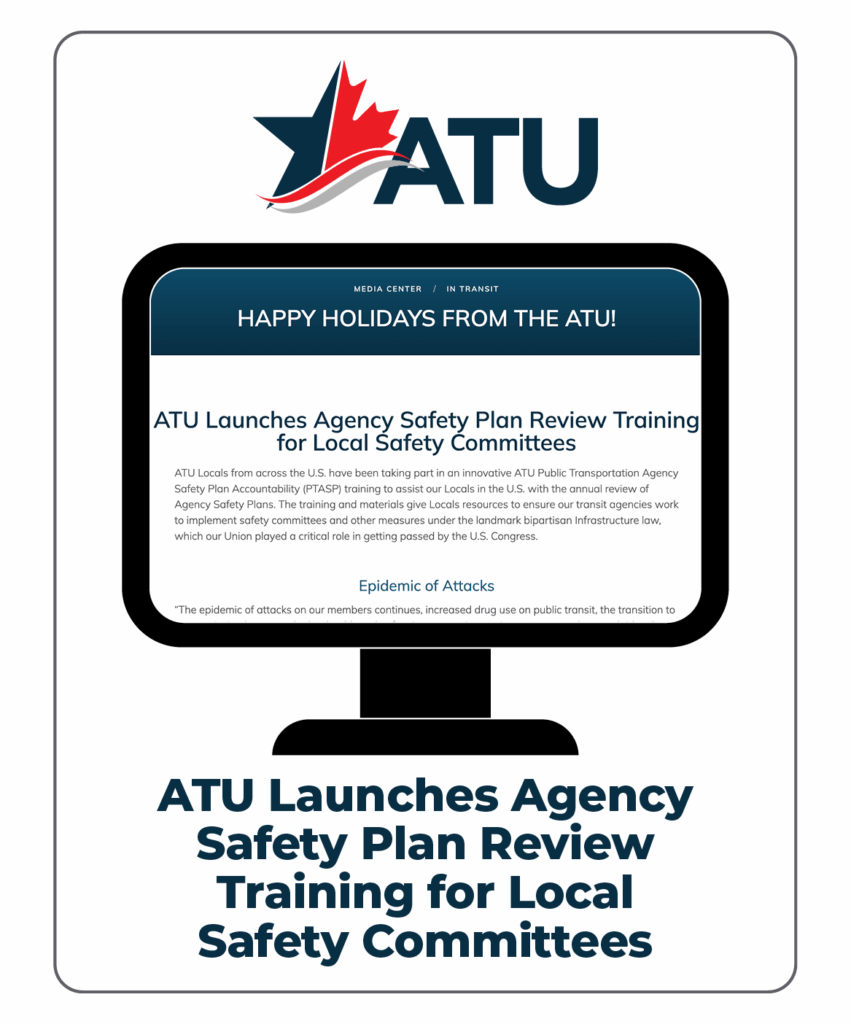
ATU Launches Agency Safety Plan Review Training for Local Safety Committees
ATU Locals from across the U.S. have been taking part in an innovative ATU Public Transportation Agency Safety Plan Accountability (PTASP) training. The training and materials give locals resources to ensure transit agencies work to implement safety committees and other measures under the bipartisan Infrastructure law.
ATU International
December 2023
TOPICS: Labor-Management Partnerships , Safety and Health , Training
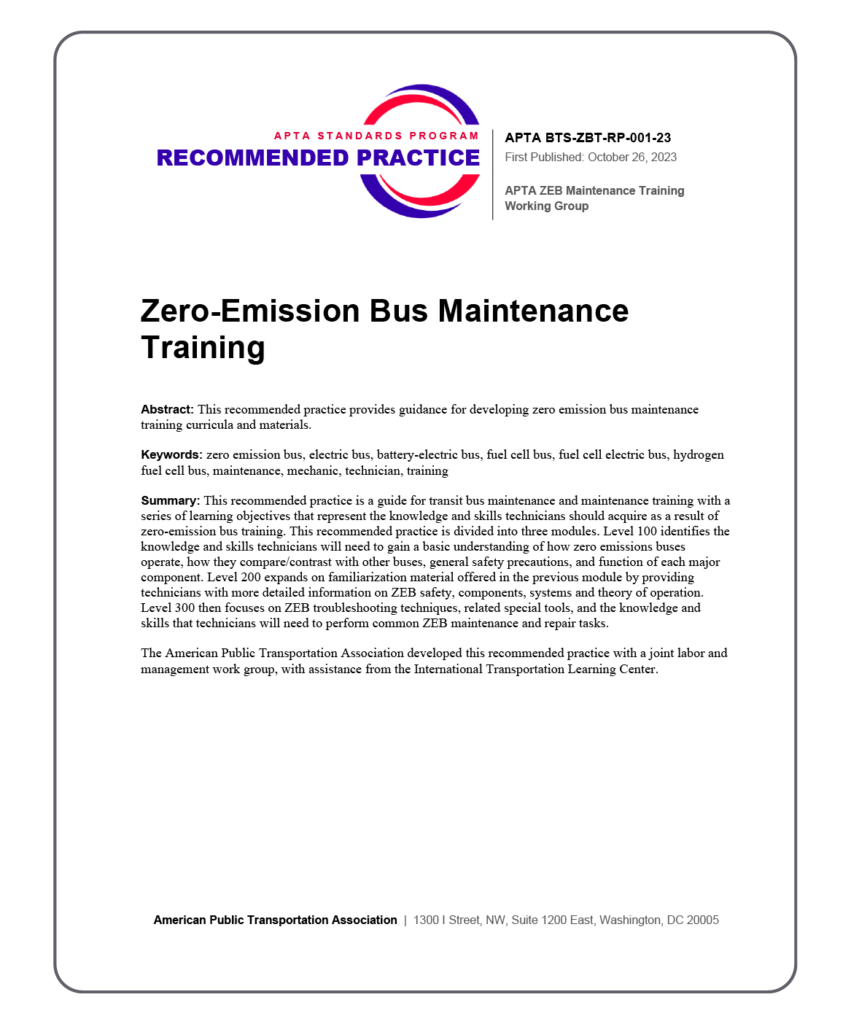
ZEB Maintenance Training Standards
This recommended practice provides guidance for developing low-no bus maintenance training curricula and materials.
American Public Transportation Association
October 2023
TOPICS: Low-No , Safety and Health , Training
This recommended practice is a guide for transit bus maintenance and maintenance training with a series of learning objectives that represent the knowledge and skills technicians should acquire as a result of ZEB training. This recommended practice is divided into three modules. Level 100 identifies the knowledge and skills technicians will need to gain a basic understanding of how ZEBs operate, how they compare/contrast with other buses, general safety precautions, and function of each major component. Level 200 expands on familiarization material offered in the previous module by providing technicians with more detailed information on low-no safety, components, systems and theory of operation. Level 300 then focuses on low-no troubleshooting techniques, related special tools, and the knowledge and skills that technicians will need to perform common low-no maintenance and repair tasks.
The American Public Transportation Association developed this recommended practice with a joint labor and management work group, with assistance from the International Transportation Learning Center.
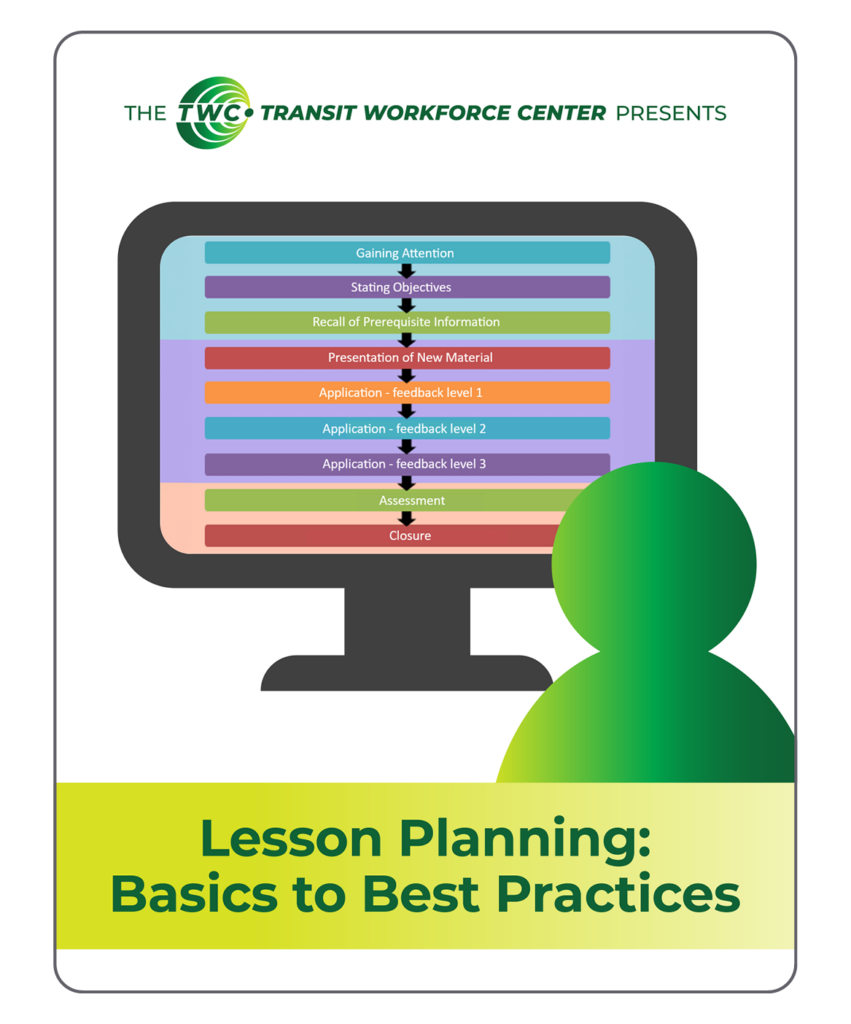
Lesson Planning Webinar: Basics to Best Practices
Have you ever been tasked with developing or delivering a class and didn’t know where to start? Do you have a class that isn’t engaging learners and you don’t know why? On September 26, 2023, TWC hosted an informative webinar on Lesson Planning basics and best practices with award winning author and advisor on all things training, Dr. Chuck Hodell. We took a high-level look at Lesson Planning for those new to training, as well as discussed how to overcome inherent challenges and best practices for transit trainers.
Transit Workforce Center
September 2023
TOPICS: Trainer and Mentor Development , Training
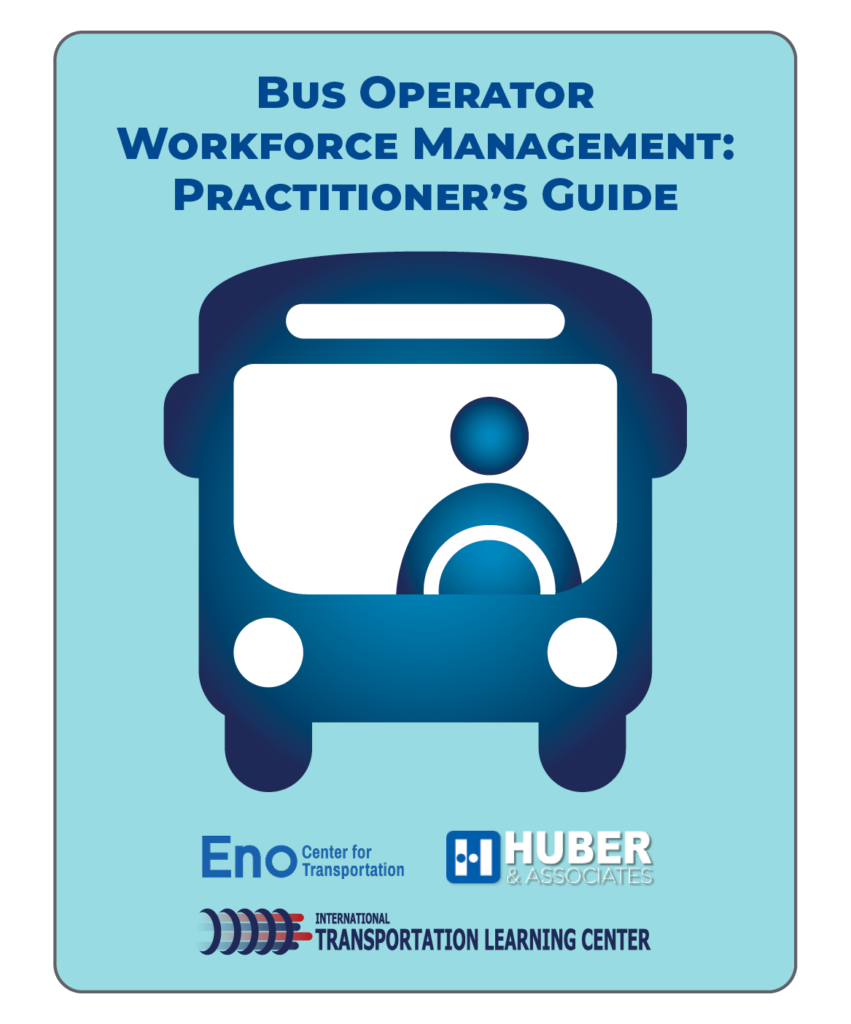
Bus Operator Workforce Management: Practitioner’s Guide
This report, produced by the Eno Center for Transportation, International Transportation Learning Center (ITLC), and Huber & Associates, is a practitioner’s guide that provides recommendations and resources enabling transit agencies to better assess, plan, and implement their operator workforce management programs. A link to a related TRB webinar is also included.
Transit Cooperative Research Program
August 2023
Contributor(s): National Academies of Sciences, Engineering, and Medicine; Transportation Research Board; Transit Cooperative Research Program; Robert Puentes; Philip Plotch; Brianne Eby; Paul Lewis; Karitsa Holdzkom; Xinge Wang; Douglas Nevins; Kenyon Corbett; Melissa Huber
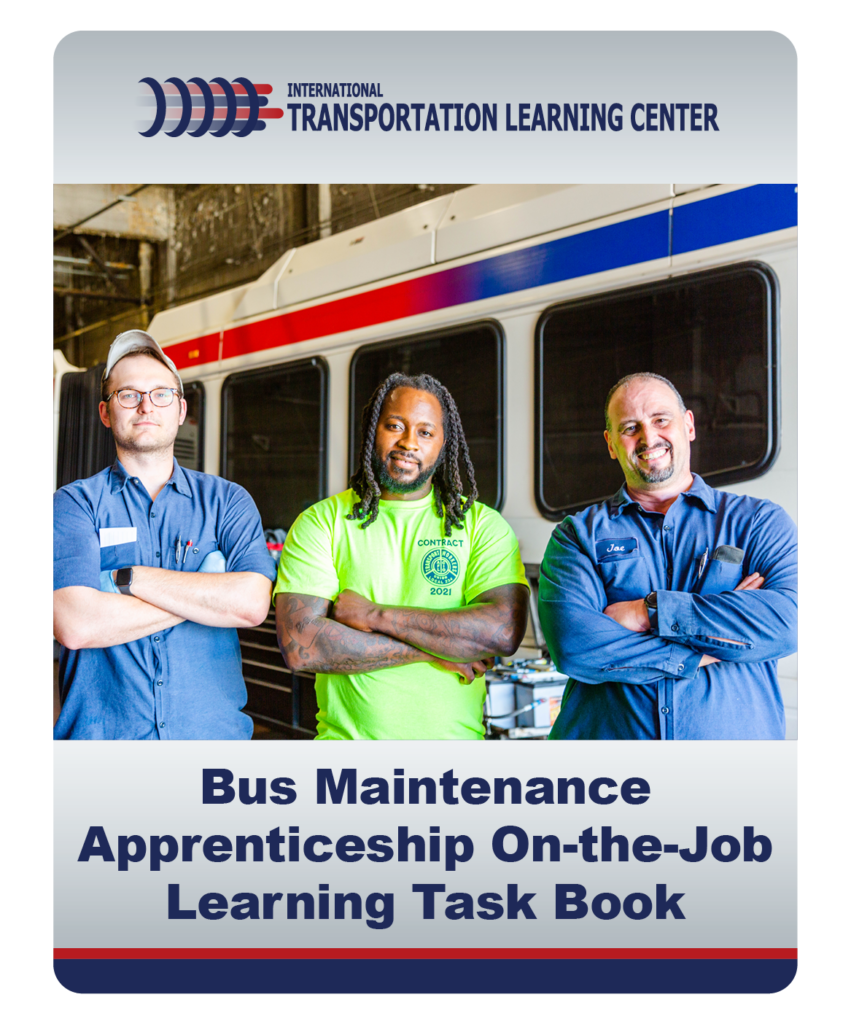
Bus Maintenance Apprenticeship On-the-Job Learning Task Book
International Transportation Learning Center
July 2023
TOPICS: Apprenticeship , Mentorship , Trainer and Mentor Development , Training
The Bus Maintenance Apprenticeship On-the-Job Learning (OJL) Task Book allows mentors and apprentices to track competency. The Task Book contains individual job tasks in 10 job functions (e.g., Electrical & Electronic, Steering & Suspension, etc.). Once the mentor and apprentice both agree that the apprentice is competent in a specific task (e.g., can test, adjust or replace a voltage regulator), each signs-off on that task.
Like the Apprenticeship Framework, the Task Book is aligned with the Automotive Service Excellence (ASE) task list and APTA training standards. Under the Contract/Agreement established by each agency’s Joint Apprenticeship Committee (JAC), however, each agency is free to add, delete or modify tasks to suit their unique operating conditions and bus equipment. The Task Book serves as a useful checklist to make certain that mentors have provided adequate OJL for each job task, and apprentices can demonstrate they are capable of performing those tasks safely and effectively on their own. The use and preservation of the Job Book are the responsibility of both parties.
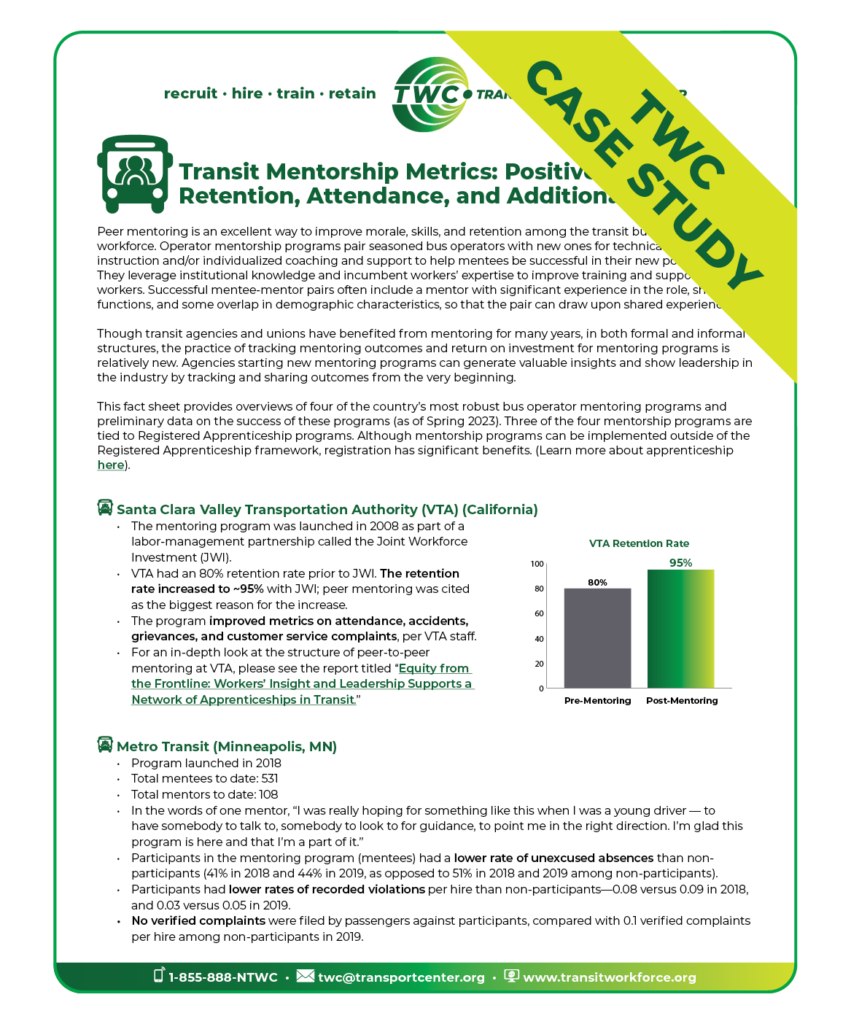
Transit Mentorship Metrics: Positive Signs for Retention, Attendance, and Additional Outcomes
Transit Workforce Center
June 2023
TOPICS: Apprenticeship , Mentorship , Policy and Planning , Retention , Training
This fact sheet provides overviews of four of the country’s most robust bus operator mentoring programs and preliminary data on the success of these programs (as of Spring 2023). Operator mentorship programs pair seasoned bus operators with new ones for technical skill instruction and/or individualized coaching and support to help mentees be successful in their new positions. They leverage institutional knowledge and incumbent workers’ expertise to improve training and support for new workers. The Mentoring Fact Sheet provides insight into the role mentorship programs can play in improving retention rates of workers, decrease unexcused absences, reduce rates of recorded violations, and lower complaints.
Contributing Authors: Shayna Gleason, Douglas Nevins, Michaela Boneva
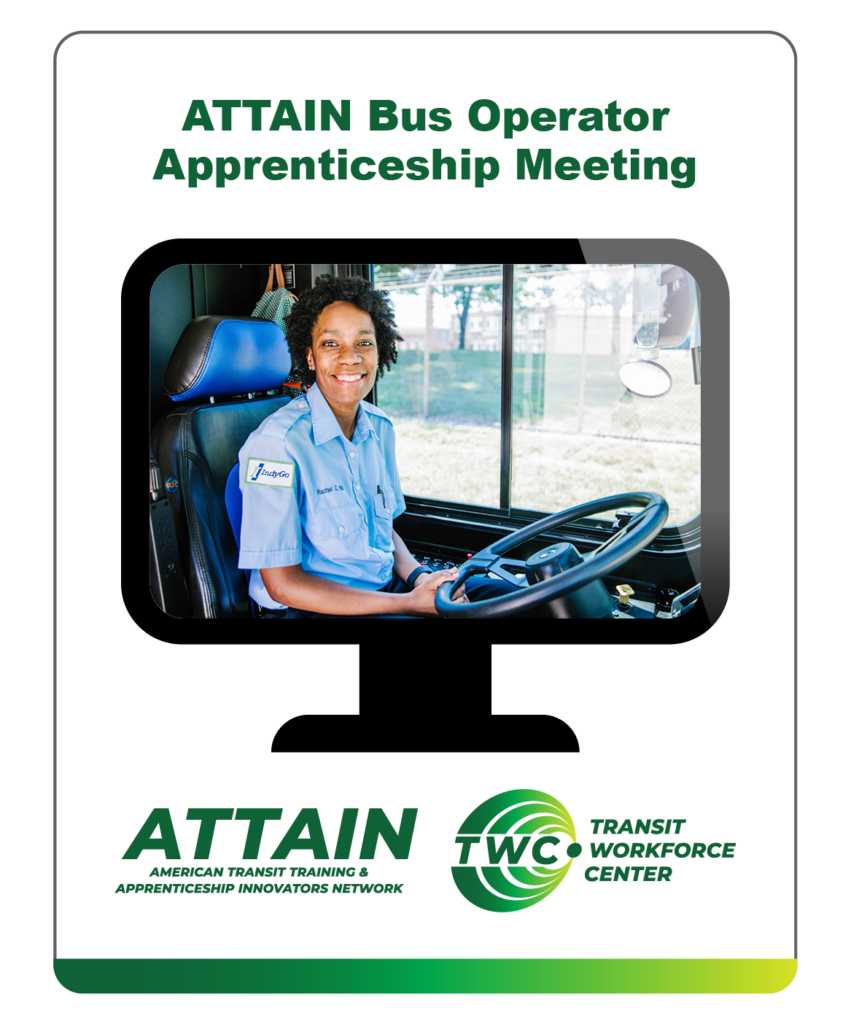
ATTAIN Bus Operator Apprenticeship Meeting
This recorded meeting of the ATTAIN Bus Operator Committee serves as a resource for transit industry stakeholders and includes presentations on apprenticeship and case studies of successful programs across the country.
Transit Workforce Center
May 2023
TOPICS: Apprenticeship , Career Pathways , Mentorship , Trainer and Mentor Development , Training
The American Transit Training and Apprenticeship Innovators Network (ATTAIN), run by the Transit Workforce Center (TWC), is a peer network created for transit agencies and labor unions to explore new apprenticeship programs or enhance existing programs for their frontline workforce.
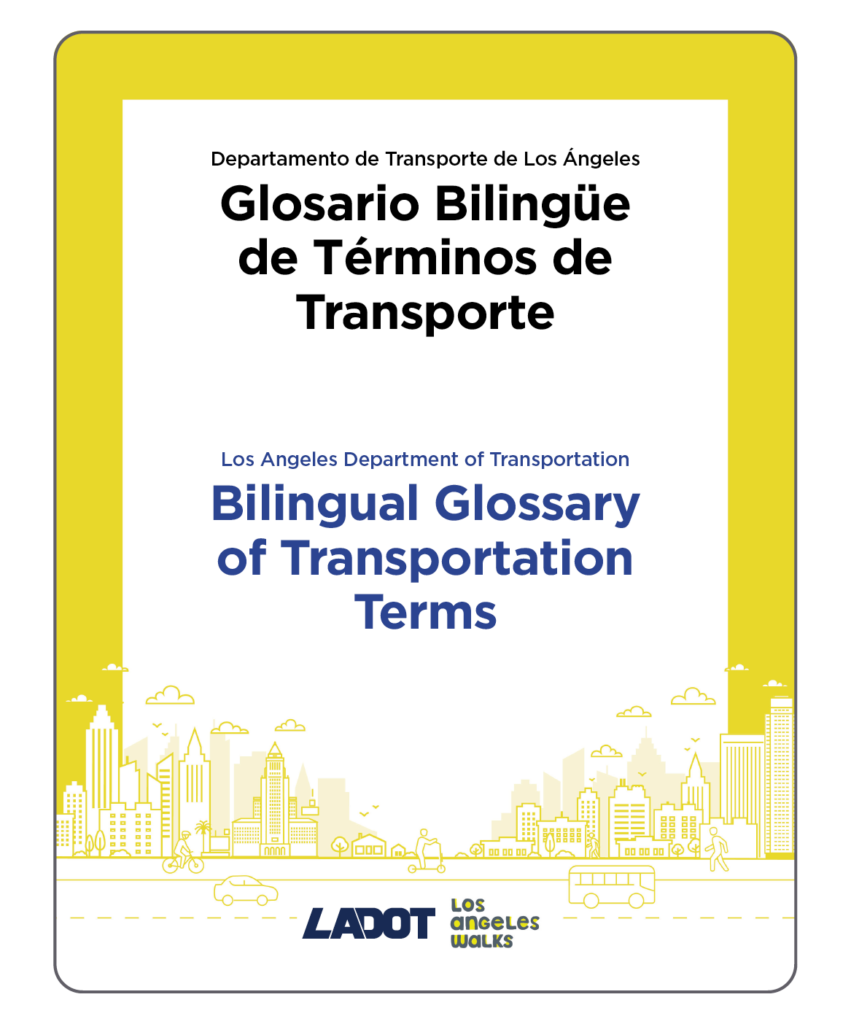
LADOT Bilingual Glossary of Transportation Terms
Los Angeles Department of Transportation
May 2023
TOPICS: Community Engagement , Hiring and Recruitment , Training
In 2020-2022, LADOT collaborated with LA Walks, community members, transportation and planning practitioners, advocates and others to develop LADOT’s first Spanish glossary. The project includes over 100 transportation planning and community engagement terms to improve and standardize LADOT’s Spanish language communication, as well as empower Spanish speaking communities to advocate for transportation improvements.
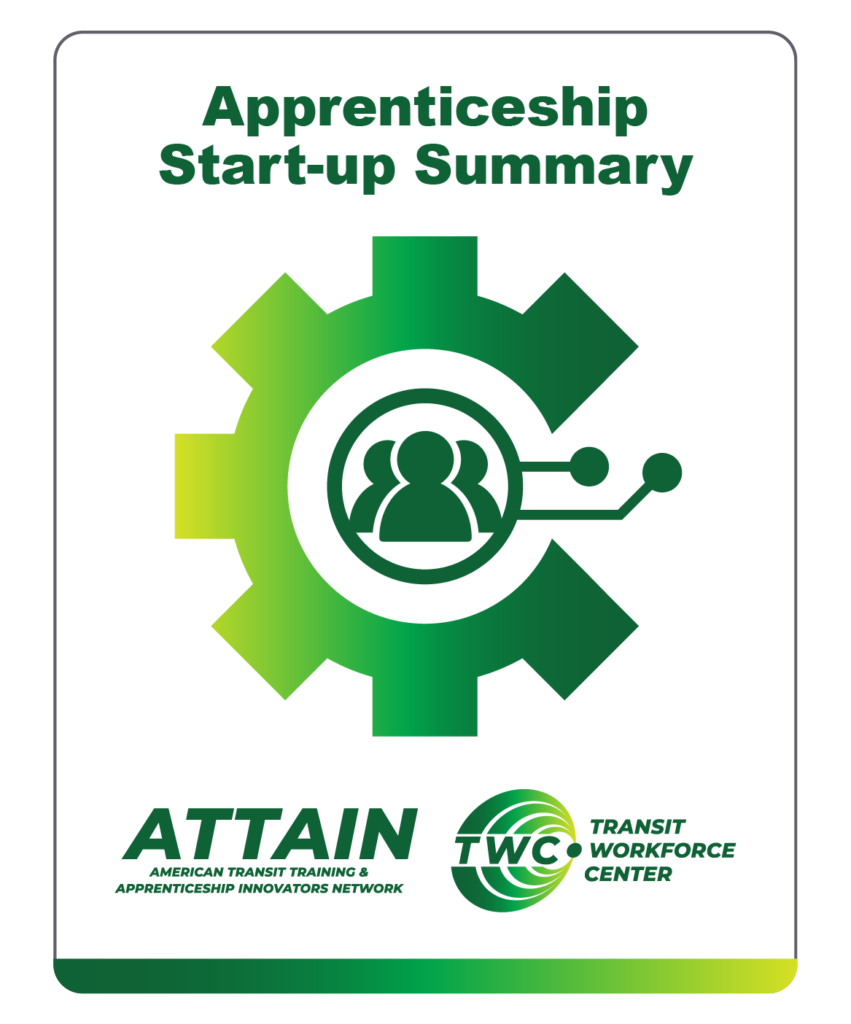
Apprenticeship Start-up Summary
These summaries outline the steps to tailor an effective Registered Apprenticeship (RA) program. These steps can be completed in order or, in some cases, concurrently. Apprenticeship programs are customizable to meet the employers’ skill requirements.
ProgressWorx
April 2023
TOPICS: Apprenticeship , Career Pathways , Labor-Management Partnerships , Mentorship , Training
If the workforce for the occupation to be registered as an apprenticeship is represented by a labor union, the employer and union would register the program as an Individual Joint program. If the workforce is not represented, the program would be registered as an Individual Non-Joint program by the employer.
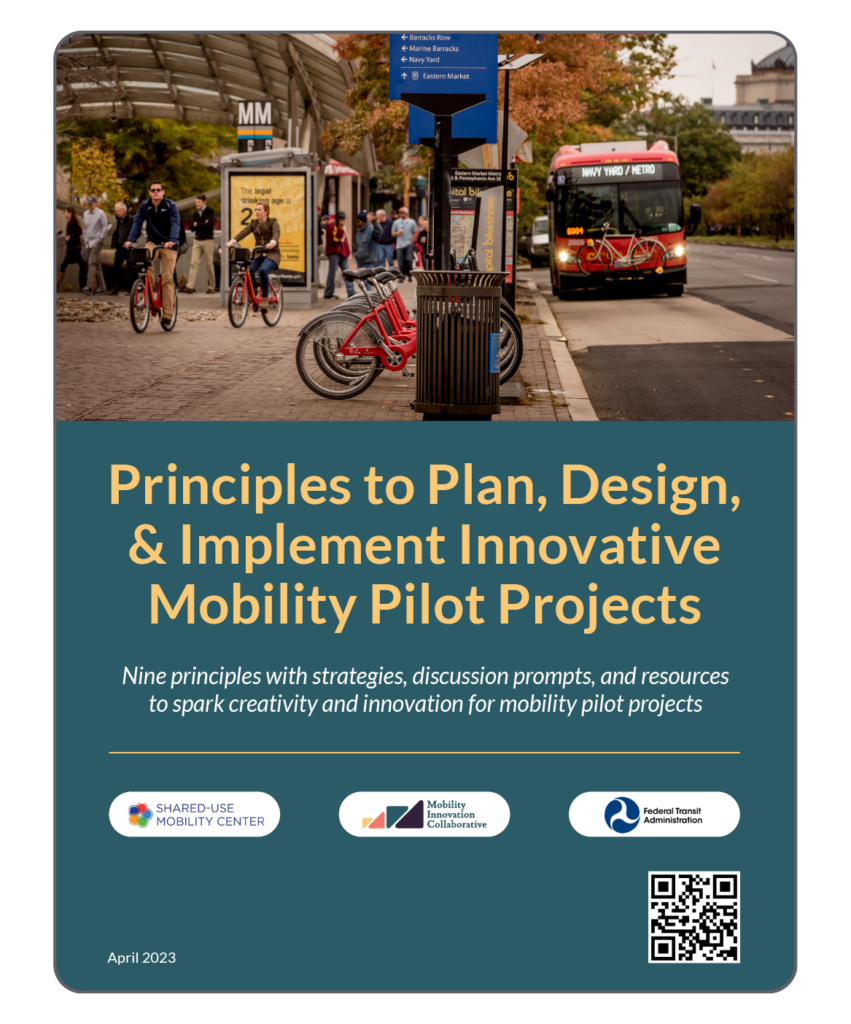
Guidebook for Mobility Innovation: Principles to Plan, Design, & Implement Innovative Mobility Projects
Shared-Use Mobility Center
April 2023
TOPICS: Policy and Planning , Training
This guidebook is designed to help mobility innovators in the transportation sector while developing and implementing a pilot project. It provides a series of principles to better plan, design, and implement innovative mobility pilot projects. These principles have supporting information about strategies to execute this principle, examples of this principle in action, resources about this principle, and questions to prompt team discussions. The guidebook includes advice and support for training transit workers during a pilot project.
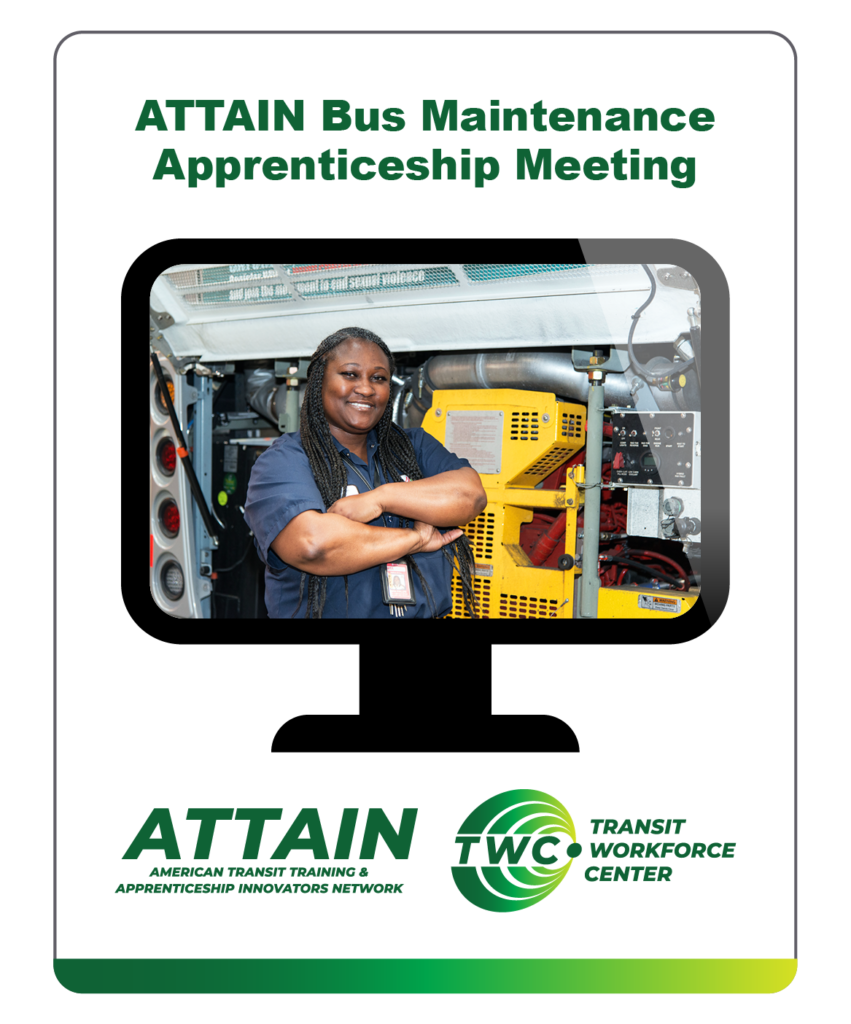
ATTAIN Bus Maintenance Apprenticeship Meeting
The American Transit Training and Apprenticeship Innovators Network (ATTAIN), run by the Transit Workforce Center (TWC), is a peer network created for transit agencies and labor unions to explore new apprenticeship programs or enhance existing programs for their frontline workforce. This recorded meeting of the ATTAIN Bus Maintenance Committee serves as a resource for transit industry stakeholders and includes presentations on apprenticeship and case studies of successful programs across the country.
Transit Workforce Center
March 2023
TOPICS: Apprenticeship , Career Pathways , Trainer and Mentor Development , Training
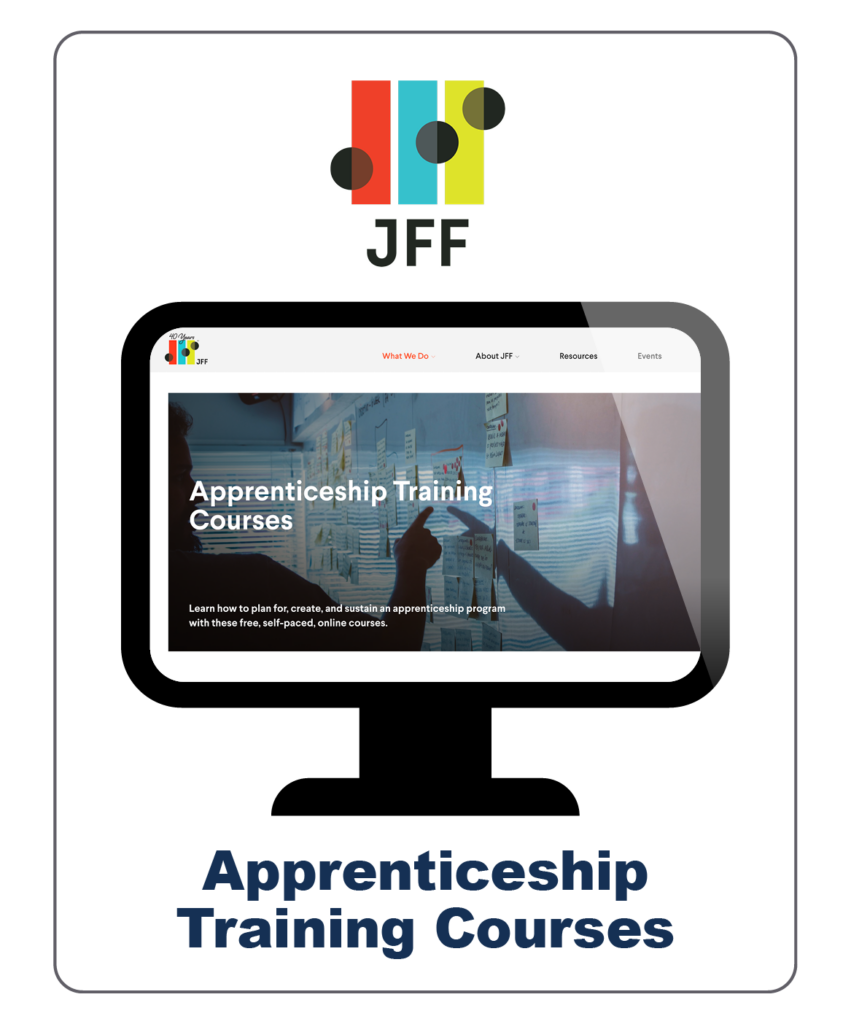
Apprenticeship Training Courses
This series of free online training courses will help transit providers and others plan for, create, and sustain registered apprenticeship programs. Several courses have already been released and others are forthcoming.
Jobs for the Future
March 2023
TOPICS: Apprenticeship , Career Pathways , Mentorship , Trainer and Mentor Development , Training
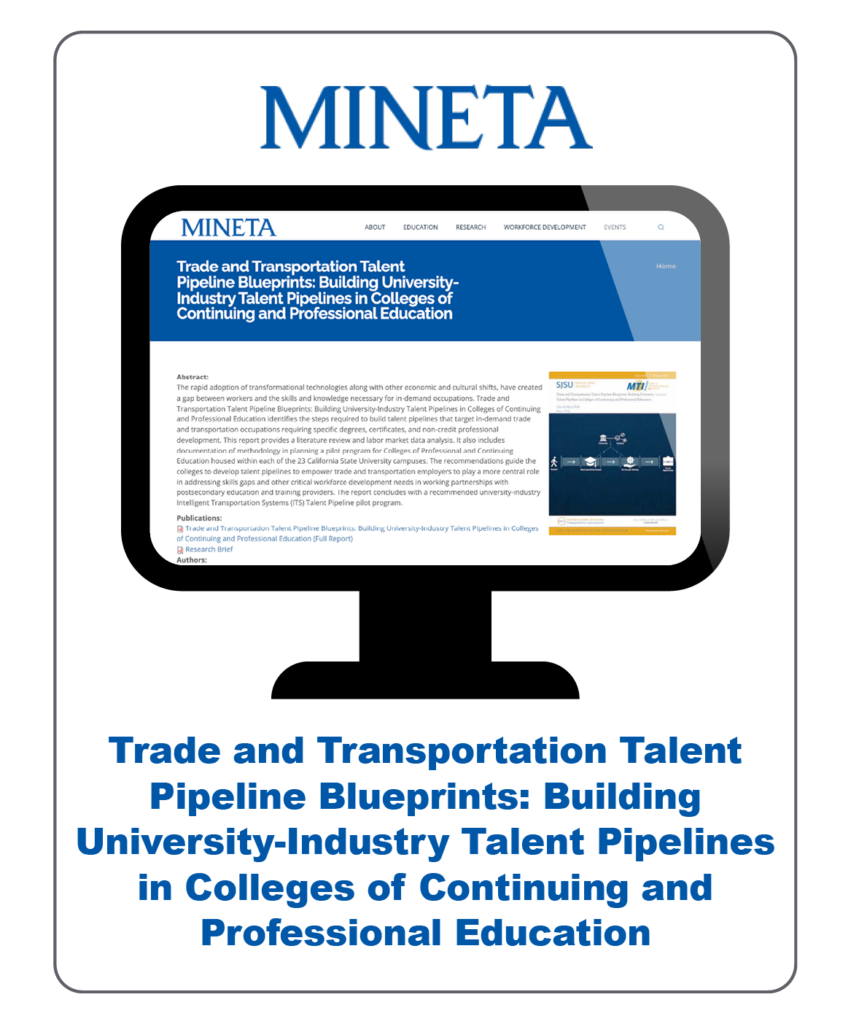
Trade and Transportation Talent Pipeline Blueprints: Building University-Industry Talent Pipelines in Colleges of Continuing and Professional Education
This report identifies the steps required to build talent pipelines that target in-demand trade and transportation occupations requiring specific degrees, certificates, and non-credit professional development and provides a literature review and labor market data analysis. It also includes documentation of methodology in planning a pilot program for Colleges of Professional and Continuing Education housed within each of the 23 California State University campuses.
Mineta Transportation Institute
February 2023
TOPICS: Career Pathways , Hiring and Recruitment , Policy and Planning , Training
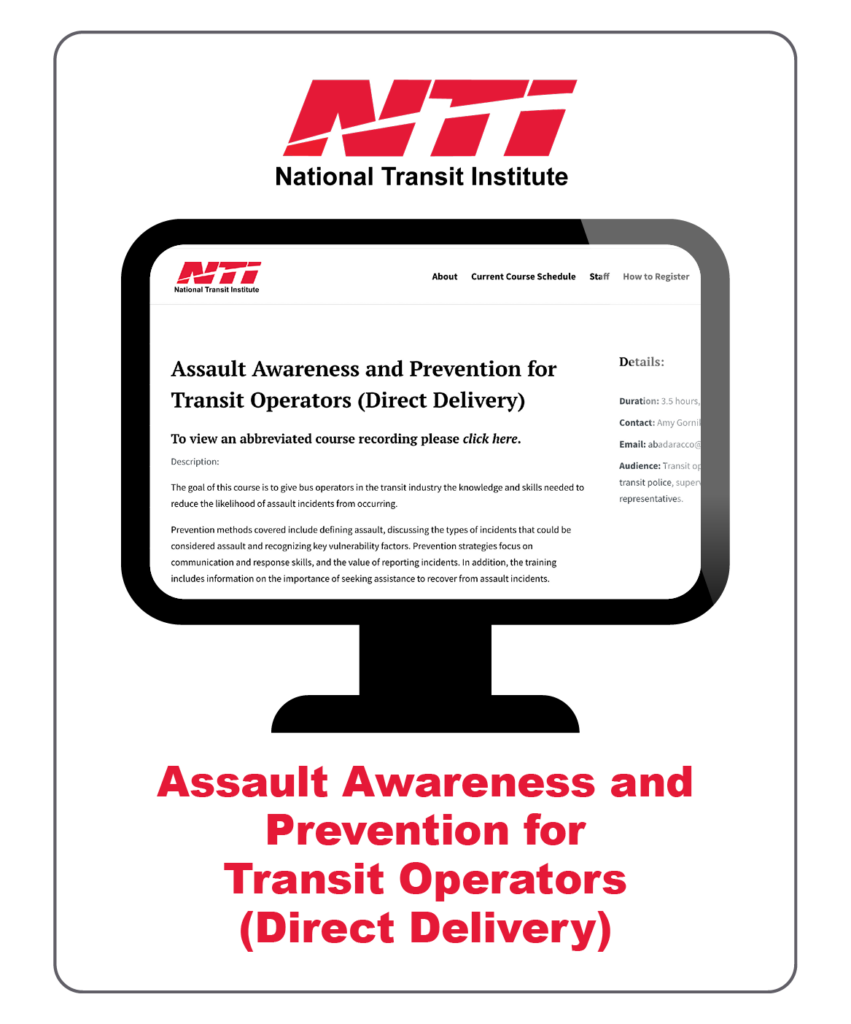
Assault Awareness and Prevention for Transit Operators (Direct Delivery)
This course provides transit bus operators with knowledge and skills to reduce the likelihood of assault incidents, including defining assault and types of incidents that could be considered assault, covering prevention strategies such as communication and response skills, and emphasizing the importance of reporting assault incidents and seeking recovery assistance.
National Transit Institute
TOPICS: Safety and Health , Training
You can register for the course with the Rutgers University Noncredit Course Catalog & Registration System.
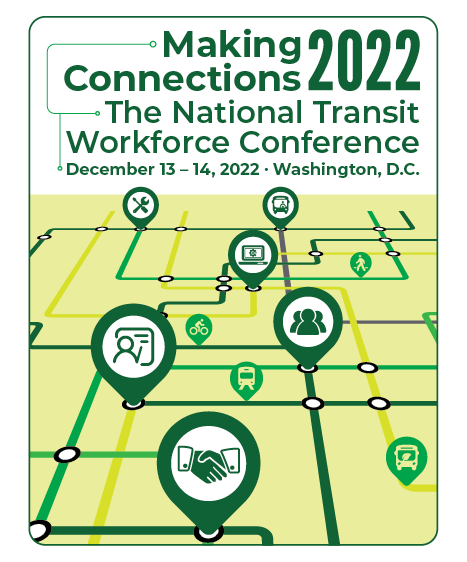
Making Connections 2022 – Conference Overview and Videos
The Transit Workforce Center hosted Making Connections 2022: The National Transit Workforce Conference in Washington, D.C. on December 13-14, 2022. This conference brought together participants from urban, suburban, rural, and tribal public transportation and industry stakeholders in plenaries, workshops, networking, and ongoing dialogue. Discussions and sessions featured topics including recruitment and retention, training, mentoring and apprenticeships, new technologies, and preparing today’s and tomorrow’s workforce.
Transit Workforce Center
December 2022
Session materials from Making Connections 2022 are hosted on the TWC Resource Center. Please click here to view all related materials. A PDF copy of the conference schedule is linked below.
Opening Video:
Recap Video:
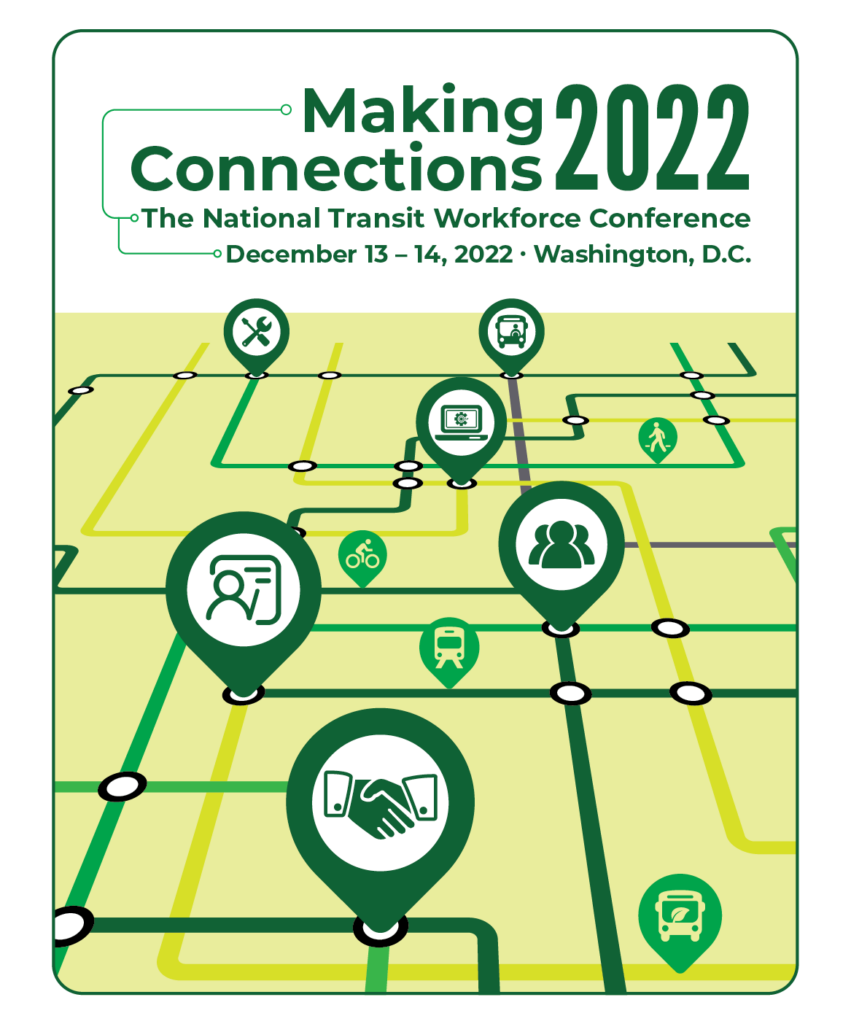
Making Connections 2022 – Engines to Inverters: Preparing Technicians for ZEB Deployment
This session about working with ZEB technologies was presented as part of TWC’s Making Connections 2022 transit workforce conference in December, 2022.
Transit Workforce Center
December 2022
Session Summary: As transit agencies integrate zero-emission technologies into their fleet, many are experiencing difficulties in preparing their frontline workforce to properly maintain and operate the equipment. In this workshop, panelists explored lessons learned, best practices, and available resources to upskill their technician and maintenance workforce and prepare the future frontline workers to safely and effectively work with ZEB technologies. Presentations by industry experts, early-adopters, and successful rollouts offered insight for an audience seeking guidance on first steps and follow-through.
Moderators
- James Hall: Program Manager, Technical Training – International Transportation Learning Center/Transit Workforce Center
- Lisa Jerram: Director of Bus Operations and New Vehicle Technologies – American Public Transportation Association
Speakers
- Joseph Gamez: Assistant Chief Maintenance Officer Maintenance Training – New York City Transit, Department of Buses
- Walter Kirkland: Service Manager – StarMetro Tallahassee
- Obed Mejia: Senior Bus Equipment Instructor – Los Angeles County Metropolitan Transportation Authority

Making Connections 2022 – Transit Instructional Systems Design Boot Camp
This session about instructional systems design was presented as part of TWC’s Making Connections 2022 transit workforce conference in December, 2022.
Transit Workforce Center
December 2022
TOPICS: Making Connections Conference , Training
Session Summary: From Adult Learning Theory to measurable learning objectives to learning models that are proven to enhance understanding and retention – the highly interactive Transit Instructional Systems Design Boot Camp was designed to help participants gain a basic working knowledge of the full ISD process. Based on Chuck Hodell’s best-selling book, ISD From the Ground Up, this session introduced transit trainers and managers to the widely-used and theory-supported system of instructional design practice that provides the foundation for today’s transit classroom and field instruction.
Moderator
- Julie Deibel-Pundt: Program Director, Instructional Design – International Transportation Learning Center/Transit Workforce Center
Speakers
- Dennise Cardona: Digital Content Manager – University of Maryland Baltimore County
- Chuck Hodell: Affiliate Professor – University of Maryland School of Pharmacy; Faculty Lecturer – Northeastern University; Academic Advisor – International Masonry Training and Education Foundation

Making Connections 2022 – Growing Your Own Through Apprenticeship: A Joint Approach to Building Skills
This session about apprenticeship was presented as part of TWC’s Making Connections 2022 transit workforce conference in December, 2022.
Transit Workforce Center
December 2022
Session Summary: Apprenticeship programs create a foundation for strong, effective workforce development programs. The ability to build and maintain these programs requires strong labor-management partnerships, or, in the case of nonunion agencies, ongoing involvement of, and management engagement with, the frontline workforce. In this session, panelists from transit agencies presented examples of challenges met and lessons learned as they designed and implemented their apprenticeship programs. Attendees heard how apprenticeship can support a variety of frontline transit occupations and the benefits that apprenticeship offers.
Moderator
- Jamaine “G” Gibson: Director of Apprenticeships and Workforce Development – Amalgamated Transit Union
Speakers
- Dexter Bishop: Elevator/Escalator Journeyman – Amalgamated Transit Union/Local 689
- Stephanie Deiger: Chief Human Resources Officer – Southeastern Pennsylvania Transportation Authority
- Brian Funk: Chief Operating Officer and Deputy General Manager – MetroTransit Minneapolis
- Michael Hanssen: Supervisor of Technical Skills Training – Washington Metropolitan Area Transit Authority
- Alec Johnson: Bus Operator Apprenticeship Coordinator – MetroTransit Minneapolis/Amalgamated Transit Union Local 1005

Making Connections 2022 – Hands-On Instructional Training for Transit Trainers
This session about hands-on instructional training was presented as part of TWC’s Making Connections 2022 transit workforce conference in December, 2022.
Transit Workforce Center
December 2022
Session Summary: Hands-on instructional training is a critical piece to any organization’s training program. This workshop addressed hands-on training and its importance, best practices, lessons learned, and how to create effective hands-on training. Workshop participants observed hands-on welding simulation. The goal of this session was for participants to leave with the knowledge and resources to make hands-on training impactful and meaningful!
Moderators
- Kristen Ribaudo: Instructional Systems Design Consultant – International Transportation Learning Center/Transit Workforce Center
- Grant Young: Instructional Systems Design Consultant – International Transportation Learning Center/Transit Workforce Center
Speakers
- Ed Hogan: Chief Welding Instructor – Southeastern Pennsylvania Transportation Authority
- Grace Kuka: Welding Instructor – Southeastern Pennsylvania Transportation Authority

Making Connections 2022 – Designing an Impactful Training Program: Linking Program Design to Classroom Learning and On-The-Job Training for Transit Frontline Workers
This session about program design was presented as part of TWC’s Making Connections 2022 transit workforce conference in December, 2022.
Transit Workforce Center
December 2022
TOPICS: Apprenticeship , Making Connections Conference , Retention , Training
Session Summary: This workshop covered the basic building blocks of program design. Participants evaluated the pieces needed to develop a robust program that enables trainers to link good program design to effective classroom and on-the-job learning. This workshop was relevant to those looking to build new programs or refine current programs.
Moderator
- Grant Young: Instructional Systems Design Consultant – International Transportation Learning Center/Transit Workforce Center
Speakers
- Mike Glaeser: Manager, Bus Maintenance Training – Washington Metropolitan Area Transit Authority
- Colleen May: Senior Director of Training – Southeastern Pennsylvania Transportation Authority
- Danielle Wallace: Apprenticeship and Pathways Manager – King County Metro Transit

Making Connections 2022 – Considerations on the Future of Human-Automation Teaming in the Transit Workforce
As part of the plenary session on “Navigating New Directions: Emerging Technologies and the Future of Transit Workforce” at Making Connections 2022, Carnegie Mellon researchers presented on a study released in spring 2022 on bus automation, examining issues related to the practical safety and operational limitations of deploying driverless buses in transit systems while citing many technologies that can enhance safety and improve driver performance.
Transit Workforce Center
December 2022
TOPICS: Making Connections Conference , Training

Making Connections 2022 – Online Training and Learning Technologies
This session about online training was presented as part of TWC’s Making Connections 2022 transit workforce conference in December, 2022.
Transit Workforce Center
December 2022
TOPICS: Making Connections Conference , Training
Session Summary: The Online Training and Learning Technologies Workshop addressed how online training is evolving, strategies to start or expand an online training program, and ways to incorporate learning technologies, regardless of training program size. The session included an exciting snapshot of how cutting-edge learning technologies are successfully being used in the transit industry today.
Moderator
- Grant Young: Instructional Systems Design Consultant – International Transportation Learning Center/Transit Workforce Center
Speakers
- Julie Deibel-Pundt: Program Director, Instructional Design – International Transportation Learning Center/Transit Workforce Center
- Michael Flocchini: Training and Education Manager – AC Transit
- Todd Marks: Founder, CEO and President – Mindgrub Technologies
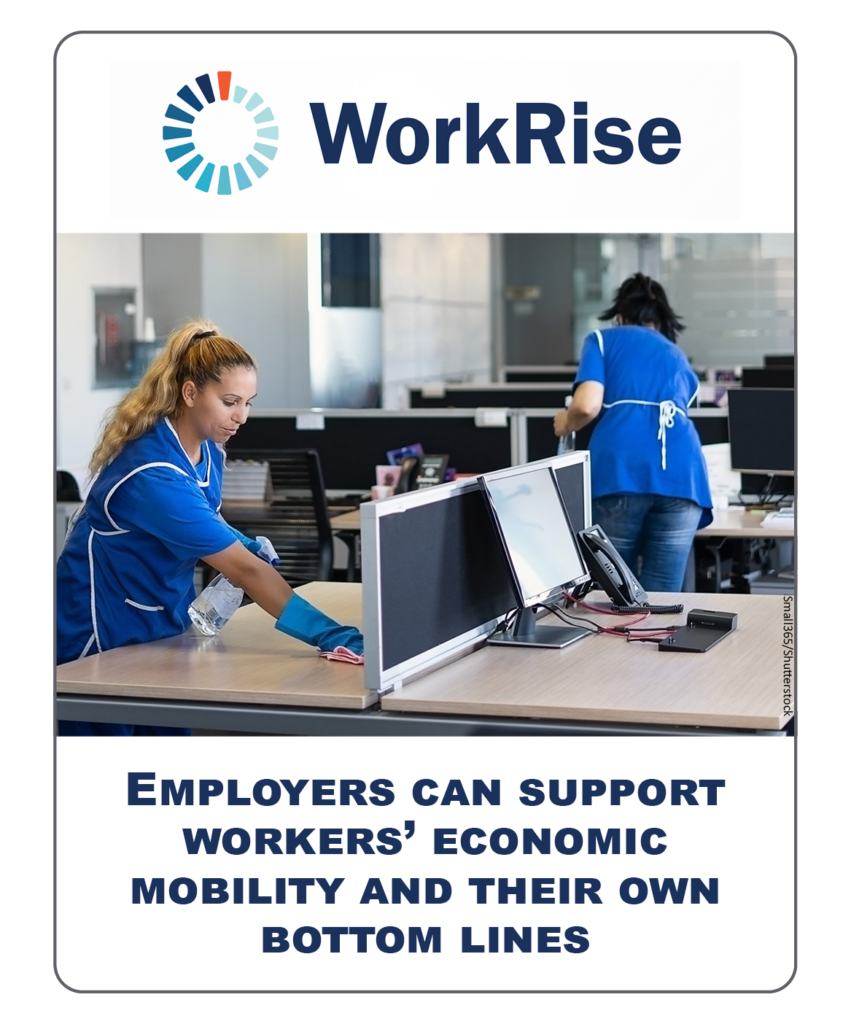
Employers can support workers’ economic mobility and their own bottom lines
This article provides a concise description of several strategies employers can use to create clear advancement pathways in their workplaces, which will help attract and retain quality candidates. It discusses research around what modern-day employees are looking for in a workplace and a position. It also links to a related article, which provides an overview of the framework created by Jobs for the Future (JFF) to describe the components of a good job.
WorkRise
November 2022
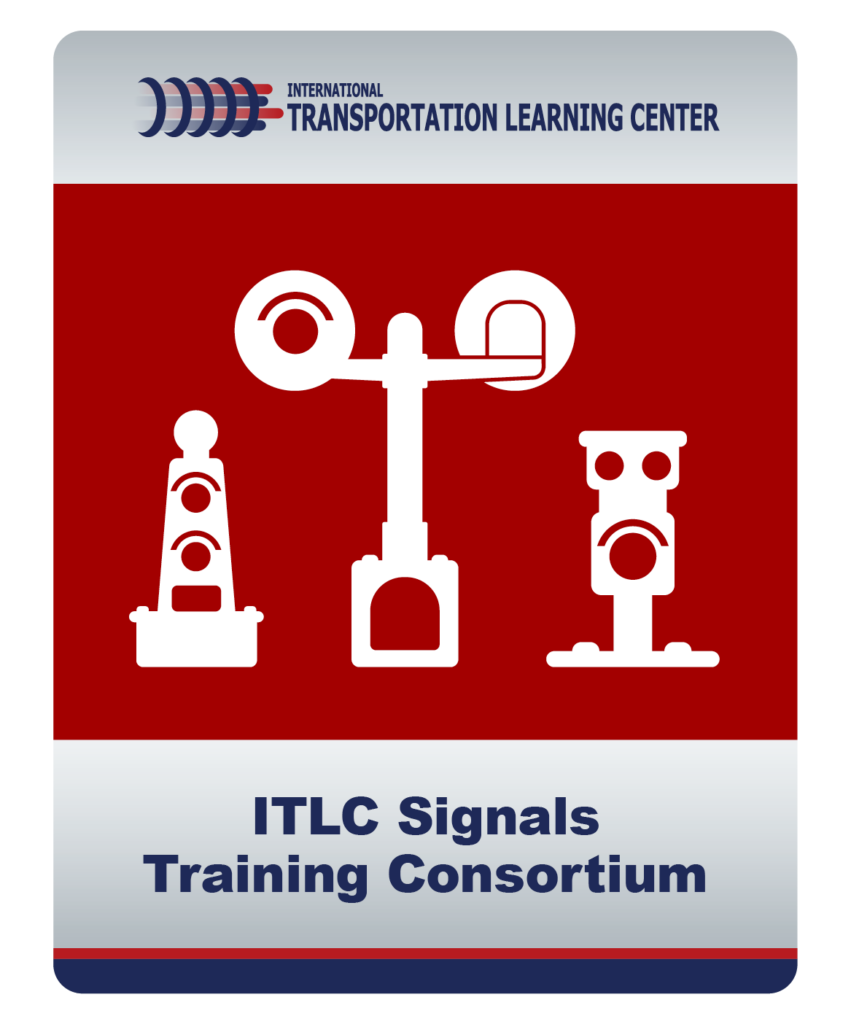
ITLC Signals Training Consortium
The International Transportation Learning Center (ITLC) organizes multiple national training consortia to develop standards-based national training courseware for frontline occupations in public transportation organizations.
In 2013, public transportation agencies and unions across the country came together to form the National Signals Maintenance Training Consortium. They were driven to create a full set of standardized national courseware to support training and apprenticeship programs for signal maintainers. Since then, over 70 signals maintenance subject matter experts from 26 member agencies and unions have worked with instructional systems designers from the ITLC to create a comprehensive training program for signal maintainers.
International Transportation Learning Center
November 2022
TOPICS: Safety and Health , Training
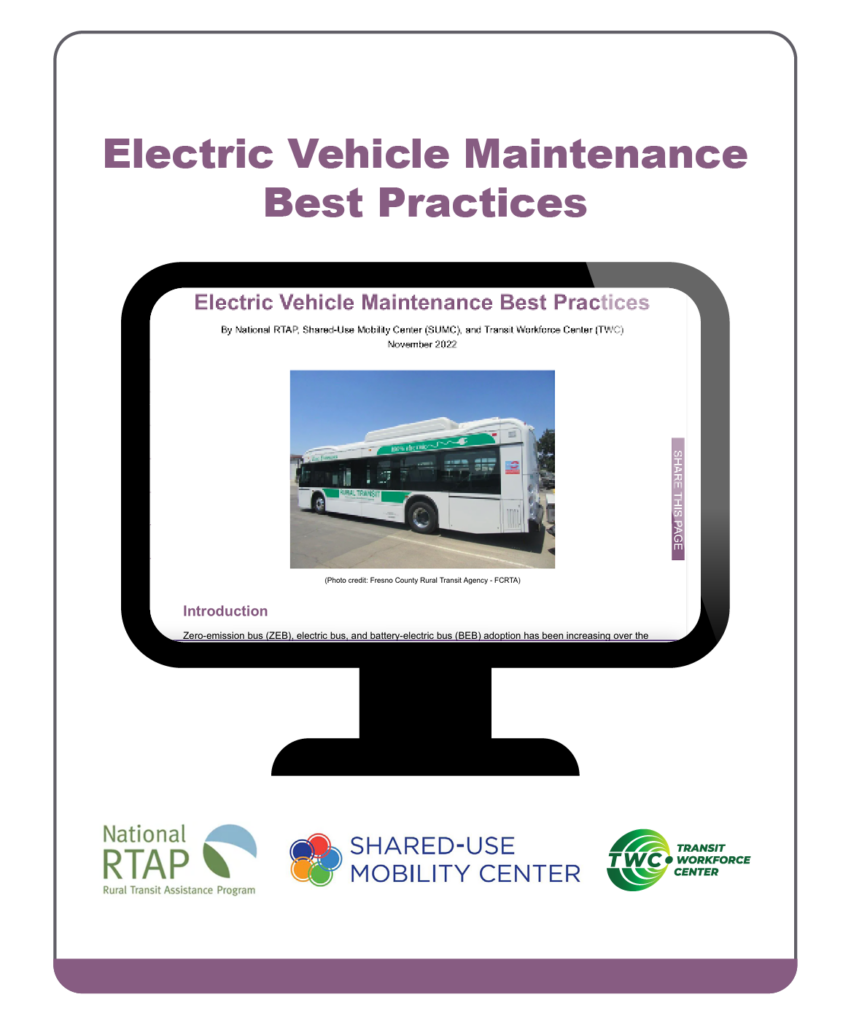
Electric Vehicle Maintenance Best Practices
This best practice spotlight article on electric vehicle maintenance provides recommended practices and case studies from transit agencies that have successfully implemented these vehicles into their fleets.
National RTAP, Shared-Use Mobility Center (SUMC), and Transit Workforce Center (TWC)
November 2022
TOPICS: Low-No , Safety and Health , Training
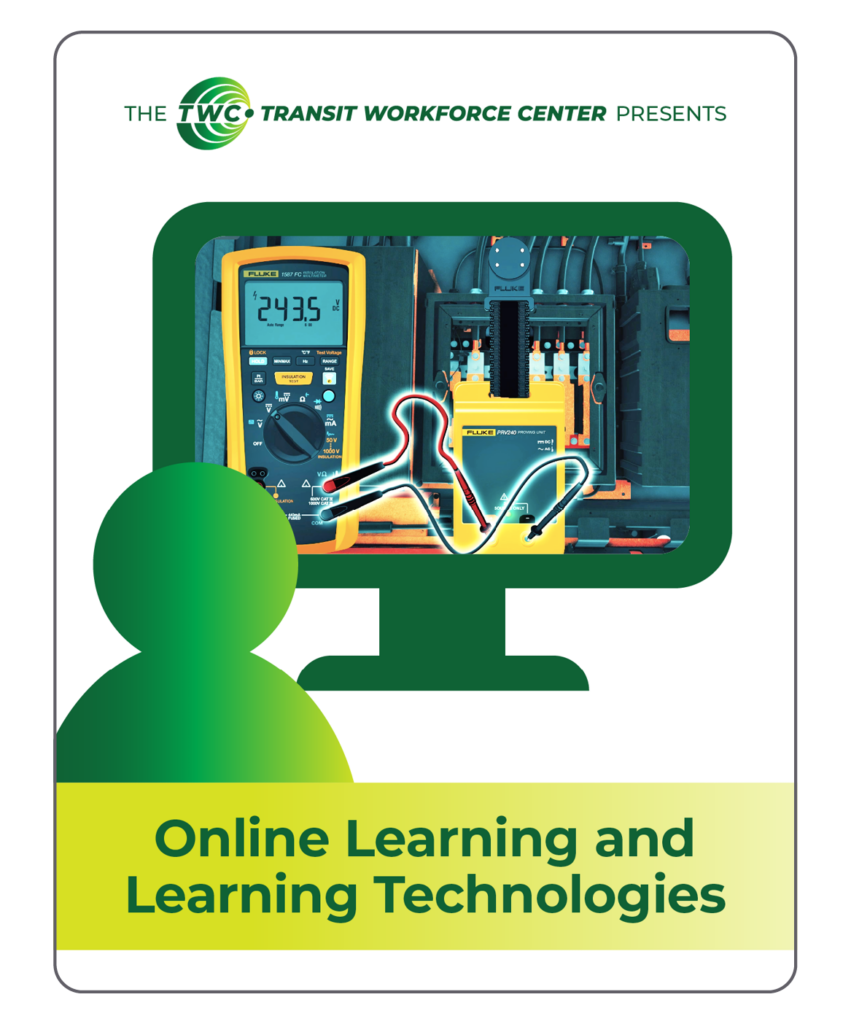
Online Learning and Learning Technologies Webinar
On October 25, 2022, TWC hosted an exciting webinar that explores online training, best practices in training delivery, and exciting trends in online technology for the transit industry.
Transit Workforce Center
October 2022
TOPICS: Training
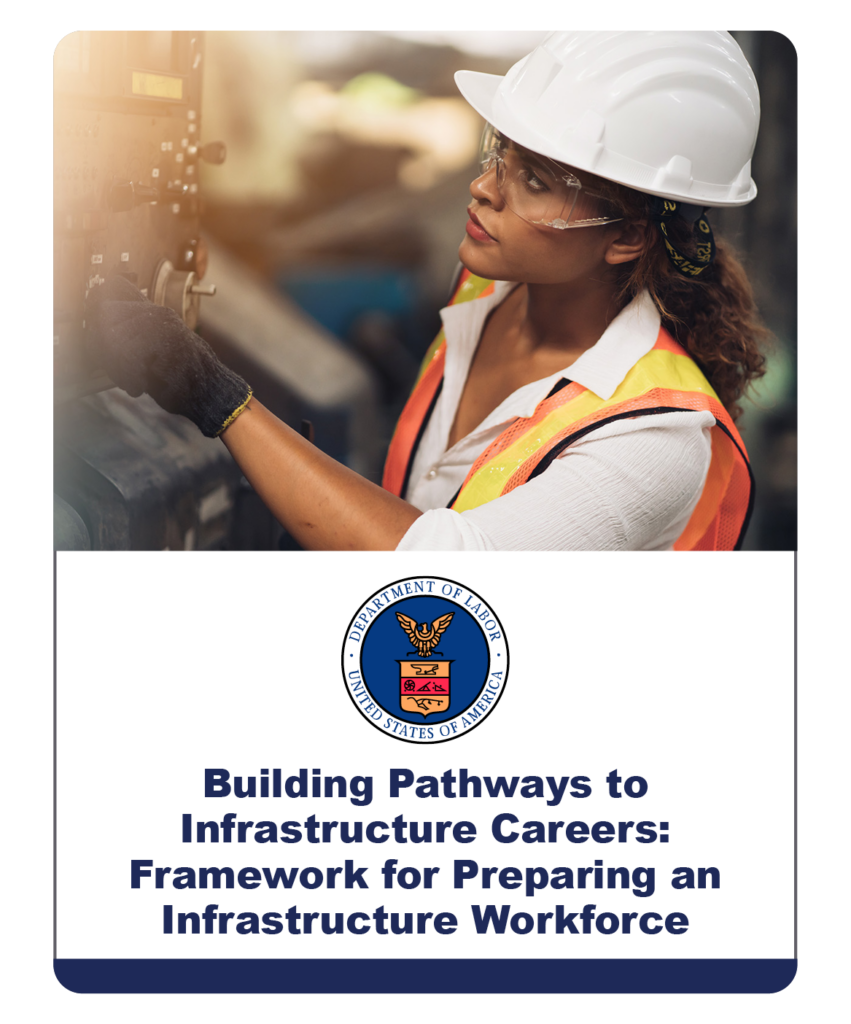
Building Pathways to Infrastructure Careers: Framework for Preparing an Infrastructure Workforce
This resource provides a framework for all workforce stakeholders, including infrastructure project leads, to engage the public workforce system in implementing the Bipartisan Infrastructure Law with strong workforce commitments and proven strategies that produce high-quality education, training, and employment opportunities for all workers.
U.S. Department of Labor, Employment and Training Administration
October 2022
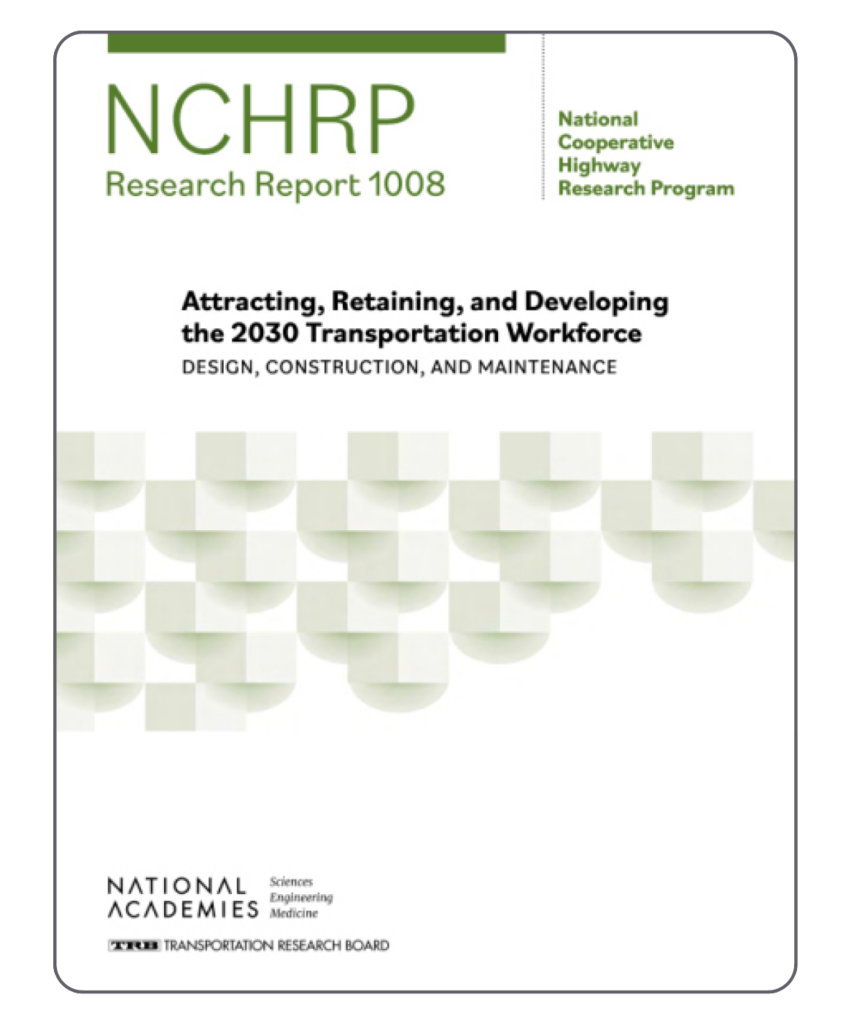
Attracting, Retaining, and Developing the 2030 Transportation Workforce
This report provides a guide with specific strategies and action plans to help agencies identify and address workforce needs through 2030 and beyond.
National Cooperative Highway Research Program
October 2022
State departments of transportation are responsible for providing a safe, efficient, and effective transportation system of infrastructure and services. To meet these responsibilities, transportation agencies need a highly skilled workforce with the expertise required to identify and address current transportation needs while also being prepared to address the challenges of the future.
Contributor(s): National Academies of Sciences, Engineering, and Medicine; Transportation Research Board; National Cooperative Highway Research Program; Candace Blair Cronin; Allison Alexander; Grace Arnold; Juan Carlos Batarse; Kelly Dray; Sasha Iliev; Jessica Jenkins; Erik Smallwood; Rachel Smart; Jake Streng; Mara Campbell; Susan Gallagher; Tyler Reeb; Tom O’Brien; Glenn McRae
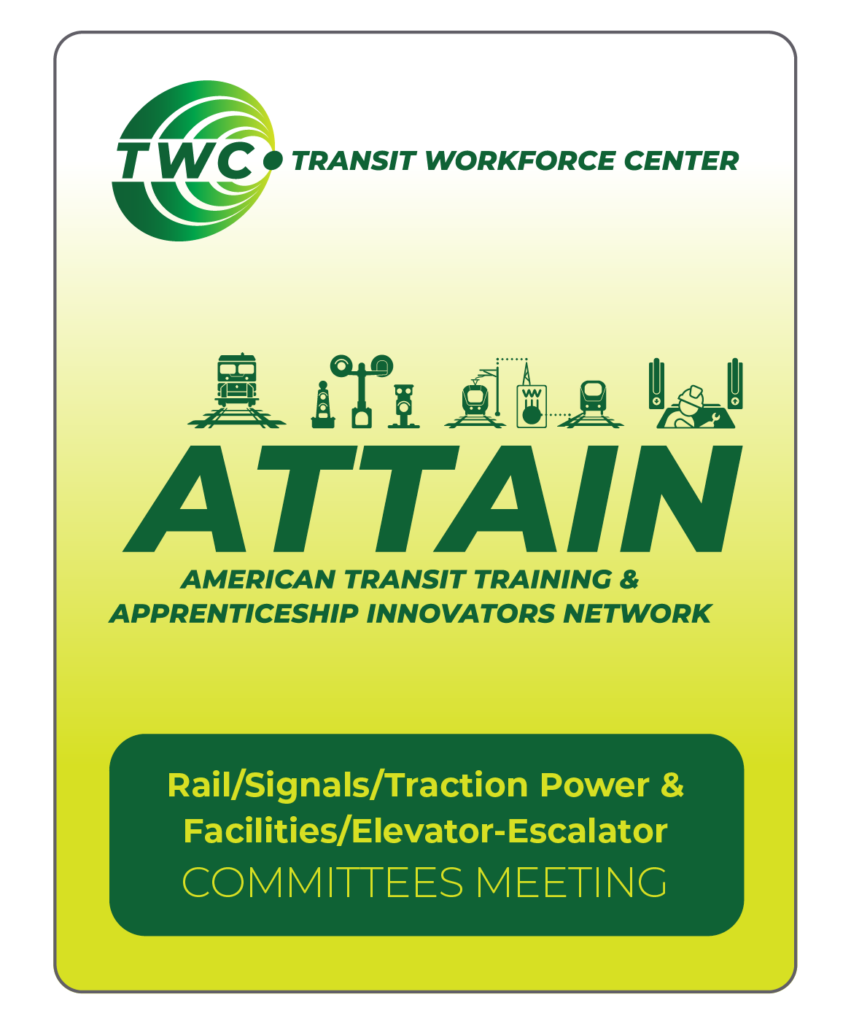
ATTAIN Rail/Signals/Traction Power and Facilities/Elevator-Escalator Committees Meeting
This recorded meeting of the ATTAIN committees for Rail/Signals/Traction Power and Facilities/Elevator-Escalator serves as a resource for transit industry stakeholders and includes presentations on apprenticeship and case studies of successful programs across the country.
Transit Workforce Center
September 2022
TOPICS: Apprenticeship , Career Pathways , Community Engagement , Hiring and Recruitment , Training
The American Transit Training and Apprenticeship Innovators Network (ATTAIN), run by the Transit Workforce Center (TWC), is a peer network created for transit agencies and labor unions to explore new apprenticeship programs or enhance existing programs for their frontline workforce.
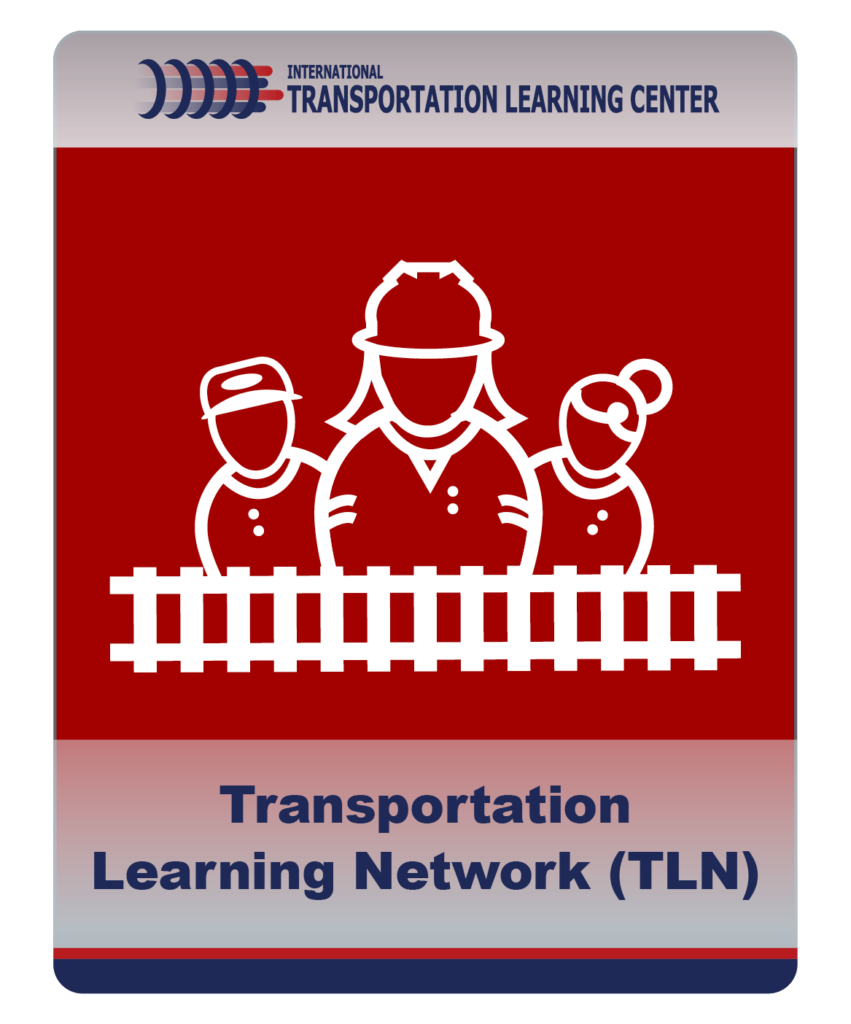
Transportation Learning Network (TLN)
The Transportation Learning Network (TLN) is part of an industry-wide effort aimed at strengthening transit training programs. It is designed and maintained by the International Transportation Learning Center, and provides a platform for accessing industry specific training materials – both for direct self-led online learning and also for download by trainers to use in a classroom or field settings. Topics covered include maintenance of transit elevators and escalators, signals, railcar and traction power.
International Transportation Learning Center
September 2022
TOPICS: Apprenticeship , Safety and Health , Training
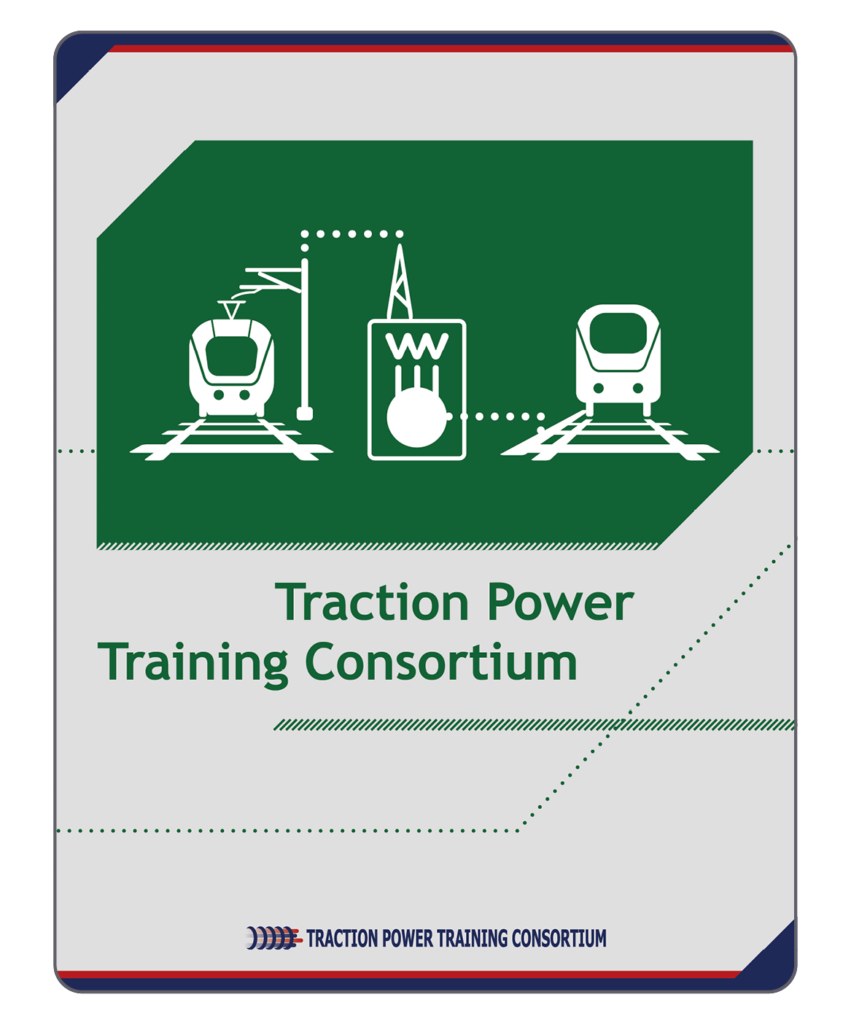
Traction Power Training Consortium
The International Transportation Learning Center (ITLC) organizes multiple national training consortia to develop standards-based national training courseware for frontline occupations in public transportation organizations.
Launched by the ITLC in March 2020, the Traction Power Training develops introductory and advanced instruction-ready and interactive courses on traction power maintenance that build on APTA-approved and industry-recognized training standards. Course topics include: worker safety, troubleshooting traction power systems, power distribution, substations, overhead and third rail power distribution, and lifting and rigging operations.
International Transportation Learning Center
TOPICS: Safety and Health , Training
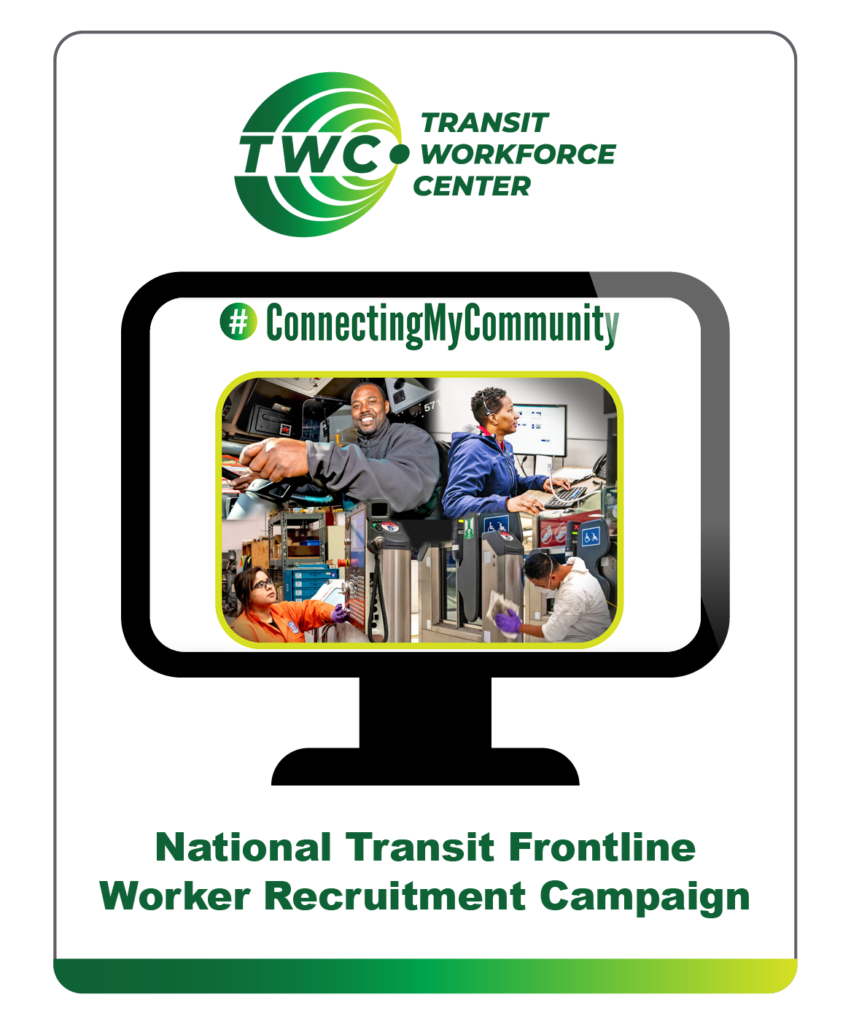
National Transit Frontline Worker Recruitment Campaign
Across the United States, whether large, small, urban, rural, or tribal, transit agencies are facing the challenge of recruiting and retaining drivers, mechanics, and technicians who can operate and maintain the buses of our public transit systems. To help support local transit efforts, TWC is developing the #ConnectingMyCommunity national frontline worker recruitment campaign, coordinated with the Federal Transit Administration (FTA) and industry, labor, and community partners from around the country.
Transit Workforce Center
July 2022
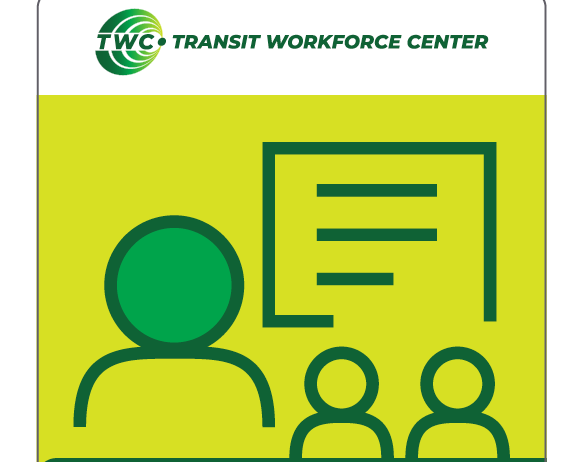
Train-the-Mentor
Transit Workforce Center
TOPICS: Mentorship , Trainer and Mentor Development , Training
This workshop is designed for employees or journeyworkers designated as mentors to support on-the-job learning for apprenticeship programs. The content includes a review of mentor roles, an introduction to learning styles, and a facilitated discussion about communication and problem solving. The second half of the workshop includes role playing exercises for the participants to practice what they learned. The instructor leads the participants through a structured review of that experience and review of the mentoring concepts presented. The program acknowledges the wisdom of the mentors and encourages them to view themselves as ambassadors for the apprenticeship and advocates for the apprentices.
Please follow the link below for additional details and to submit a mentor training request.
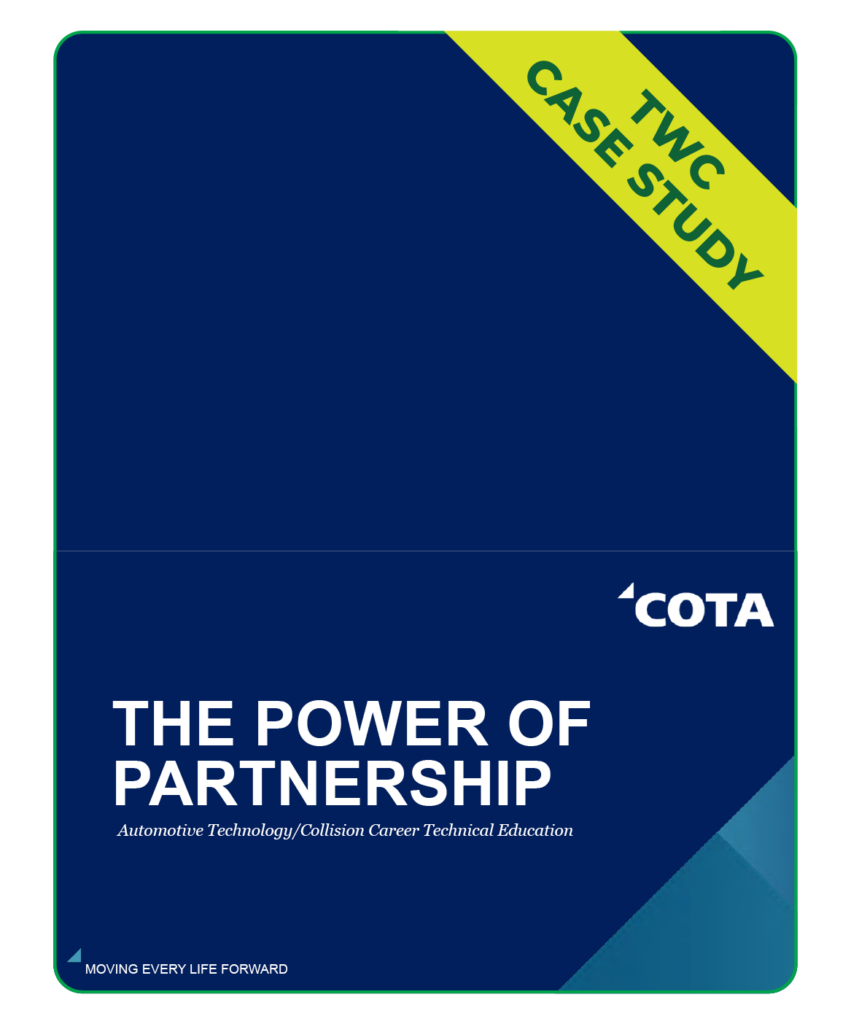
The Power of Partnership: Automotive Technology/Collision Career Technical Education Program
This multimedia case study details an internship program developed by the Central Ohio Transit Authority (COTA) and Transport Workers Union (TWU) Local 208. This resource contains a brief written summary, presentation slides, and video of a COTA-TWU Local 208 presentation. The entire June 7, 2022 TWC webinar, Recruiting and Developing Today’s Transit Workforce, can be found here. The complete webinar recording includes a question and answer session, beginning at 51:53, that covers more detail on this and other recruitment initiatives.
Transit Workforce Center; Central Ohio Transit Authority (COTA); Transport Workers Union Local 208
June 2022
To meet its need for vehicle maintenance technicians, COTA leadership partnered with TWU Local 208 and Columbus City Schools to provide a Vehicle Maintenance Internship Program, helping students already enrolled in an automotive program to develop additional technology competencies and prepare them for entry level positions. The COTA Vehicle Maintenance Internship Program provides career technical center high school students who have completed their junior year in a participating career-technical program the opportunity to work as paid interns in the Vehicle Maintenance Department at COTA. Students receive classroom training, hands-on training, laboratory experiences, and are partnered with mentors in preparation to enter the workforce as entry level automotive/collision technologies service technicians. From this foundation, COTA has now established a state-registered pre-apprenticeship and apprenticeship program to support vehicle technician hiring, retention, and workforce development.
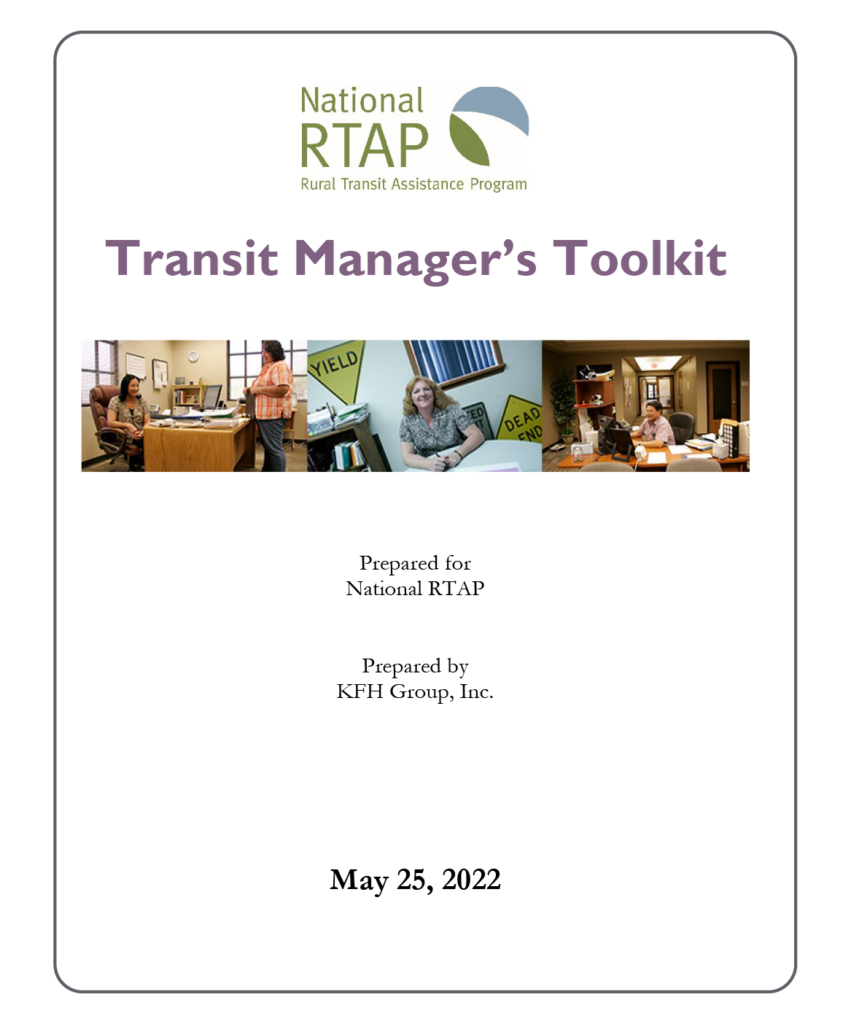
Transit Manager’s Toolkit: Driver Recruitment, Training, and Retention
This toolkit from National RTAP introduces both requirements and suggested practices in driver recruiting/hiring, retention/motivation, and training. It includes information about federal requirements, how to create a positive work environment, and training standards.
National Rural Transit Assistance Program
May 2022
TOPICS: Hiring and Recruitment , Retention , Training
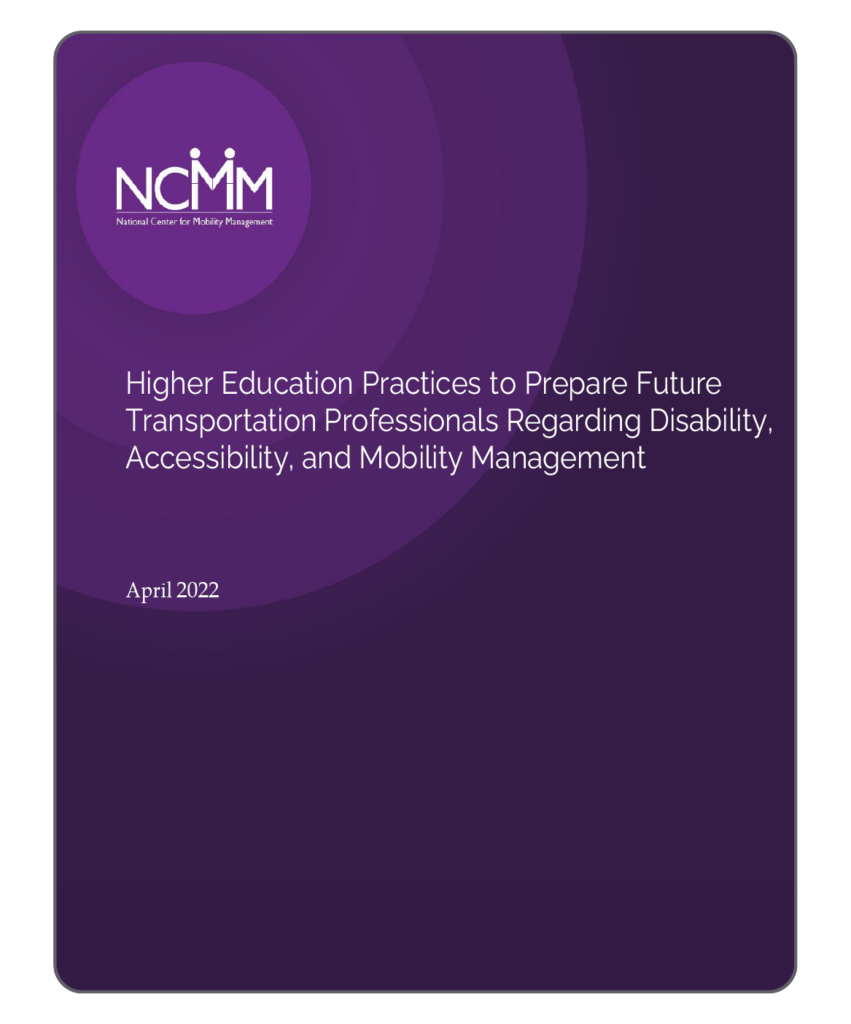
Higher Education Practices to Prepare Future Transportation Professionals Regarding Disability, Accessibility, and Mobility Management
This National Center for Mobility Management (NCMM) Information Brief provides the results of a NCMM study regarding mobility management, disability, and accessibility content in higher education preparation programs. This brief offers recommendations regarding how to integrate such content, as well as information on the recruitment and retention of individuals with disabilities in the transportation industry.
Please click the link below to view NCMM’s Mobility Management in Practice Series; this brief is listed among several 2022 publications.
National Center for Mobility Management (NCMM)
April 2022
TOPICS: Community Engagement , Hiring and Recruitment , Retention , Training
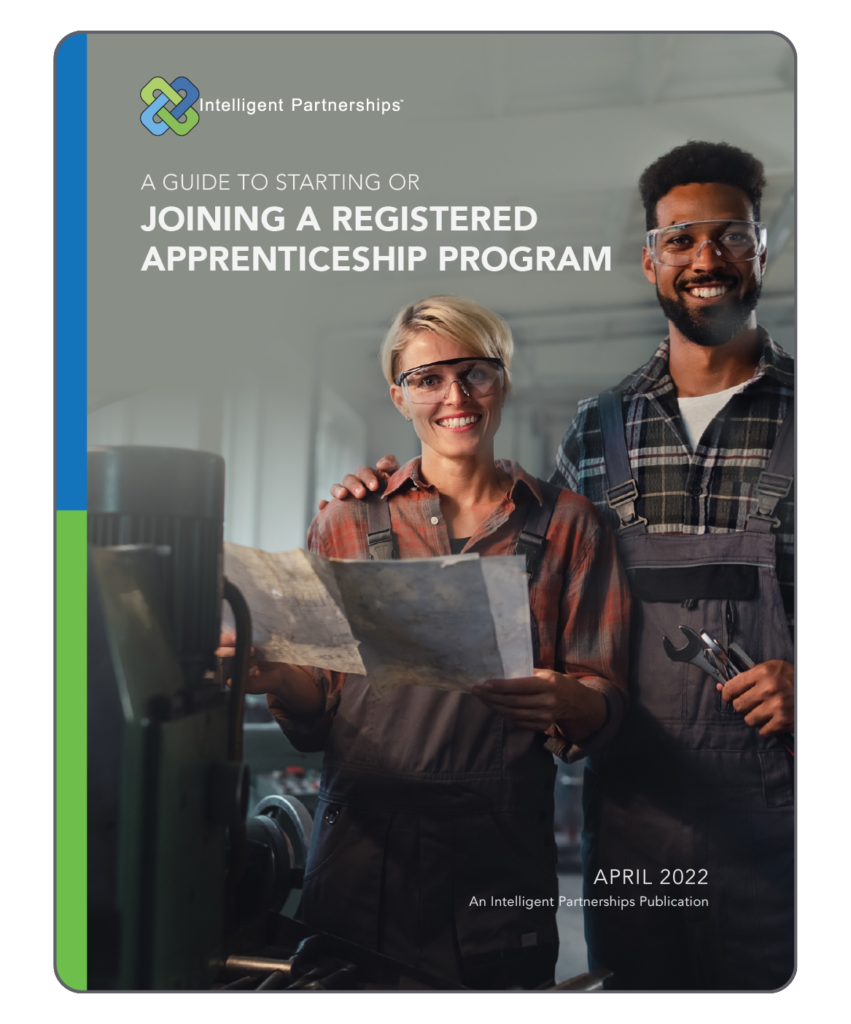
A Guide to Starting or Joining a Registered Apprenticeship Program
This publication provides an overview of registered apprenticeship, the benefits of registered apprenticeships to the employer, and the basic steps to get started.
You can also consult with your state office on registered apprenticeship for technical assistance and support for questions on the apprenticeship model, guidance on each phase of developing a program, connections to training providers, and advice on available funding sources to support apprenticeships: https://www.apprenticeship.gov/about-us/state-offices
Intelligent Partnerships
April 2022
TOPICS: Apprenticeship , Career Pathways , Community Engagement , Policy and Planning , Training
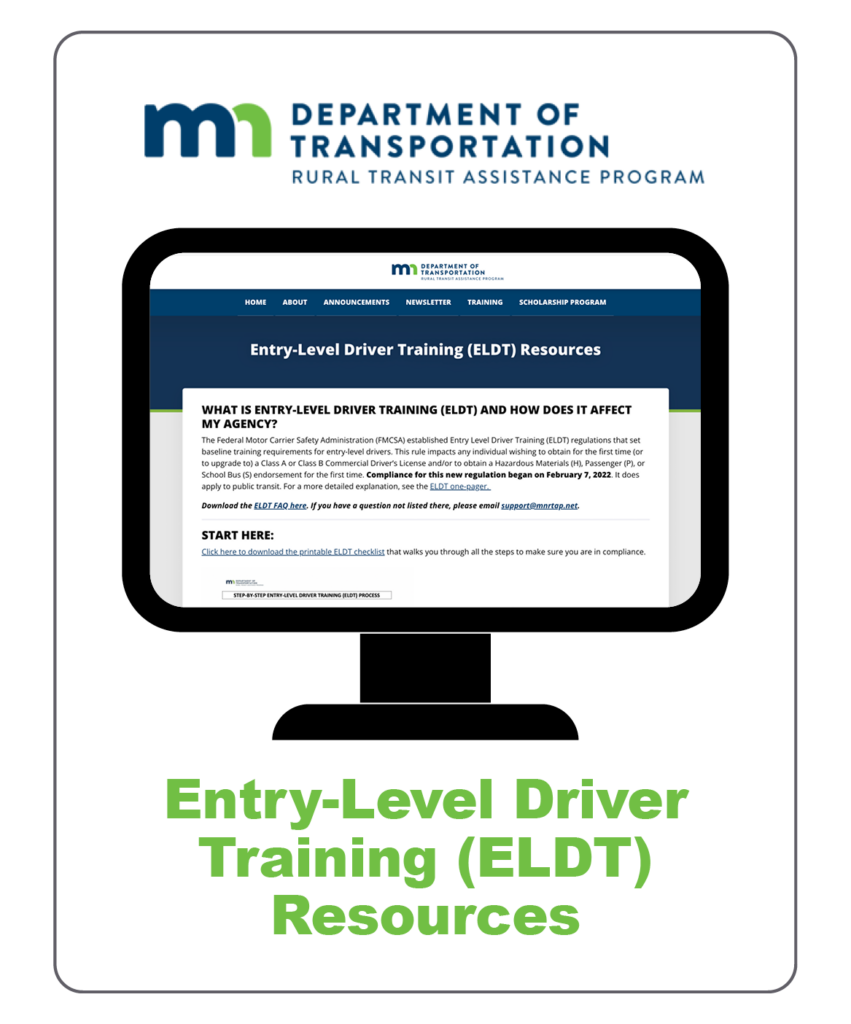
Entry-Level Driver Training (ELDT) Resources
The Federal Motor Carrier Safety Administration (FMCSA) established Entry Level Driver Training (ELDT) regulations that set baseline training requirements for entry-level drivers. This rule impacts any individual wishing to obtain for the first time (or to upgrade to) a Class A or Class B Commercial Driver’s License. These resources from the Minnesota Rural Transit Assistance Program (RTAP) provide information about the regulations, training materials, training providers, checklists, etc. to assist transit agencies in complying with regulations.
Minnesota Rural Transit Assistance Program
February 2022
TOPICS: Career Pathways , Hiring and Recruitment , Training
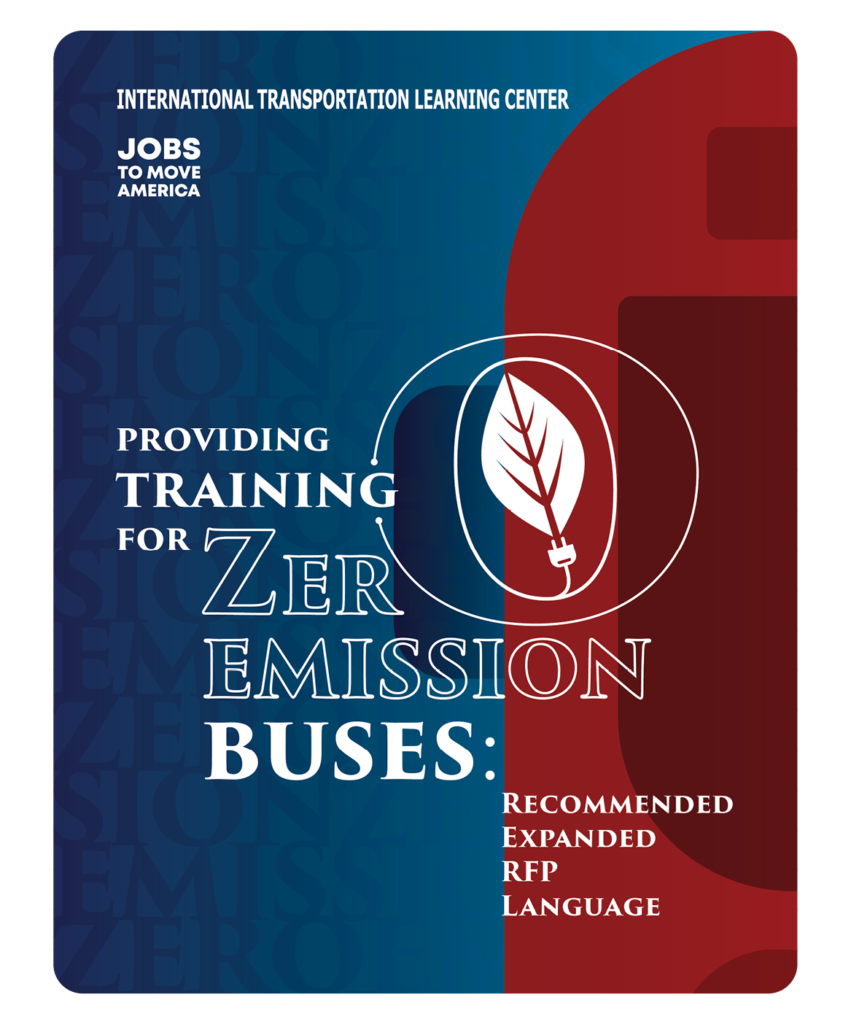
Providing Training for Zero Emission Buses: Recommended Expanded RFP Language
This document includes recommended language for agencies to build robust training procurement into their ZEB Request for Proposals. It is intended to be used as a starting point for agencies to tailor their training procurement to suit their specific needs.
International Transportation Learning Center; Jobs to Move America
February 2022
TOPICS: Low-No , Procurement , Training
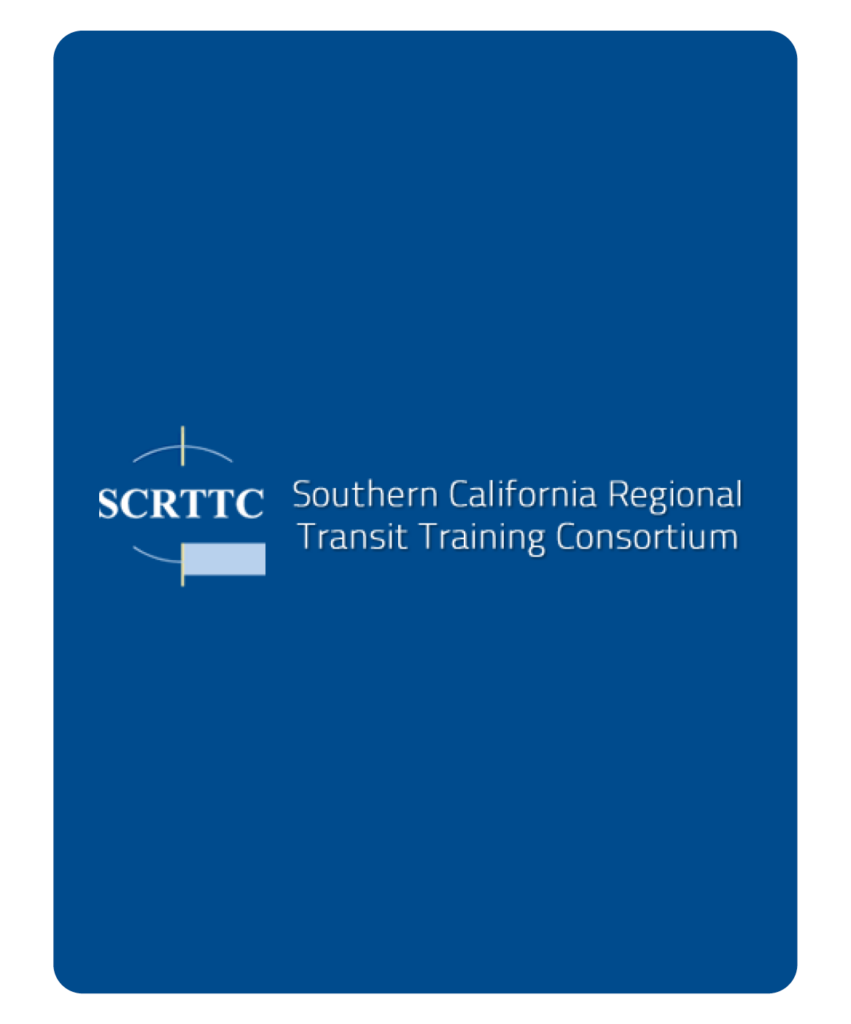
California Transit Training Consortium (CTTC)
The California Transit Training Consortium, founded as the Southern California Regional Transit Training Consortium, is comprised of community colleges, universities, transit agencies, and public and private partners collaborating to design, develop, and deliver technical training for the improvement of the transit workforce in California.
California Transit Training Consortium
TOPICS: Training
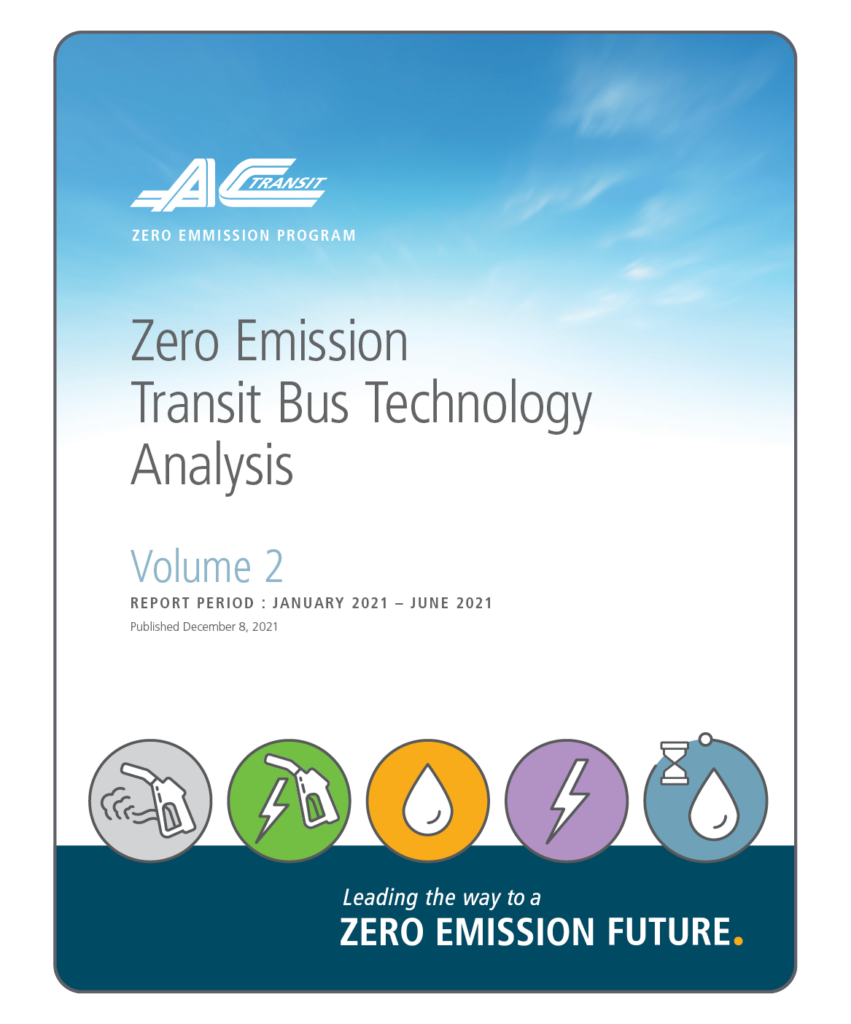
Zero Emission Transit Bus Technology Analysis Volume 2
This report, Volume 2, is the second edition of the Zero Emission Transit Bus Technology Analysis (ZETBTA) which includes results from the fuel-cell electric bus (FCEB), battery electric bus (BEB), diesel hybrid bus, and conventional diesel bus technologies control fleet. It integrates lessons learned and best practices gleaned from AC Transit’s extensive experience in deploying ZEB technologies, including developing innovative workforce training programs, data integration and management, and transit deployment viability.
AC Transit
December 2021
TOPICS: Low-No , Procurement , Training
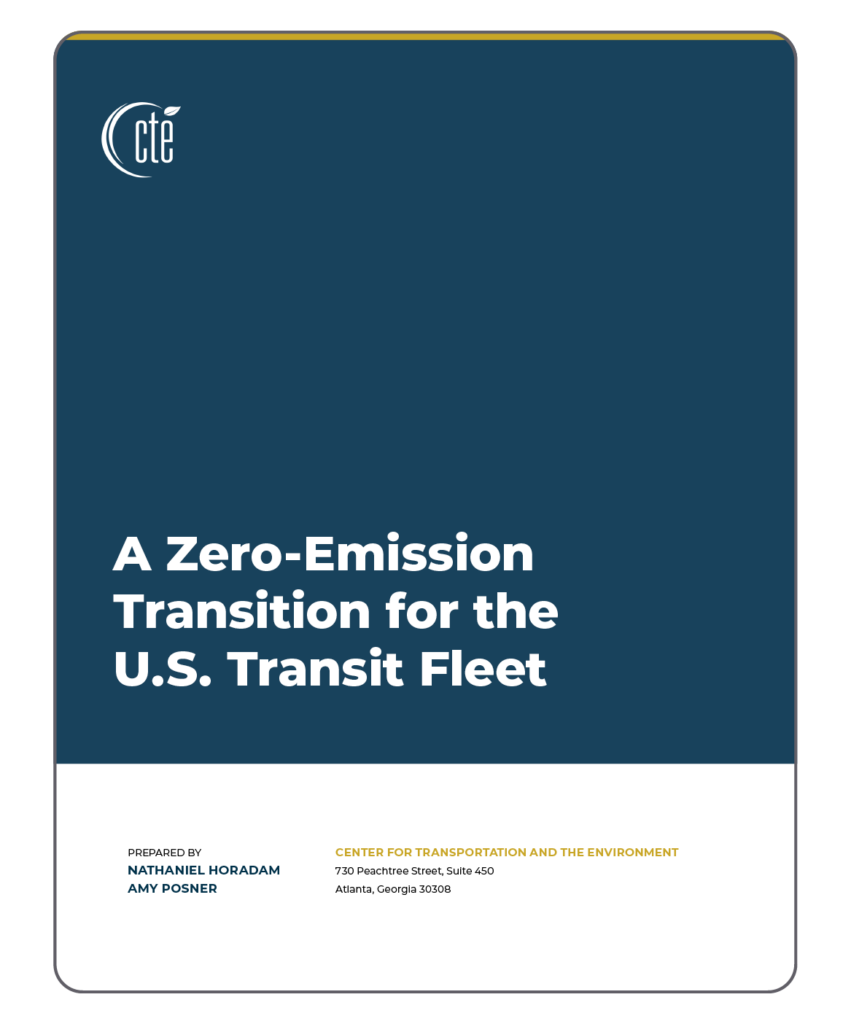
A Zero-Emission Transition for the U.S. Transit Fleet
This report offers a roadmap for federal lawmakers in support of making a complete transition to zero-emission vehicles in transit, including an accounting of estimated agency costs, key assumptions underpinning those figures, acknowledgement of limitations, and workforce development considerations.
Center for Transportation and the Environment
May 2021
TOPICS: Low-No , Policy and Planning , Procurement , Training
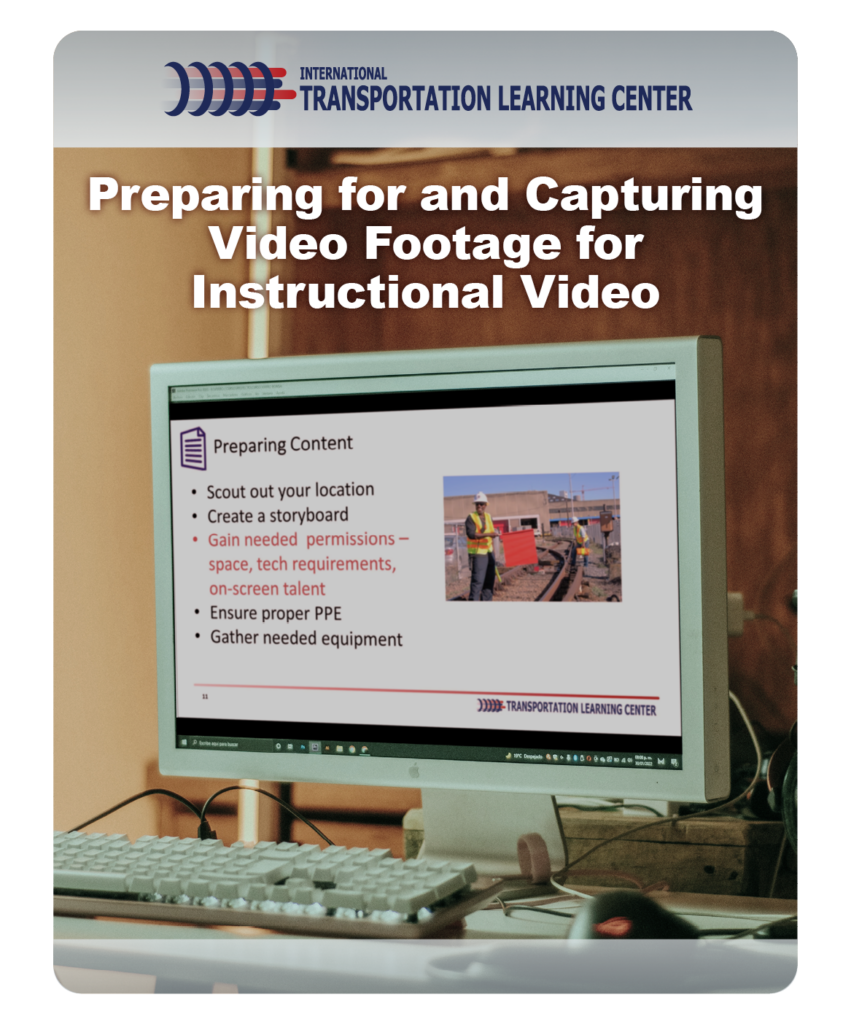
Preparing for and Capturing Video Footage for Instructional Video
International Transportation Learning Center
March 2021
TOPICS: Trainer and Mentor Development , Training
Digital and video instruction are two ways in which transit agencies can enhance their current training methods for their frontline employees. In a previous skill booster event, we showcased video editing software Filmora™. But before you can edit video, you need to capture it. As videography expert and the presenter of this session Kenyon Corbett says, “there is no replacement for good audio and video.”
This video uses real-world examples to demonstrate the Dos and Don’ts of capturing video and audio for instructional videos. It also outlines how best to prepare for this process.
This is one of several skill booster events held by the International Transportation Learning Center (ITLC). Other webinars can be found by filtering by resource type.
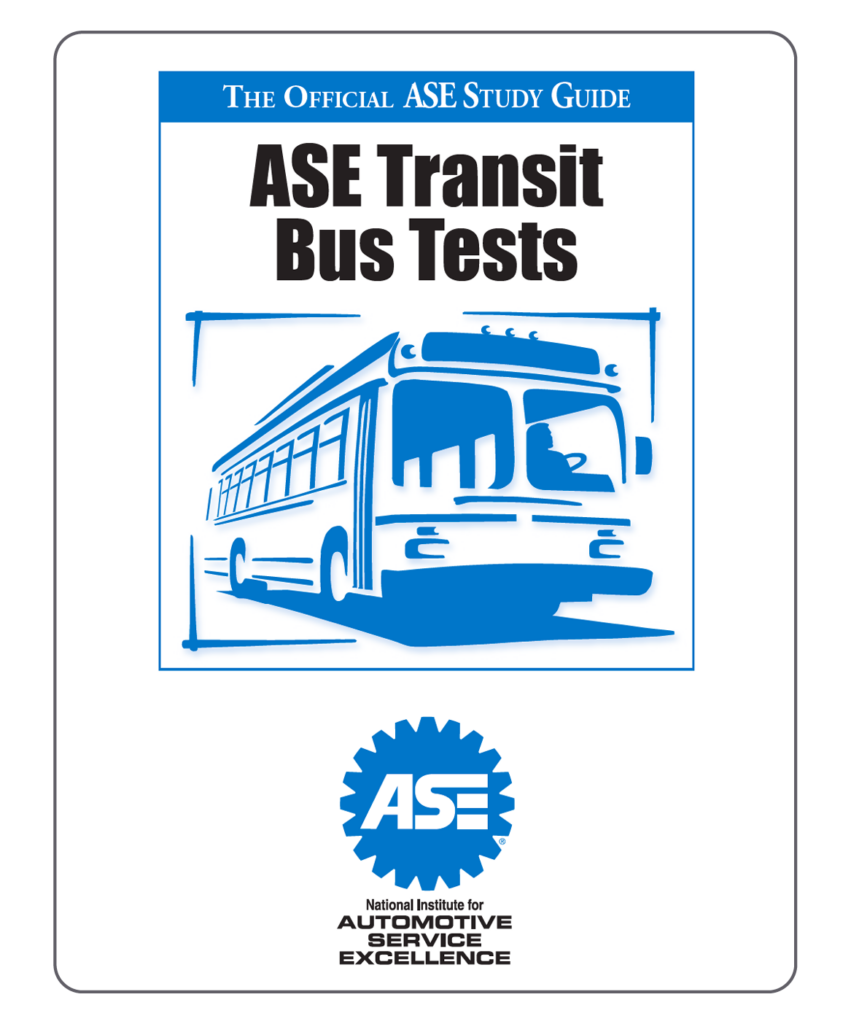
ASE Transit Bus Test Study Guide
The Official ASE Study Guide for Transit Bus Tests is designed to help technicians prepare for the ASE certification tests, which identify and recognize those Transit Bus Technicians who demonstrate knowledge of the skills necessary to diagnose, service, and repair various systems on transit buses.
Automotive Service Excellence (ASE)
January 2021
TOPICS: Low-No , Safety and Health , Training
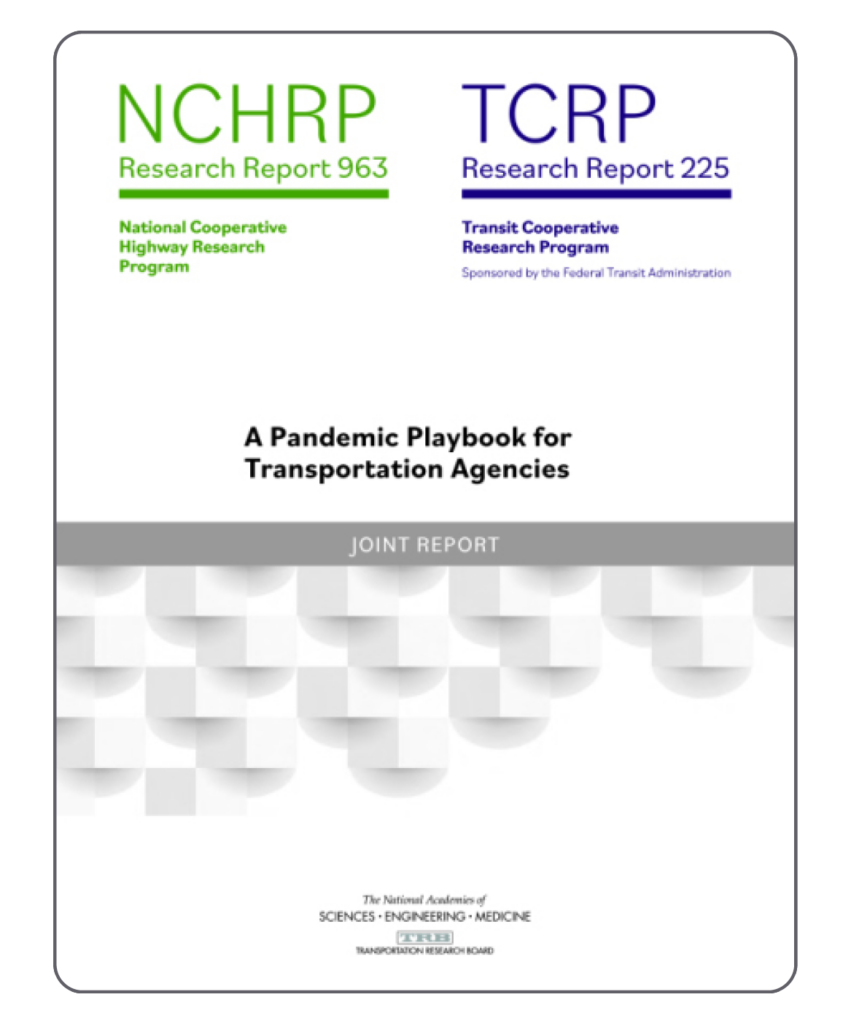
A Pandemic Playbook for Transportation Agencies
TRB’s National Cooperative Highway Research Program and Transit Cooperative Research Program have jointly issued NCHRP Research Report 963/TCRP Research Report 225: A Pandemic Playbook for Transportation Agencies, which was created to improve transportation agency responses to a pandemic.
The Playbook concentrates on what needs to be done, when and by whom. It briefly addresses planning for a pandemic, a topic addressed in greater depth in NCHRP Report 769: A Guide for Public Transportation Pandemic Planning and Response. It summarizes effective practices currently used by transportation agencies based on interviews with state departments of transportation and transit agency leaders and operational personnel, supplemented with national and international research results.
National Cooperative Highway Research Program and Transit Cooperative Research Program
January 2021
TOPICS: Policy and Planning , Safety and Health , Training
Contributor(s): National Academies of Sciences, Engineering, and Medicine; Transportation Research Board; National Cooperative Highway Research Program; Transit Cooperative Research Program; WSP USA Solutions – Deborah Matherly; Patricia Bye; Janet Benini
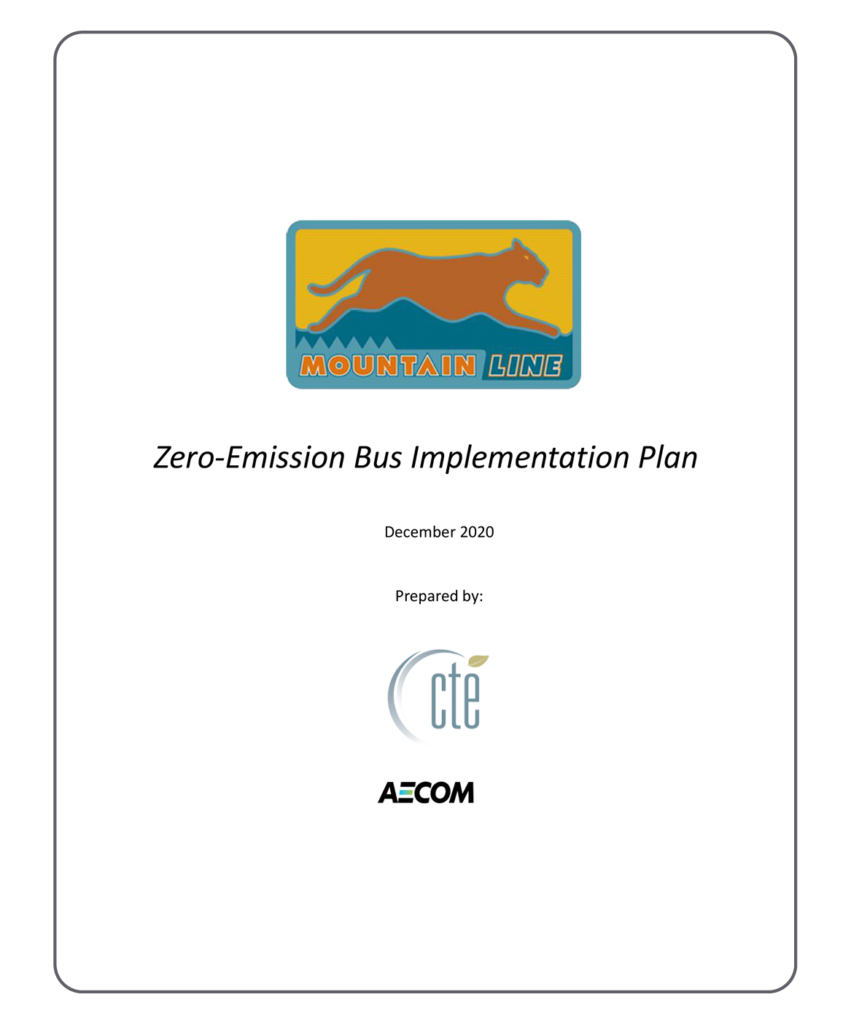
Mountain Line Zero-Emission Bus Implementation Plan
This is the Zero Emission Bus (ZEB) Implementation Plan prepared by the Northern Arizona intergovernmental Public Transportation Authority (referred to as Mountain Line) in contract with the Center for Transportation and the Environment (CTE) with the aim of identifying a zero-emission roadmap for full-scale deployment.
Center for Transportation and the Environment; AECOM
December 2020
TOPICS: Low-No , Procurement , Safety and Health , Training
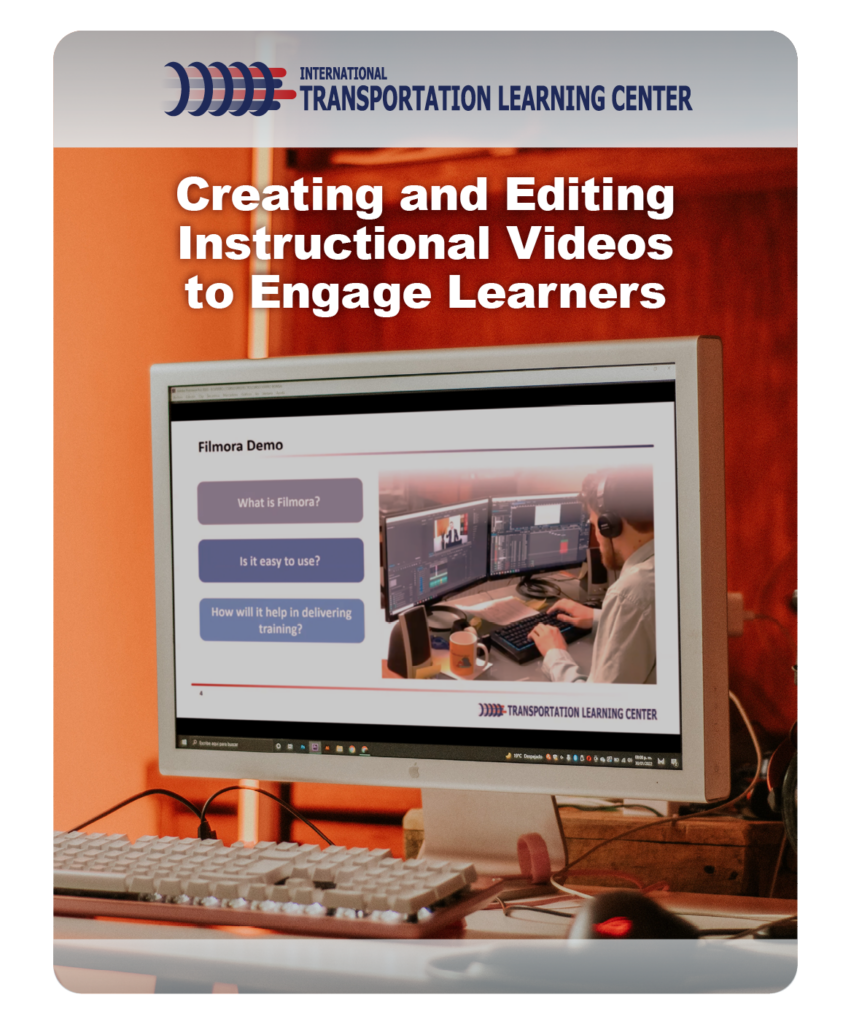
Creating and Editing Instructional Videos to Engage Learners
Beyond the traditional classroom environment, one way transit trainers can enhance delivery is through video instruction. This recorded webinar demonstrates Filmora™, an affordable and easy-to-use platform that helps you create video instruction modules.
This is one of several skill booster events held by the International Transportation Learning Center (ITLC).
International Transportation Learning Center
November 2020
TOPICS: Trainer and Mentor Development , Training
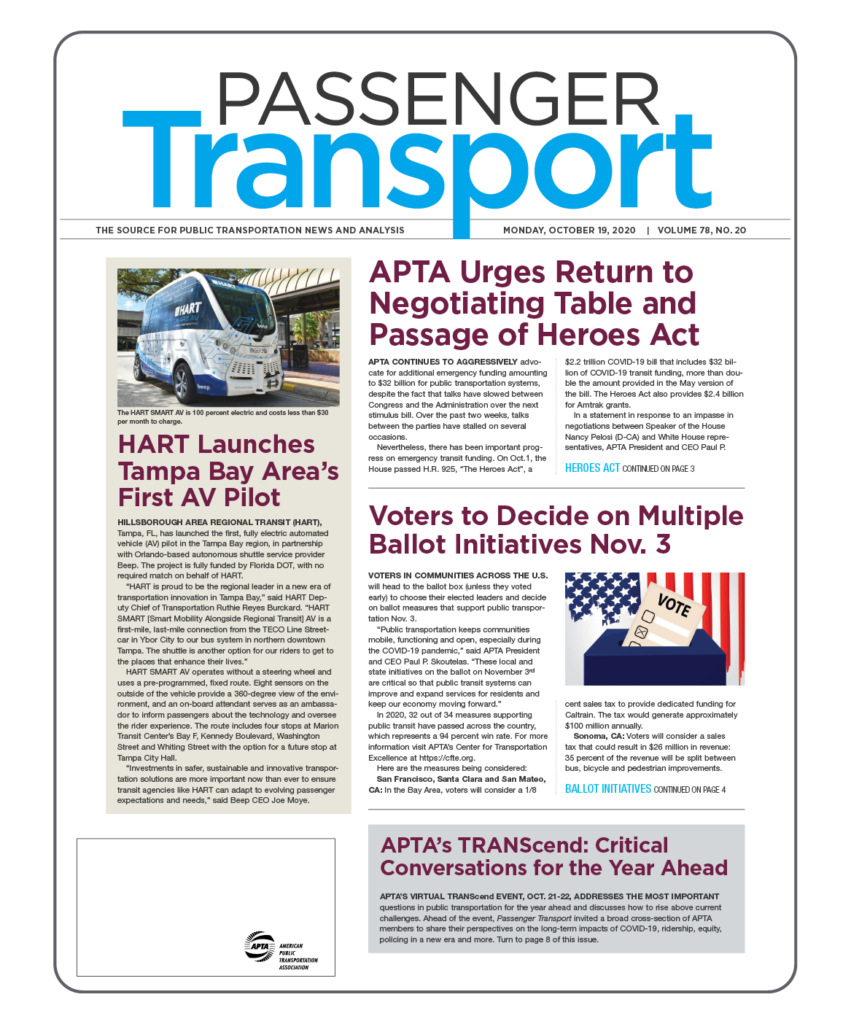
Transit Apprenticeship at Pierce Transit: From the Ground Up
This article in APTA’s Passenger Transport issue discusses the apprenticeship program at Pierce Transit, which is part of a transit apprenticeship initiative and has received technical assistance in structuring their apprenticeship program as well as financial assistance to reimburse some training costs.
American Public Transportation Association; International Transportation Learning Center
October 2020
TOPICS: Apprenticeship , Training
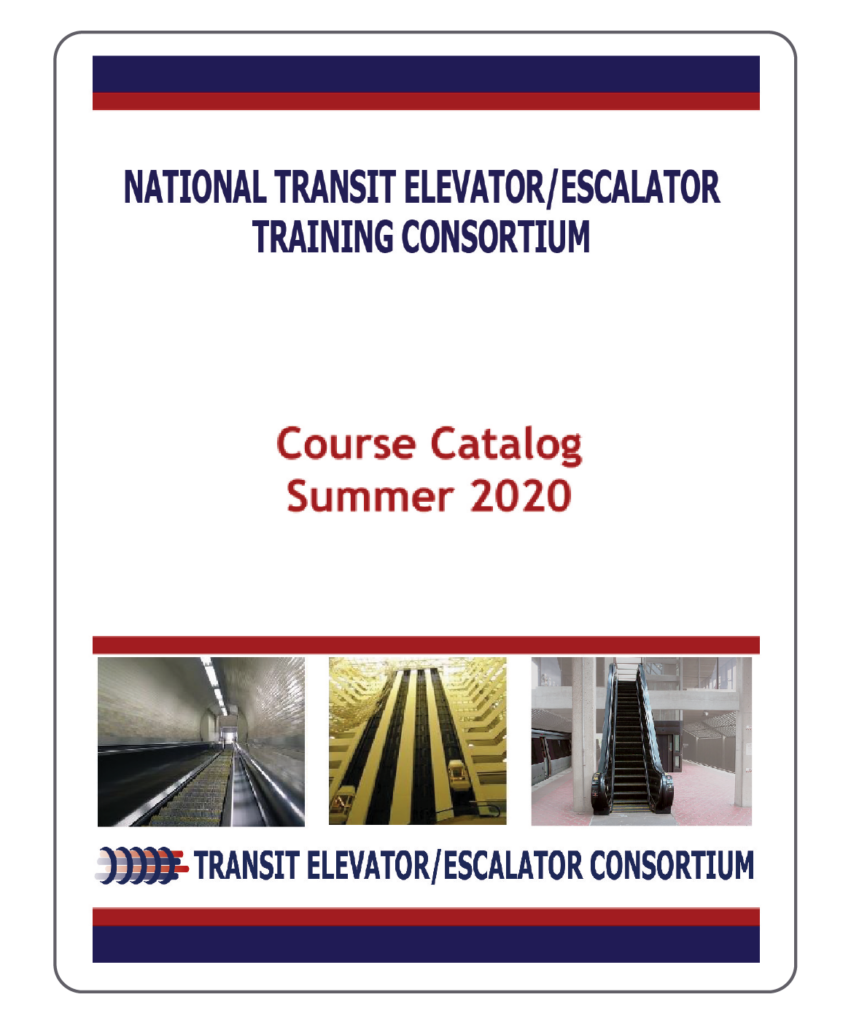
Elevator/Escalator Training Consortium
International Transportation Learning Center
The International Transportation Learning Center (ITLC) organizes multiple national training consortia to develop standards-based national training courseware for frontline occupations in public transportation organizations.
The Transit Elevator-Escalator Training Consortium (the Consortium) was the first in an ongoing series of industry-wide collaborative programs to develop integrated systems of training for key frontline occupations in public transportation. Building on national training standards developed by industry Subject Matter Experts (SMEs) from 2006 to 2010 and then adopted by the American Public Transportation Association (APTA), the Consortium developed a full set of standardized national courseware to support training and apprenticeship programs for transit elevator/escalator (El-Es) technicians. The curriculum and courseware development team was composed of subject matter experts (SMEs) from five member agencies and unions from across the country. Membership of the Consortium consists of transit systems that maintain their vertical transportation equipment in-house, rather than relying on outside contractors. Equipment manufacturers contributed access to their technical drawings and manuals to enrich the courseware.
The list of courseware as of Summer 2020 is contained in the attached catalog.
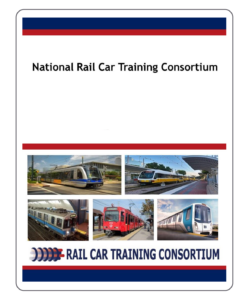
ITLC Rail Car Training Consortium
The International Transportation Learning Center (ITLC) organizes multiple national training consortia to develop standards-based national training courseware for frontline occupations in public transportation organizations.
Started in late 2015, the National Rail Car Training Consortium has moved forward with its mission to create standardized national training courseware for rail car technicians. The development team composed of over 40 rail car maintenance subject matter experts (SMEs) from 18 member agencies and unions from across the country, along with instructional systems designers from the ITLC, design curriculum and courseware for the rail and transit industry.
The attached catalog contains a summary of Consortium courseware.
International Transportation Learning Center
July 2020
TOPICS: Safety and Health , Training
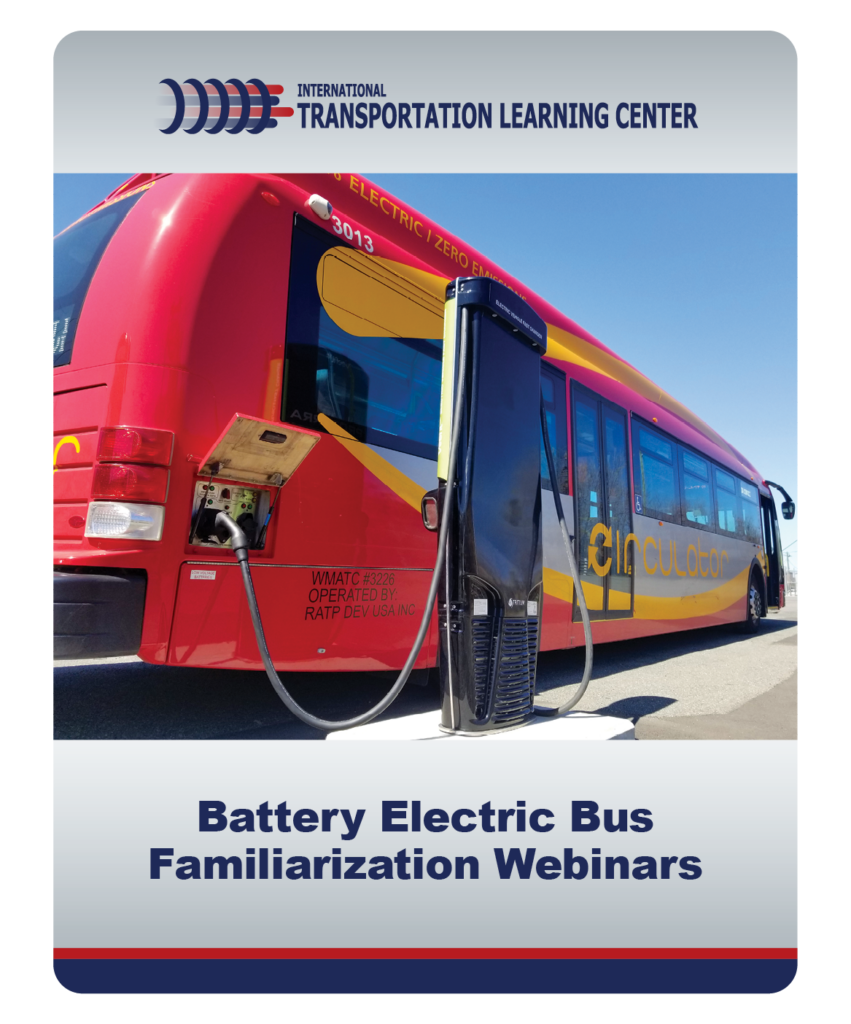
Battery Electric Bus Familiarization Webinars
The International Transportation Learning Center presents three distance-based courses to help transit bus technicians gain fundamental understanding of battery electric bus (BEB) technology. These courses are recorded from live online sessions.
International Transportation Learning Center
June 2020
TOPICS: Low-No , Safety and Health , Training
In each session, experts from various BEB manufacturers presented on specific topics, with over 400 participants attending. Each session is introduced by John Schiavone, who moderated many questions from participants. Please click through the drop-down options below to view the recorded sessions, slides and presenters’ notes, and sample tests and test answers.
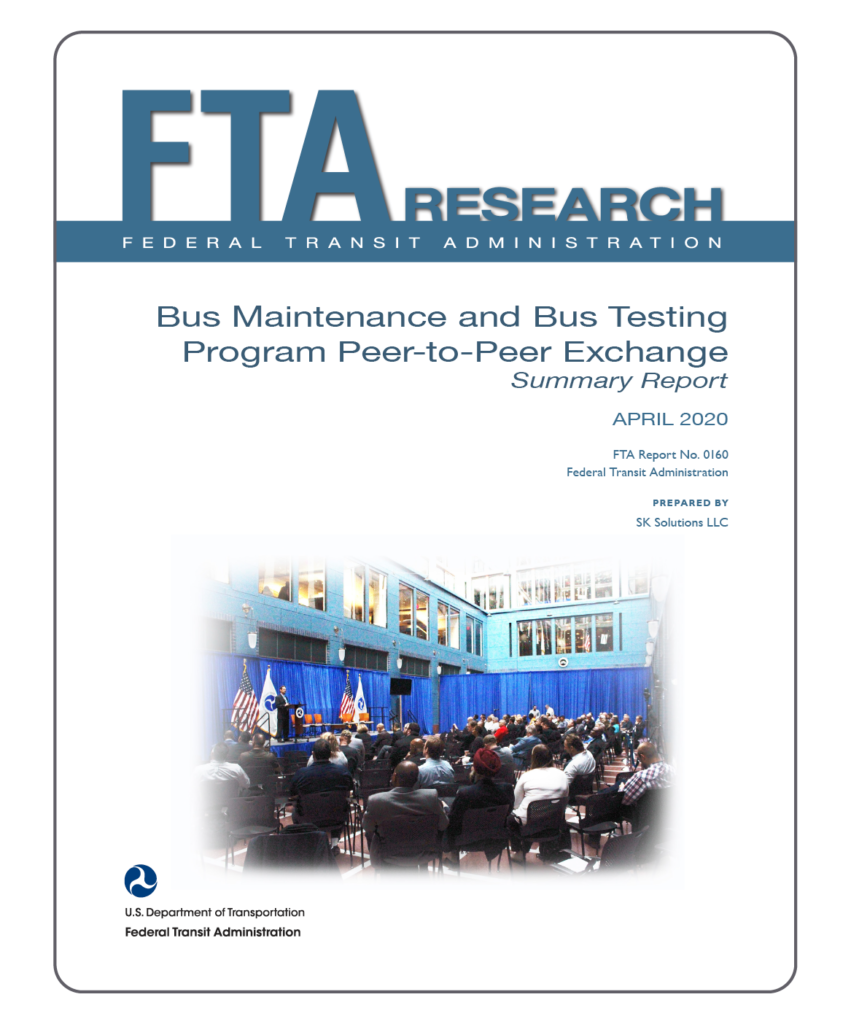
Bus Maintenance and Bus Testing Program Peer-to-Peer Exchange
This report presents a summary of the bus maintenance worker training peer exchange, hosted by the Federal Transit Administration (FTA). Significant shifts in the types of transit buses being procured (e.g., from traditional buses to alternative fuel/low- and no-emission buses) require new and different types of frontline worker training. Through the peer exchange, stakeholders, including industry representatives, shared knowledge about bus maintenance worker training and discussed best practices for developing the next generation of highly-skilled bus technicians.
Federal Transit Administration
May 2020
TOPICS: Hiring and Recruitment , Low-No , Policy and Planning , Procurement , Training
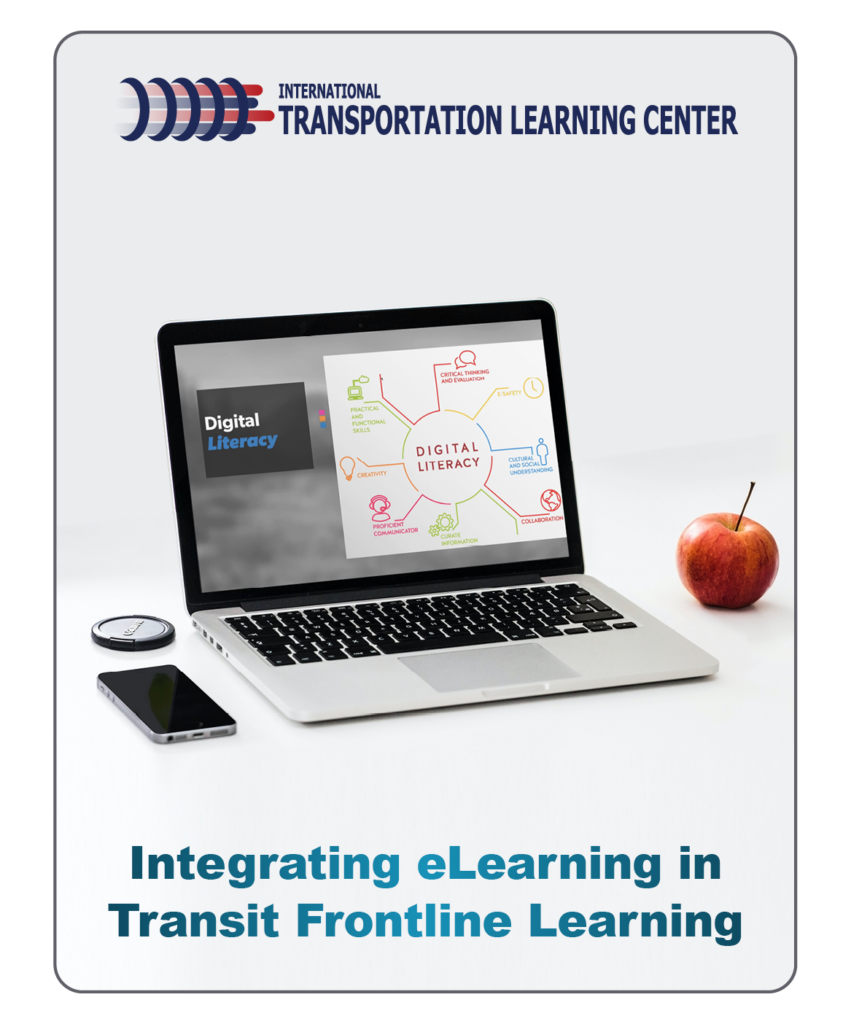
Integrating eLearning in Transit Frontline Learning
In this webinar, guest speaker Ron Thiele, Xpan Interactive, presented on ways in which some transit organizations use eLearning.
This is one of several skill booster events held by the International Transportation Learning Center (ITLC).
International Transportation Learning Center
May 2020
TOPICS: Trainer and Mentor Development , Training
Please see video below.

What We Think We Learned: Transit Workforce Interview Themes
This report is a synopsis of the transit industry and workforce development interviews conducted in Greater Philadelphia from December 2019 to February 2020. The research team emphasized three distinct areas where the need for improvement should be elevated: Pipeline Development, Pathways, and Processes. While there are several ongoing successes within the transit industry, this document strives to focus on key identified gaps most conducive for joint problem-solving.
Delaware Valley Regional Planning Commission
March 2020
TOPICS: Apprenticeship , Career Pathways , Policy and Planning , Retention , Training
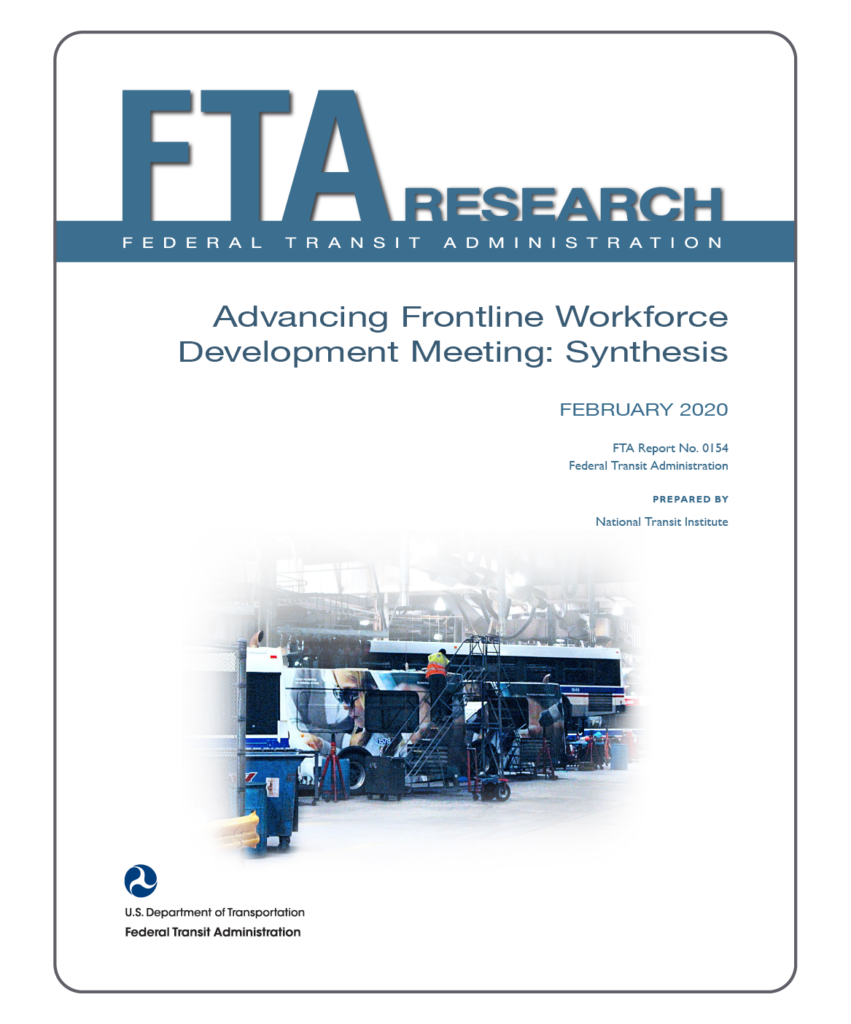
Advancing Frontline Workforce Development Meeting: Synthesis
This report synthesizes findings from a two-day gathering of more than two dozen transit industry labor and management representatives who engaged in in-depth discussions on frontline workforce training needs across the U.S. The purpose of the meeting was to identify immediate, short-term, and long-term training needs for the frontline public transportation workforce in the U.S. and ways to connect apprenticeship and formal training programs to support these needs.
National Transit Institute; Federal Transit Administration; International Transportation Learning Center
February 2020
TOPICS: Apprenticeship , Hiring and Recruitment , Policy and Planning , Training
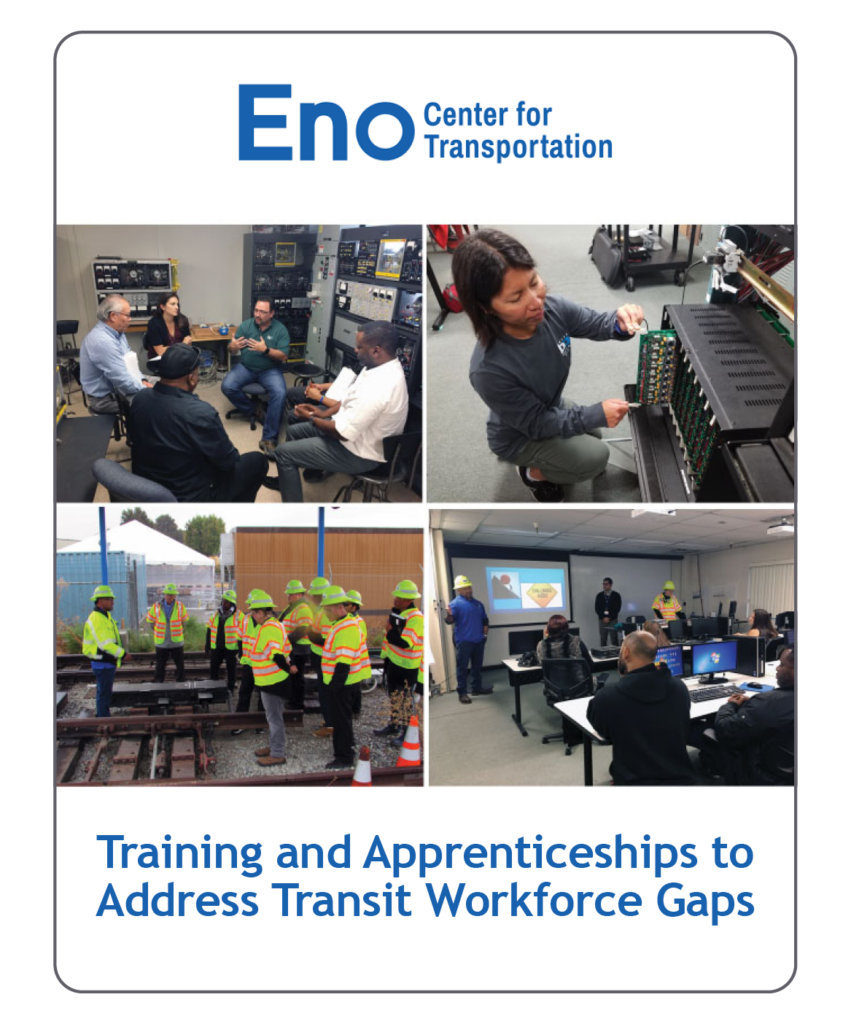
Training and Apprenticeships to Address Transit Workforce Gaps
This piece, penned by Jack Clark of the International Transportation Learning Center (ITLC), explores the role of training and apprenticeship programs in meeting workforce needs in transit, with a focus on operators. It discusses a few leading examples of apprenticeship programs in transit, as well as the role of mentorship in a strong apprenticeship program.
Eno Center for Transporation
August 2019
TOPICS: Apprenticeship , Career Pathways , Mentorship , Training
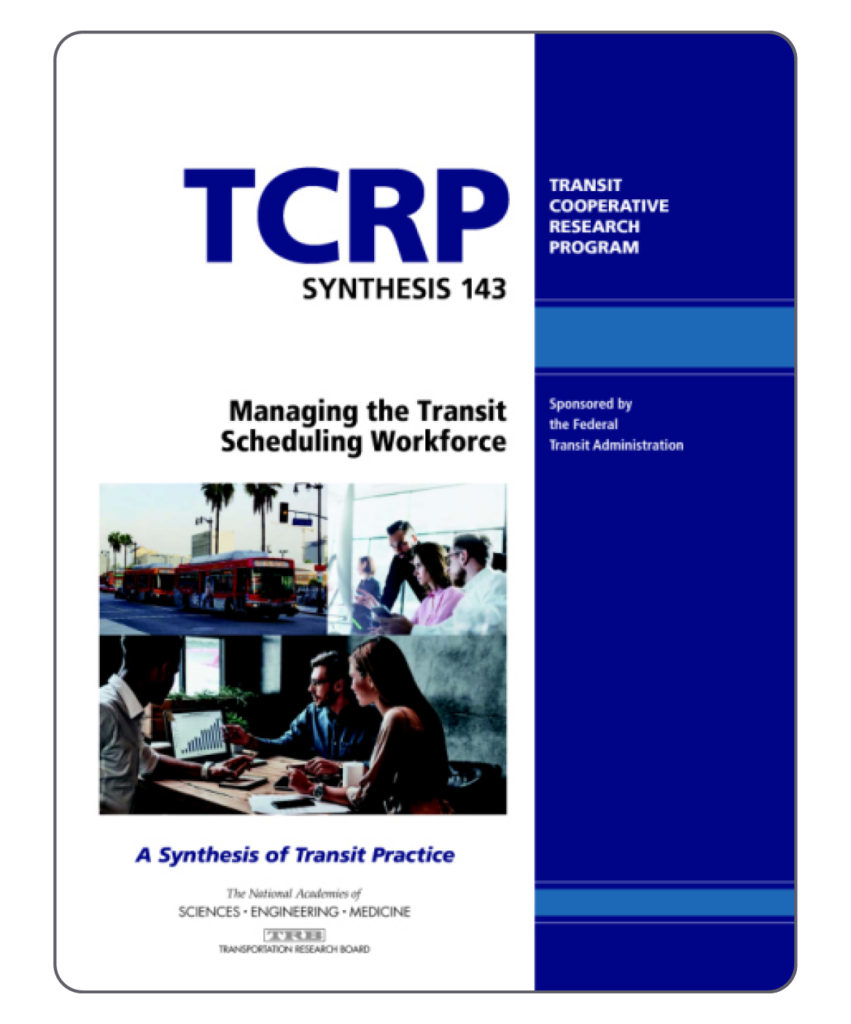
Managing the Transit Scheduling Workforce
Transit Cooperative Research Program
TOPICS: Career Pathways , Hiring and Recruitment , Training
This report is designed to assist transit agencies in managing their transit scheduling human capital. The report presents an overview of the practices and procedures transit agencies use to manage their scheduling workforce and will allow agencies to compare what they are currently doing with what others are doing in this area. The report also analyzes how transit systems are evolving their practices to adapt to industry and technological changes. It provides transit systems with new ideas and strategies to retain good schedulers.
Contributor(s): National Academies of Sciences, Engineering, and Medicine; Transportation Research Board; Transit Cooperative Research Program; Transit Cooperative Research Program Synthesis Program; Michael J. Walk; James P. Cardenas; Kristi Miller; Jessica Alvarez; Sandy Davis; Peter Hadley
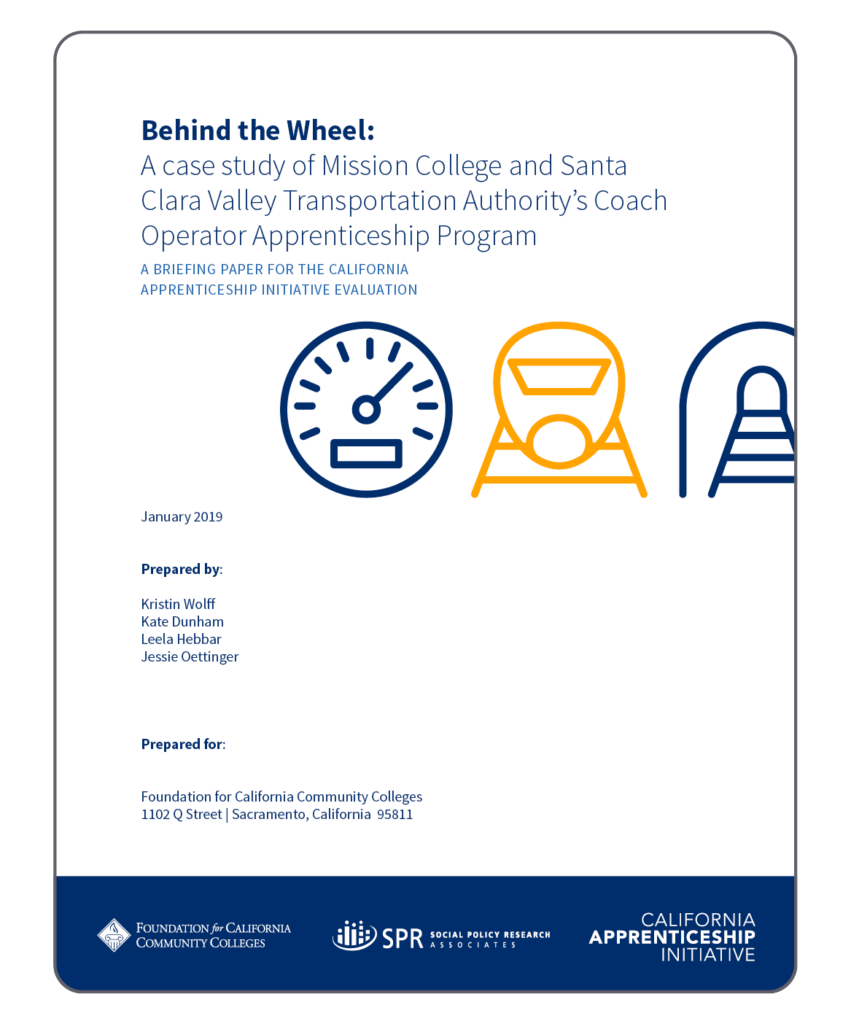
Behind the Wheel
This report, Behind the Wheel: A case study of Mission College and Santa Clara Valley Transportation Authority’s Coach Operator Apprenticeship Program, is part of the Social Policy Research Associates’ evaluation of the California Apprenticeship Initiative. The case study describes the development of the Coach Operator and Transportation Apprenticeship, including why the partners chose an apprenticeship model to meet their training needs, how the program was developed and structured, and what apprentices and employers report about their experiences in the program.
Foundation for California Community Colleges; Social Policy Research Associates
January 2019
TOPICS: Apprenticeship , Career Pathways , Hiring and Recruitment , Training
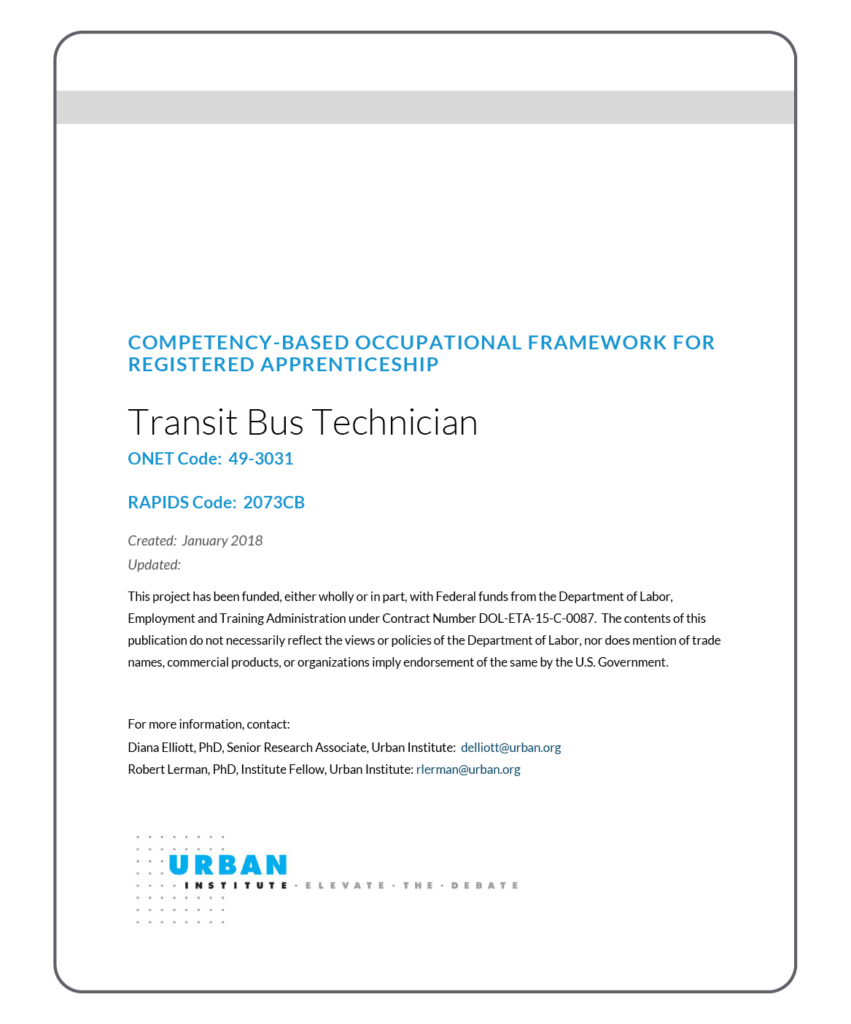
Bus Maintenance Apprenticeship Framework
The Bus Maintenance Apprenticeship Framework was developed by the National Bus Maintenance Apprenticeship Committee and approved by the U.S. DOL. It is a competency based framework that includes all of the tasks an apprentice should be able to demonstrate as a result of the training. Tasks are based on the ASE task list and APTA training standards. It is only a guide, locations can add or remove tasks to suit their individual operations.
The framework spreadsheet was developed by ITLC as a more in-depth and customizable version of the Bus Maintenance Apprenticeship Framework. Note the various tabs at the bottom for each Job Function.
International Transportation Learning Center; The Urban Institute
January 2018
TOPICS: Apprenticeship , Low-No , Training
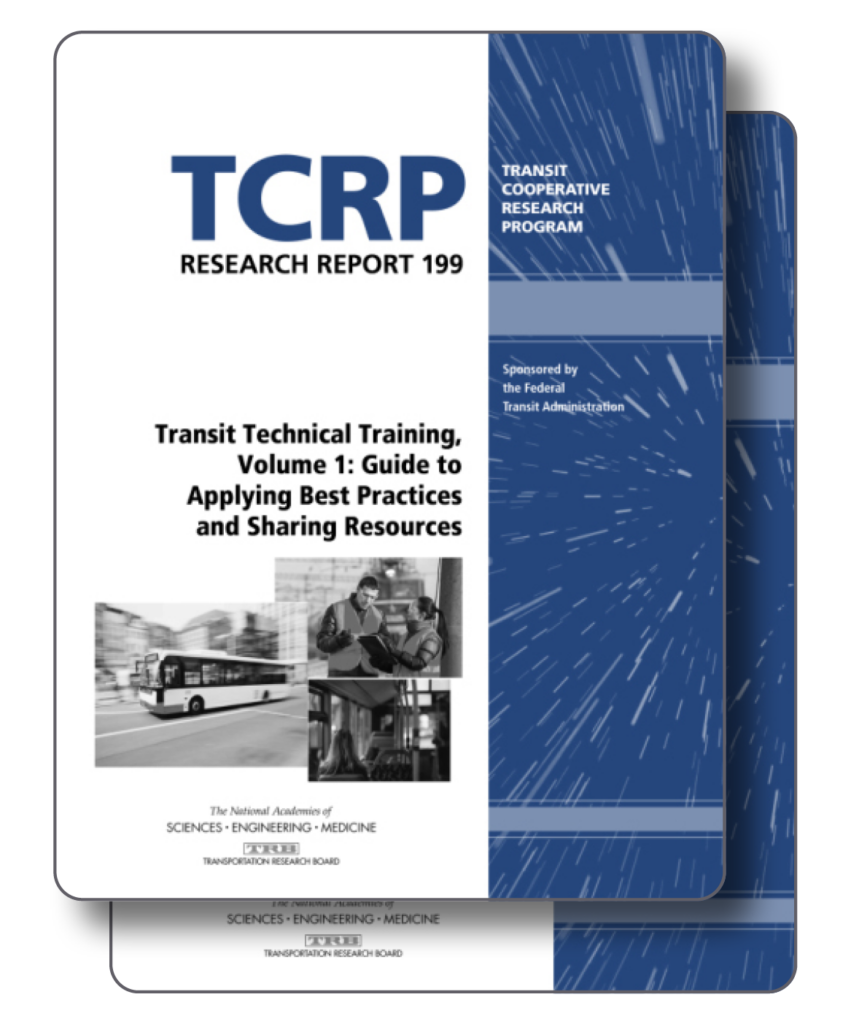
TCRP Research Report 199: Transit Technical Training (Volumes 1 & 2)
TCRP Research Report 199: Transit Technical Training is a two-volume set that presents guidance on technical training programs and the implementation of those for transportation agencies.
The report’s first volume, Guide to Applying Best Practices and Sharing Resources, documents the best models of technical training programs serving U.S. and international transportation agencies and related industries.
The second volume, Guide to Overcoming Barriers to Implementing Best and Innovative Training, provides public transportation agencies with best practices, strategies, and resources to assist with the implementation of effective and innovative training programs and techniques for frontline employees.
Transit Cooperative Research Program (TCRP)
January 2018
TOPICS: Apprenticeship , Safety and Health , Training
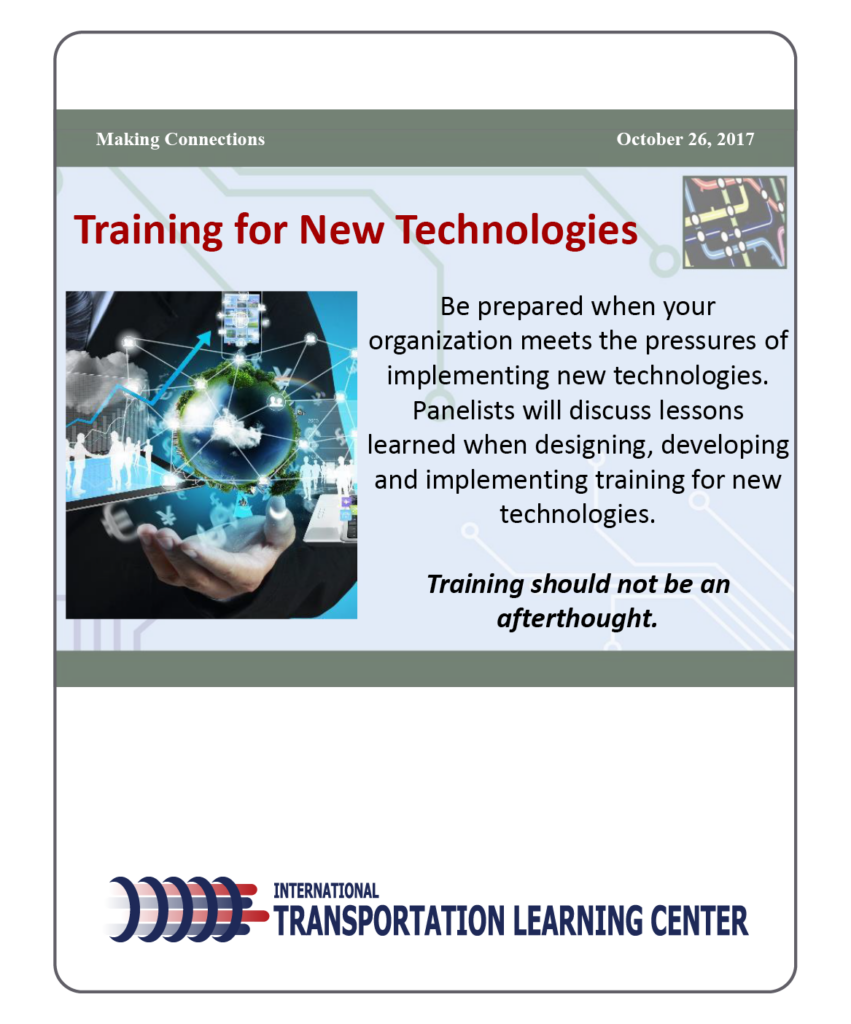
Training for New Technologies Workshop
This slide presentation is from the “Training for New Technologies” workshop held during the International Transportation Learning Center’s Making Connections conference held on October 26, 2017.
International Transportation Learning Center
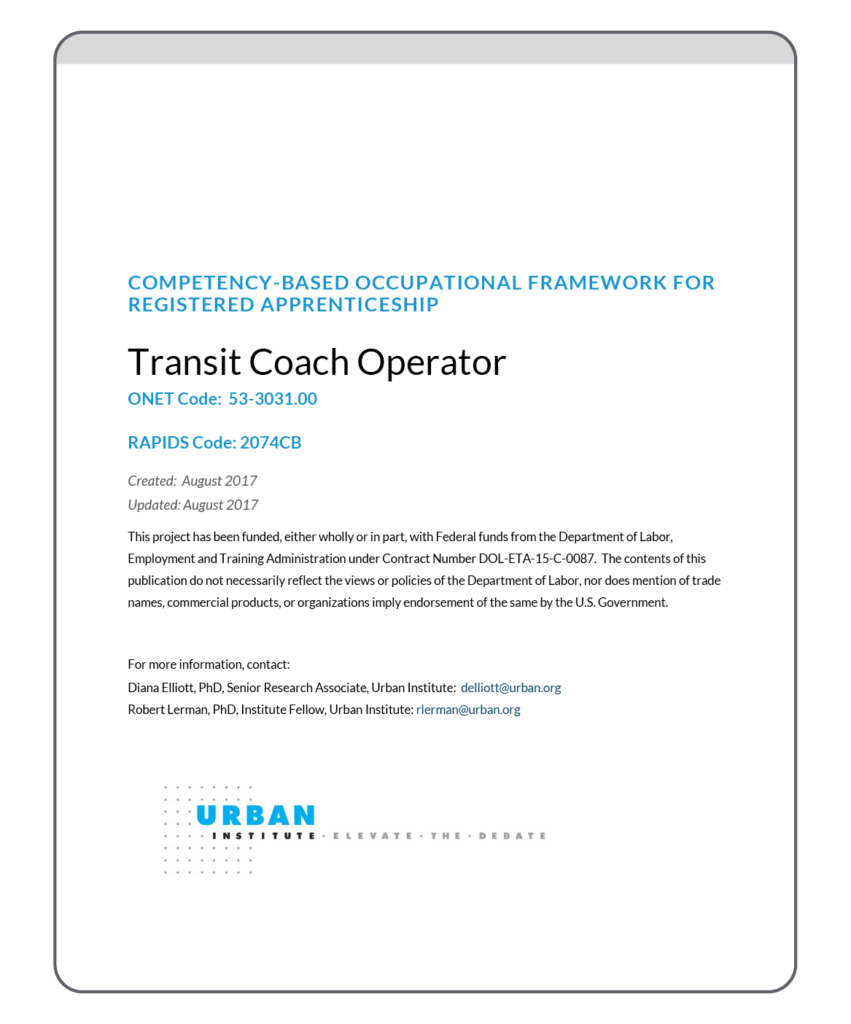
Transit Coach Operator Competency-Based Framework
This is the full Competency-Based Occupational Framework for Registered Apprenticeship for transit coach operator/bus operators.
The Urban Institute & International Transportation Learning Center
August 2017
TOPICS: Apprenticeship , Low-No , Training
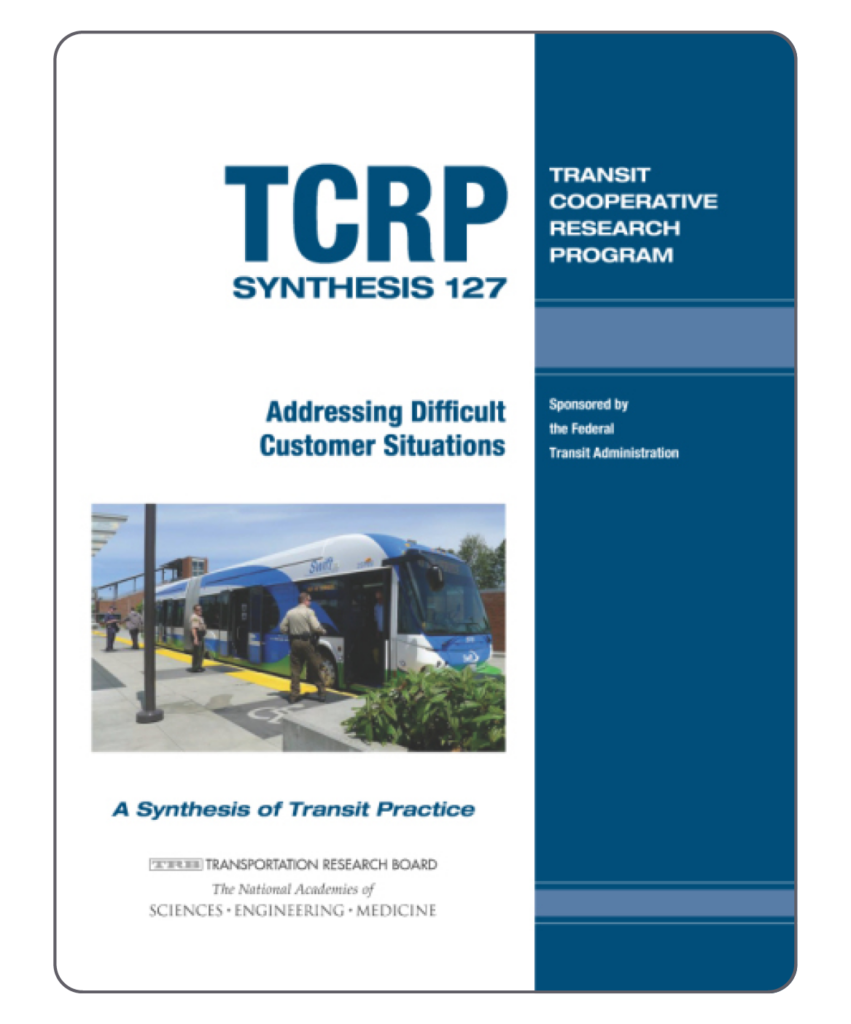
Addressing Difficult Customer Situations
This report considers issues surrounding difficult customers or passengers and the variety of circumstances that can arise when they utilize transit system facilities or vehicles. It identifies current practices used by transit agencies to prevent, prepare for, and deal with these incidents, including training programs for operators and other staff.
Transit Cooperative Research Program
March 2017
TOPICS: Policy and Planning , Safety and Health , Training
Contributor(s): National Academies of Sciences, Engineering, and Medicine; Transportation Research Board; Transit Cooperative Research Program Synthesis Program; Synthesis Program; Transit Cooperative Research Program; Joel M. Volinski
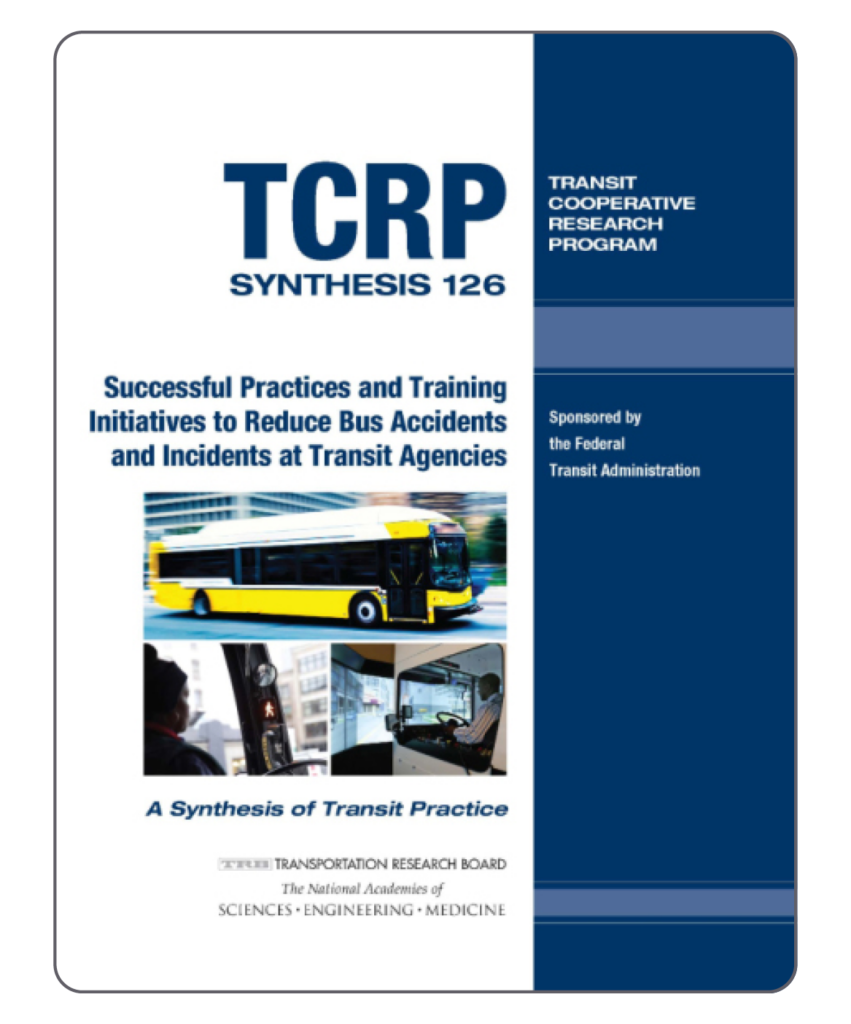
Successful Practices and Training Initiatives to Reduce Accidents and Incidents at Transit Agencies
TRB’s Transit Cooperative Research Program (TCRP) Synthesis 126: Successful Practices and Training Initiatives to Reduce Accidents and Incidents at Transit Agencies documents current practices and training initiatives, including bus operator training and retraining programs that have been effective in reducing accidents and incidents at transit agencies. The study also focuses on other system approaches that have been implemented to address safety hazards. These approaches include various technology applications, infrastructure modifications, and programs and initiatives such as driver incentive programs and close call/near miss reporting.
Transit Cooperative Research Program (TCRP) & CUTR
January 2017
TOPICS: Safety and Health , Training
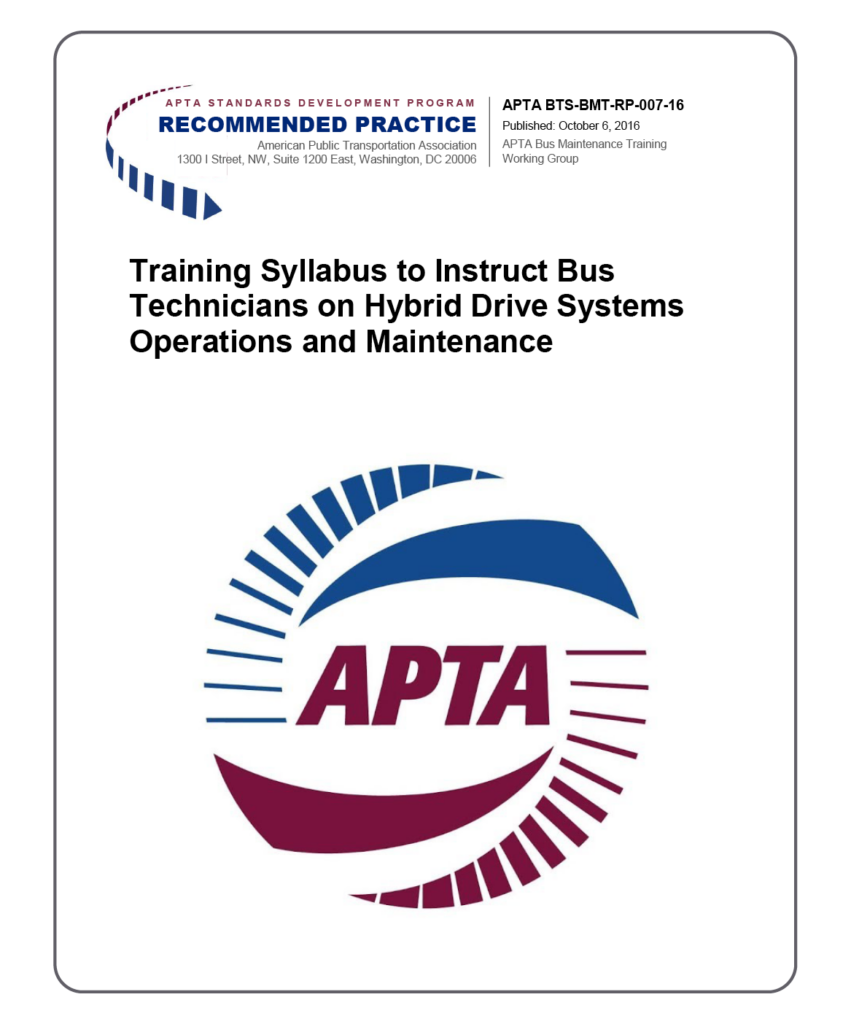
Training Syllabus to Instruct Bus Technicians on Hybrid Drive Systems Operations and Maintenance
This Recommended Practice provides guidelines for establishing a standardized bus maintenance training program related to the theory of operation, maintenance and troubleshooting of bus hybrid drive transmissions and related equipment.
American Public Transportation Association
October 2016
TOPICS: Training
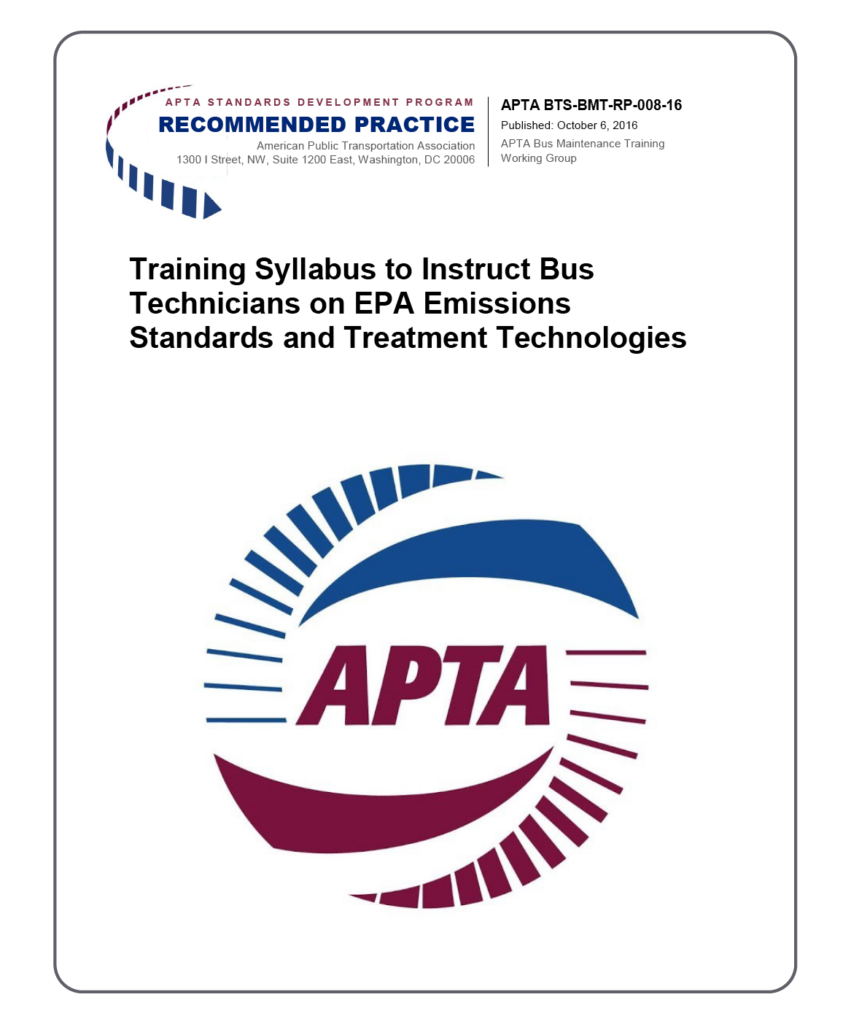
Training Syllabus to Instruct Bus Technicians on EPA Emissions Standards and Treatment Technologies
This Recommended Practice provides guidelines for establishing a standardized bus maintenance training program related to the maintenance and troubleshooting of bus engine and after treatment components used to achieve applicable EPA emission standards.
American Public Transportation Association
October 2016
TOPICS: Training
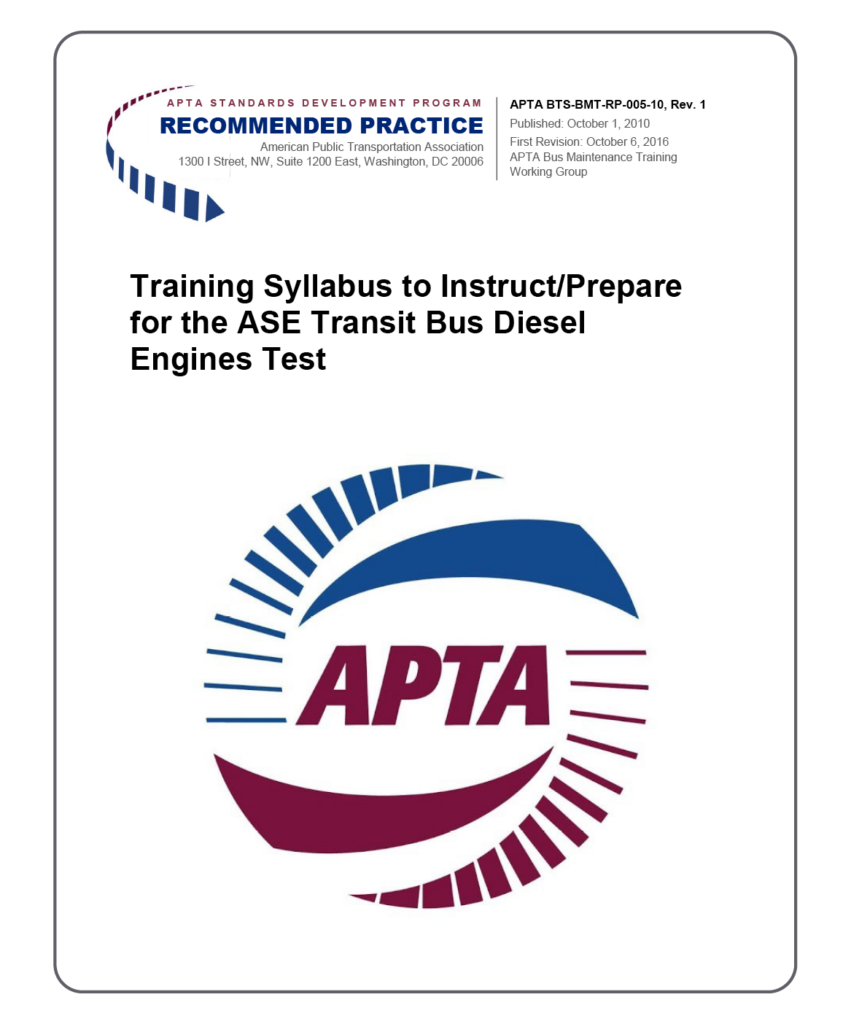
Training Syllabus to Instruct/Prepare for the ASE Transit Bus Diesel Engines Test
This Recommended Practice provides guidelines for establishing a standardized bus maintenance training program related to the Automotive Service Excellence (ASE) certification program syllabus for the diesel engines used in transit buses and coaches.
American Public Transportation Association
October 2016
TOPICS: Training
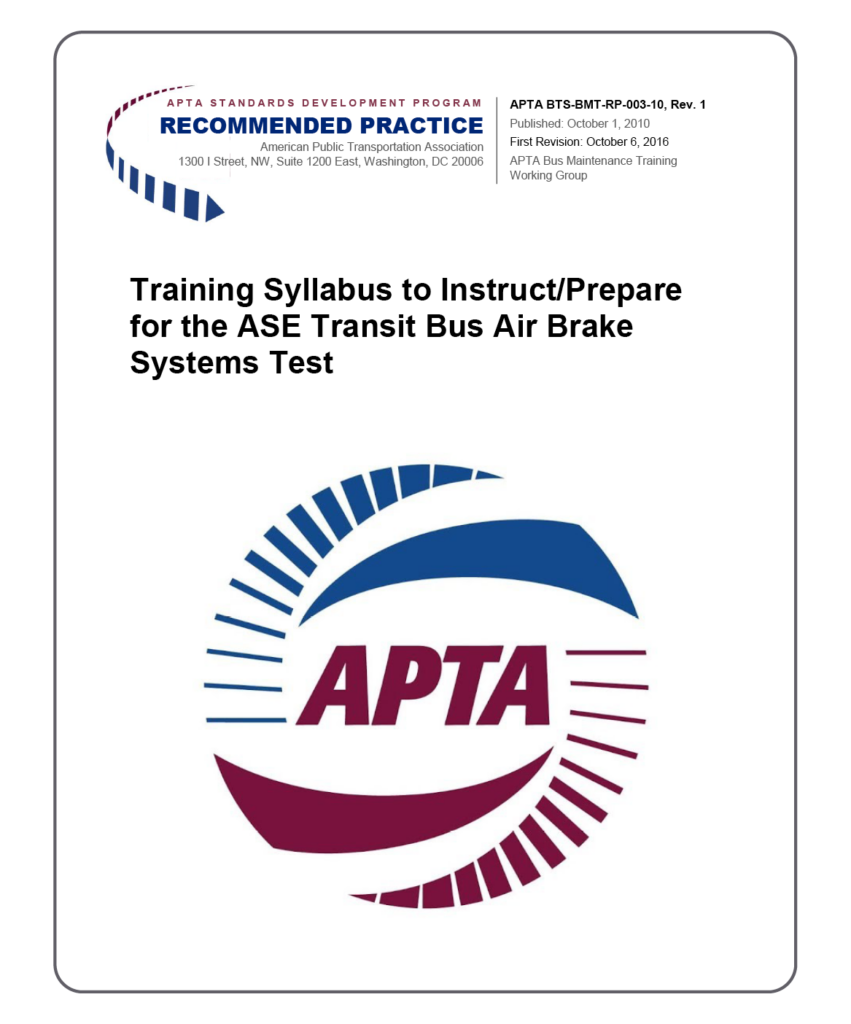
Training Syllabus to Instruct/Prepare for the ASE Transit Bus Air Brake Systems Test
This Recommended Practice provides guidelines for establishing a standardized bus maintenance training program related to the Automotive Service Excellence (ASE) certification syllabus for transit bus and coach air brake systems.
American Public Transportation Association
October 2016
TOPICS: Training
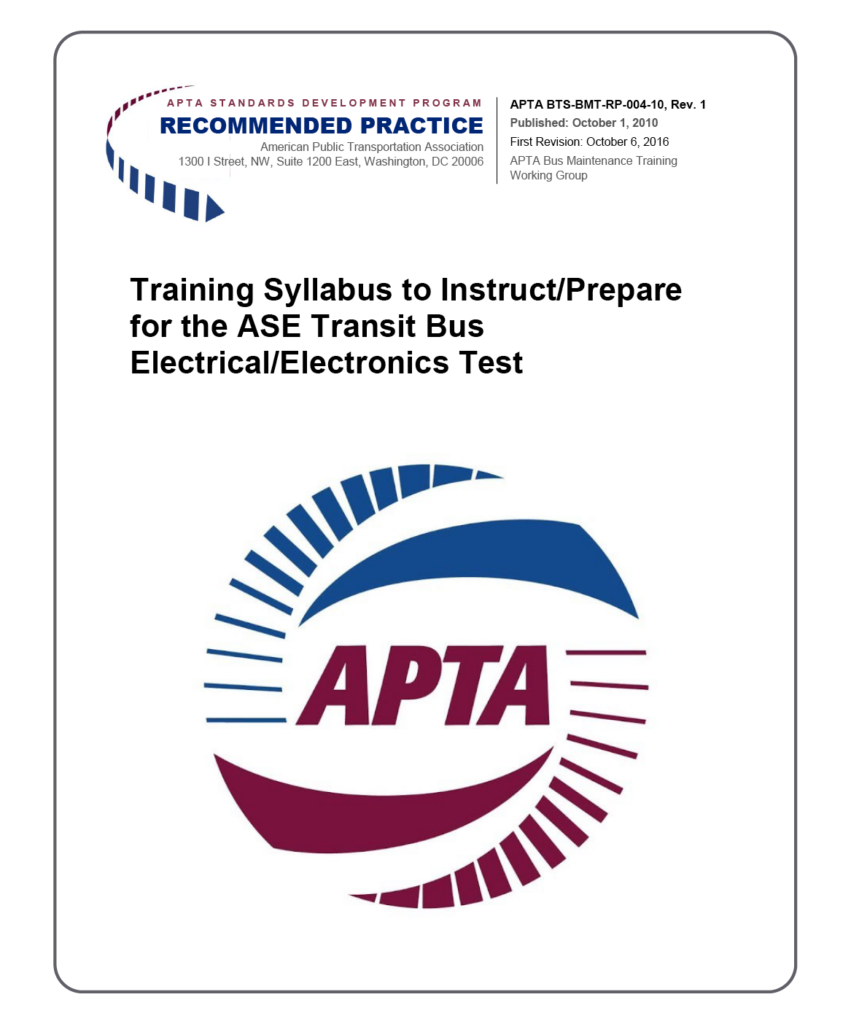
Training Syllabus to Instruct/Prepare for the ASE Transit Bus Electrical/Electronics Test
This Recommended Practice provides guidelines for establishing a standardized bus maintenance training related to the ASE certification program syllabus for the electrical/electronics systems used in transit buses and coaches.
American Public Transportation Association
October 2016
TOPICS: Trainer and Mentor Development , Training
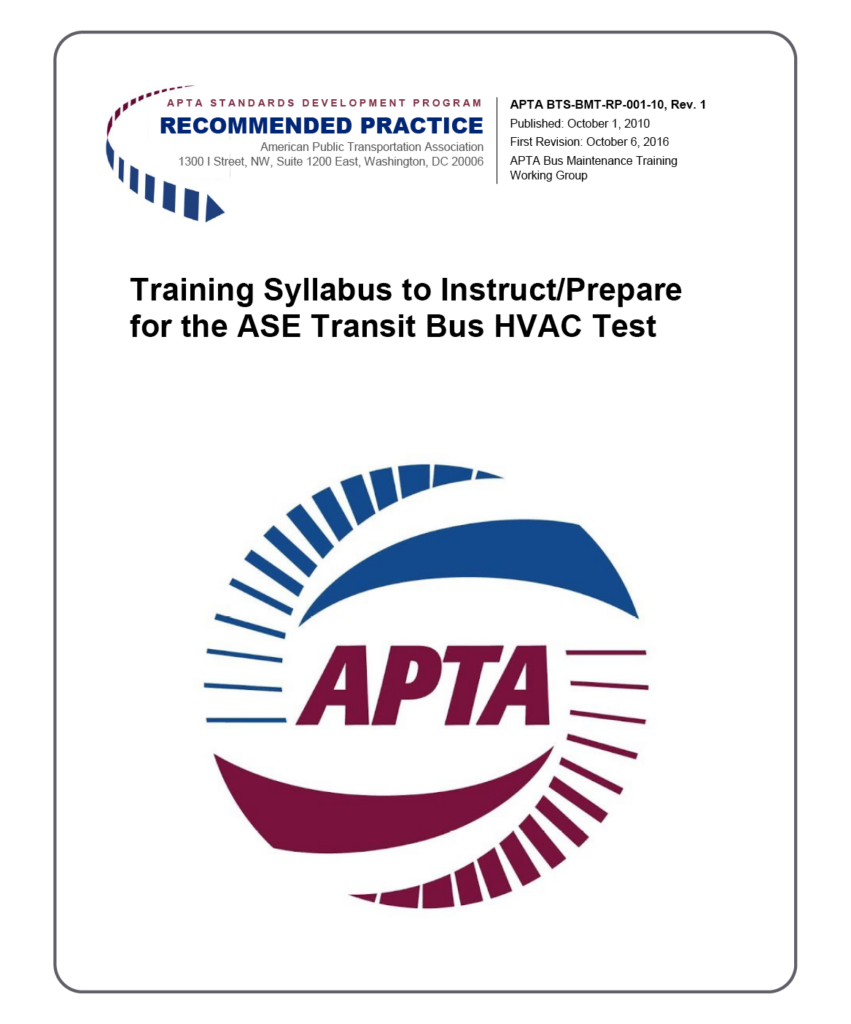
Training Syllabus to Instruct/Prepare for the ASE Transit Bus HVAC Test
This Recommended Practice provides guidelines for establishing a standardized bus maintenance training related to the Automotive Service Excellence (ASE) certification program syllabus for heating, ventilation, and air conditioning (HVAC) systems used in transit buses and coaches.
American Public Transportation Association
October 2016
TOPICS: Training
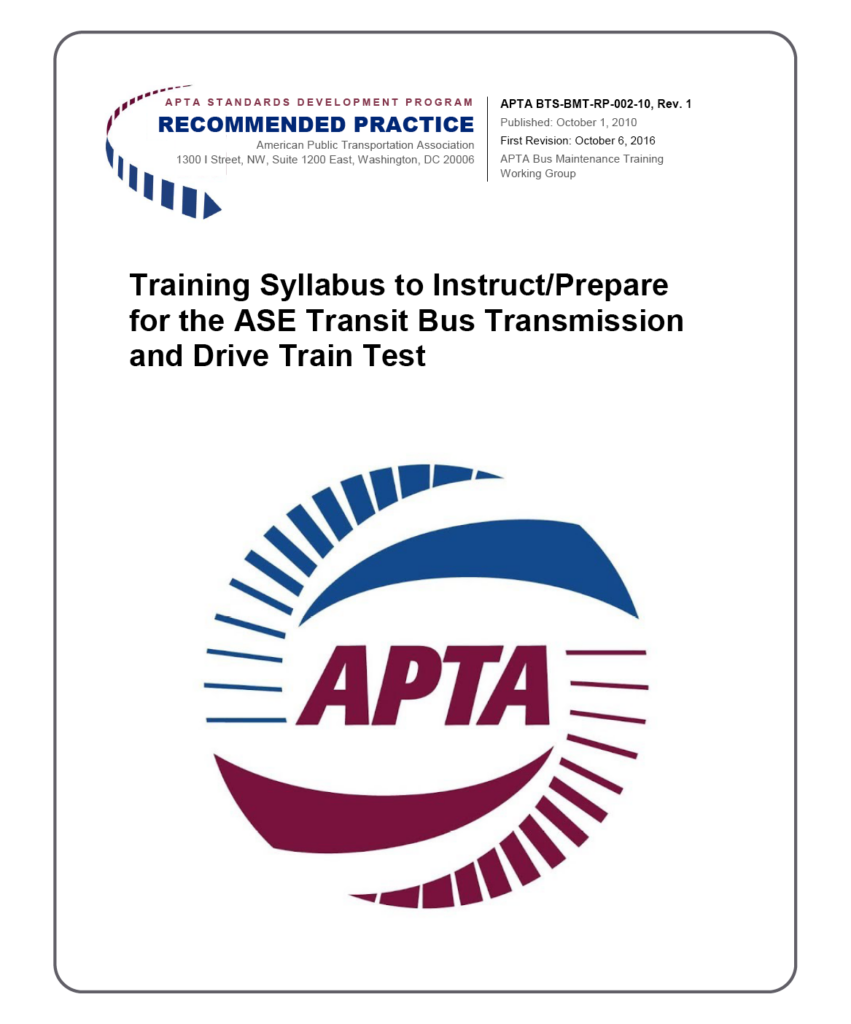
Training Syllabus to Instruct/Prepare for the ASE Transit Bus Transmission and Drivetrain Test
This Recommended Practice provides guidelines for establishing a standardized bus maintenance training related to the Automotive Service Excellence (ASE) certification program syllabus for transmissions and drivetrains used in transit buses and coaches.
American Public Transportation Association
October 2016
TOPICS: Training
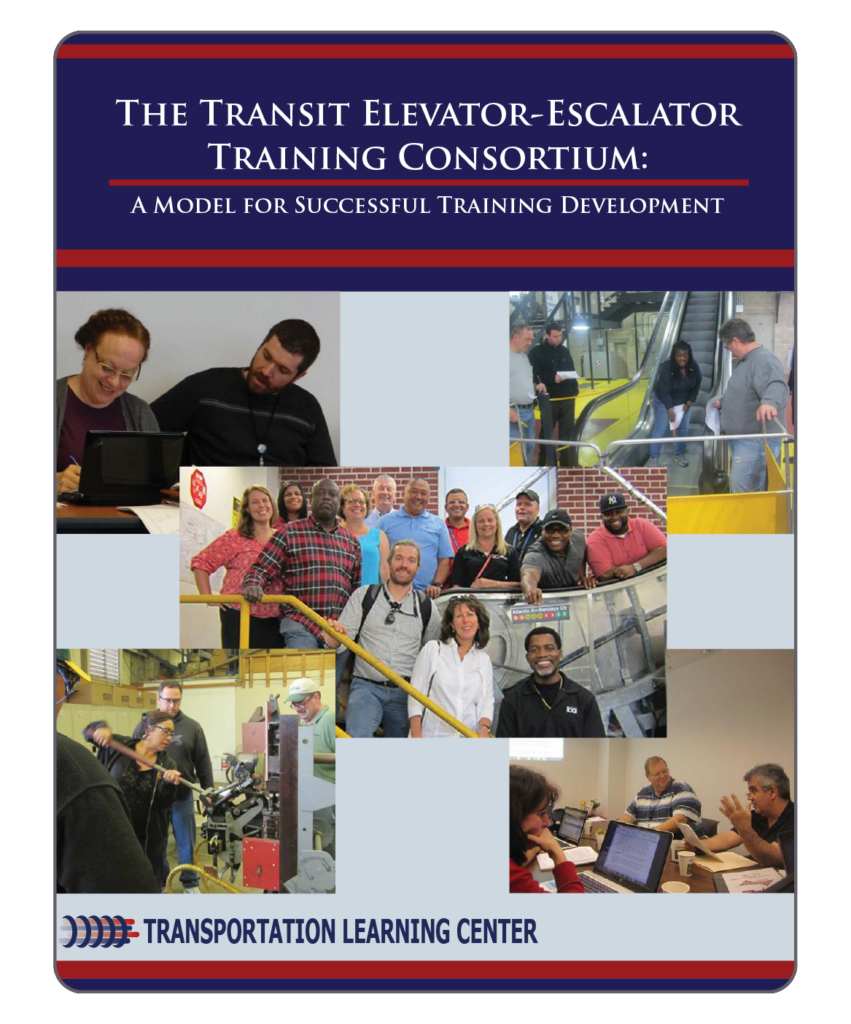
The Transit Elevator-Escalator Training Consortium: A Model for Successful Training Development
A report on the process, products and outcomes related to the first National consortium for development of training for public transportation maintenance employees. This joint labor-management effort set a proven model for multiple other similar consortia. Products include – instruction ready courseware, a nationally recognized apprenticeship program for transit maintenance elevator/escalator maintainers and train-the-trainer program.
International Transportation Learning Center
September 2016
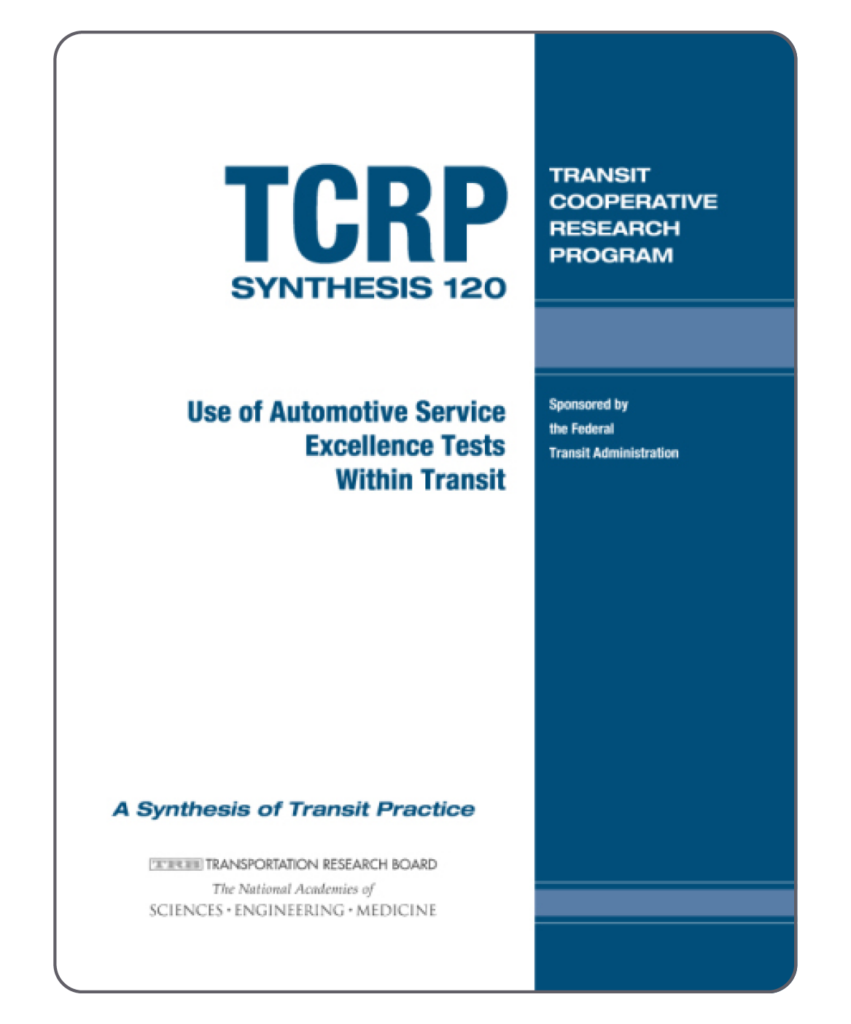
Use of Automotive Service Excellence Tests Within Transit
TRB’s Transit Cooperative Research Program (TCRP) Synthesis 120: Use of Automotive Service Excellence Tests Within Transit documents how the Automotive Service Excellence (ASE) program is accepted and used within the transit bus maintenance community. The ASE program is nationally recognized as the standard industry credential provider for automotive professionals. The report explores how a cross section of transit bus maintenance personnel view the ASE certification program and summarizes their perspectives to improve ASE certification acceptance and participation.
Transit Cooperative Research Program (TCRP)
January 2016
TOPICS: Safety and Health , Training
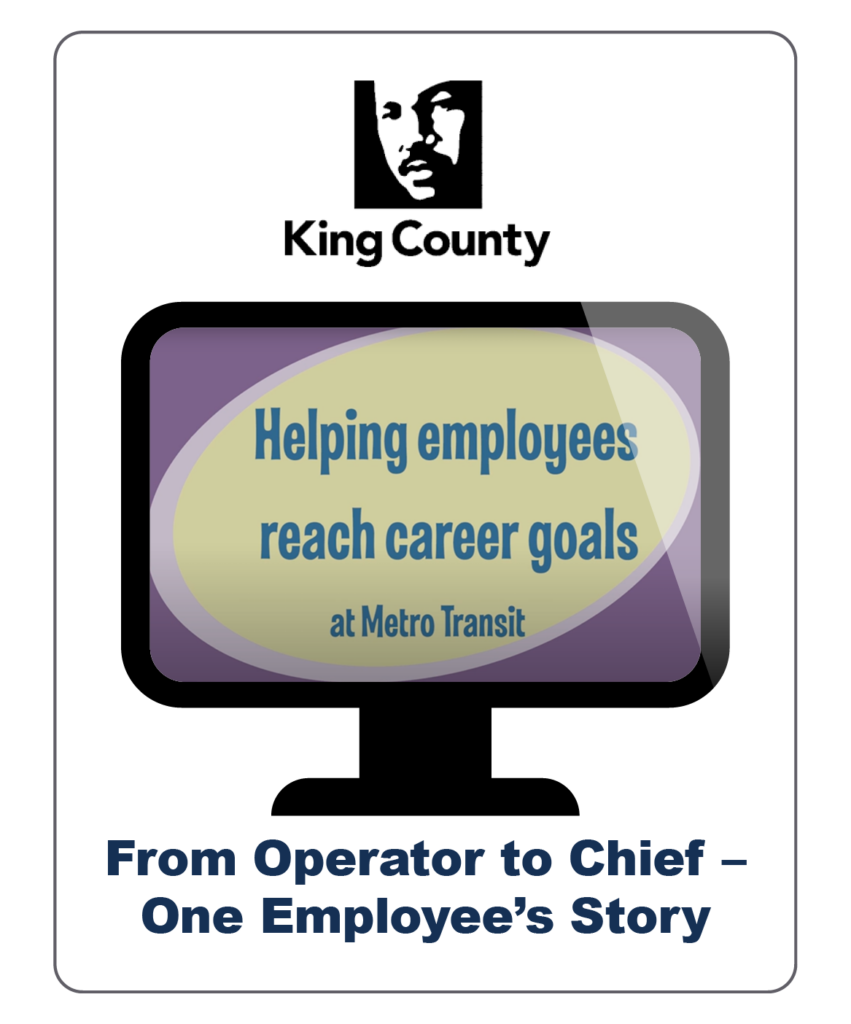
From Operator to Chief – One Employee’s Story
This video provides a description of King County DOT’s program for recruitment and advancement options for current employees, along with one employees’ story about how he was supported in his journey from bus operator to Base Chief.
King County Department of Transportation
October 2015
TOPICS: Career Pathways , Community Engagement , Hiring and Recruitment , Retention , Training
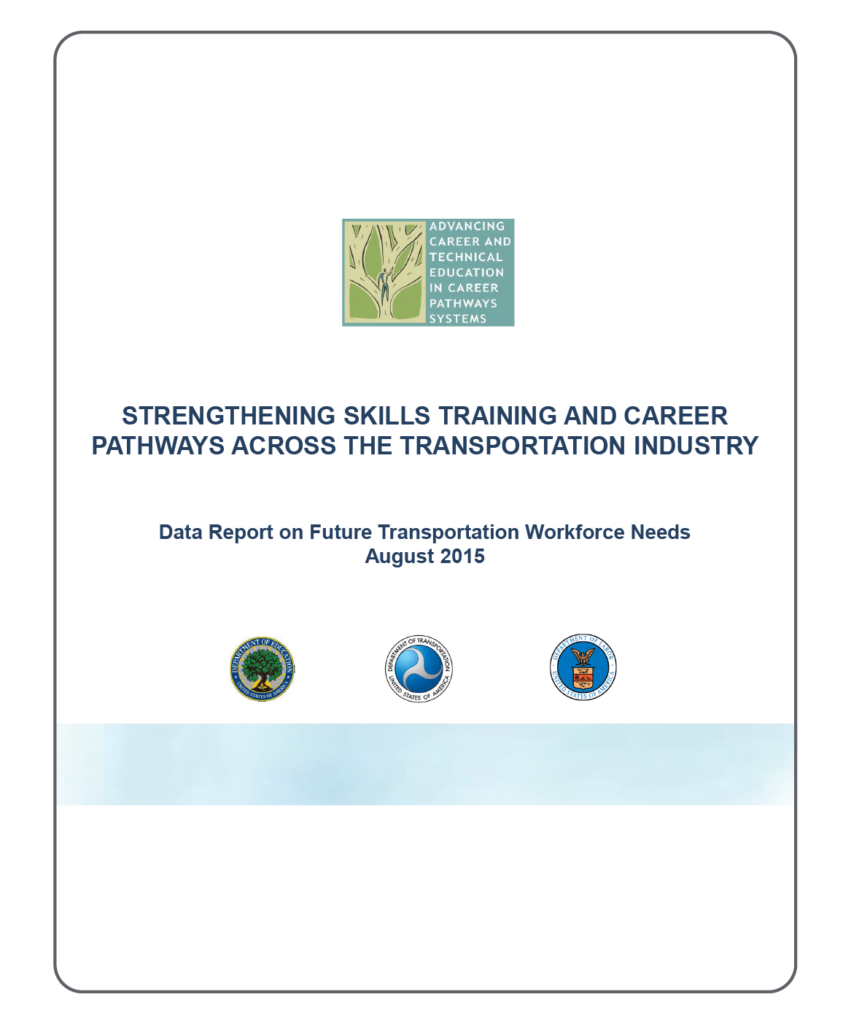
Strengthening Skills Training and Career Pathways Across the Transportation Industry
This report identifies high-demand jobs with good wages in transportation, discusses the role data plays in identifying future workforce skill needs, and analyzes the patterns in the education and work experience required for entry, as well as on-the-job training required for new entrants to gain full competency.
U.S. Department of Education, Office of Career, Technical, and Adult Education; U.S. Department of Transportation; U.S. Department of Labor
August 2015
TOPICS: Apprenticeship , Career Pathways , Hiring and Recruitment , Training
The Office of Career, Technical, and Adult Education (OCTAE) and the Department of Transportation acknowledge the important contributions to this report made by the following people: Xinge Wang, Deputy Director, and Jack Clark, Executive Director, Transportation Learning Center; and Mary Clagett, Director for Workforce Policy, Lois Joy, Senior Program Manager, and Dudney Sylla, Program Manager, Jobs for the Future, for their analysis and writing.
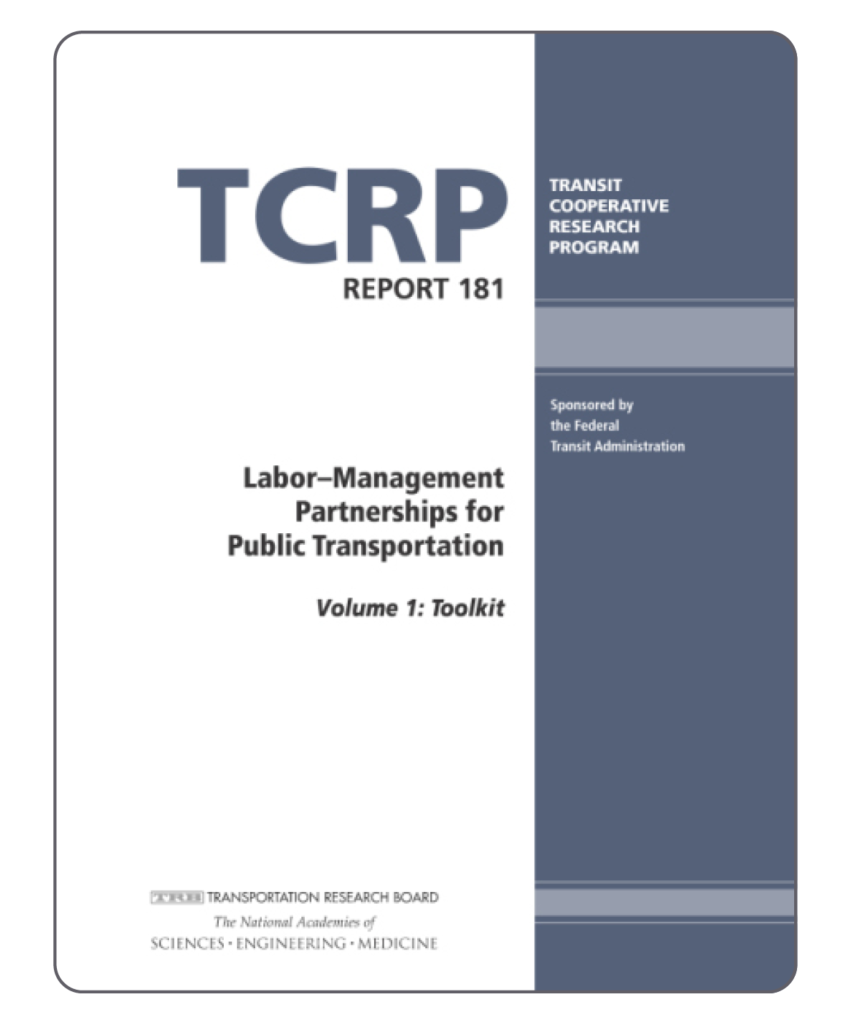
Labor-Management Partnerships for Public Transportation, Volume 1: Toolkit
This toolkit provides resources for public transportation management and labor union leaders to establish, manage, and improve labor-management partnerships. It includes a description of the development of a labor-management partnership charter, recommended actions for both management and labor union leaders, and a workshop framework to prepare management and union representatives with essential skills for establishing and managing labor-management partnerships.
Transit Cooperative Research Program
January 2015
TOPICS: Apprenticeship , Labor-Management Partnerships , Training
Volume 2 of this report provides background material that was used to develop this toolkit.
Contributor(s): National Academies of Sciences, Engineering, and Medicine; Transportation Research Board; Transit Cooperative Research Program; Scott Baker; Chuyuan (Viktor) Zhong; Douglas Taylor; William F. Scott; Richard Plante
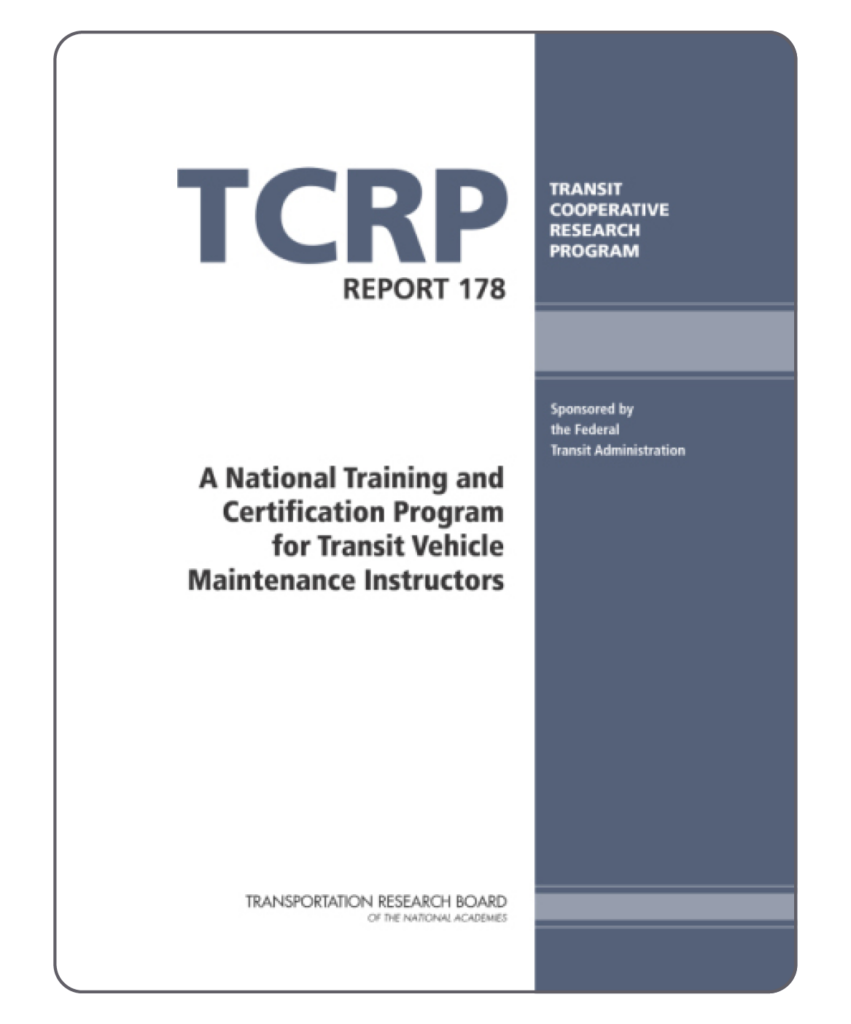
A National Training and Certification Program for Transit Vehicle Maintenance Instructors
This TCRP report provides a proposed national program structure and plan for training and certifying transit bus and rail maintenance instructors. The report also provides best practices used in the public and private sectors to prepare and certify technical instructors, as well as the attributes and instructional delivery methods found most effective for maintenance instructors.
Transit Cooperative Research Program
January 2015
TOPICS: Trainer and Mentor Development , Training
Contributor(s): National Academies of Sciences, Engineering, and Medicine; Transportation Research Board; Transit Cooperative Research Program Synthesis Program; Transit Cooperative Research Program; Transportation Learning Center; Educational Data Systems Inc
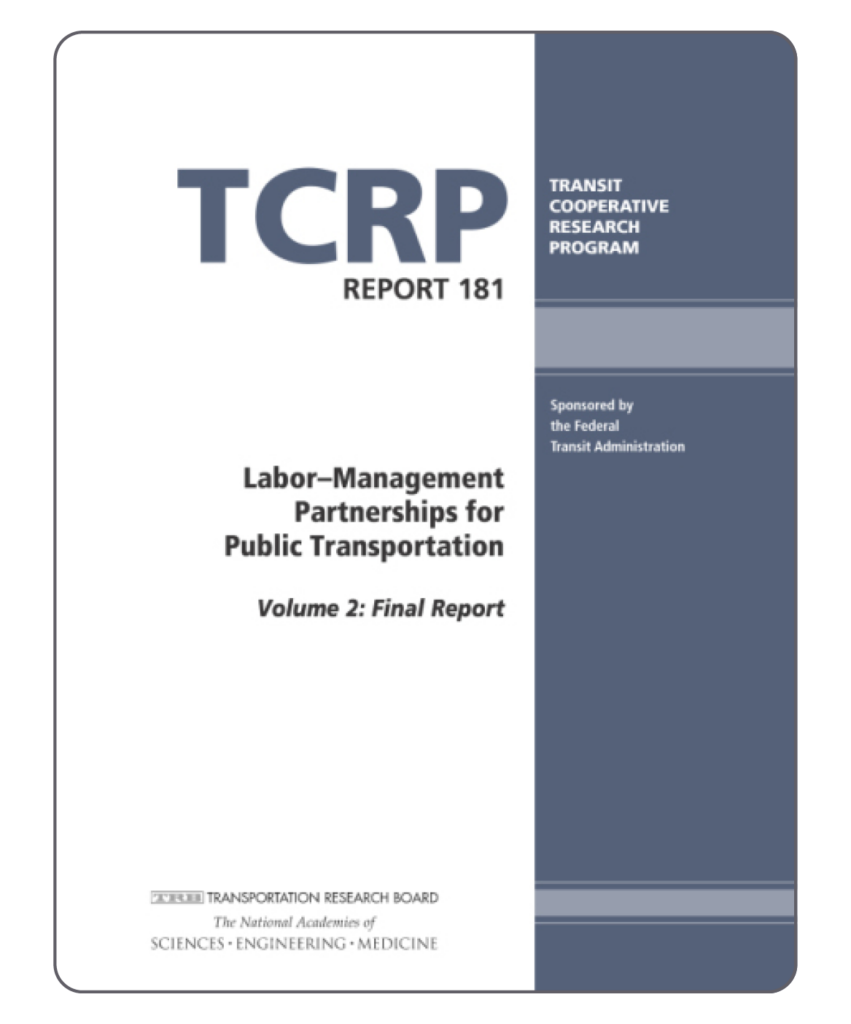
Labor-Management Partnerships for Public Transportation, Volume 2: Final Report
This TCRP report documents the materials used to develop the Volume 1: Toolkit, including an industry survey and case studies. Volume 1 provides resources for public transportation management and labor union leaders to establish, manage, and improve labor–management partnerships.
Transit Cooperative Research Program
January 2015
TOPICS: Apprenticeship , Labor-Management Partnerships , Training
Contributor(s): National Academies of Sciences, Engineering, and Medicine; Transportation Research Board; Transit Cooperative Research Program; Scott Baker; Chuyuan (Viktor) Zhong; Douglas Taylor; William F. Scott; Richard Plante
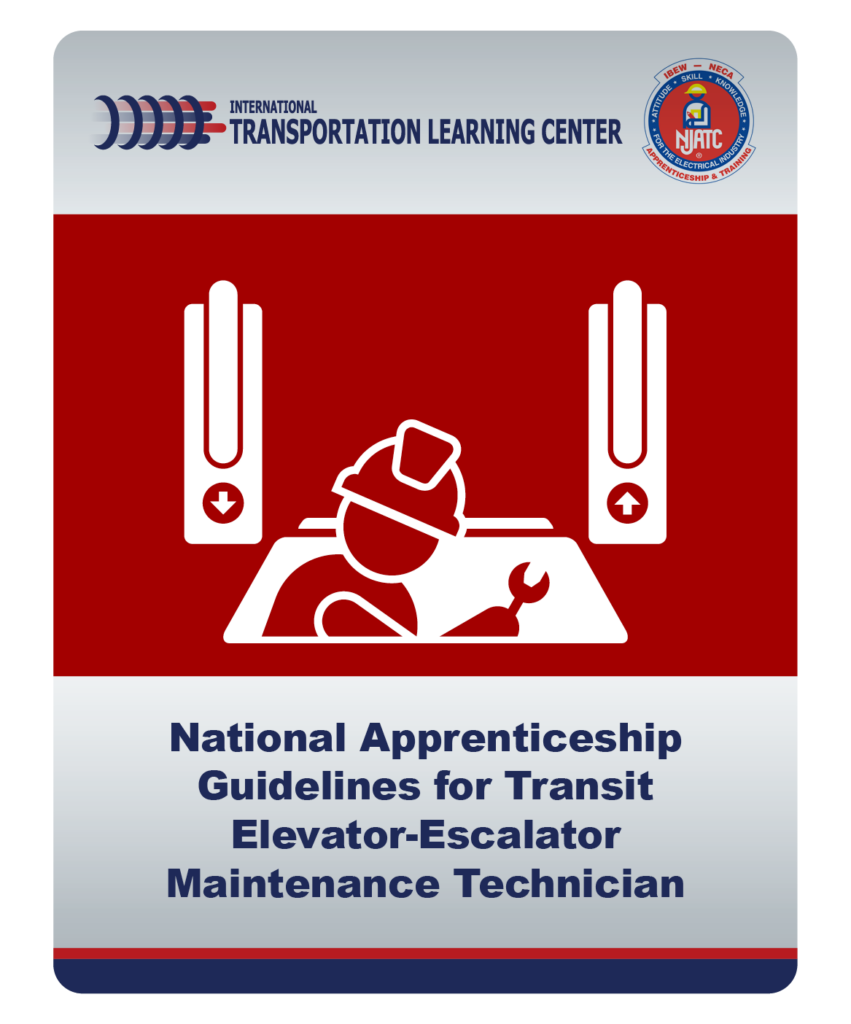
National Apprenticeship Guidelines for Transit Elevator-Escalator Maintenance Technician
The purpose of these National Guidelines for Apprenticeship Standards (National Guideline Standards) is to provide policy and guidance to local Sponsors in developing these Standards for Apprenticeship for local approval and registration. These National Guideline Standards developed by the Sponsor are certified by the U. S. Department of Labor, Office of Apprenticeship as substantially conforming to the requirements of Title 29, CFR parts 29 and 30. State Apprenticeship Agencies recognized by the Office of Apprenticeship to register local programs, and/or local laws and regulations, may impose additional requirements that must be addressed in the local apprenticeship standards.
International Transportation Learning Center & National Joint Apprenticeship and Training Committee (NJATC)
January 2014
TOPICS: Apprenticeship , Policy and Planning , Training
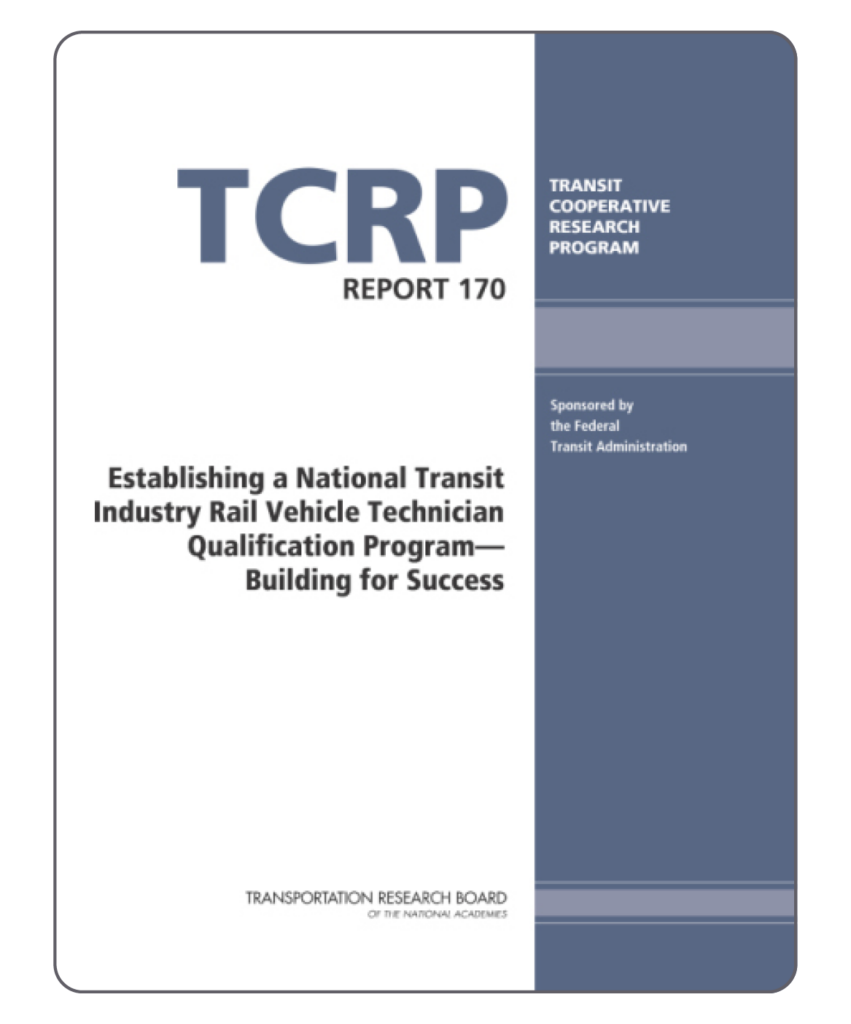
Establishing a National Transit Industry Rail Vehicle Technician Qualification Program—Building for Success
TRB’s Transit Cooperative Research Program (TCRP) Report 170: Establishing a National Transit Industry Rail Vehicle Technician Qualification Program—Building for Success describes a system of qualification that has been developed for rail vehicle technicians. This qualification system is available for implementation through the Transportation Learning Center.
The program integrates national training standards, progressive classroom curricula and introductory courseware, on-the-job learning modules, an apprenticeship framework that combines well-designed sequences of learning, mentoring to support learners, and coordination of classroom and on-the-job learning. The qualification system also includes written and hands-on certification assessments to confirm that technicians have the practical knowledge and skills required to perform their jobs at the highest level of expertise.
Transit Cooperative Research Program (TCRP) & International Transportation Learning Center
January 2014
TOPICS: Career Pathways , Mentorship , Trainer and Mentor Development , Training
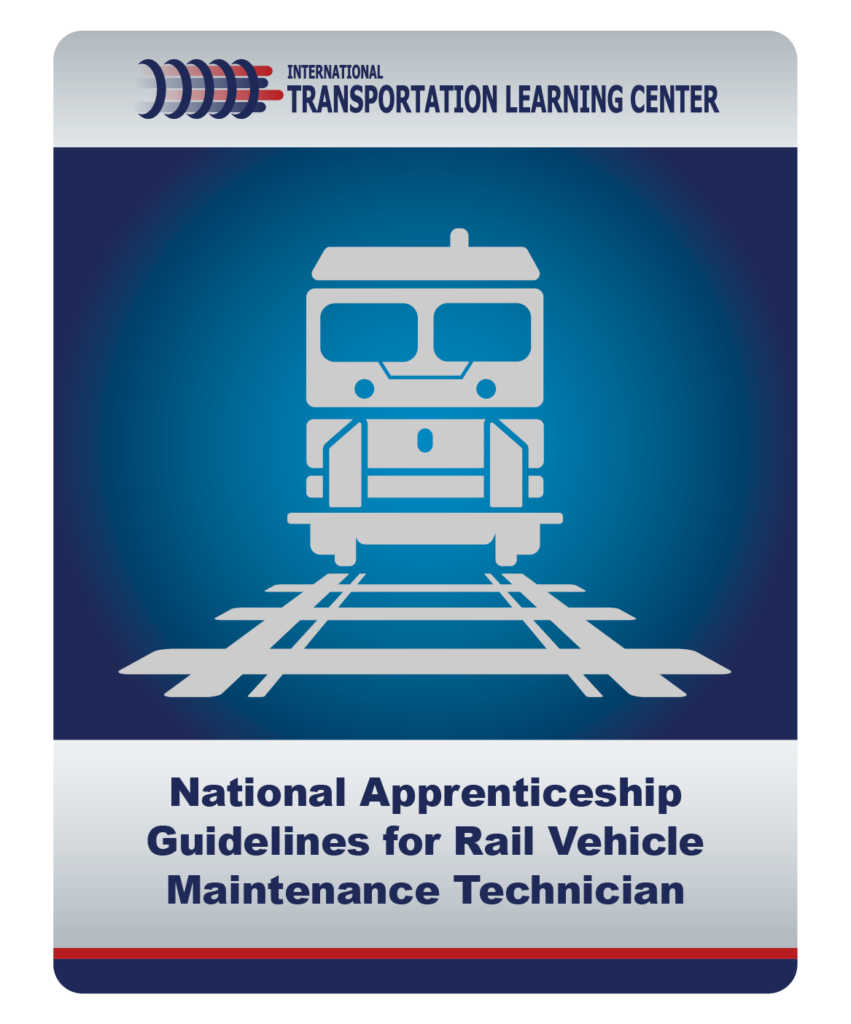
National Apprenticeship Guidelines for Rail Vehicle Maintenance Technicians
The purpose of these National Guidelines for Apprenticeship Standards (National Guideline Standards) is to provide policy and guidance to local Sponsors in developing Standards for Apprenticeship for local approval and registration. These National Guideline Standards developed by the Sponsor are certified by the U. S. Department of Labor, Office of Apprenticeship as substantially conforming to the requirements of Title 29, CFR parts 29 and 30. State Apprenticeship Agencies recognized by the Office of Apprenticeship to register local programs, and/or local laws and regulations, may impose additional requirements that must be addressed in the local apprenticeship standards.
International Transportation Learning Center; National Rail Car Training Committee
June 2013
TOPICS: Apprenticeship , Training
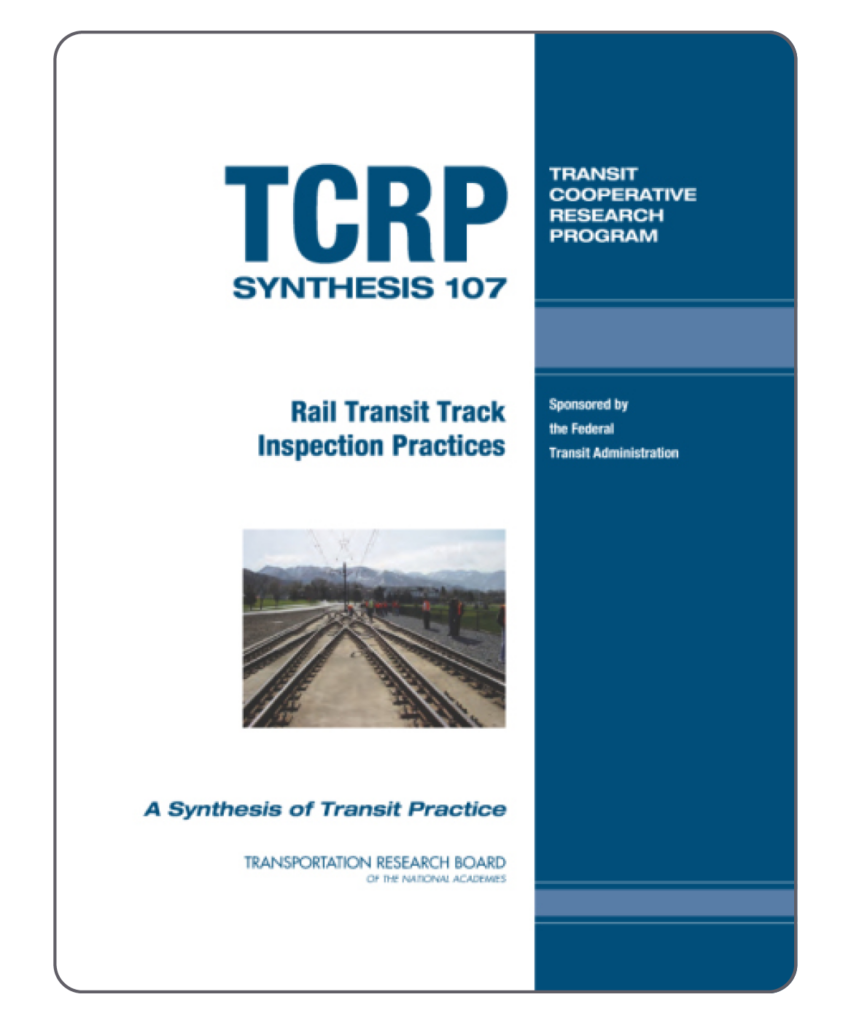
Rail Transit Track Inspection Practices
TRBs Transit Cooperative Research Program (TCRP) Synthesis 107: Rail Transit Track Inspection Practices offers information across a range of older and newer U.S. rail transit agencies on track inspection practices and policies.
Issues addressed in the report include agency staffing, agency organization and characteristics, track inspection program criteria, training and certification, procurement, and track safety practices.
Transit Cooperative Research Program (TCRP)
January 2013
TOPICS: Policy and Planning , Procurement , Safety and Health , Training
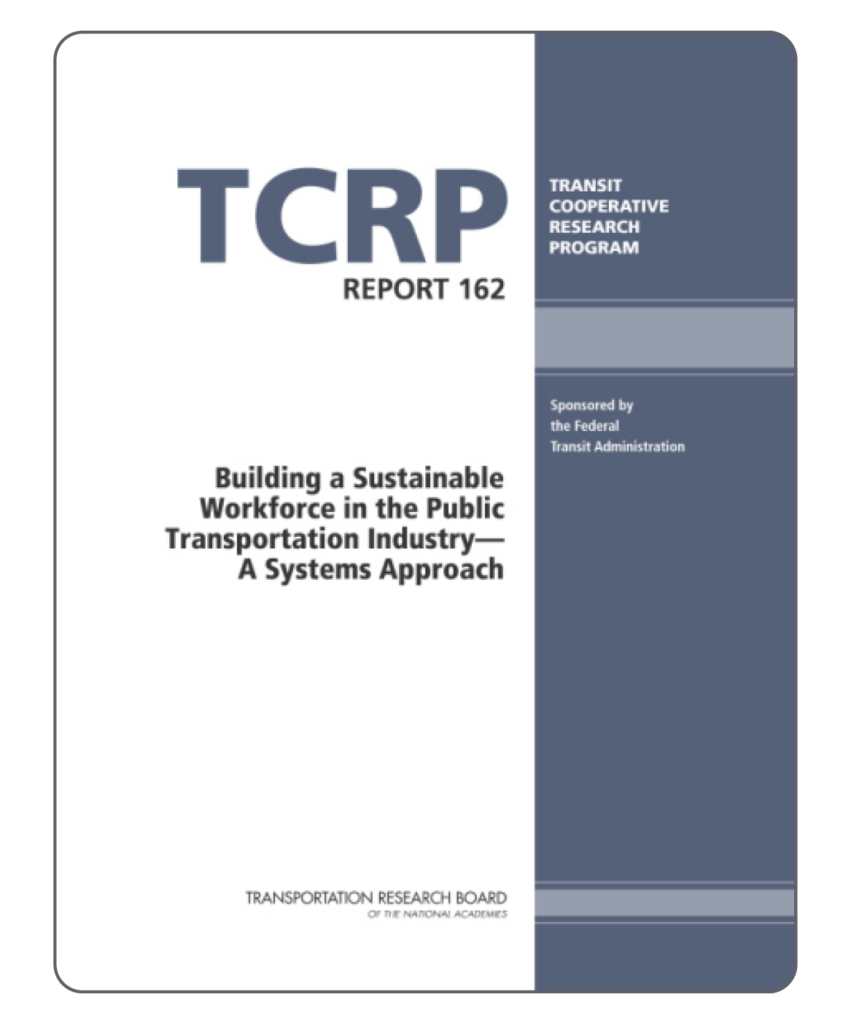
Building a Sustainable Workforce in the Public Transportation Industry—A Systems Approach
TRB’s Transit Cooperative Research Program (TCRP) Report 162: Building a Sustainable Workforce in the Public Transportation Industry—A Systems Approach provides a guidebook that addresses contemporary issues in workforce development, retention, and attraction, and public transportation image management.
The guidebook provides practical tools to transit agencies on a variety of workforce issues including workforce strategies that enhance organizational processes, performance metrics to evaluate the impact of workforce strategies, image management techniques that improve perceptions of the public transportation industry, and benchmarking processes that allow for continuous organizational improvement.
The guidebook is separated into modules that may be used independently or together in the form of the fully integrated guidebook.
Transit Cooperative Research Program (TCRP)
January 2013
TOPICS: Hiring and Recruitment , Policy and Planning , Retention , Training

Developing, Enhancing, and Sustaining Tribal Transit Services: A Guidebook
TRB’s Transit Cooperative Research Program (TCRP) Report 154: Developing, Enhancing, and Sustaining Tribal Transit Services: A Guidebook offers guidance about the various steps for planning and implementing a tribal transit system. The steps that are described may be used for planning a new transit system, enhancing an existing service, or taking action to sustain services.
Transit Cooperative Research Program
January 2012
TOPICS: Community Engagement , Policy and Planning , Training
Contributor(s): National Academies of Sciences, Engineering, and Medicine; Transportation Research Board; Transit Cooperative Research Program; Albert T. Stoddard, III; David Sampson; Jill Cahoon; Ronald Hall; Peter Schauer; Valerie J. Southern; Tangerine Almeida
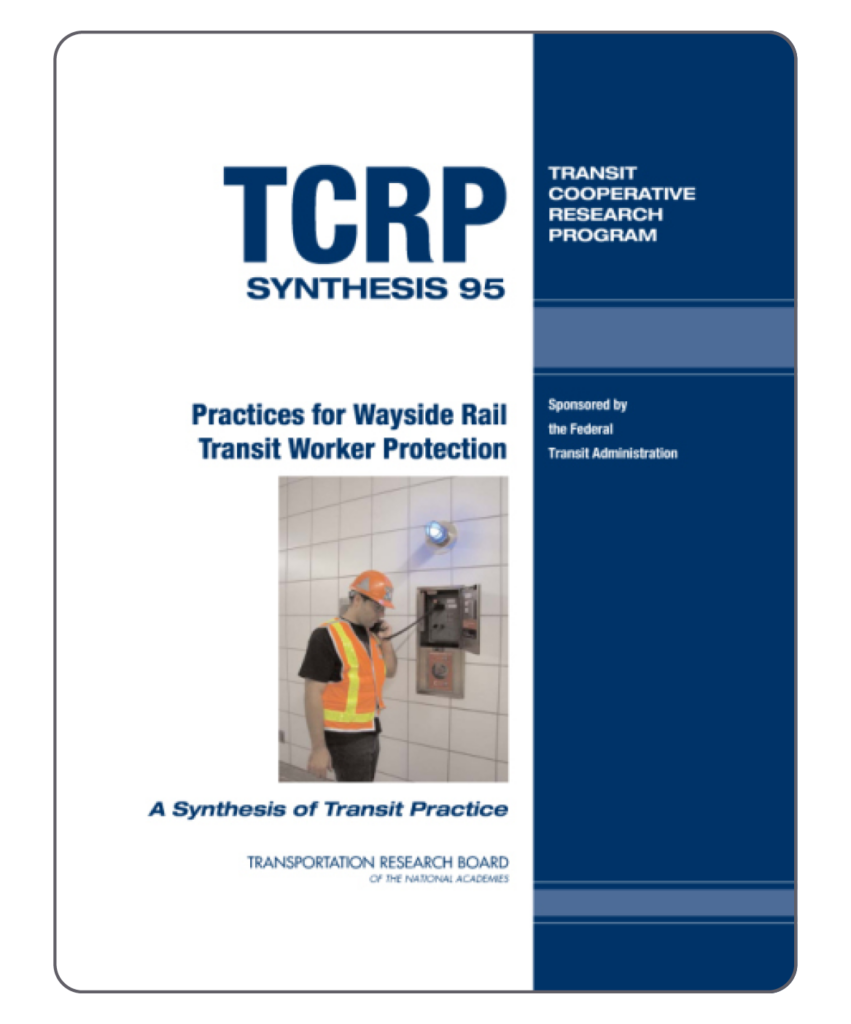
Practices for Wayside Rail Transit Worker Protection
TRB’s Transit Cooperative Research Program (TCRP) Synthesis 95: Practices for Wayside Rail Transit Worker Protection is designed to highlight knowledge, practice, lessons learned, and gaps in information related to wayside rail transit worker protection programs.
Transit Cooperative Research Program (TCRP)
January 2012
TOPICS: Safety and Health , Training
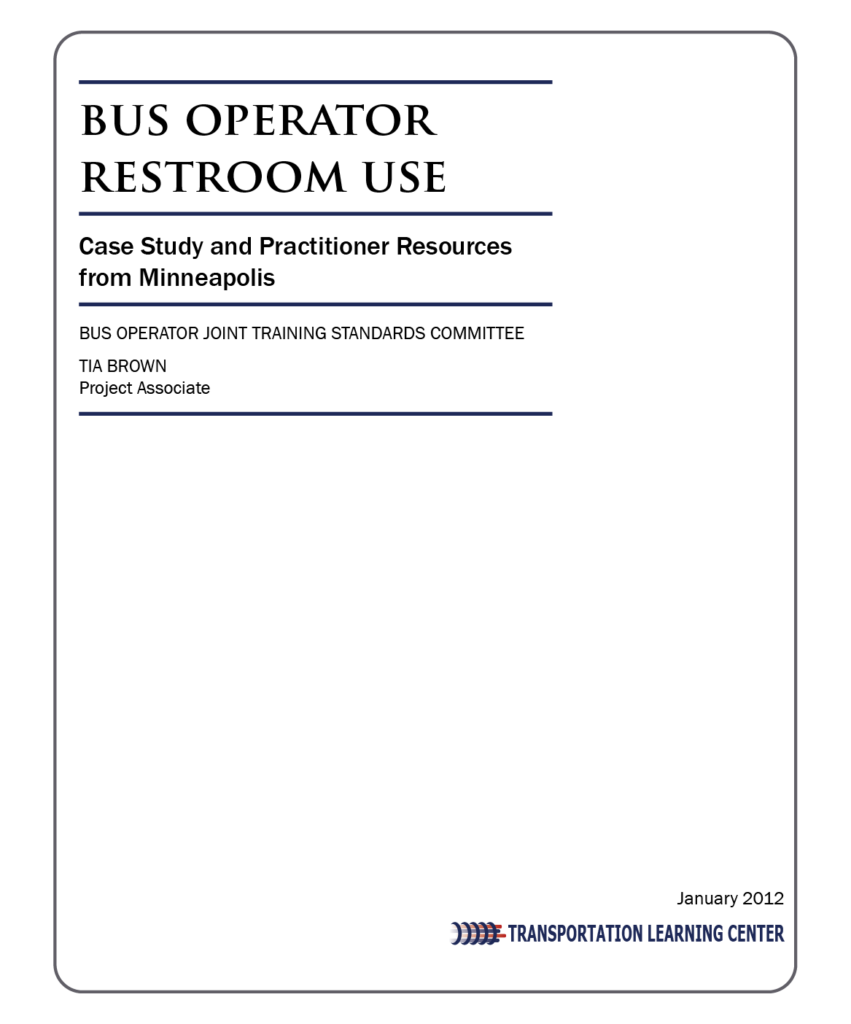
Bus Operator Restroom Use Case Study
In collaboration with the Bus Operator National Joint Training Standards Committee, the International Transportation Learning Center developed this Bus Operator Restroom Use report, a case study and compendium of practitioner resources on restroom use, including a history of restroom use policy at Minneapolis Metro Transit. The resources in this report also include a model community restroom licensing agreement, route-specific restroom locations chart, and example collective bargaining language.
International Transportation Learning Center
January 2012
TOPICS: Retention , Safety and Health , Training
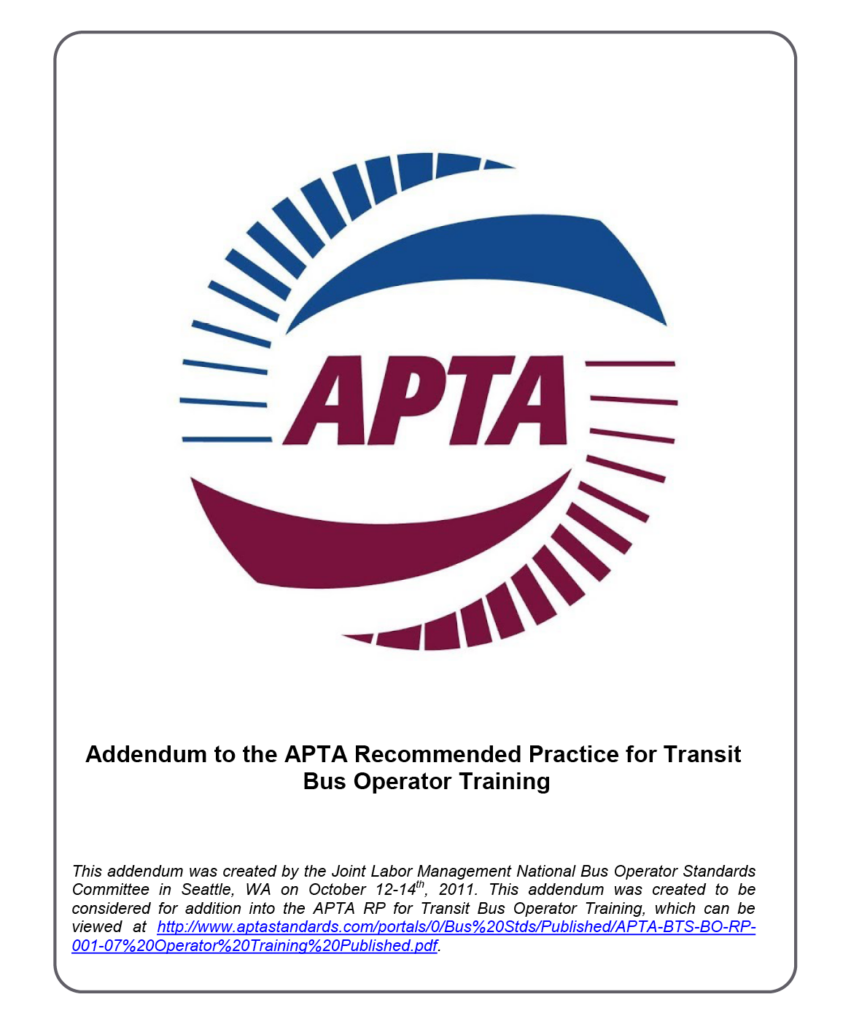
Addendum to the APTA Recommended Practice for Transit Bus Operator Training
This addendum was created by the Joint Labor Management National Bus Operator Standards Committee in Seattle, WA on October 12-14th 2011. This addendum was created to be considered for addition into the APTA RP for Transit Bus Operator Training.
Joint Labor Management National Bus Operator Standards Committee
October 2011
TOPICS: Safety and Health , Training
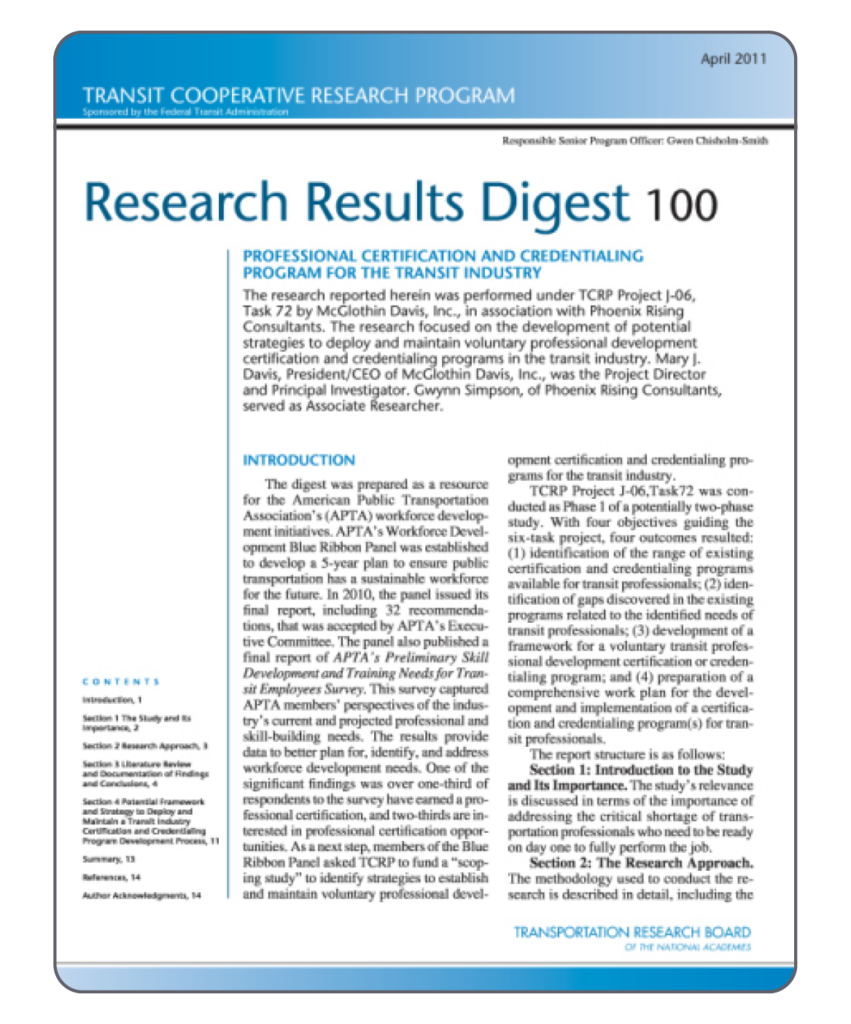
Professional Certification and Credentialing Program for the Transit Industry
TRB’s Transit Cooperative Research Program (TCRP) Research Results Digest 100: Professional Certification and Credentialing Program for the Transit Industry explores the findings of a literature review and a gap analysis of the efficacy of four transit-specific professional development programs. The report also examines potential strategies that might be used to deploy and maintain a transit industry certification and credentialing program.
Transit Cooperative Research Program (TCRP)
April 2011
TOPICS: Career Pathways , Policy and Planning , Retention , Training
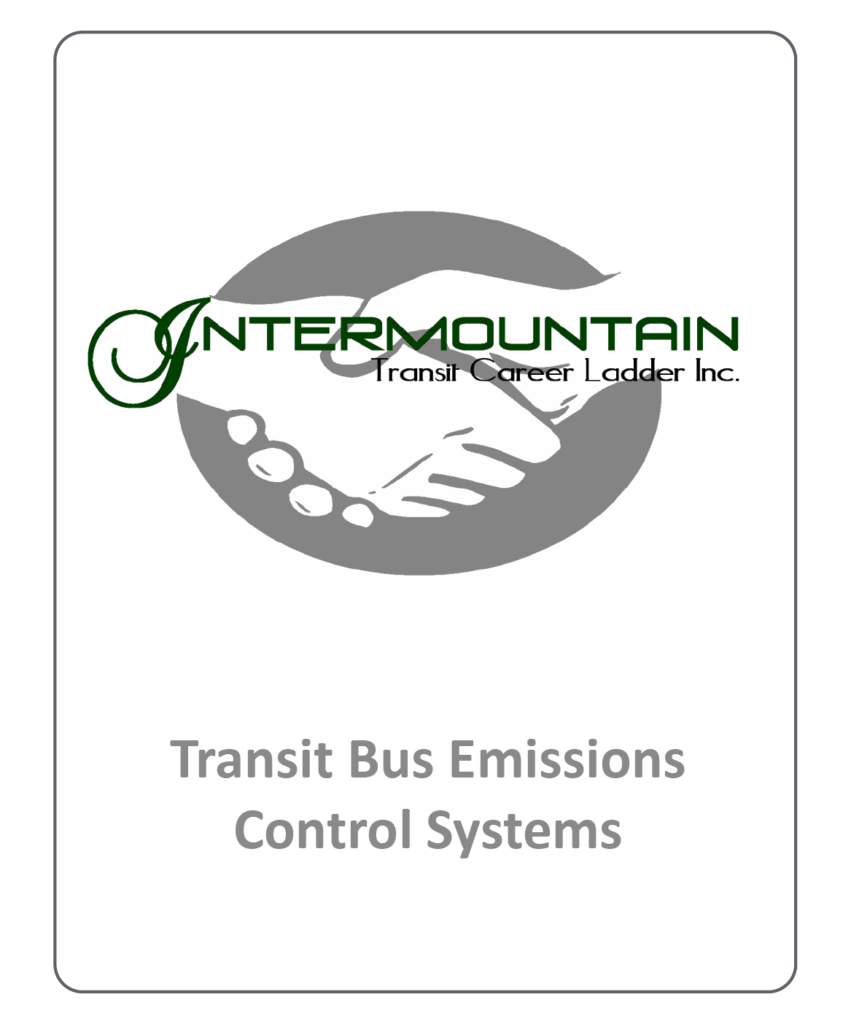
Training Course – Transit Bus Emissions Control Systems
A three-day course designed to deepen bus technicians’ understanding of the operation and maintenance of transit bus emission control systems.
Intermountain Transit Career Ladder, Inc.
January 2011
TOPICS: Training
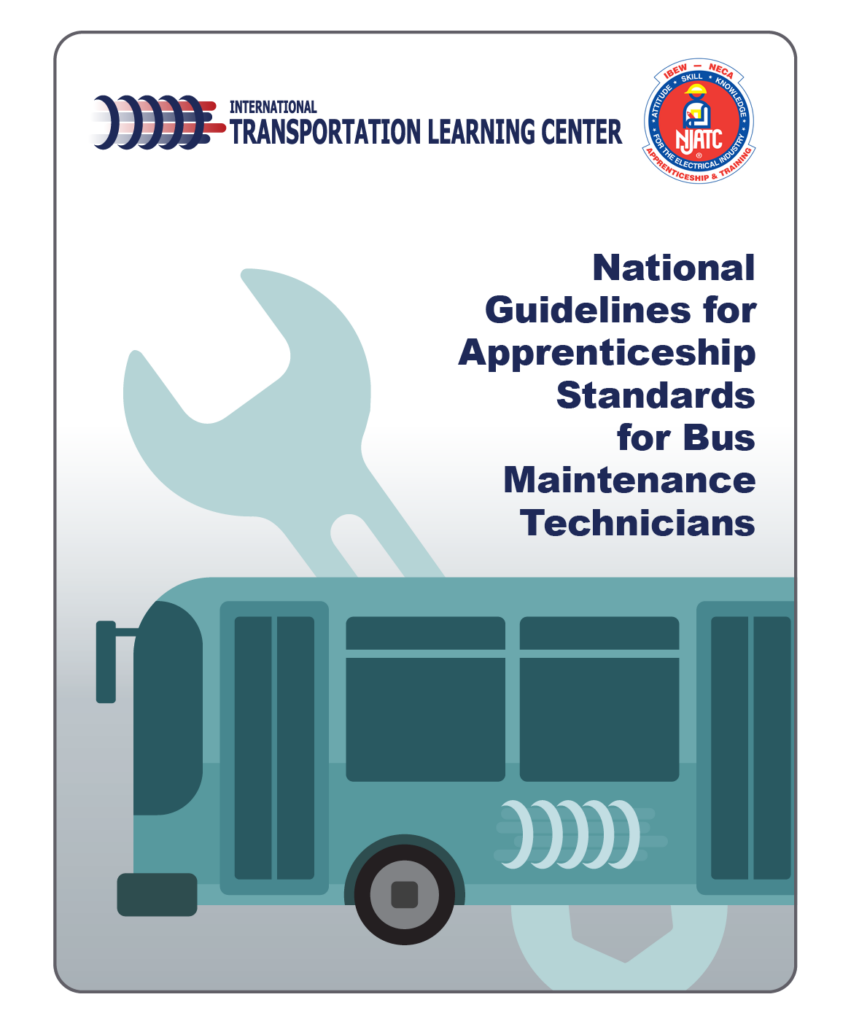
National Guidelines for Apprenticeship Standards for Bus Maintenance Technicians
These National Joint Apprenticeship and Training Committee (NJATC) Apprenticeship Standards have as their objective the training of Bus Maintenance Technicians skilled in all phases of bus maintenance. The NJATC and its affiliated Local Joint Apprenticeship and Training Committees recognize that in order to accomplish this, there must be well-developed on-the-job learning combined with related instruction. This recognition has resulted in the development of these Apprenticeship Standards.
Developed by the Intl. Transportation Learning Center and National Joint Apprenticeship and Training Committee (NJATC) in cooperation with the U.S. Department of Labor, Office of Apprenticeship.
Approved and certified by the U.S. Department of Labor, Office of Apprenticeship on 8/25/2010.
International Transportation Learning Center & National Joint Apprenticeship and Training Committee (NJATC)
August 2010
TOPICS: Apprenticeship , Labor-Management Partnerships , Low-No , Training
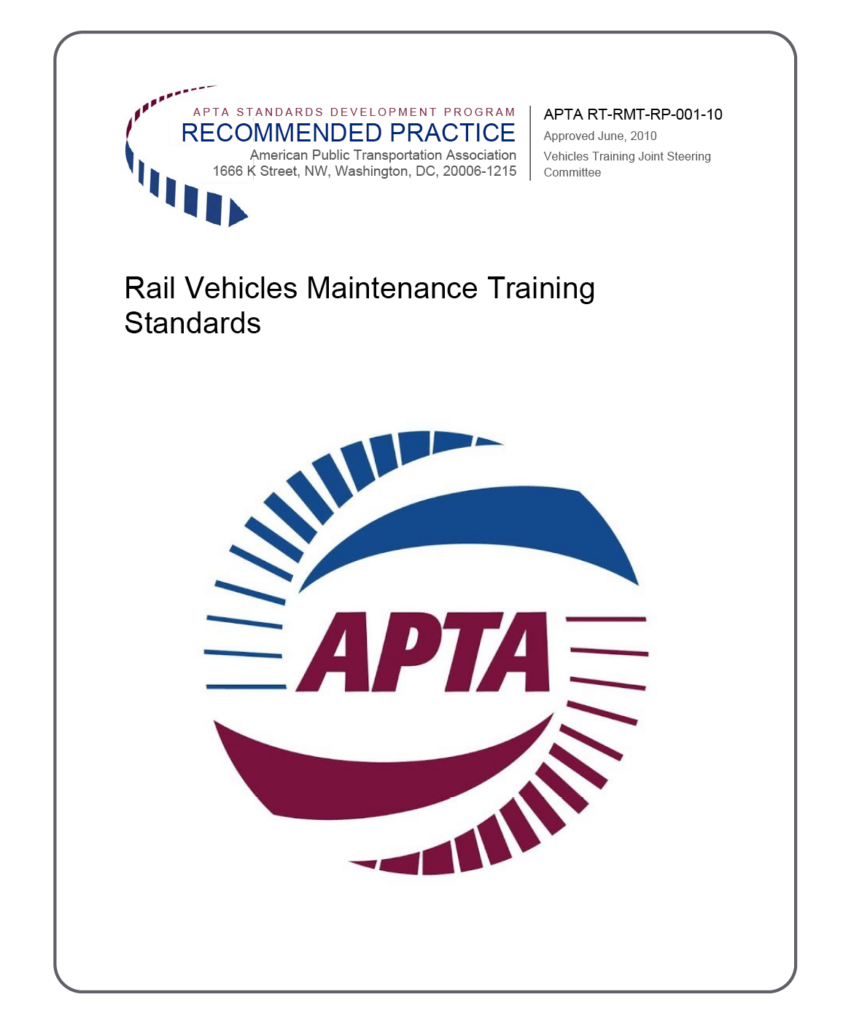
Rail Vehicles Maintenance Training Standards
In response to the transit industry’s need for rail vehicles maintenance training, the Transportation Learning Center partnered with APTA, transit agencies and unions representing transit workers to develop these joint labor-management training guidelines and recommended training practices.
American Public Transportation Association (APTA) & International Transportation Learning Center
June 2010
TOPICS: Policy and Planning , Training
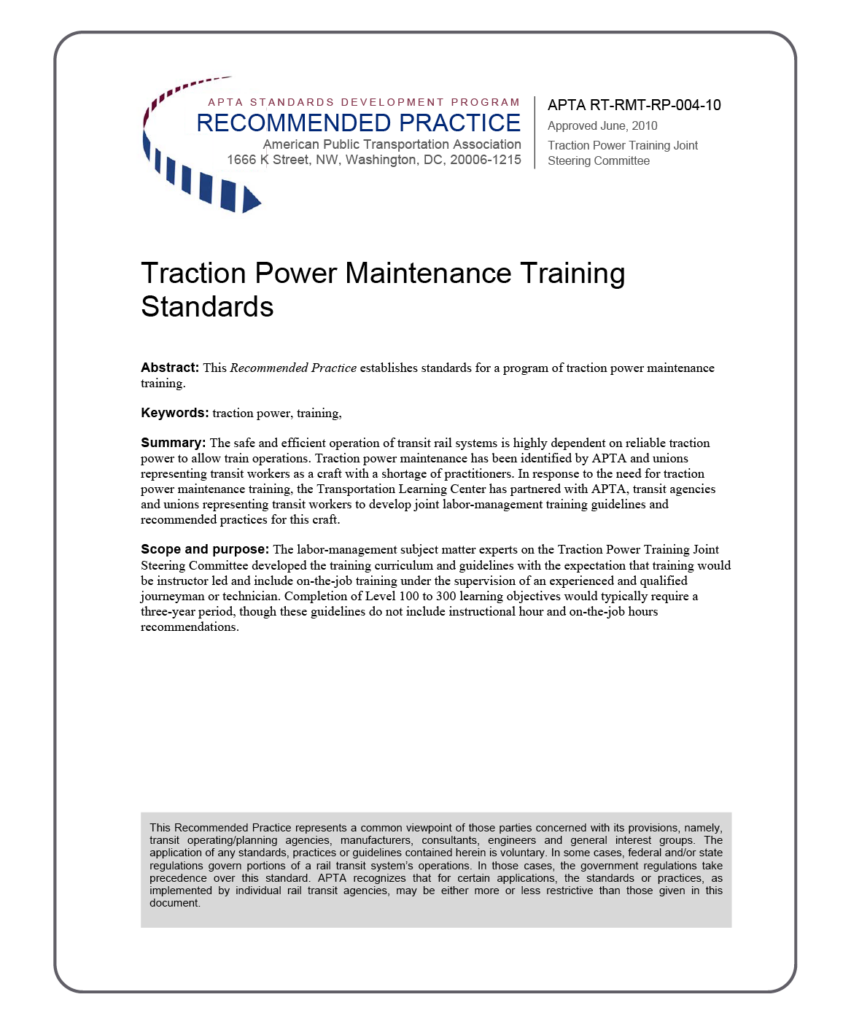
Traction Power Maintenance Training Standards
This Recommended Practice establishes standards for a program of traction power maintenance training.
American Public Transportation Association
June 2010
TOPICS: Training
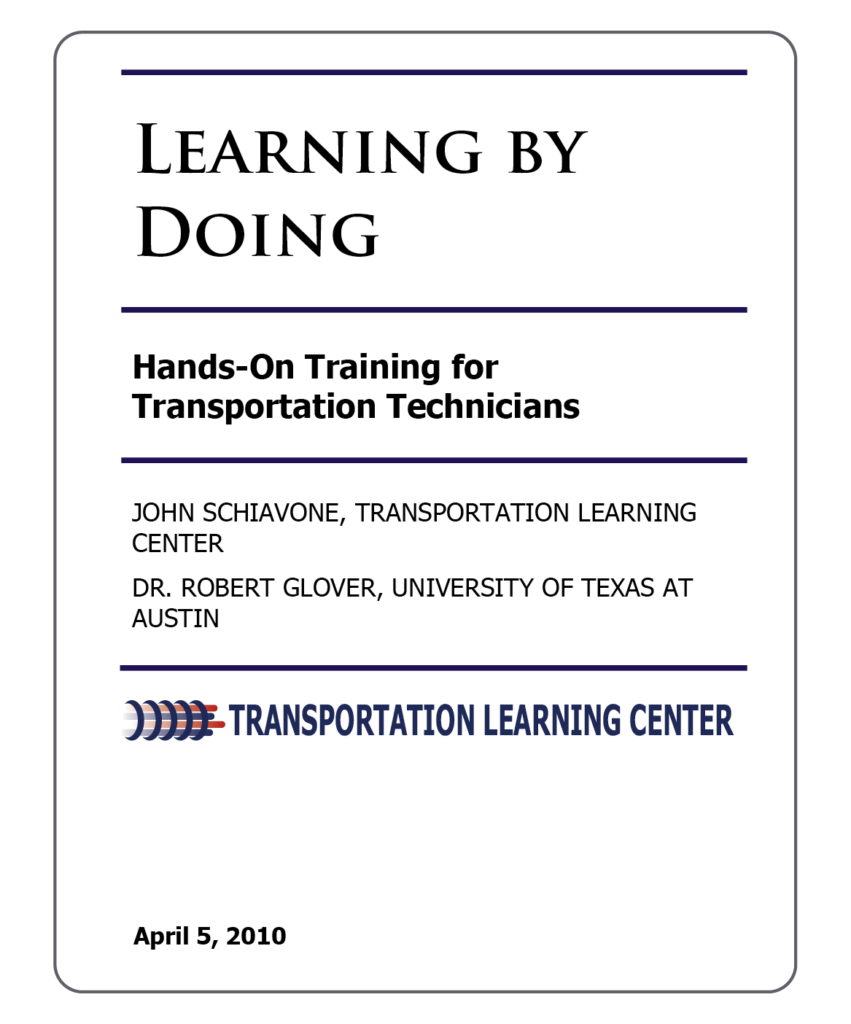
Learning by Doing: Hands-On Training for Transportation Technicians
Today, formal training is absolutely essential to produce technicians capable of providing safe, efficient and cost-effective transport services. The consequences of jeopardizing passenger and public safety are just too great to turn inexperienced workers loose on advanced transit vehicles without proper training, hoping they will learn “as they go.” The question becomes how best to construct an effective training program.
This paper, from the International Transportation Learning Center, examines the subject of technical training and advocates “learning by doing” as an essential element to acquiring needed technical knowledge and skills. It stands to reason that someone attracted to becoming a technician is interested in working with their hands. Training, therefore, should make use of that natural inclination and engage students in hands-on activities throughout the entire learning process.
International Transportation Learning Center
April 2010
TOPICS: Apprenticeship , Training
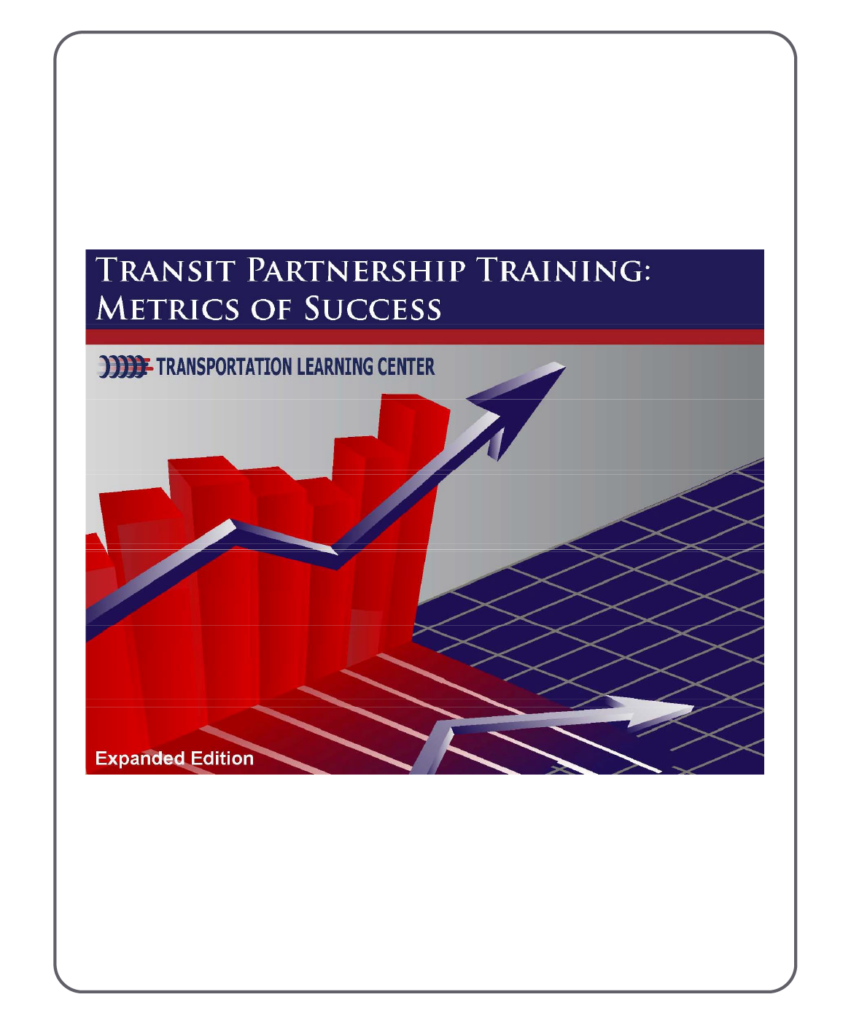
Transit Partnership Training: Metrics of Success
The Transit Partnership Training: Metrics of Success report is an overview of the key findings of the Metrics of Success series, which chronicles measurable outcomes, in particular return on investment, of transit training partnerships in which the International Transportation Learning Center has had a substantial role.
International Transportation Learning Center
February 2010
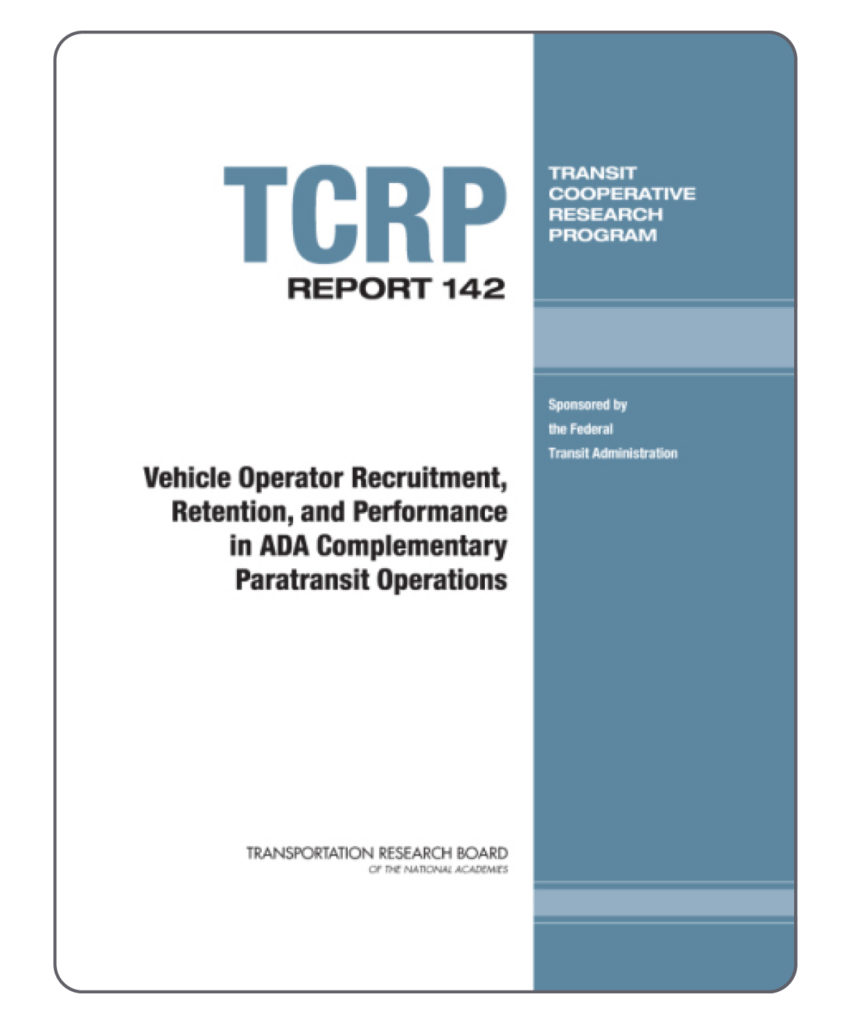
Vehicle Operator Recruitment, Retention, and Performance in ADA Complementary Paratransit Operations
TRB’s Transit Cooperative Research Program (TCRP) Report 142: Vehicle Operator Recruitment, Retention, and Performance in ADA Complementary Paratransit Operations provides guidance for understanding the relationships that influence and enhance operator recruitment, retention, and performance in Americans with Disabilities Act (ADA) complementary paratransit services.
Transit Cooperative Research Program (TCRP)
TOPICS: Hiring and Recruitment , Retention , Training
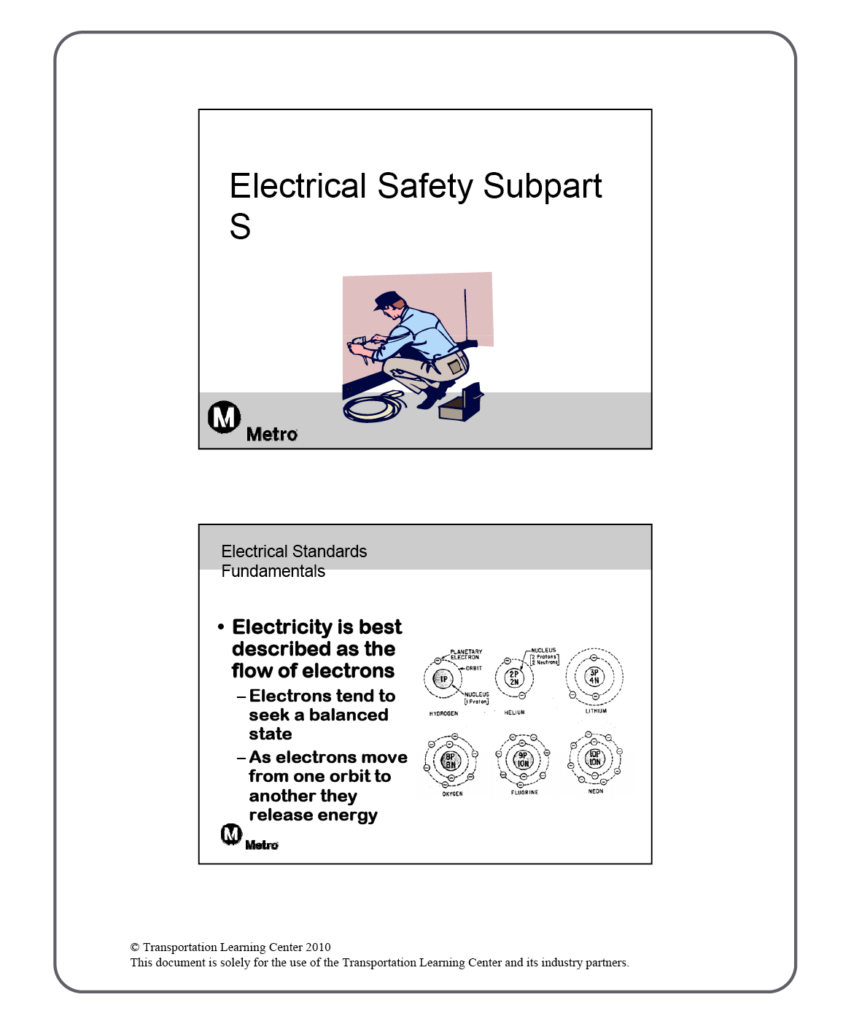
Electrical Standards Fundamentals
A document of electrical safety standards and fundamentals. The fundamentals include Electrons, Static Electricity, and Magnetic fields. It also covers how power is transmitted to buildings through the power grid and how grounding is built into delivery systems. This resource is intended only to provide an overview of fundamental principles – please see Terms & Conditions.
International Transportation Learning Center
January 2010
TOPICS: Safety and Health , Trainer and Mentor Development , Training
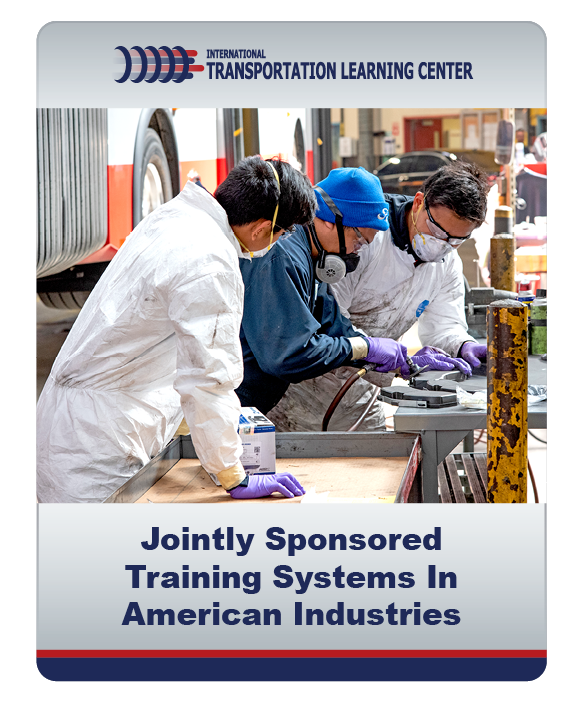
Jointly Sponsored Training Systems In American Industries
This paper examines recent developments in credentialing in jointly sponsored training and qualifications systems across the United States. This paper builds on previous work on building trades joint apprenticeship and training programs, describes their structure and activities, and documents their superior performance.
Written in collaboration with Robert W. Glover, the University of Texas at Austin.
International Transportation Learning Center
February 2009
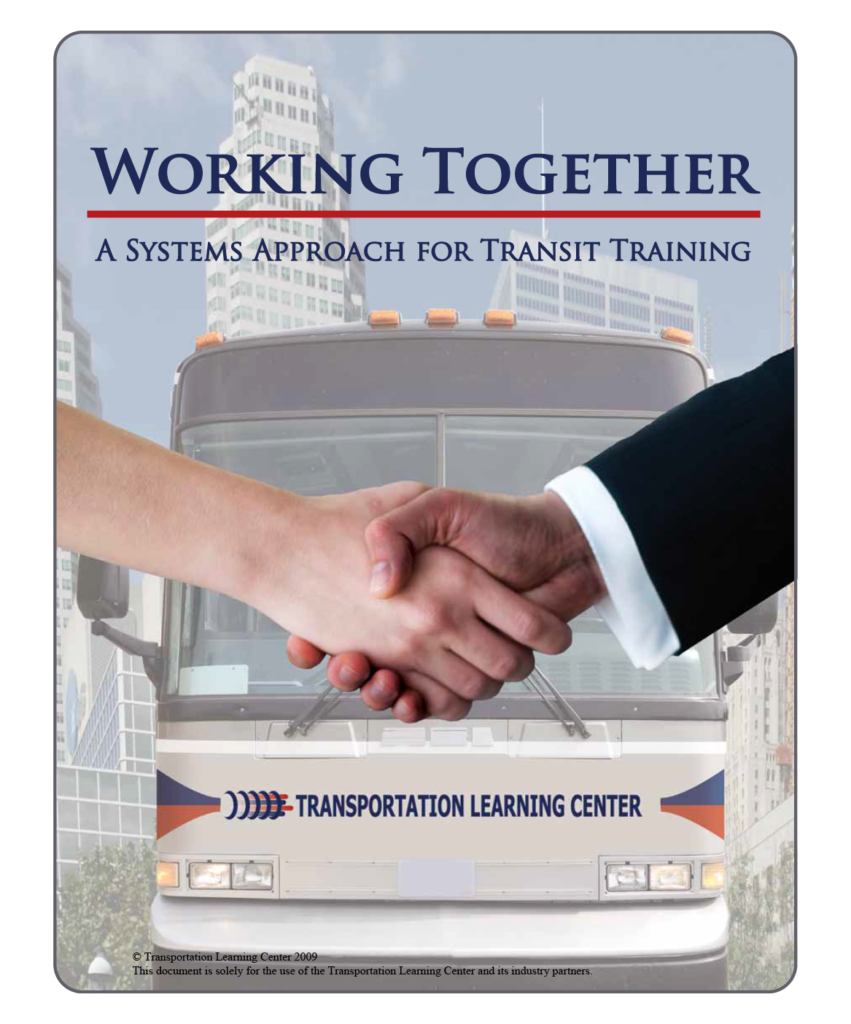
Working Together: A Systems Approach for Transit Training
Transit faces a critical skills challenge driven by changing technologies, shifting workforce demographics and record-breaking growth in ridership. Working Together: A Systems Approach for Transit Training outlines how constructive training partnerships provide the most effective way for the transit industry to address its skill challenges.
International Transportation Learning Center
January 2009
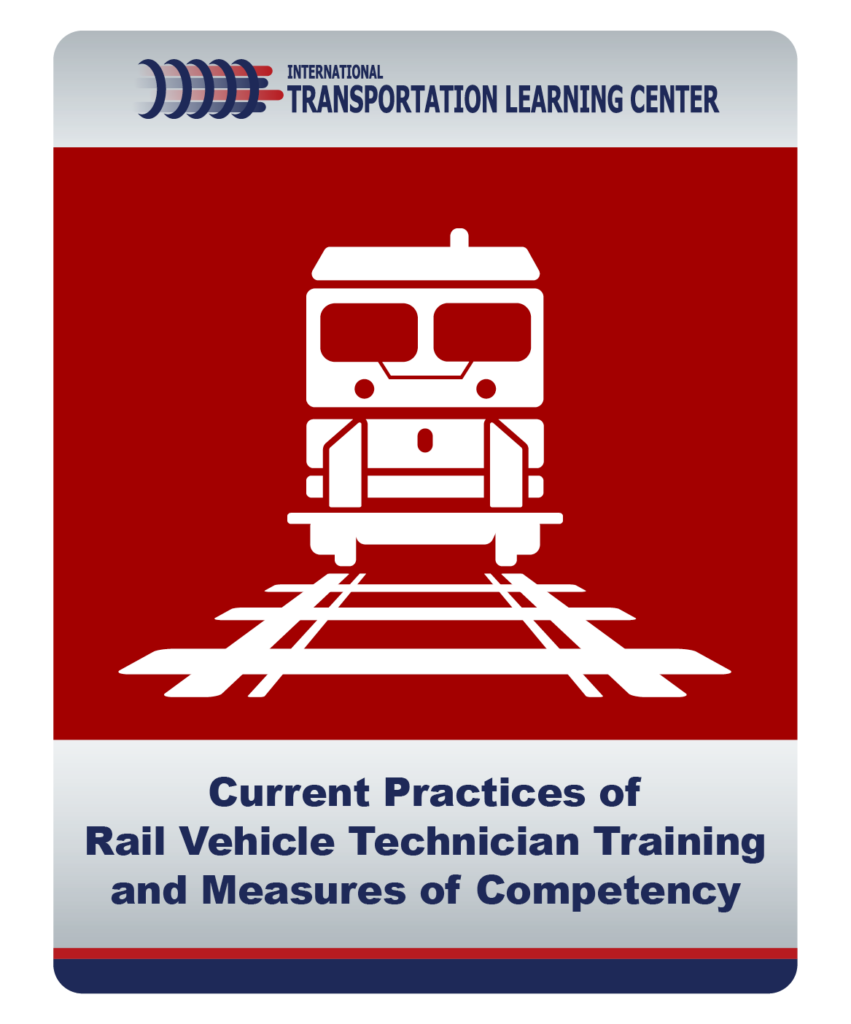
Current Practices of Rail Vehicle Technician Training and Measures of Competency
This 2009 ILTC brief summarizes findings from a survey on best practices in rail car maintenance, based on recommendations from the RCRP E-7 Panel.
International Transportation Learning Center
January 2009
TOPICS: Policy and Planning , Training
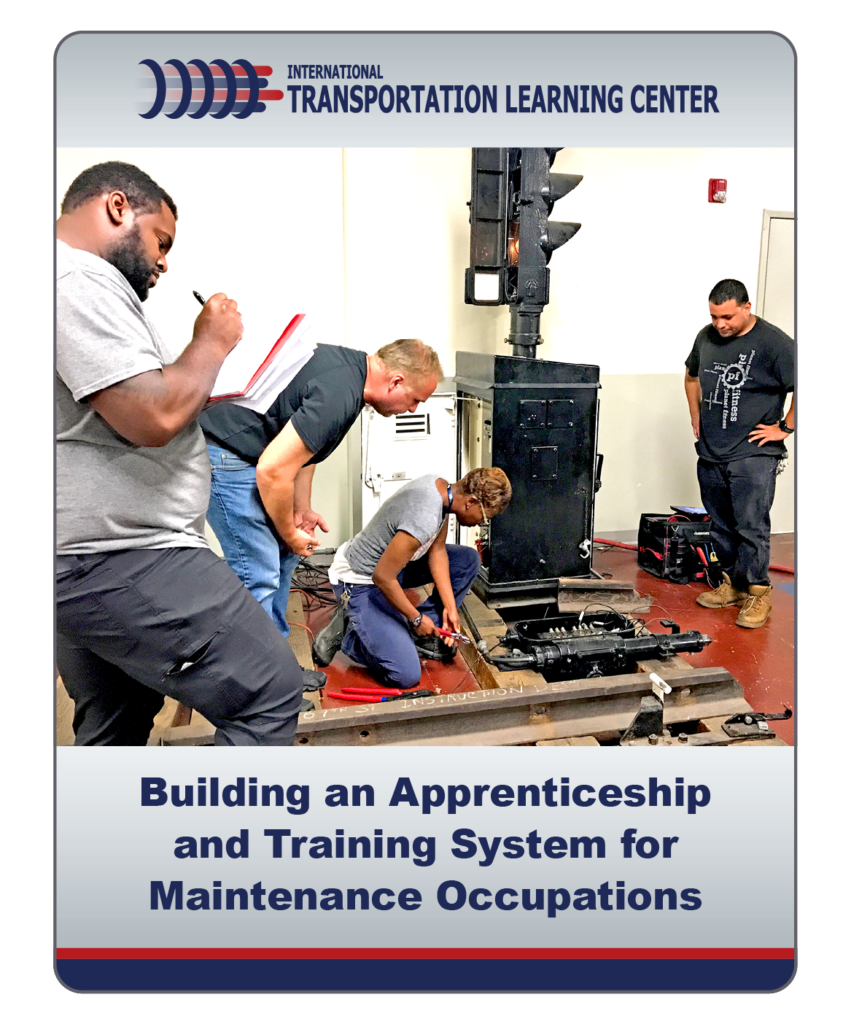
Building an Apprenticeship and Training System for Maintenance Occupations
This article discusses the joint training and apprenticeship system emerging in maintenance occupations in the American transit industry, as well as related challenges and strategies to overcome them. The article reports on early results, including efforts to develop a consensus national framework for apprenticeship and training in transit maintenance.
Written with Robert W. Glover, the University of Texas at Austin.
International Transportation Learning Center
January 2009
TOPICS: Apprenticeship , Career Pathways , Training
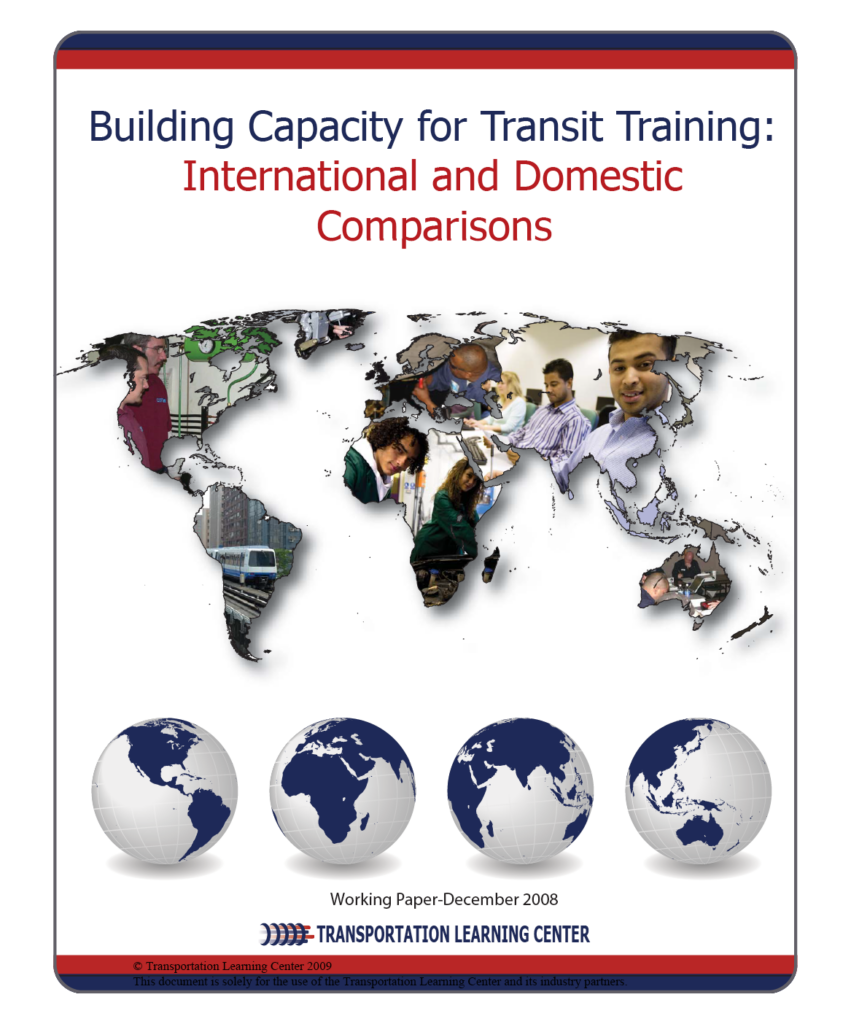
Building Capacity for Transit Training: International and Domestic Comparisons
This working paper provides an overview of the findings from research on strong industry-wide workforce development systems in six other countries and in several US industries. It identifies key features that could be adapted for use to create more effective US transit training.
International Transportation Learning Center
December 2008
TOPICS: Apprenticeship , Program Evaluation and ROI , Training
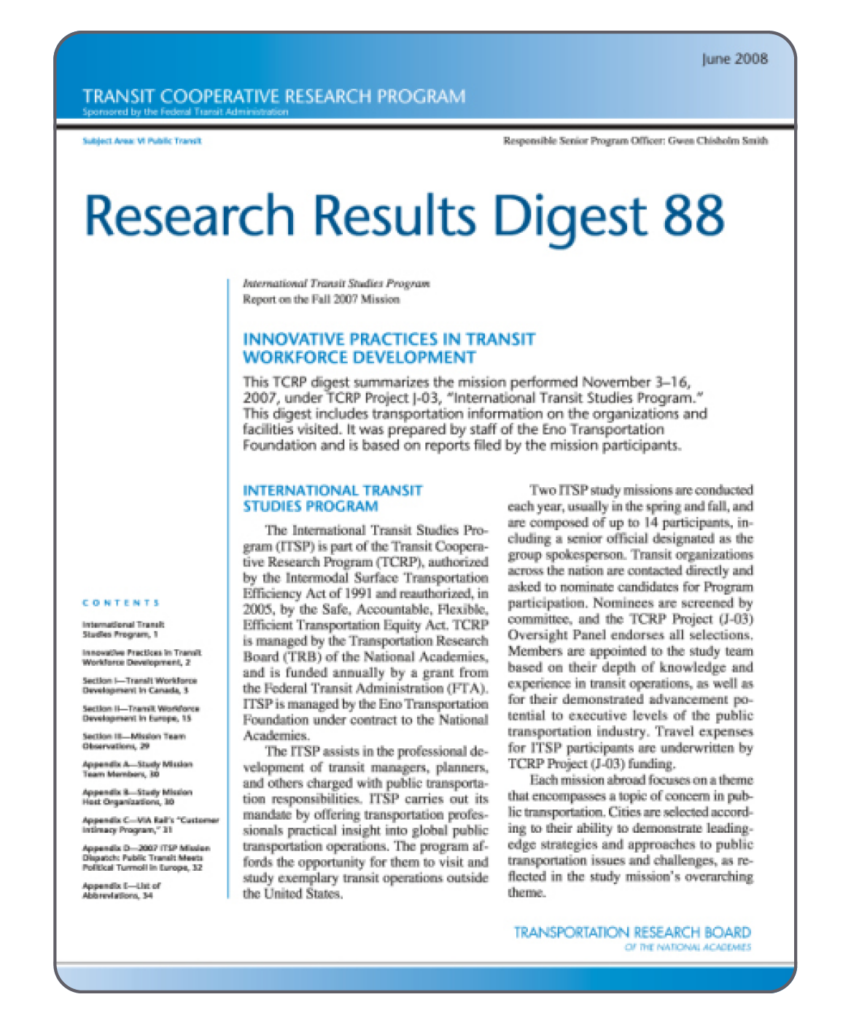
Innovative Practices in Transit Workforce Development
TRB’s Transit Cooperative Research Program (TCRP) Research Results Digest 88: Innovative Practices in Transit Workforce Development examines innovative practices in workforce development in several cities in Canada, France, and Belgium.
Transit Cooperative Research Program (TCRP)
June 2008
TOPICS: Hiring and Recruitment , Policy and Planning , Training
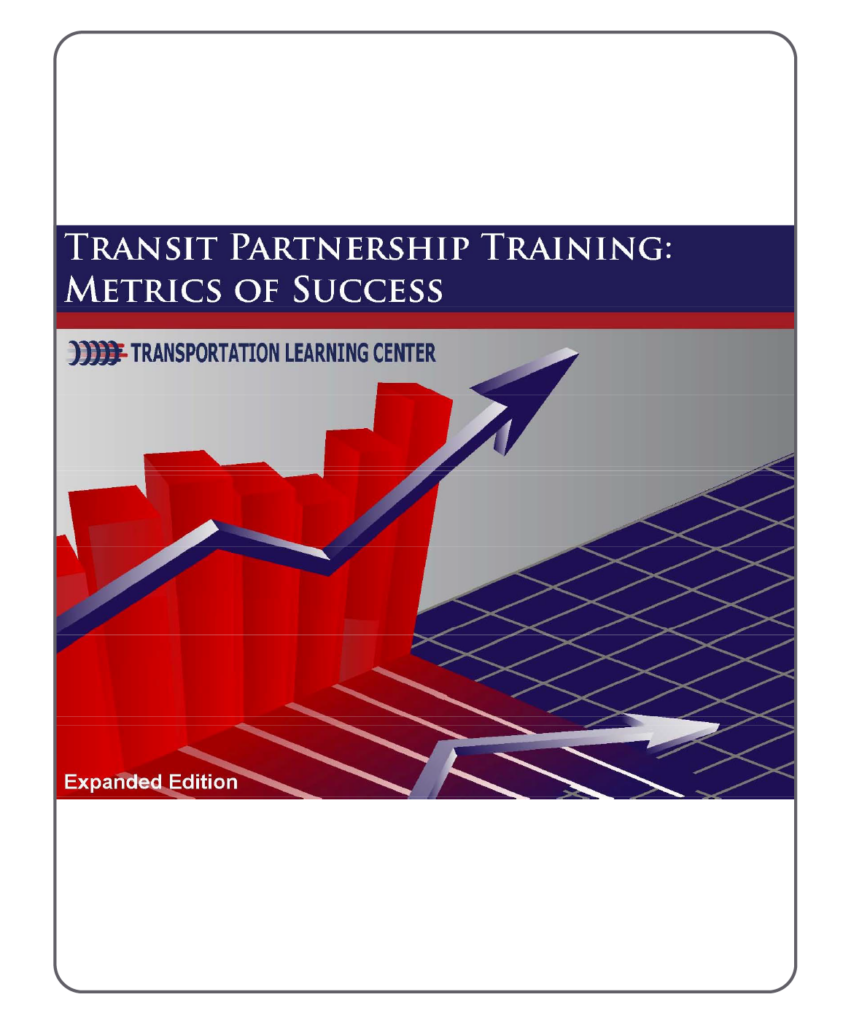
Metrics of Success Series
The Metrics of Success series chronicles measurable outcomes, in particular return on investment, of transit training partnerships in which the International Transportation Learning Center has had a substantial role. Each Metrics report focuses on quantitative data from a specific partnership, while Transit Partnership Training: Metrics of Success is an overview of key findings from all Metrics reports to date.
International Transportation Learning Center
May 2008
 Transit Partnership Training: Metrics of Success – Expanded Edition
Transit Partnership Training: Metrics of Success – Expanded Edition
 Smart Investment Partnership: New York State's Transit Workforce Training Proves its Worth
Smart Investment Partnership: New York State's Transit Workforce Training Proves its Worth
 Measuring Up: Keystone Training Partnership – Vol. 1
Measuring Up: Keystone Training Partnership – Vol. 1
 Measuring Up: Keystone Training Partnership – Vol. 2
Measuring Up: Keystone Training Partnership – Vol. 2
 Keystone – Making a Difference in Pennsylvania Transit
Keystone – Making a Difference in Pennsylvania Transit
 Keystone – Pennsylvania Transit on the High Road
Keystone – Pennsylvania Transit on the High Road
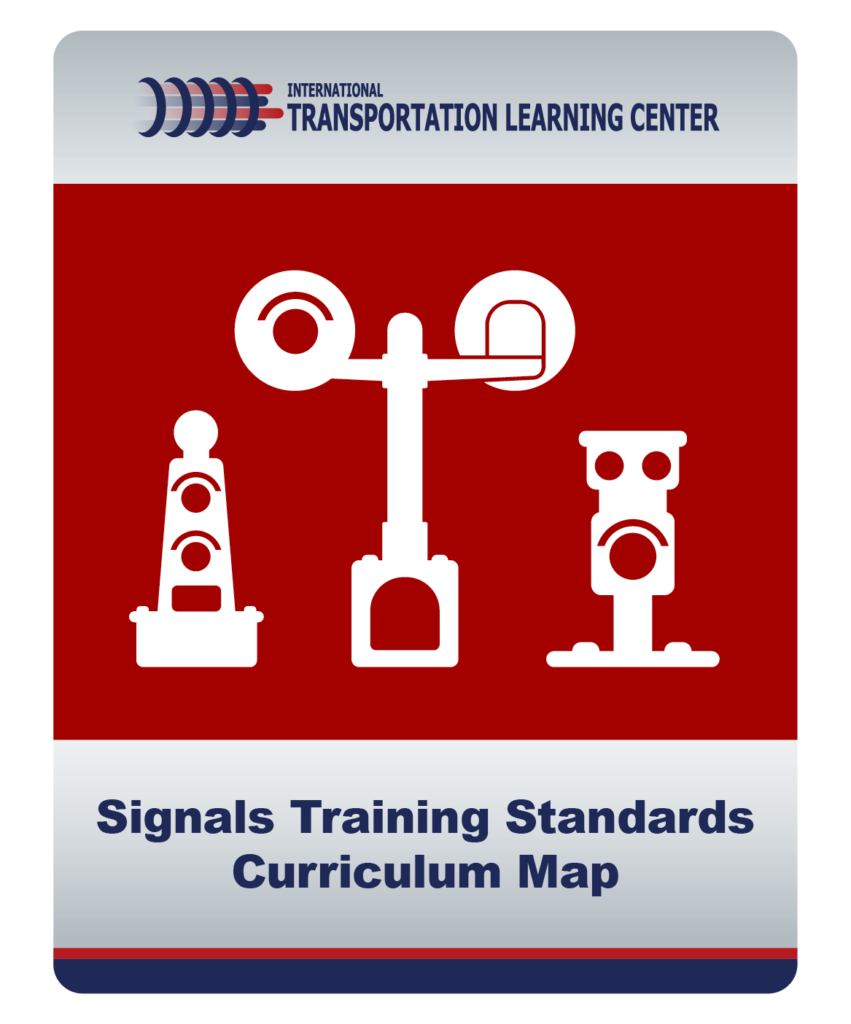
Signals Training Standards Curriculum Map
A curriculum map of the Signals Training Standards released on January 22, 2008.
International Transportation Learning Center
January 2008
TOPICS: Safety and Health , Trainer and Mentor Development , Training
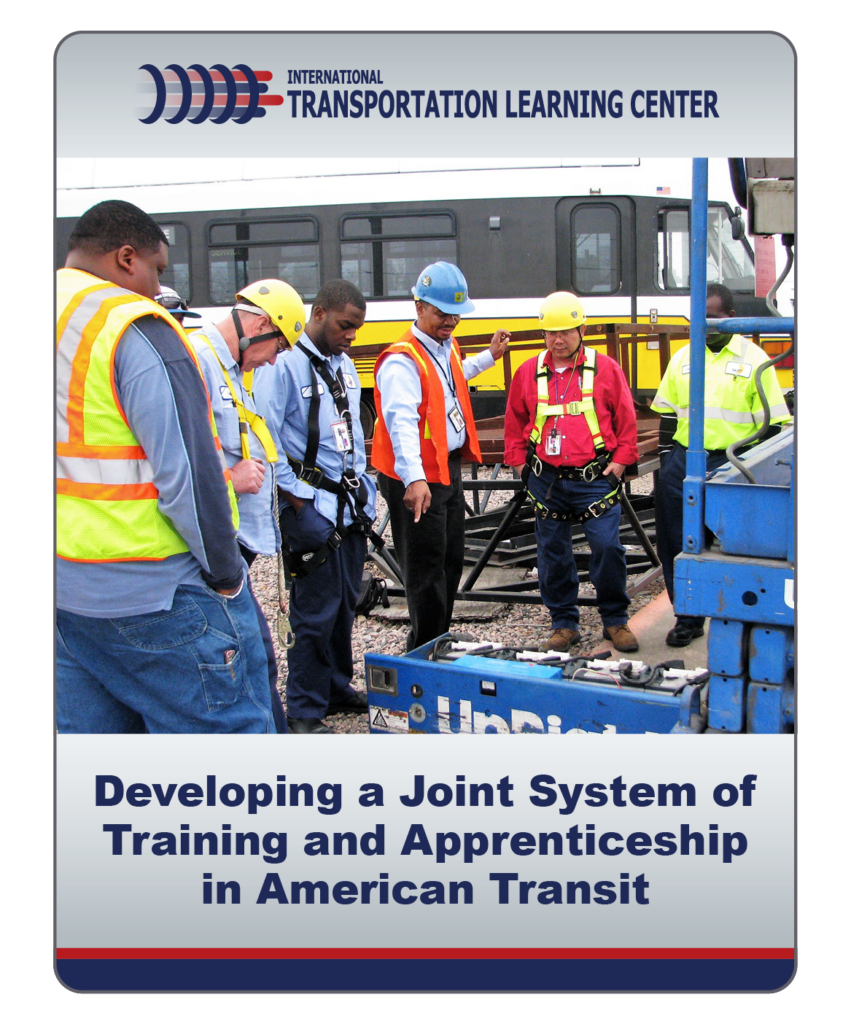
Developing a Joint System of Training and Apprenticeship in American Transit
This paper reviews training innovations and lessons that may be applicable to the transit industry from practices used in other industries. It draws on a rich body of experience of joint apprenticeship and training programs, as well as employer-sponsored training.
Prepared with Robert W. Glover, the University of Texas at Austin.
International Transportation Learning Center
September 2007
TOPICS: Apprenticeship , Policy and Planning , Training
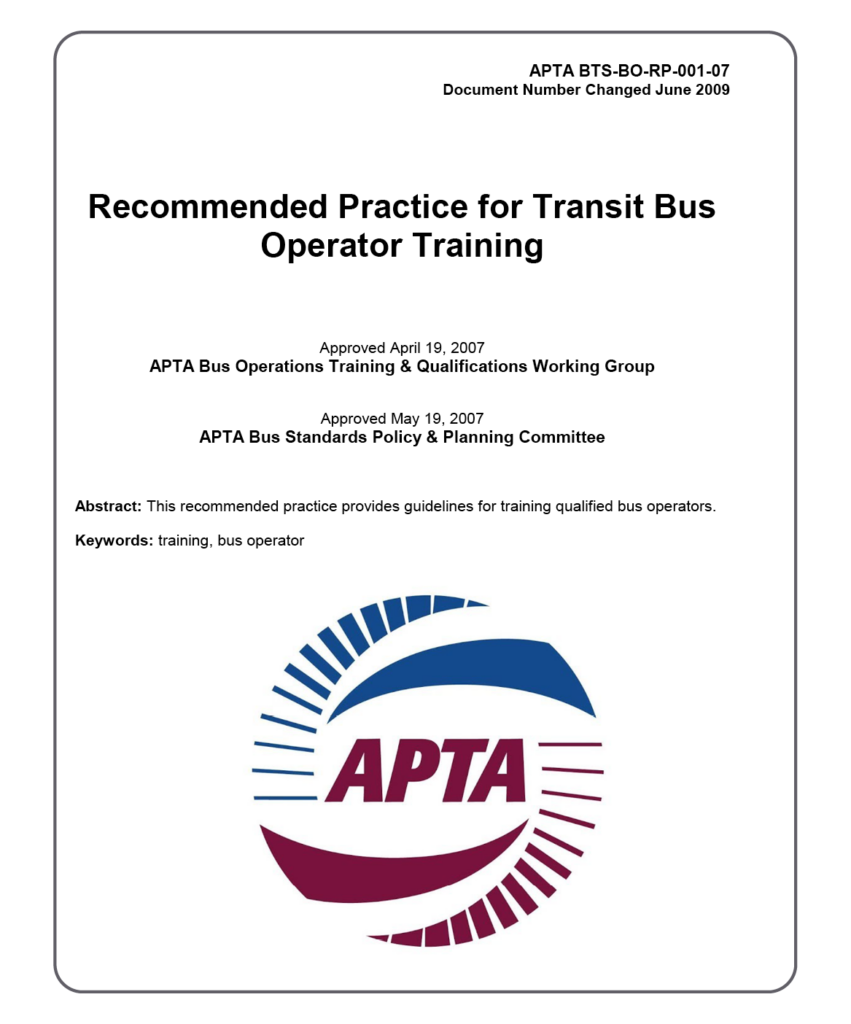
APTA Recommended Practice for Transit Bus Operator Training
This recommended practice provides guidance for standardized transit operator training to assist in the development of professional bus operators resulting in quality service. Individual operating agencies can modify these guidelines to accommodate their specific training goals and operating modes.
American Public Transportation Association (APTA)
May 2007
TOPICS: Safety and Health , Trainer and Mentor Development , Training
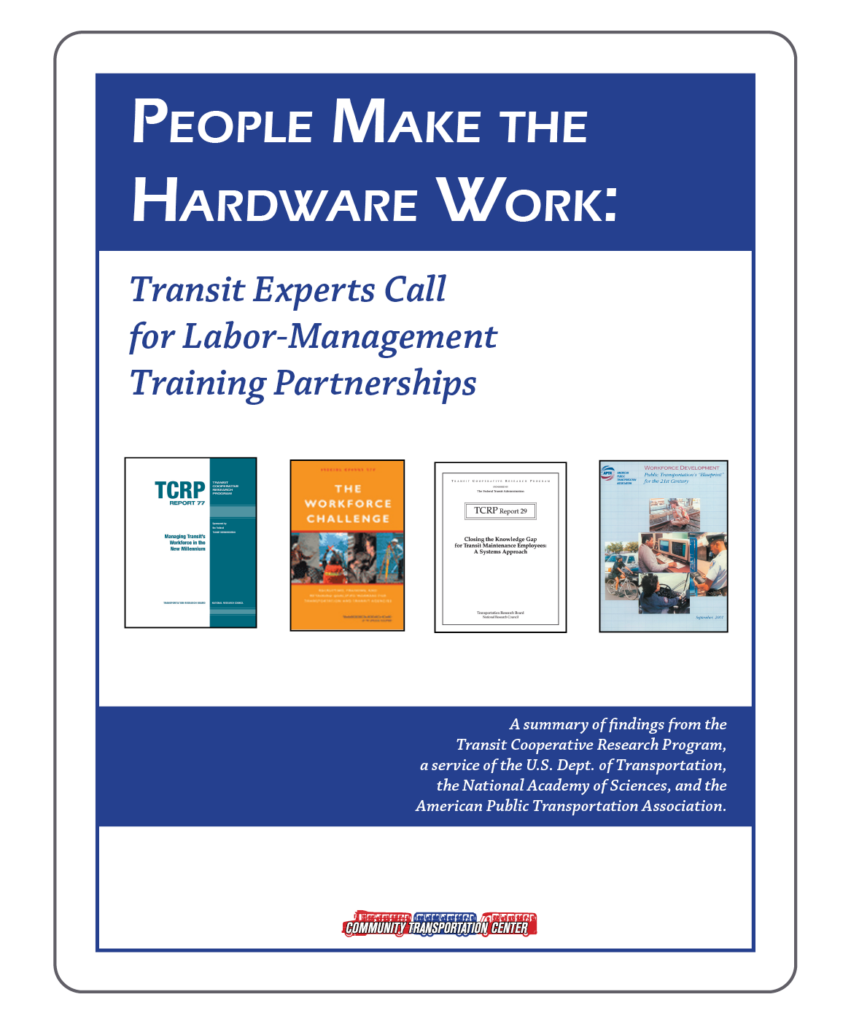
People Make the Hardware Work: Transit Experts Call for Labor-Management Training Partnerships
This short toolkit outlines five tools for success in labor-management training partnerships:
- Unions as Partners
- A Joint Training Strategy
- Empowering the Workforce
- Cultivating a Learning Organization
- Reaching High Performance
International Transportation Learning Center; Transit Cooperative Research Program
March 2007
TOPICS: Apprenticeship , Labor-Management Partnerships , Training
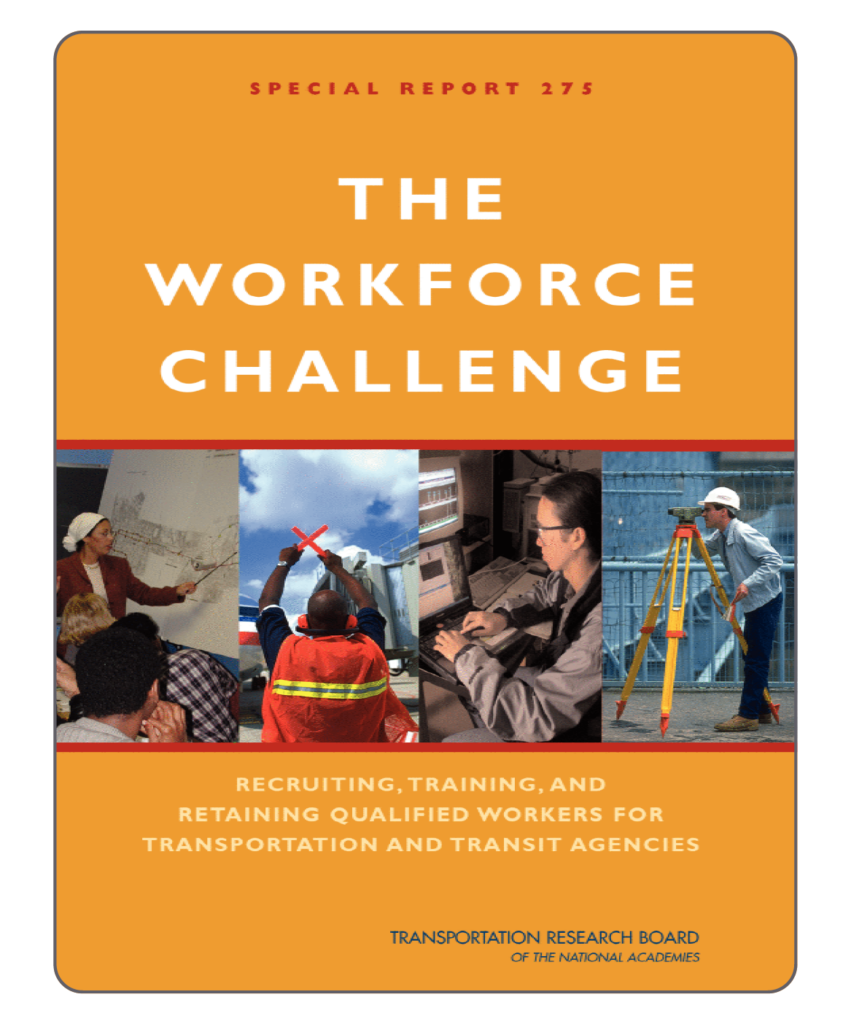
The Workforce Challenge
This report compiles research about the issues facing the transportation workforce, including changing skills, an aging workforce, and low prioritization of training. The report recommends working to expand existing federal and academic resources, create an institutional focus for the issue, and establish human resources management as a strategic function within the transportation community.
Transportation Research Board
January 2003
TOPICS: Hiring and Recruitment , Policy and Planning , Procurement , Retention , Training
Contributor(s): National Academies of Sciences, Engineering, and Medicine; Transportation Research Board; Committee on Future Surface Transportation Agency Human Resource Needs: Strategies for Recruiting, Training, and Retaining Personnel
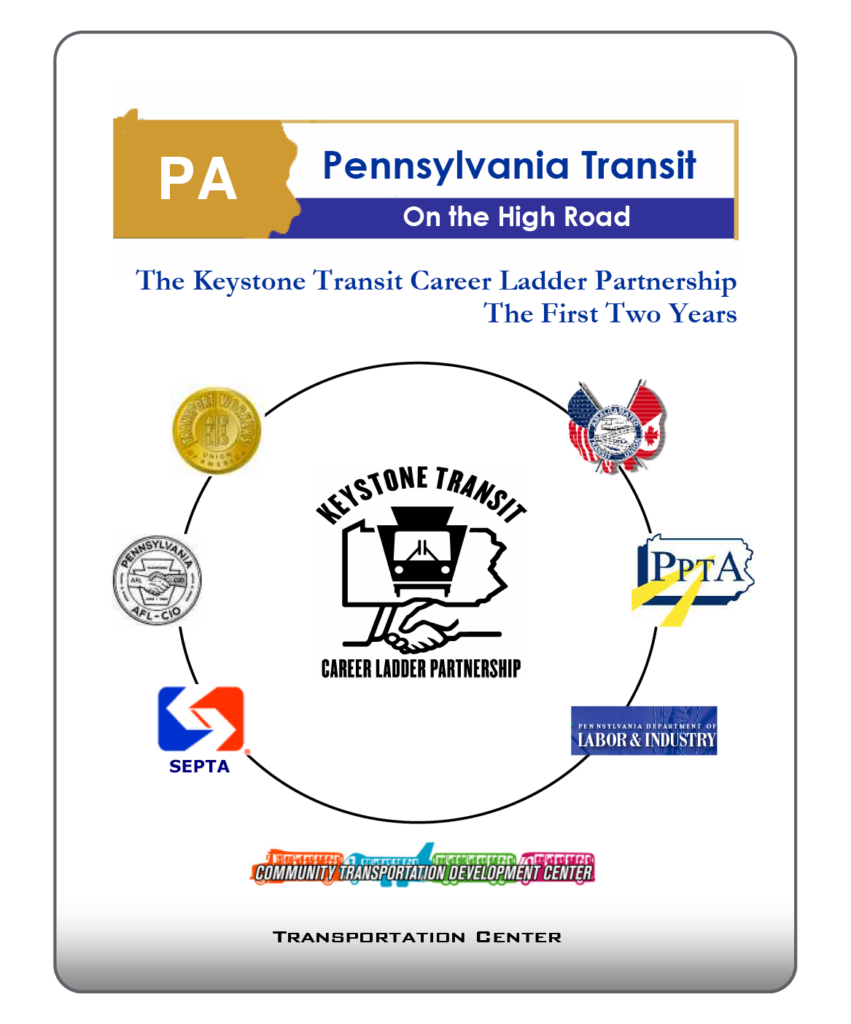
Pennsylvania Transit on the High Road
This report is part of a larger case study that chronicles the development of the Keystone Transit Career Ladder Partnership, including the process of job task/work task analysis, skills gap analysis, and data-driven training development.
International Transportation Learning Center
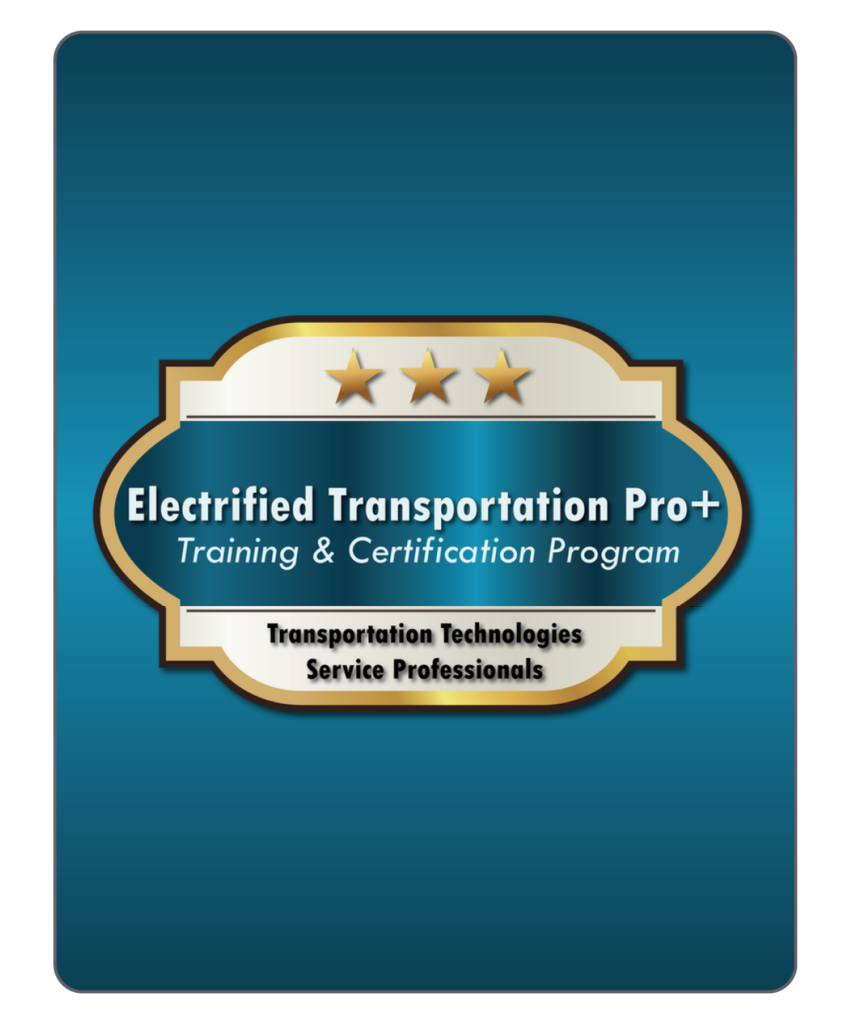
Electrified Transportation Pro+ Training and Certification Program
The objective of the Electrified Transportation Pro+ program is to ensure that all individuals across all transportation industries are trained in Electrified Vehicle Systems and Technologies consistently to one standard. The training is completed in preparation to perform the practical and written exams for earning the corresponding Level 1, Level 2, and Level 3 Certifications.
Electrified Transportation Pro+
TOPICS: Low-No , Safety and Health , Training
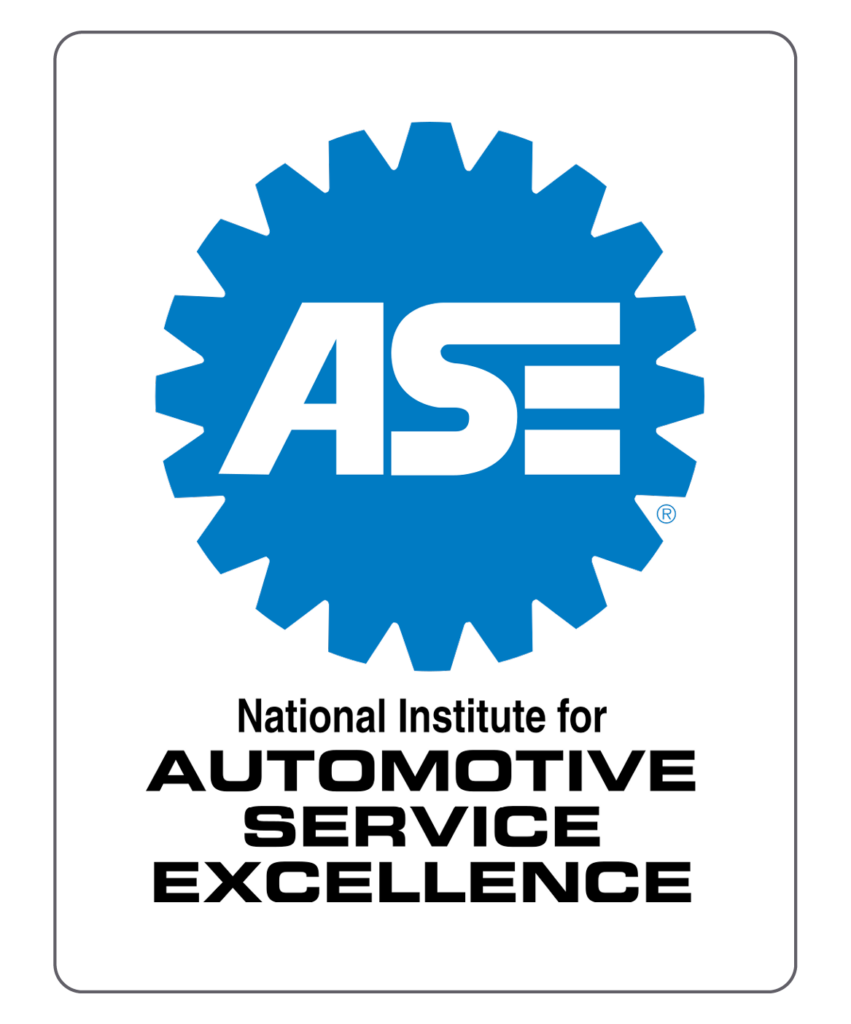
Transit Bus Certification Tests
This Test Series identifies and recognizes Transit Bus Technicians who demonstrate knowledge of the skills necessary to diagnose, service, and repair various systems on transit buses. Technicians can use the Official ASE Study Guide for Transit Bus Tests to prepare.
Automotive Service Excellence
TOPICS: Low-No , Safety and Health , Training
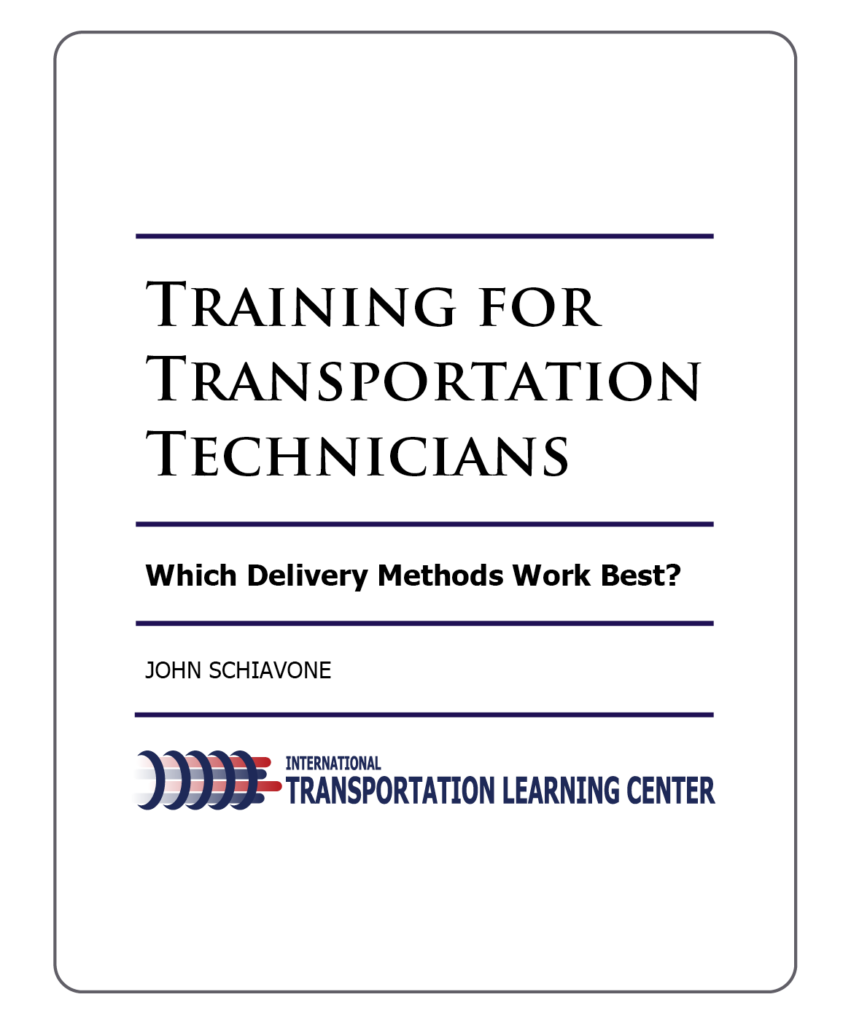
Training for Transportation Technicians: Which Delivery Methods Work Best?
This paper explores what is the most effective way to train transportation technicians. It proposes a blended approach combining classroom time with interactive hands-on demonstrations, followed by structured on-the-job training (OJT) and mentoring.
International Transportation Learning Center
TOPICS: Apprenticeship , Career Pathways , Mentorship , Training
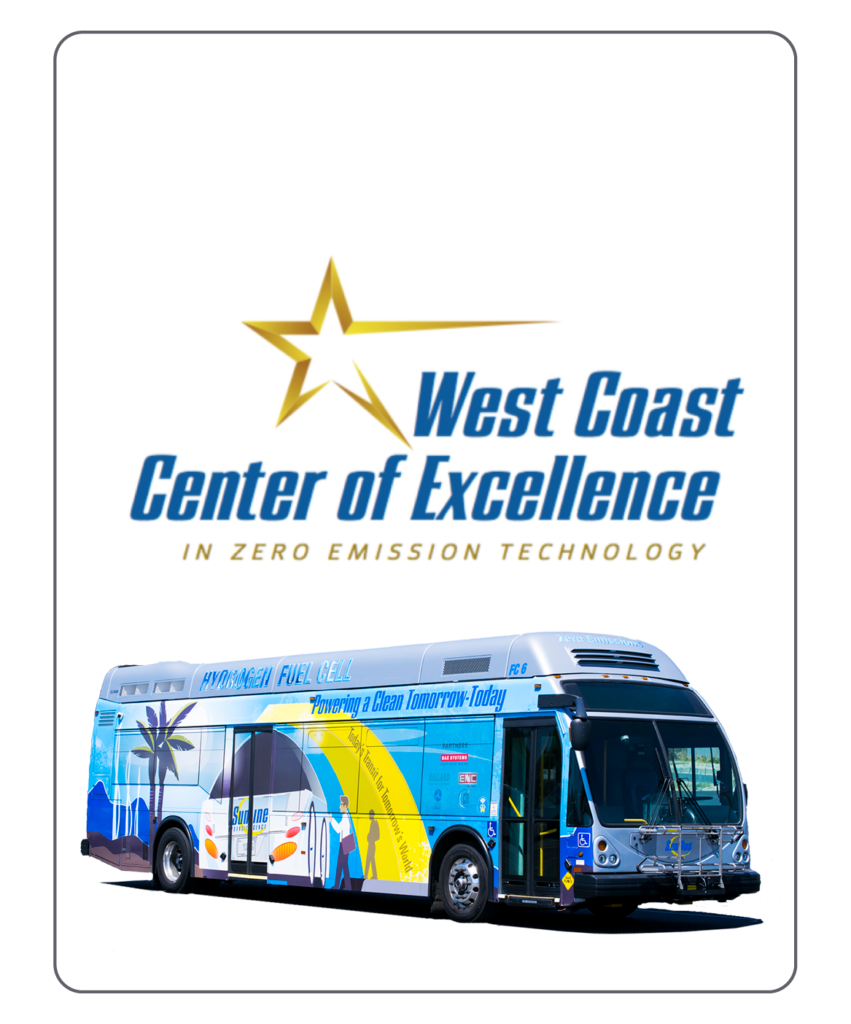
West Coast Center of Excellence in Zero Emission Technology
SunLine Transit Agency’s West Coast Center of Excellence in Zero Emission Technology (WCCOE) is a workforce development program focused on deploying and operating zero emission buses in public fleets. Funded by the FTA, this center provide training, best practice information and access to technology and software geared towards the planning, procurement and deployment of zero emission buses.
SunLine Transit Agency
TOPICS: Low-No , Trainer and Mentor Development , Training
Course offerings include:
• Leadership and Employee Relations
• Zero Emission Bus Overview
• Zero Emission Bus Operations
• Zero Emission Bus Maintenance
• Financial Management
• Zero Emission Bus Procurement
• Zero Emission Bus Policies and Regulations
• Planning for ZEB Operation
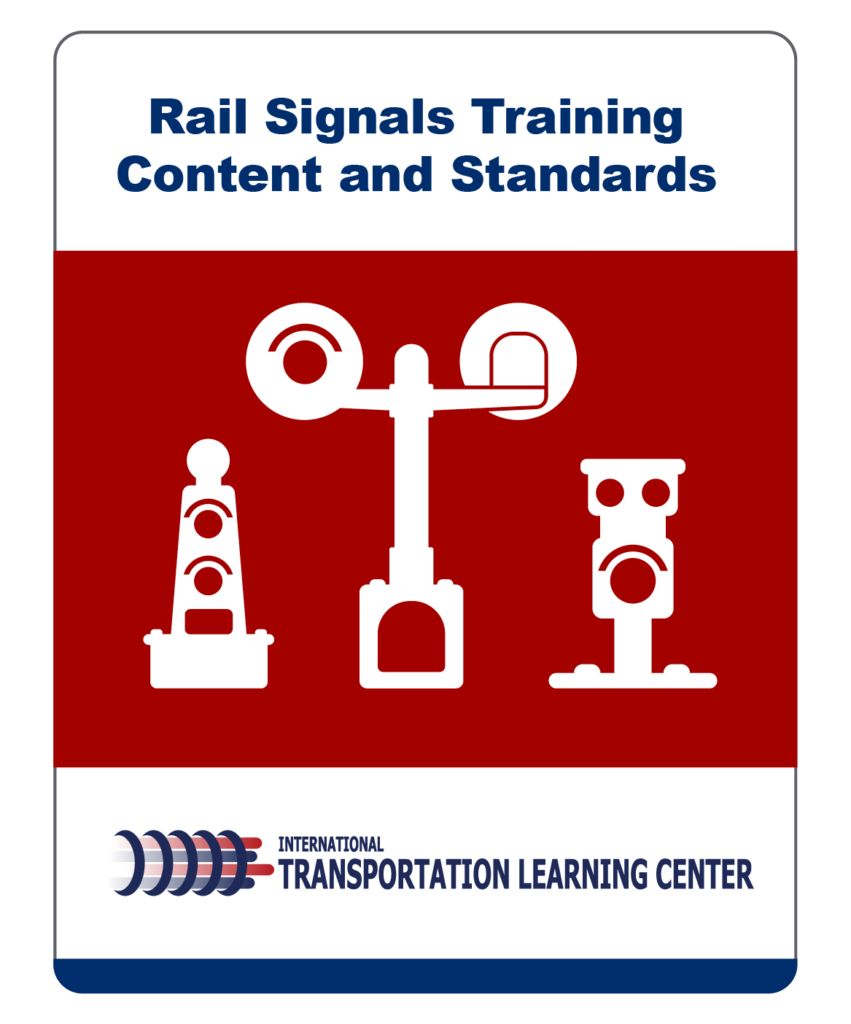
Rail Signals Training Content and Standards
An overview of ITLC’s signals training course (2 modules—level 100 and 200).
International Transportation Learning Center
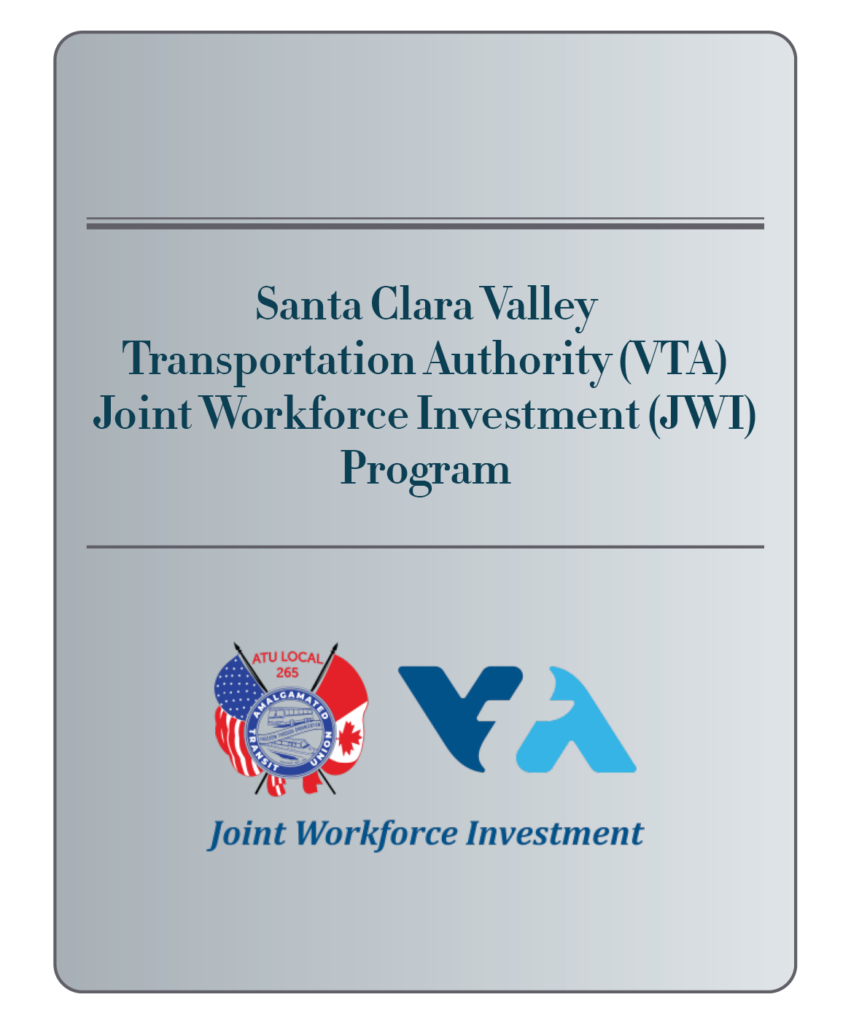
Santa Clara Valley Transportation Authority (VTA) Joint Workforce Investment Program
This case study examines the Joint Workforce Investment (JWI), established in 2006, which is a joint labor management partnership between the Santa Clara Valley Transportation Authority (VTA) and the Amalgamated Transit Union Local 265 (ATU). It includes discussion of three primary programs brought together under the JWI initiative: the Maintenance Career Ladders Training Project (MCLTP), New Operator/Mentor Pilot Project, and Health and Wellness Project.
ICF International
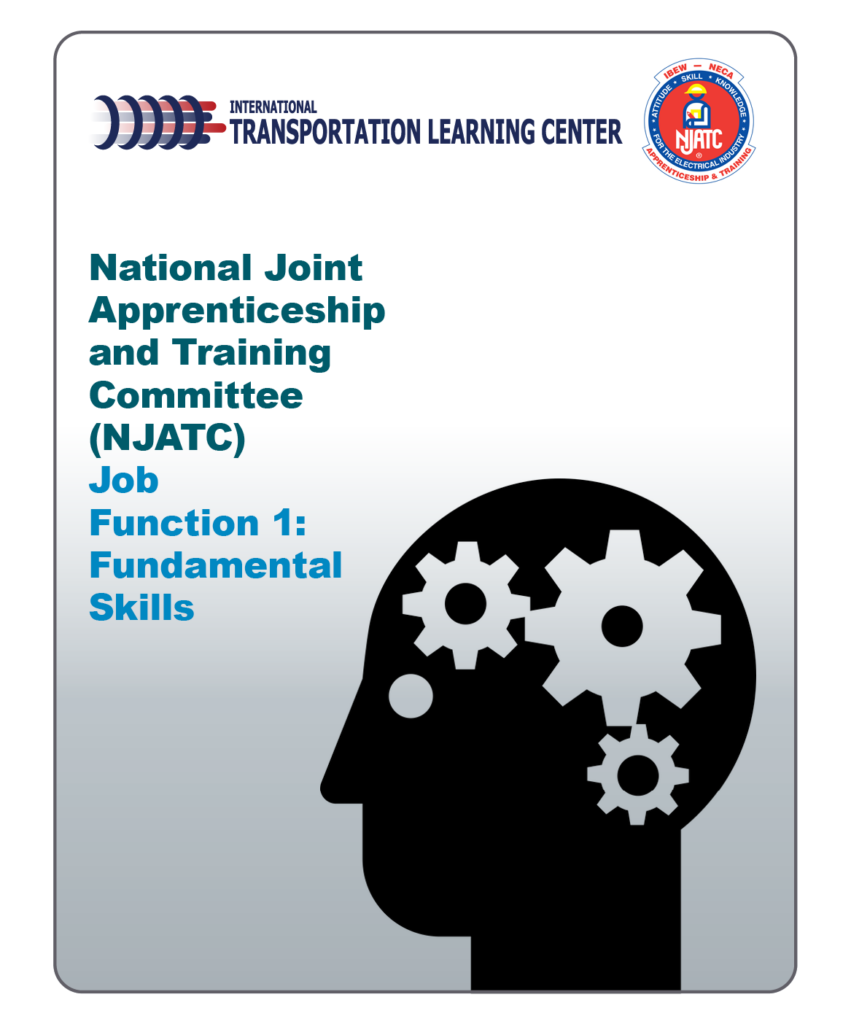
Matrix of Training Materials for Fundamental Bus Maintenance Skills
This matrix of training materials describes resources available to members of the National Joint Apprenticeship and Training Committee (NJATC) through other Committee members and from third-party resources. This document refers to JOB FUNCTION 1: FUNDAMENTAL SKILLS of the Department of Labor Apprenticeship Framework for Bus Maintenance (developed by the ITLC).
Interested parties should contact the provider of each resource directly. Some resources may not currently be available.
National Joint Apprenticeship and Training Committee; International Transportation Learning Center
TOPICS: Apprenticeship , Training
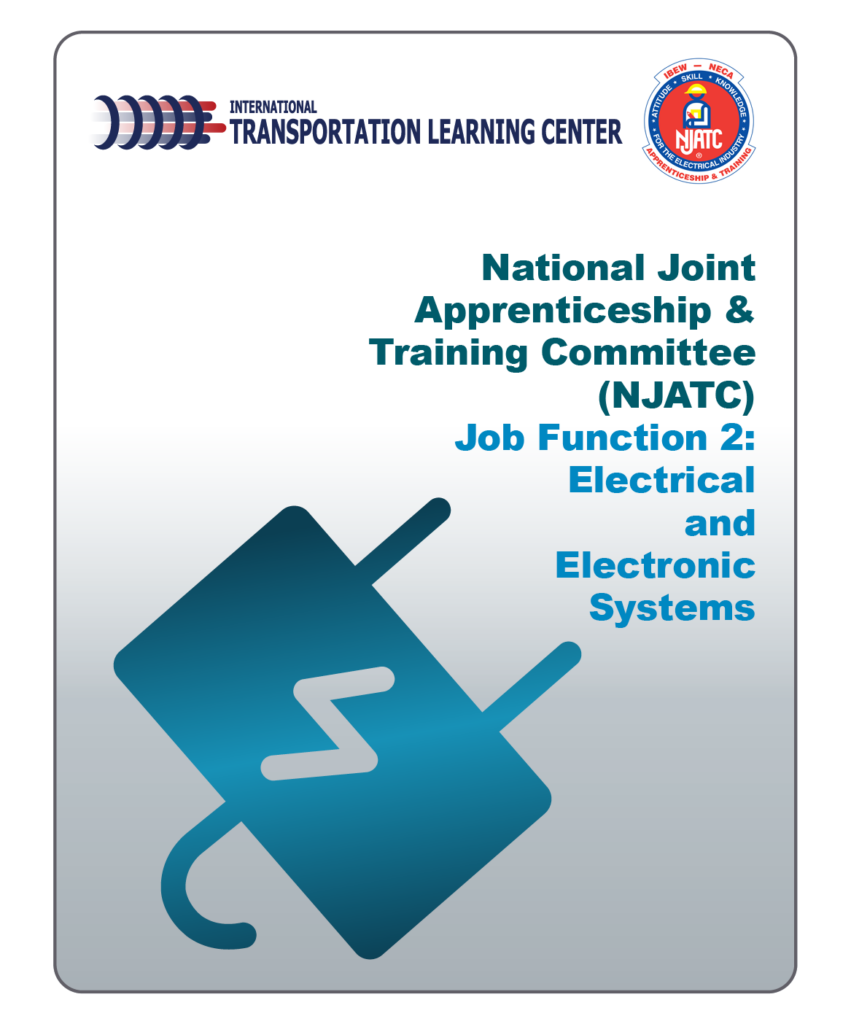
Matrix of Training Materials for Fundamental Electrical/ Electronic Systems Skills
This matrix of training materials describes resources available to members of the National Joint Apprenticeship and Training Committee (NJATC) through other Committee members and from third-party resources. This document refers to JOB FUNCTION 2: Electrical and Electronic Systems of the Department of Labor Apprenticeship Framework for Bus Maintenance (developed by the ITLC).
Interested parties should contact the provider of each resource directly. Some resources may not currently be available.
National Joint Apprenticeship and Training Committee; International Transportation Learning Center
TOPICS: Apprenticeship , Training








